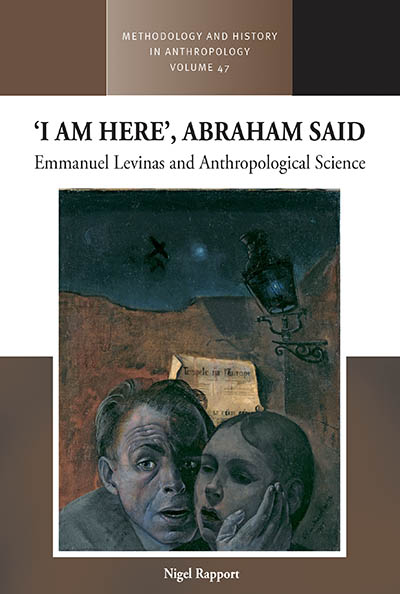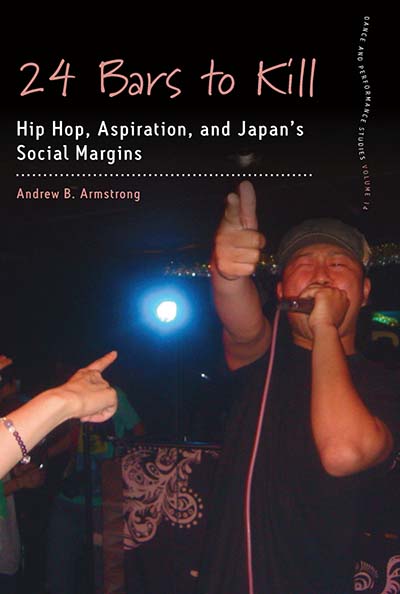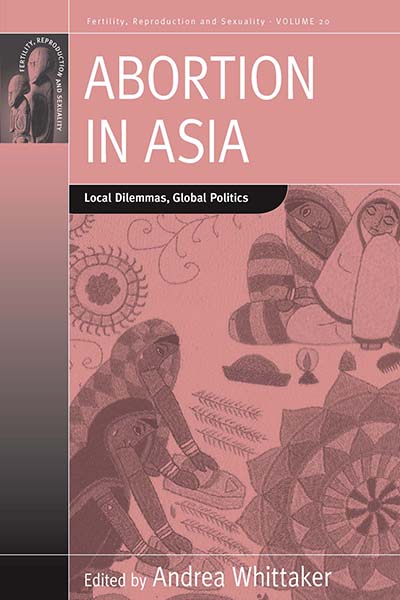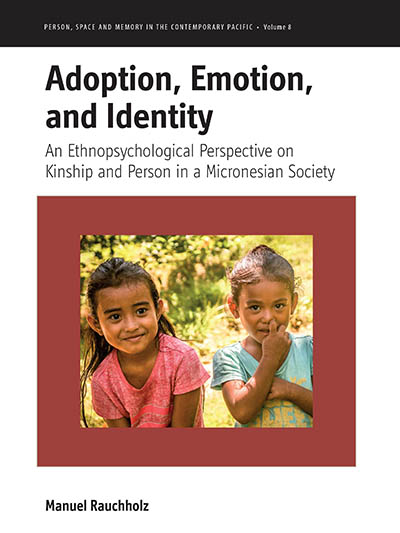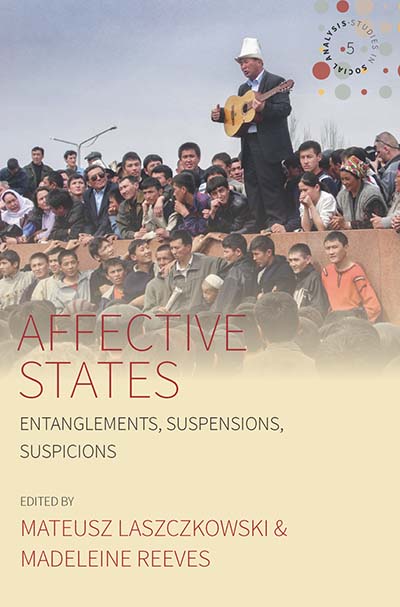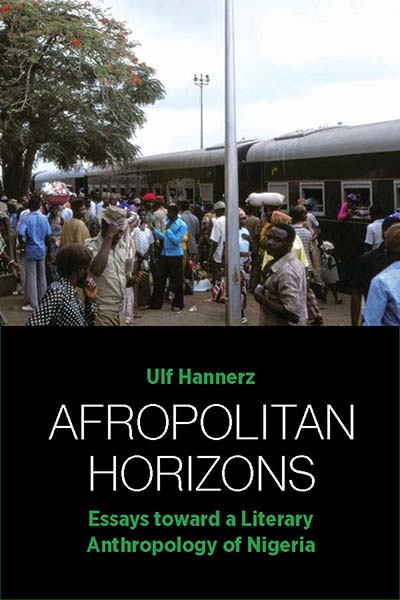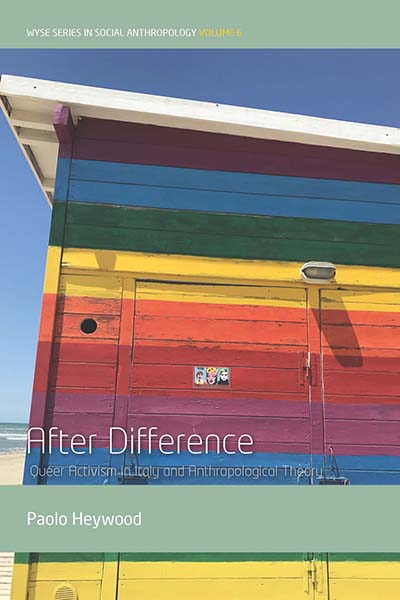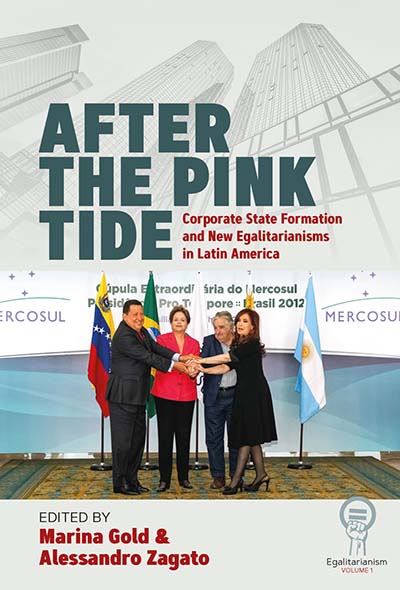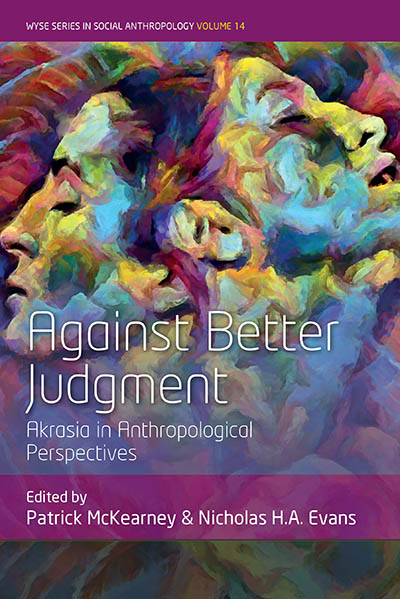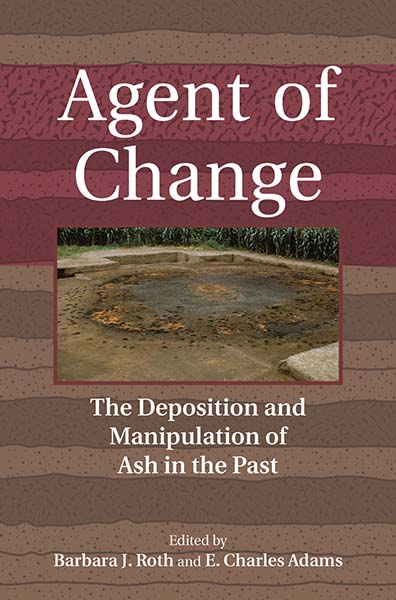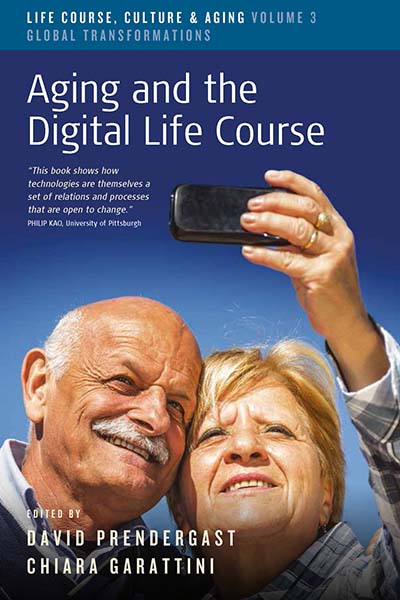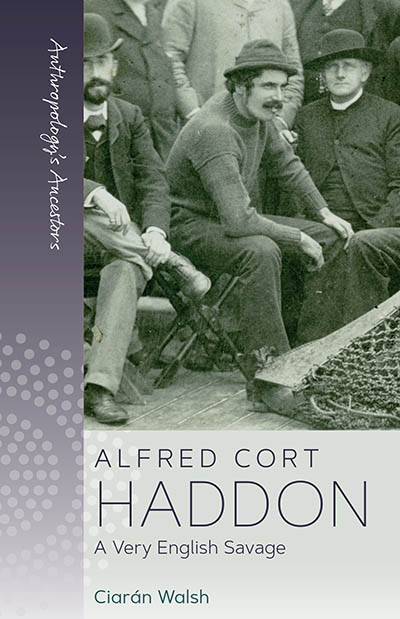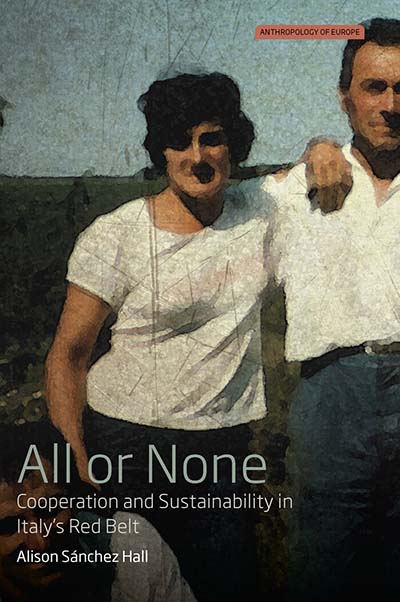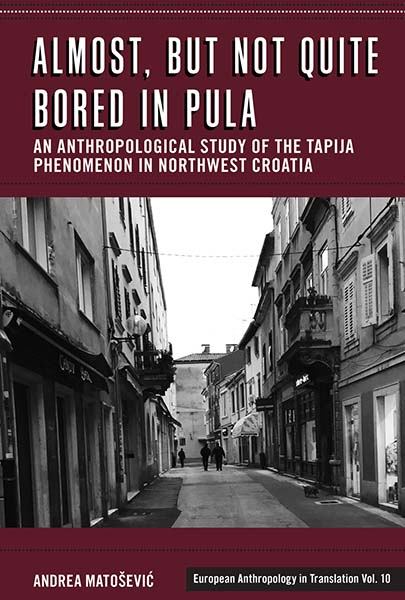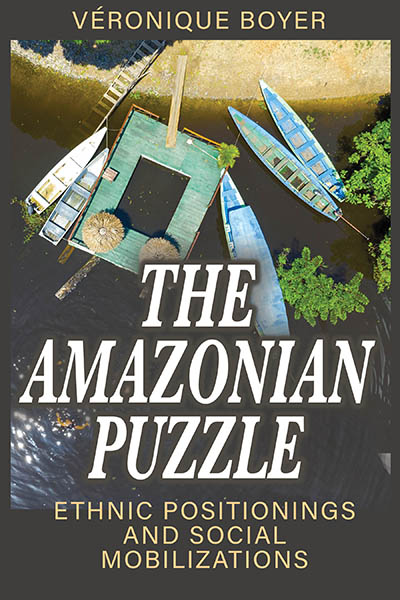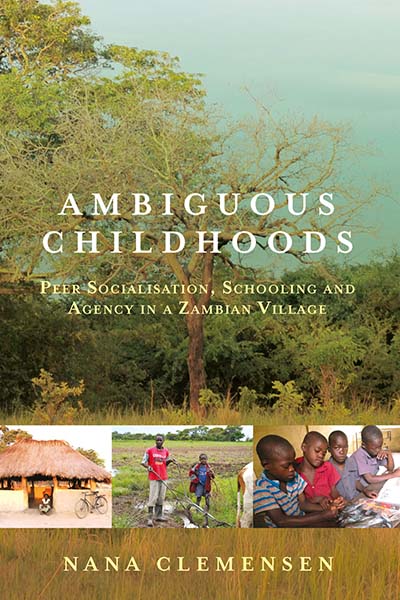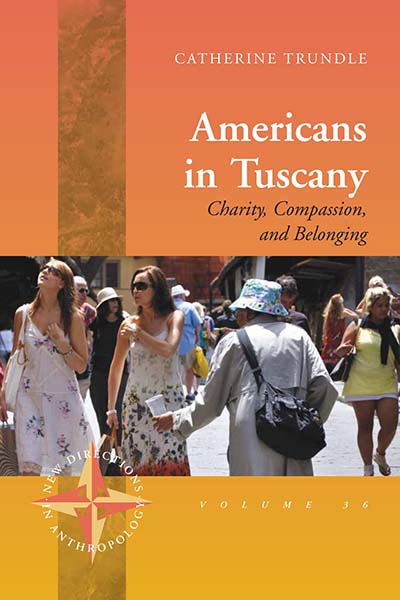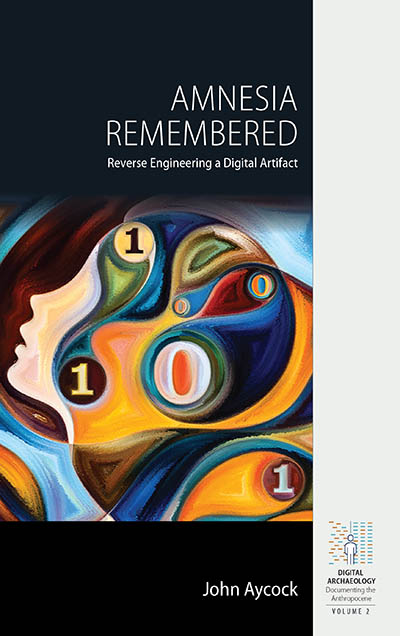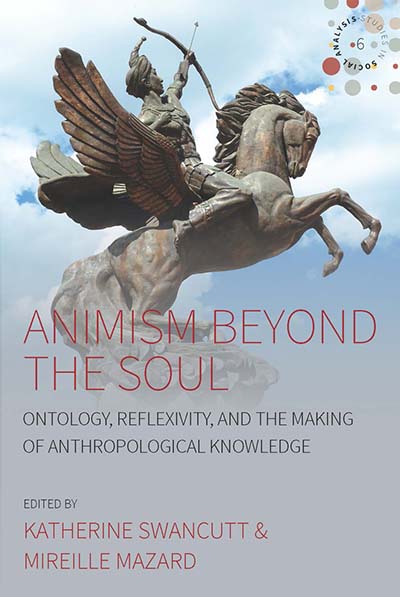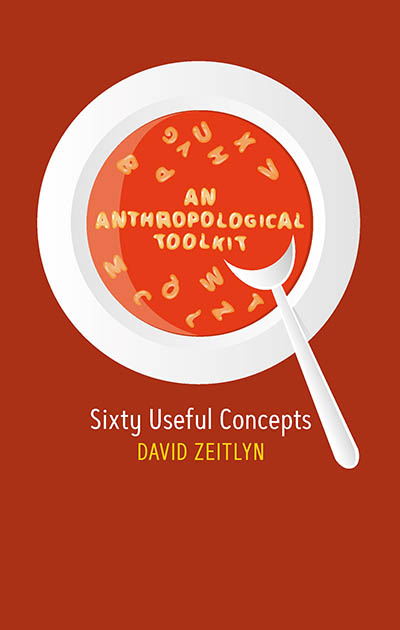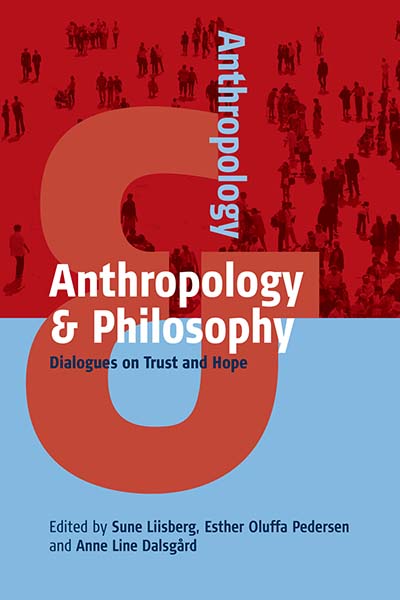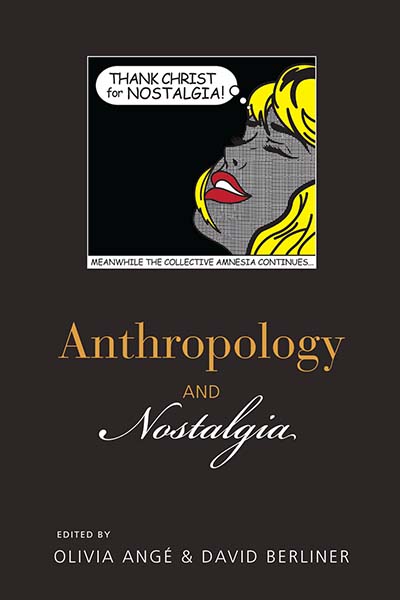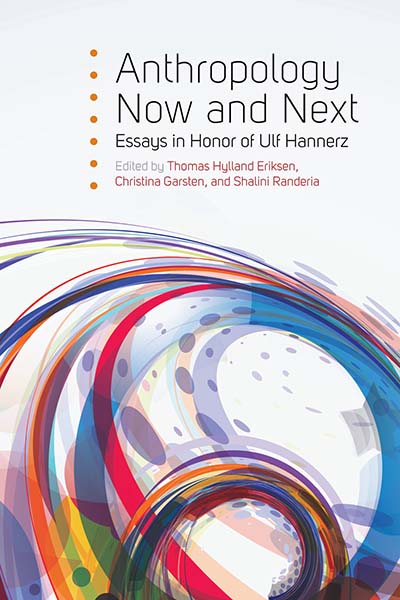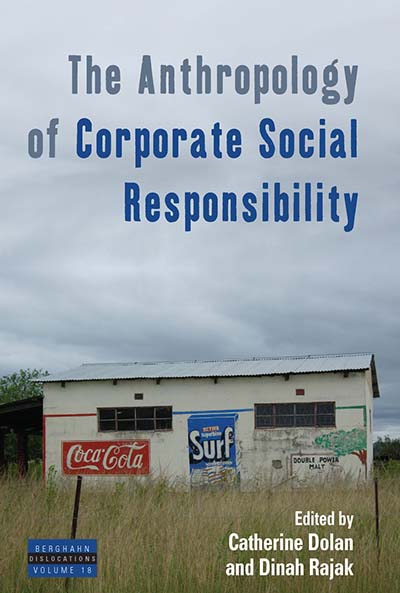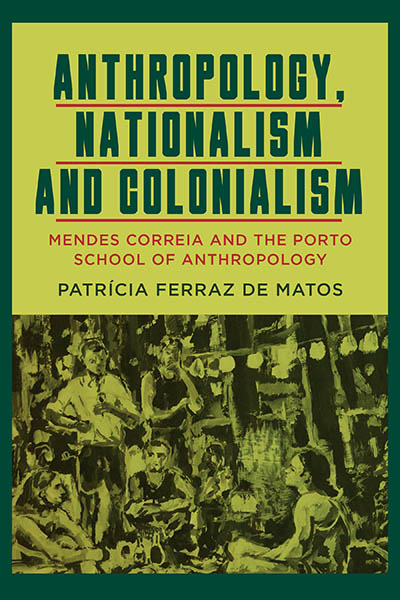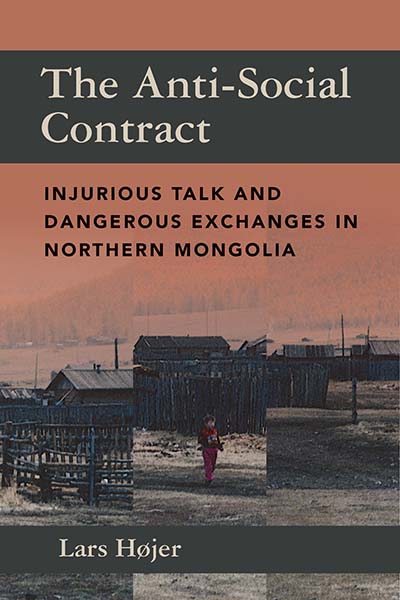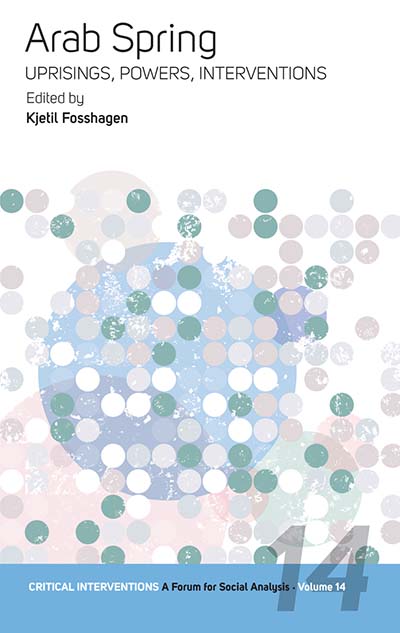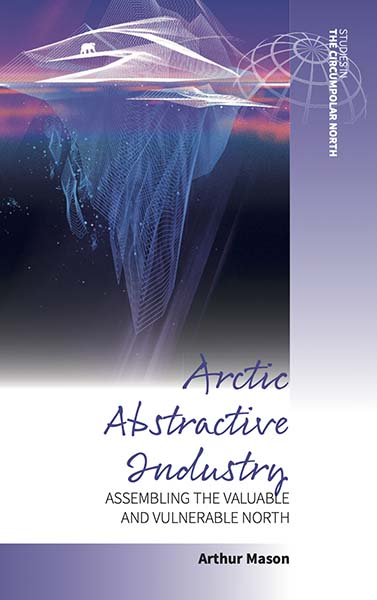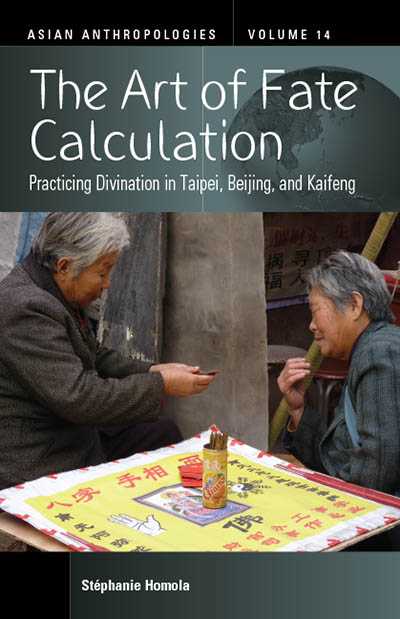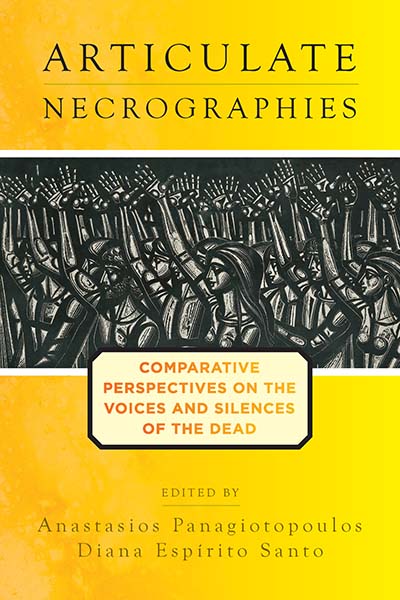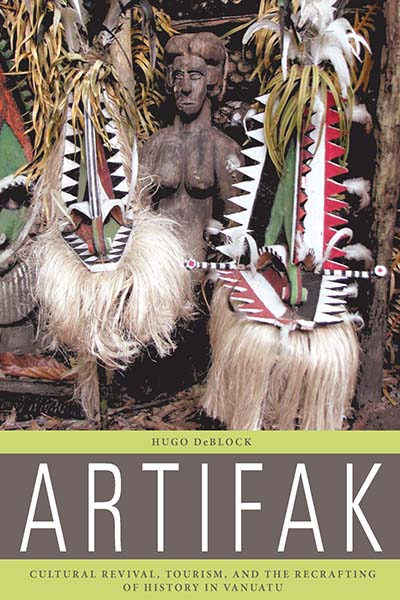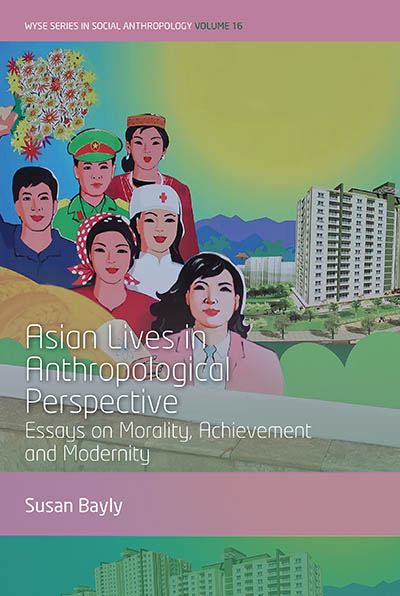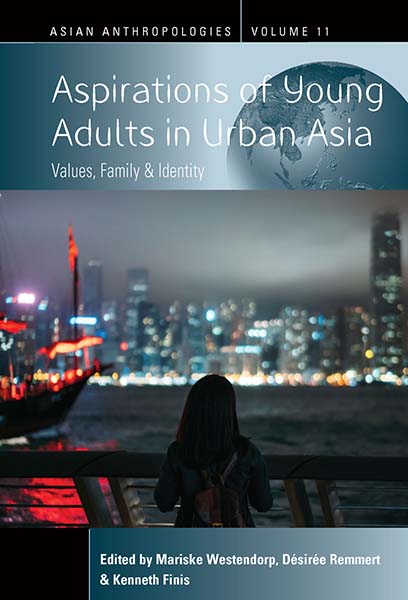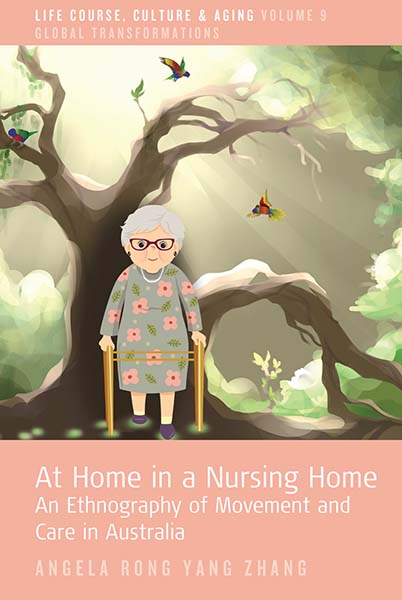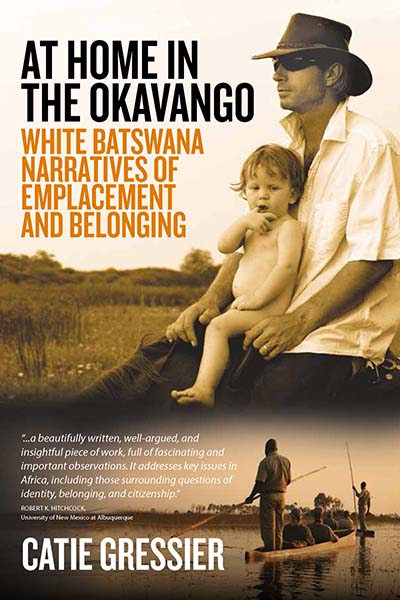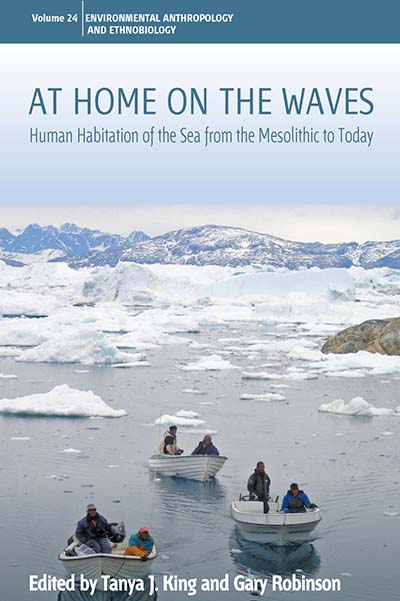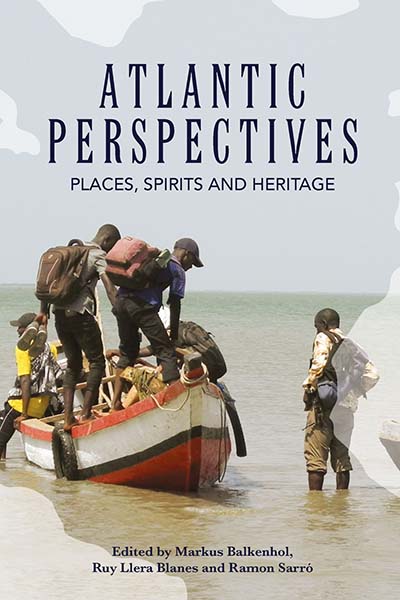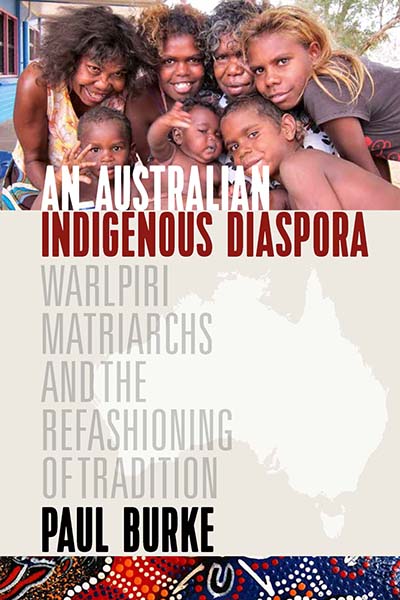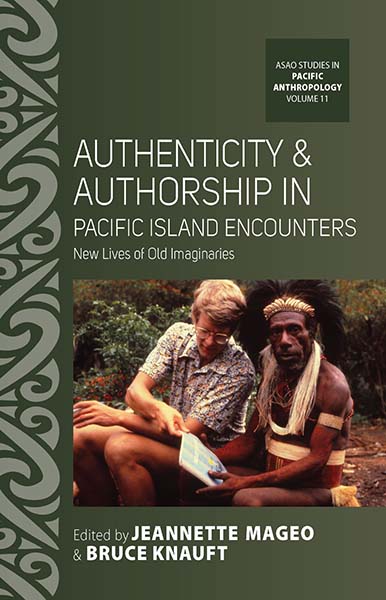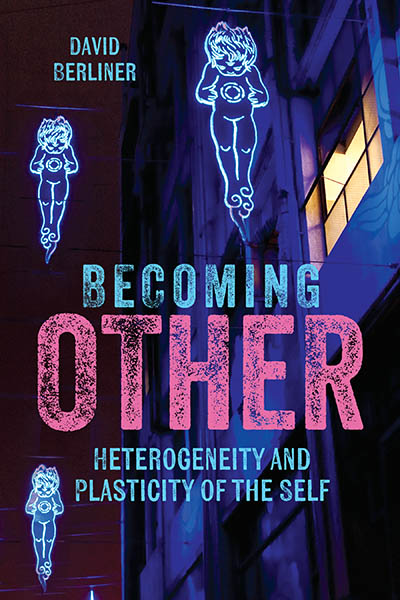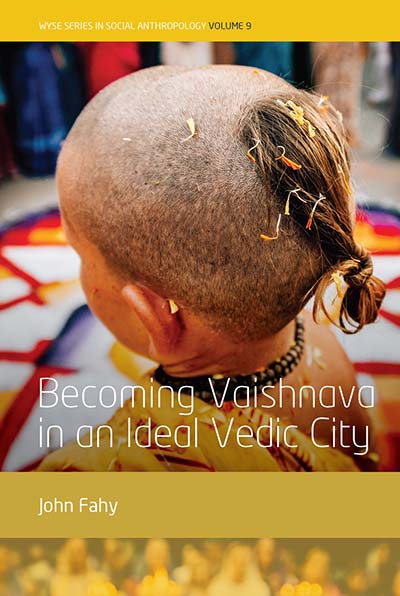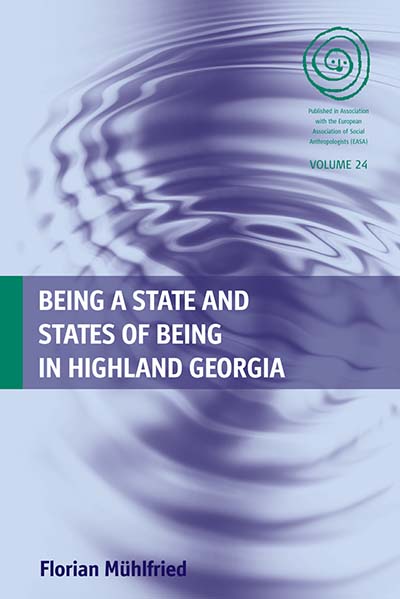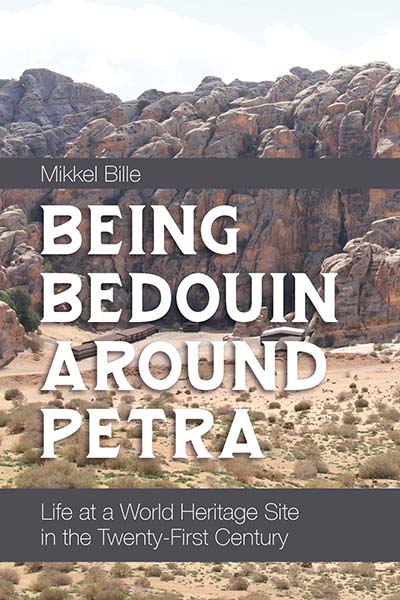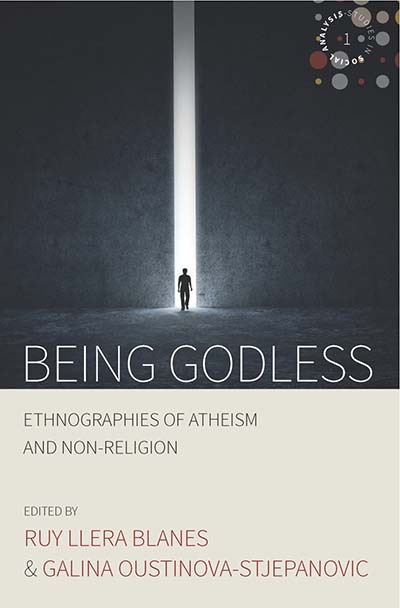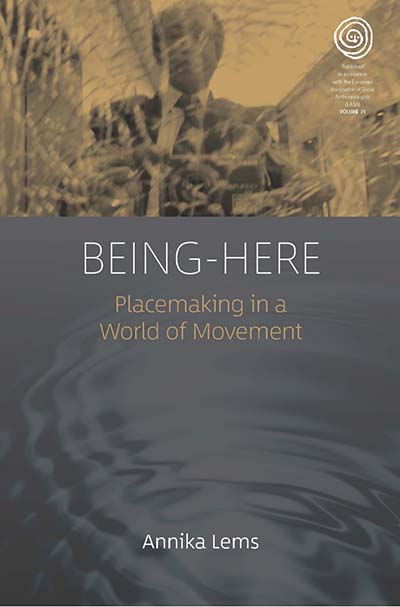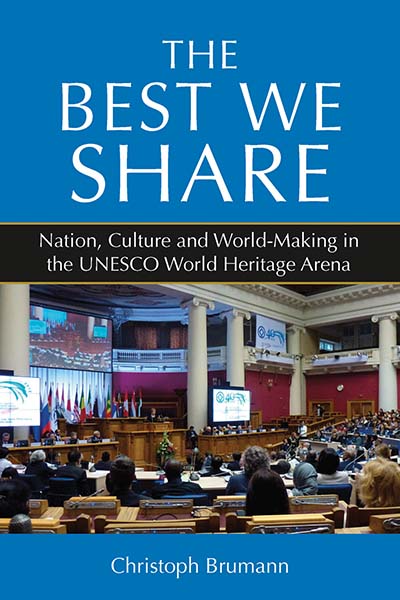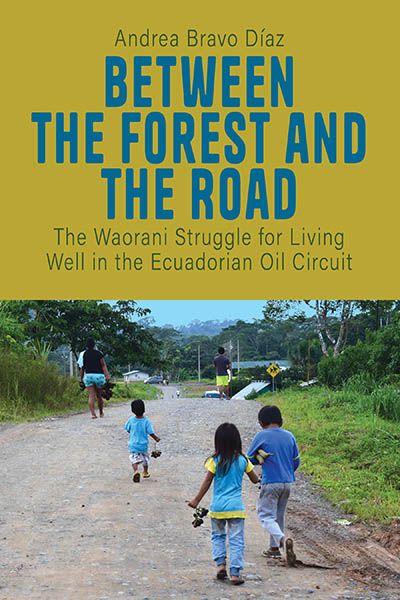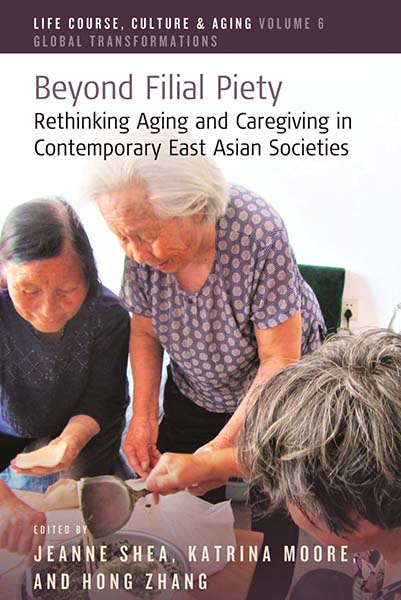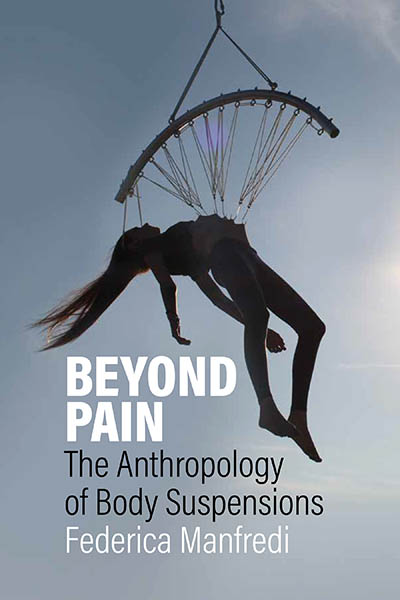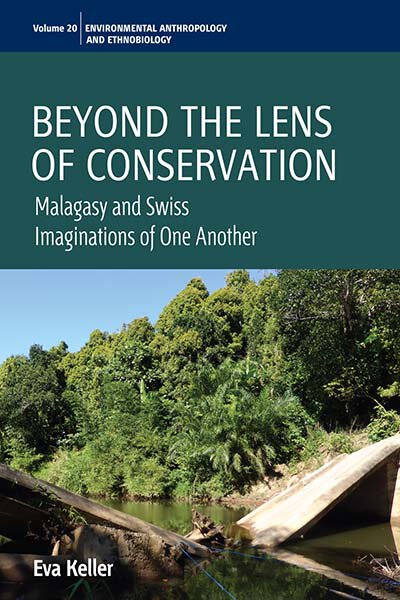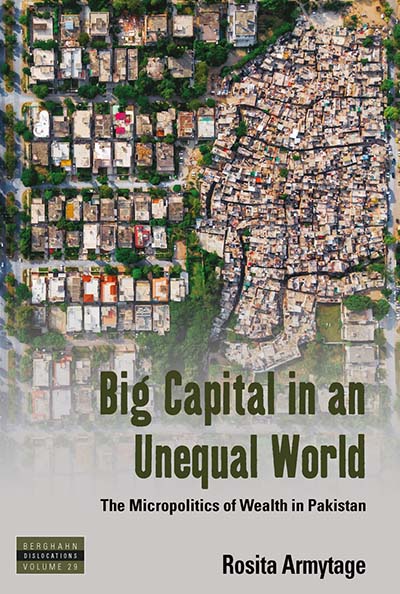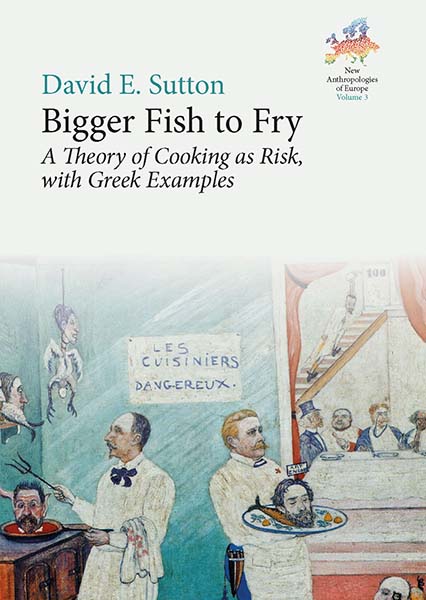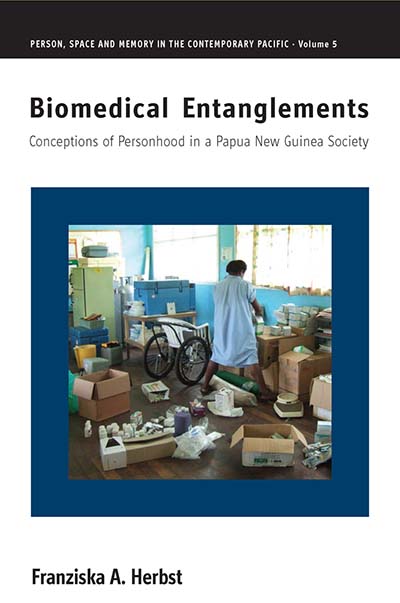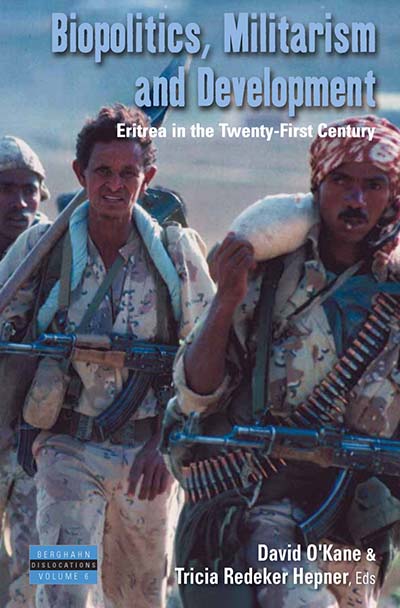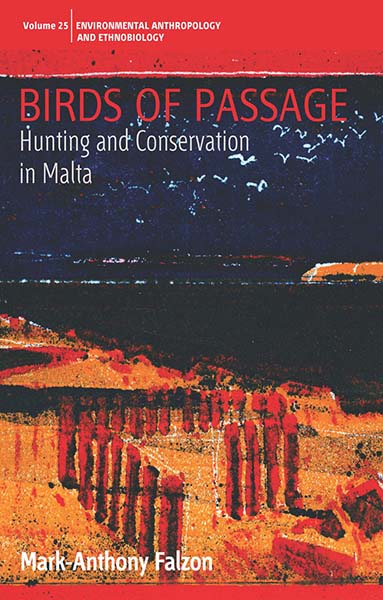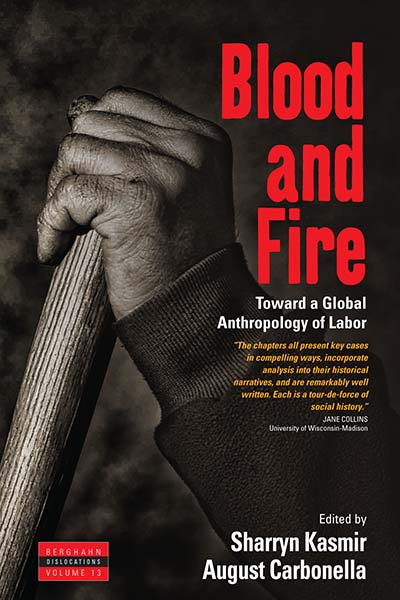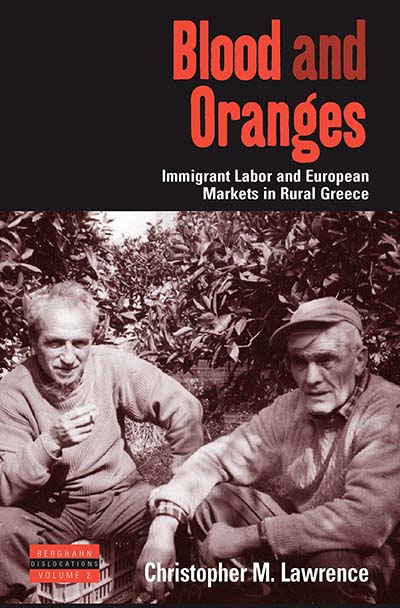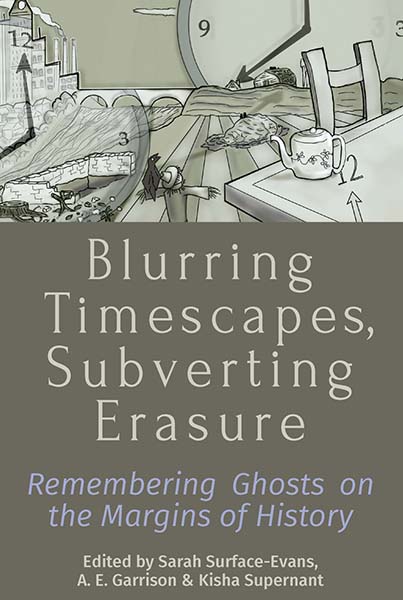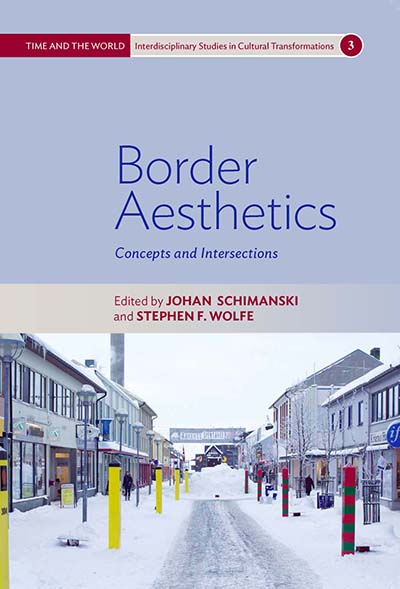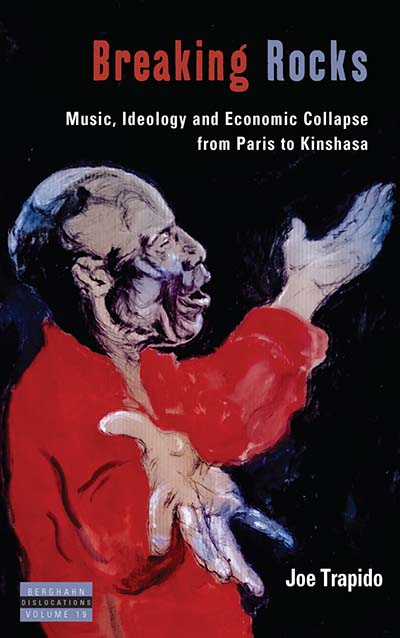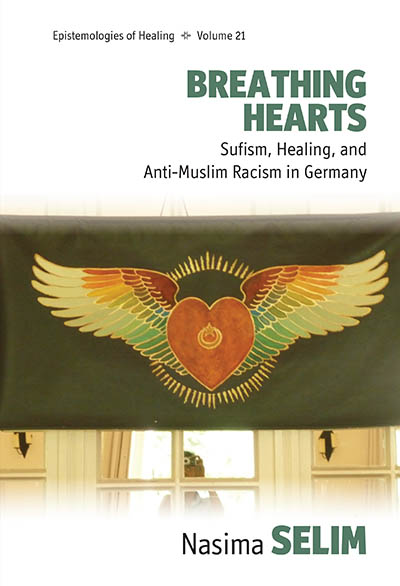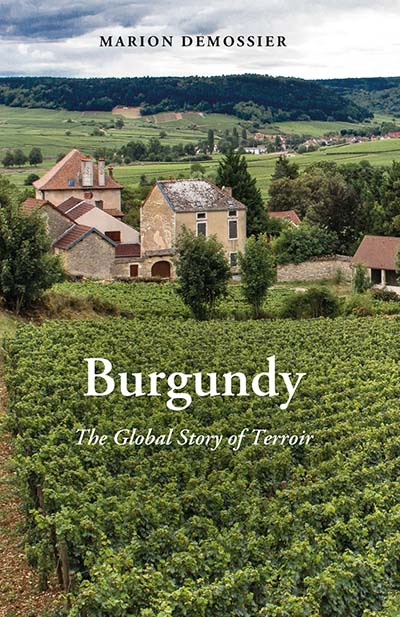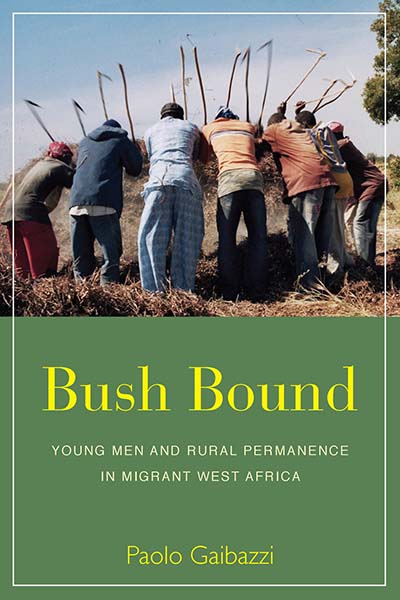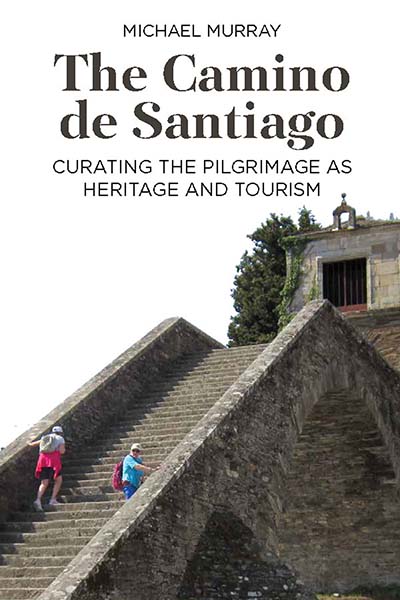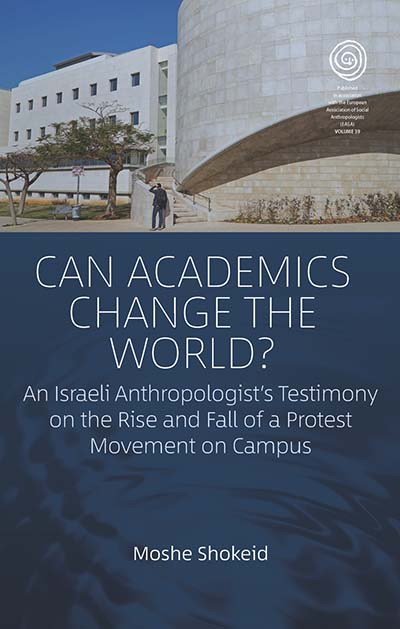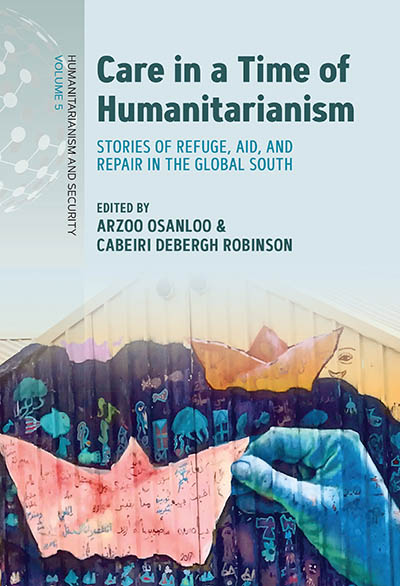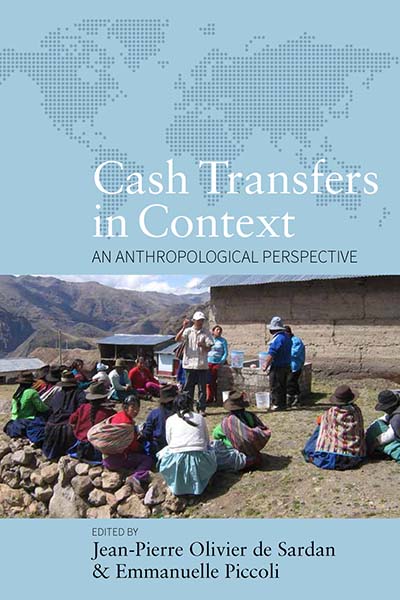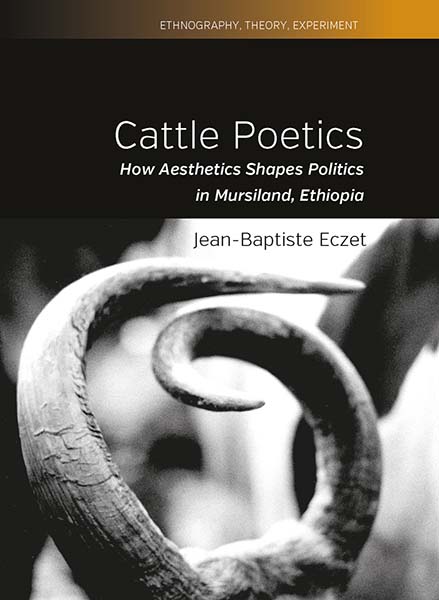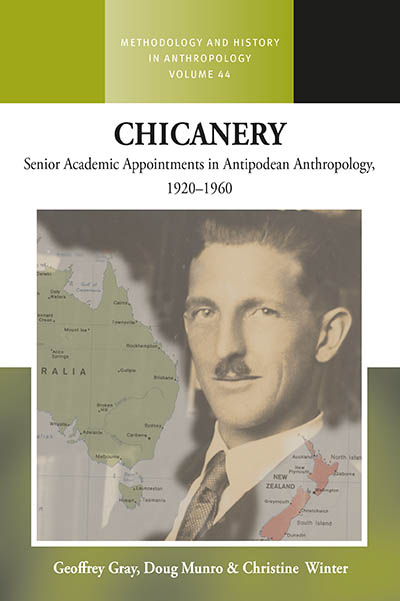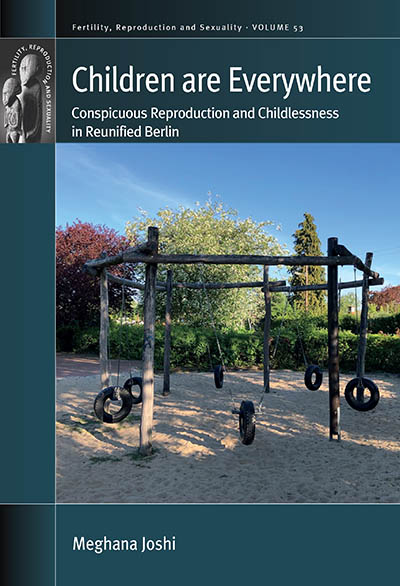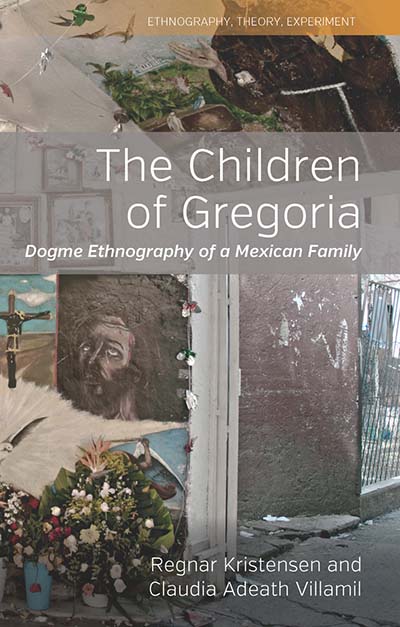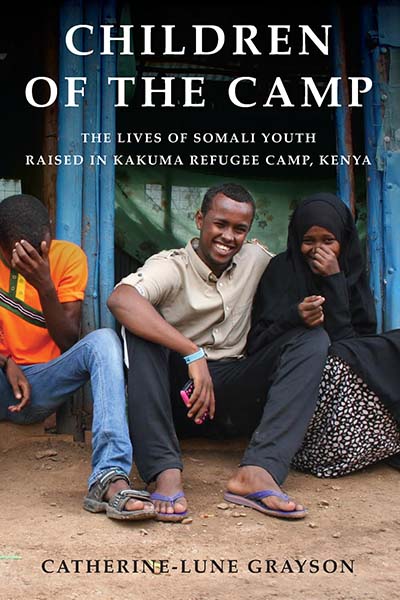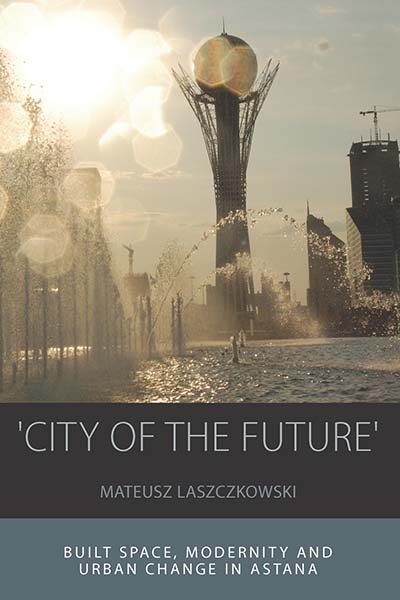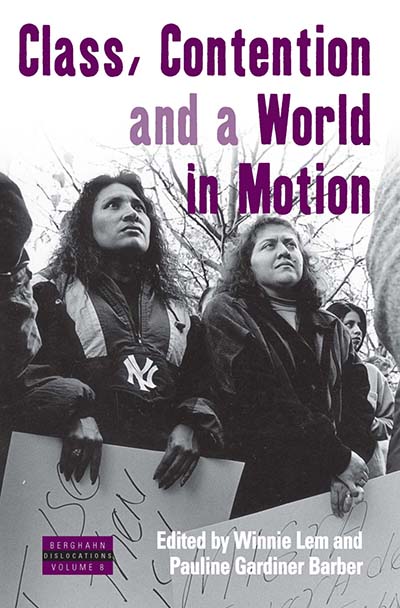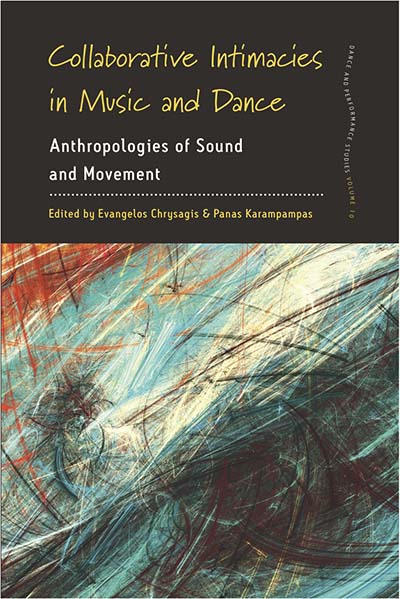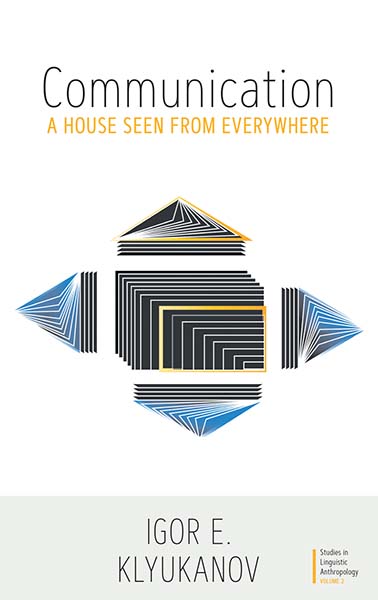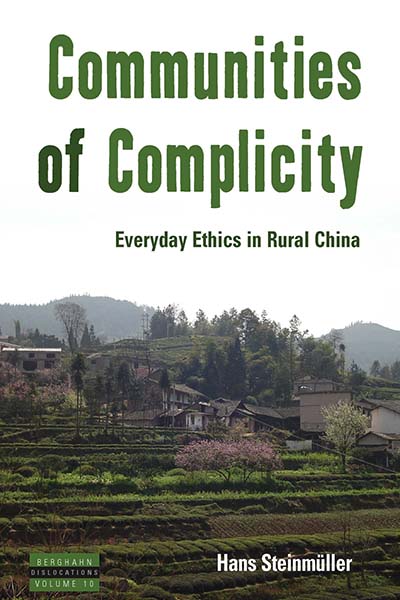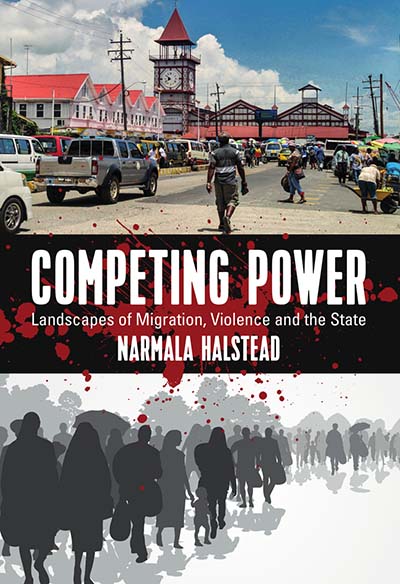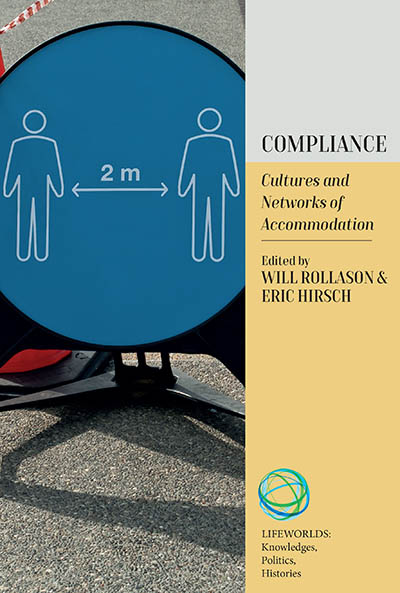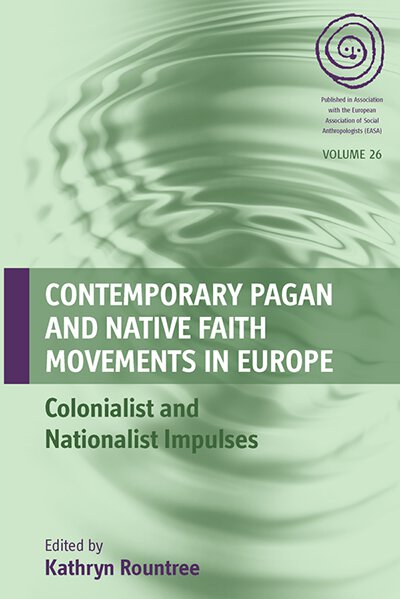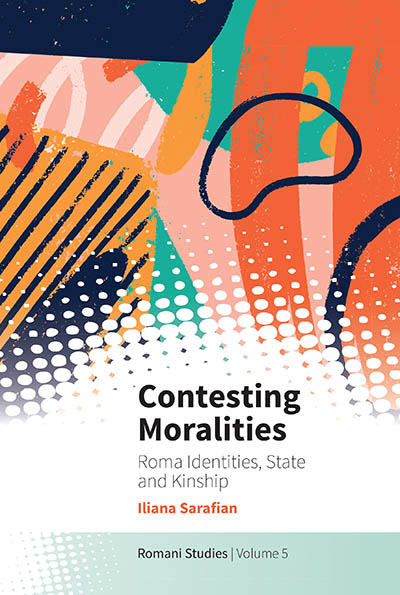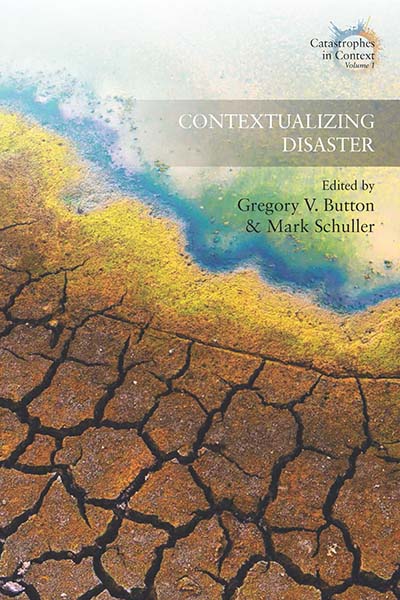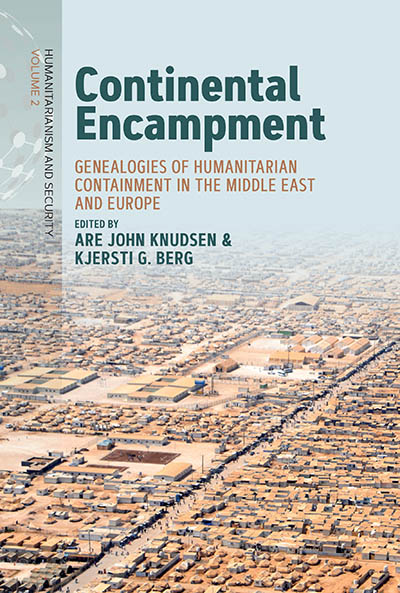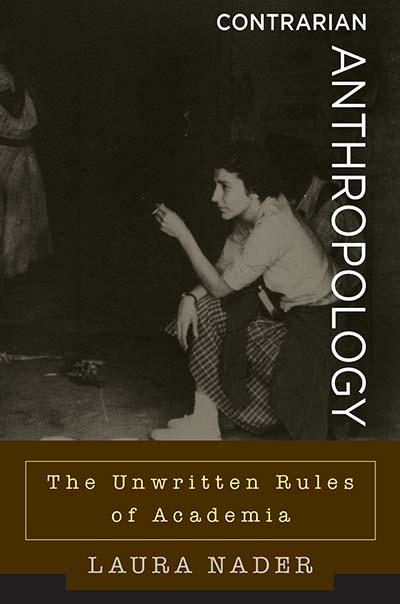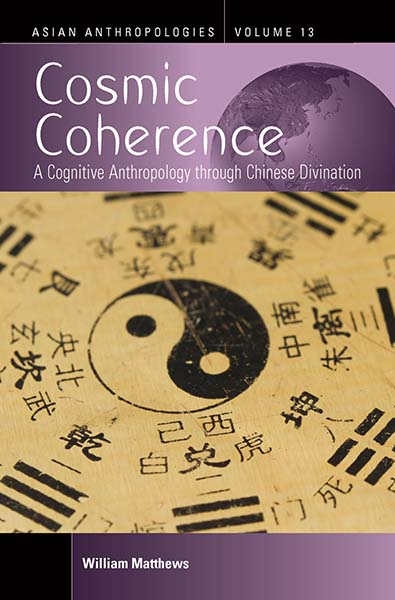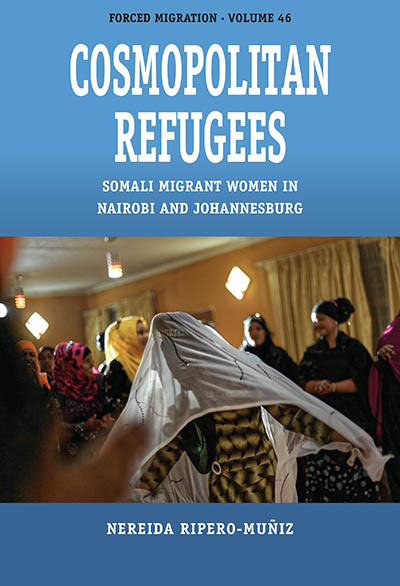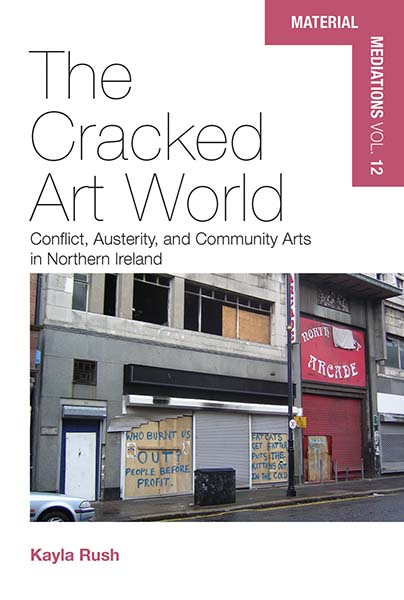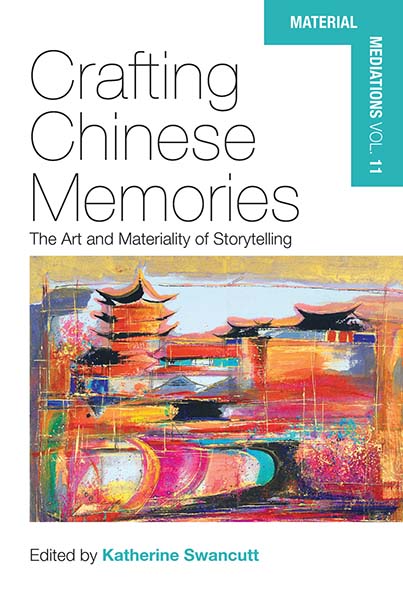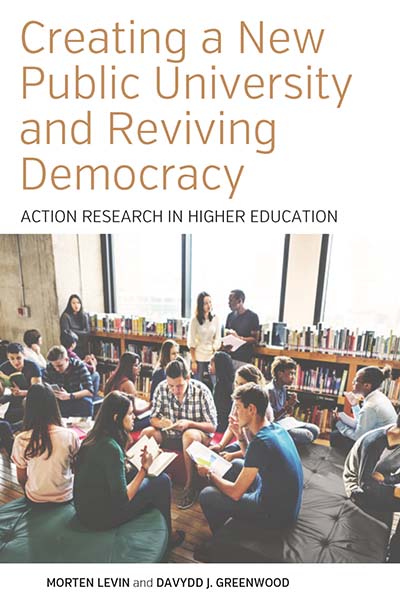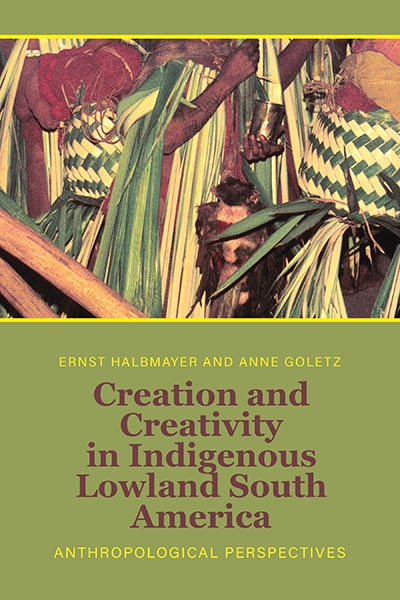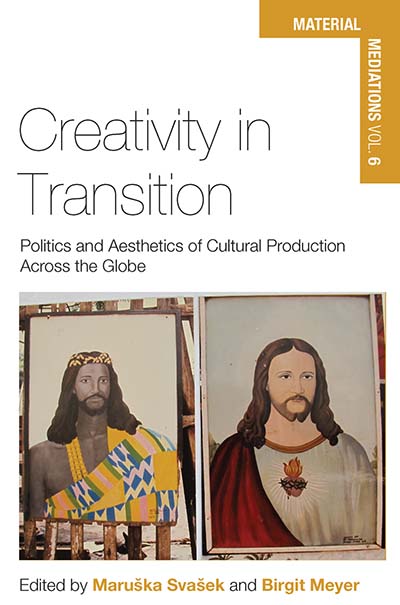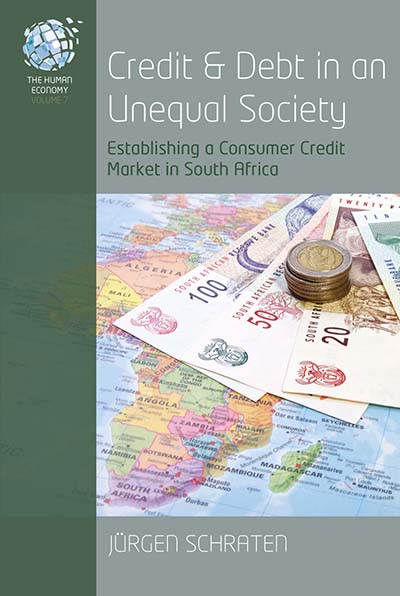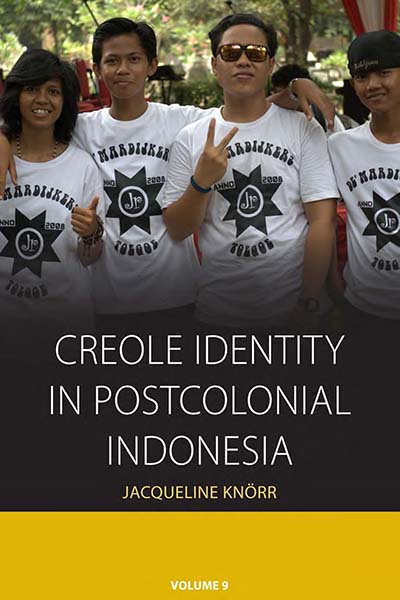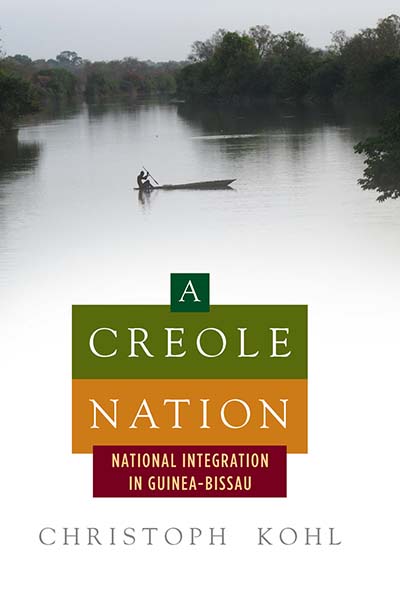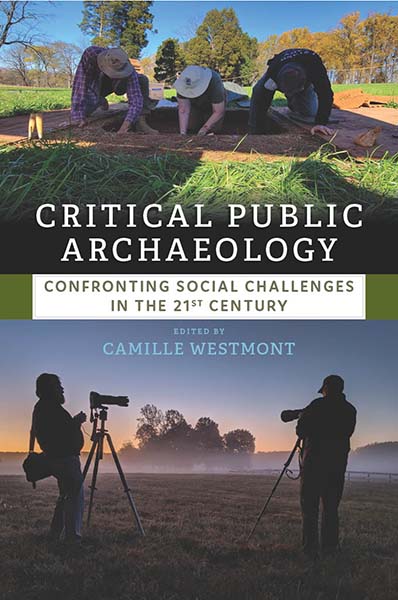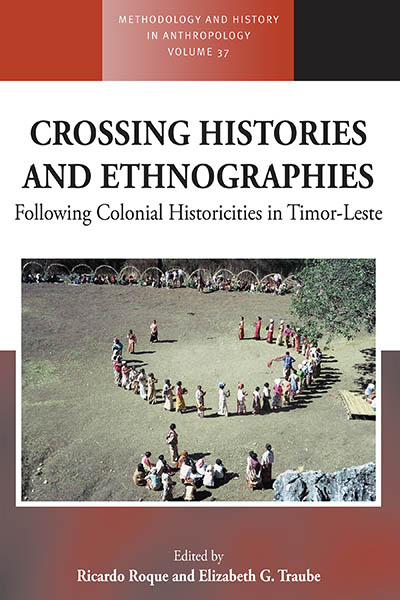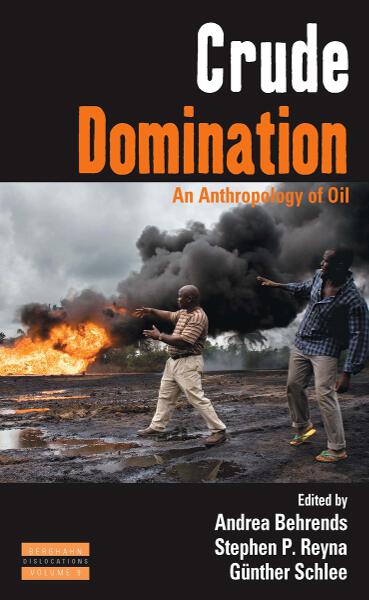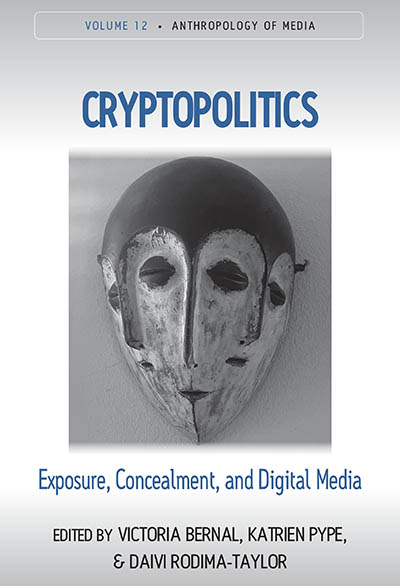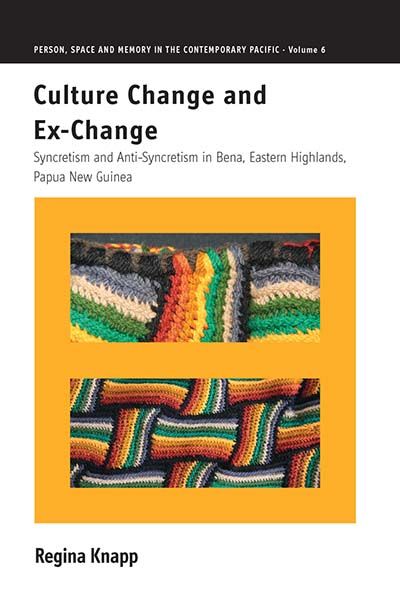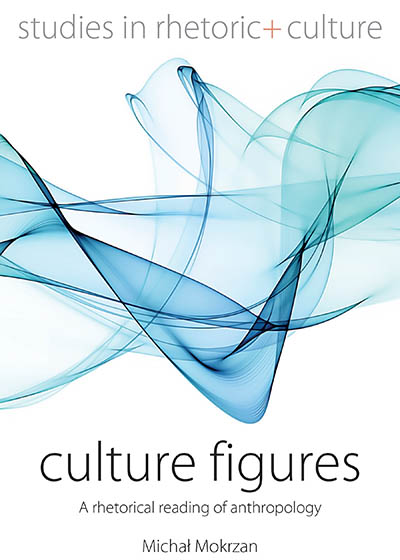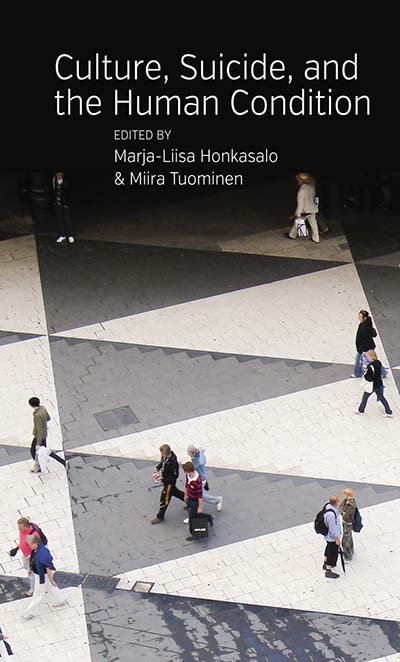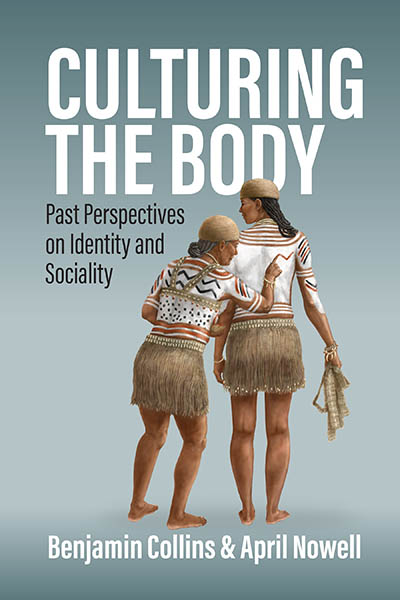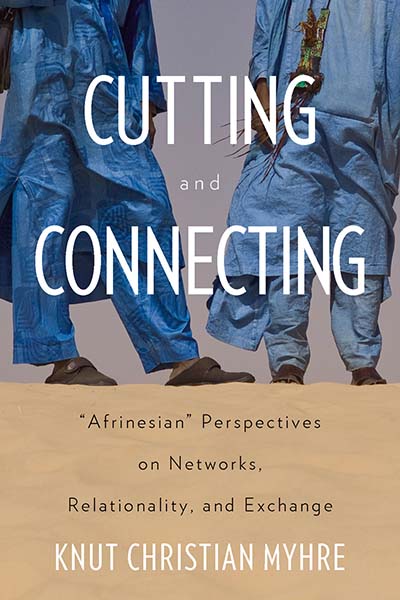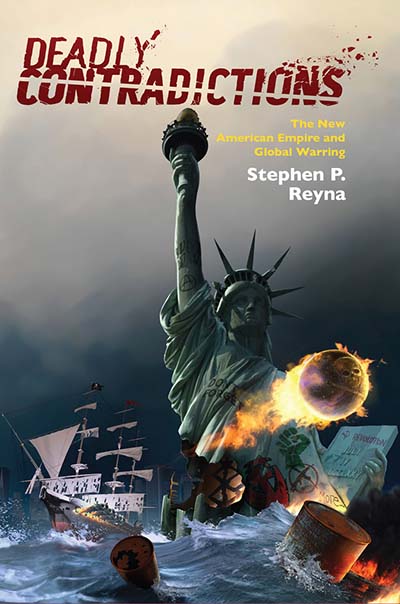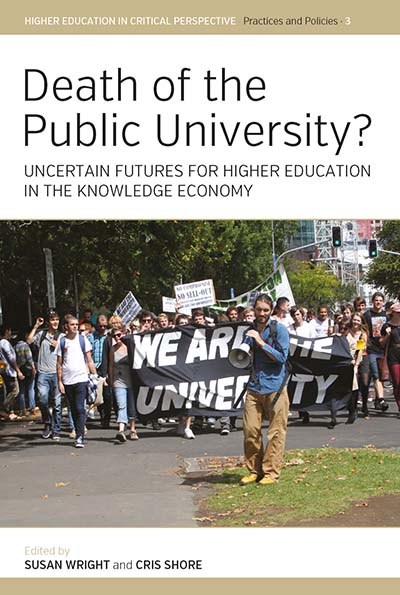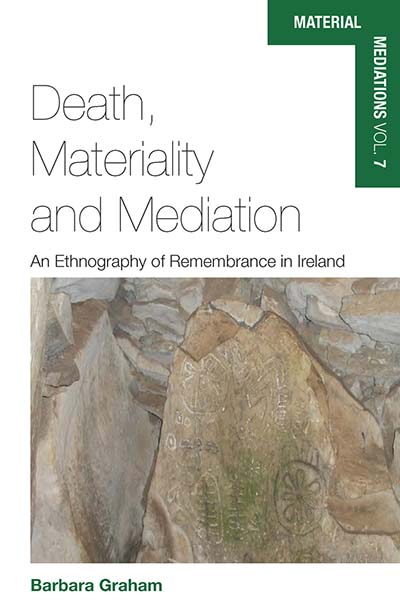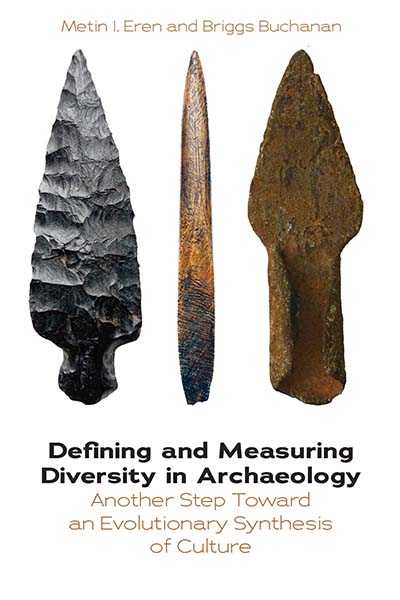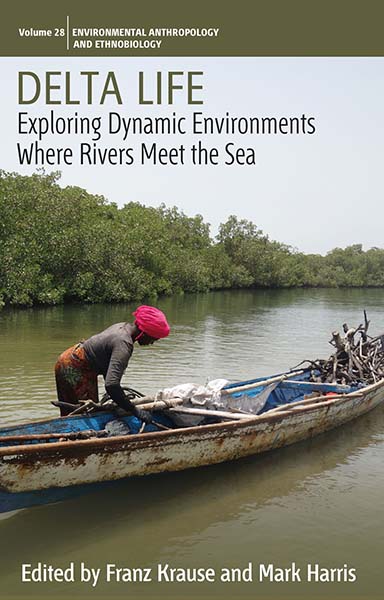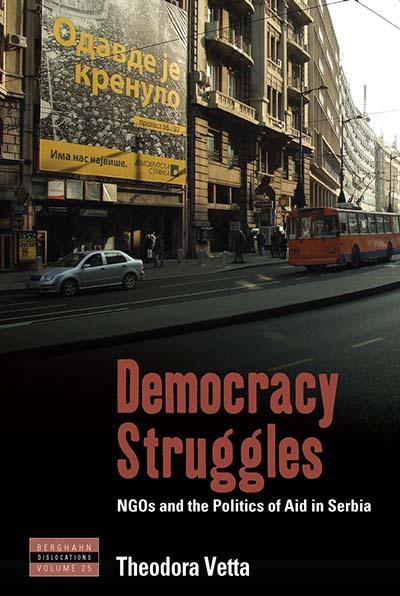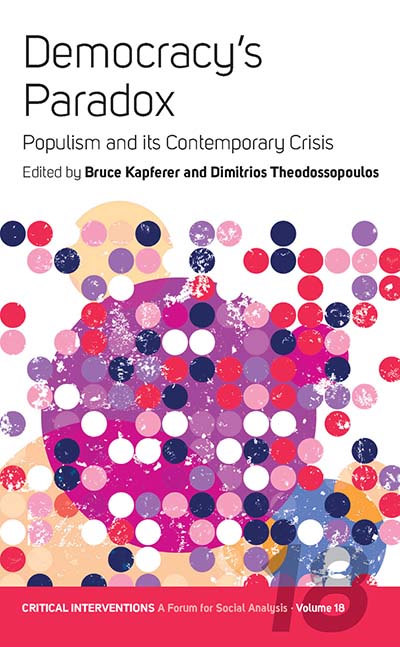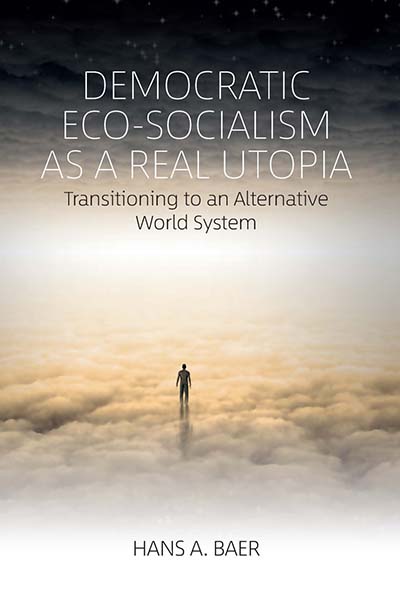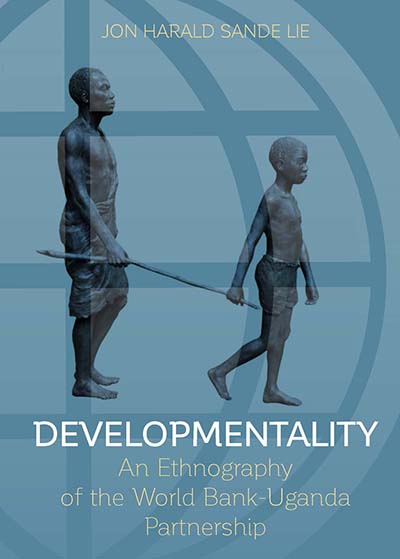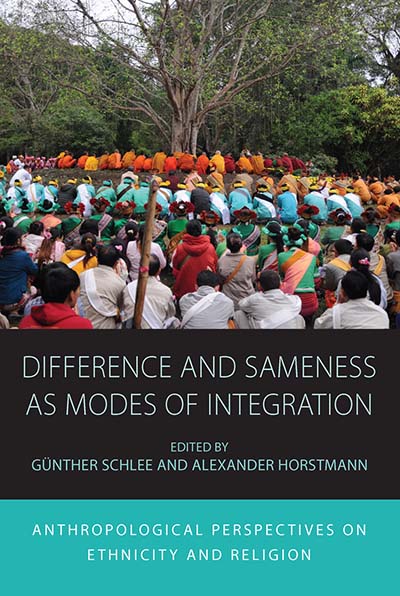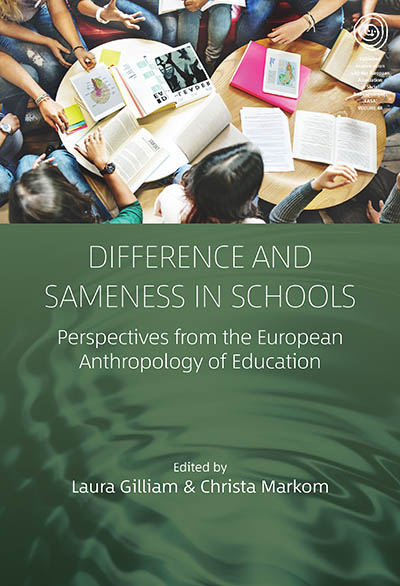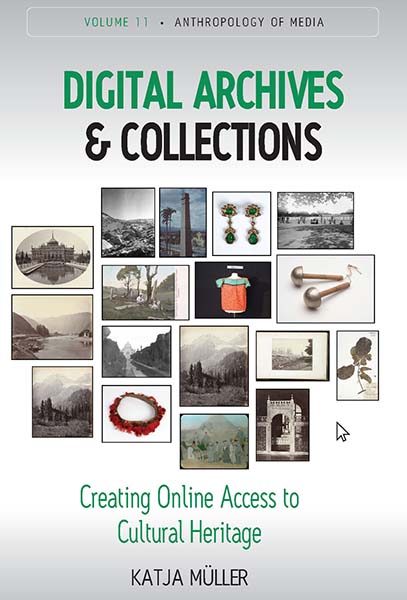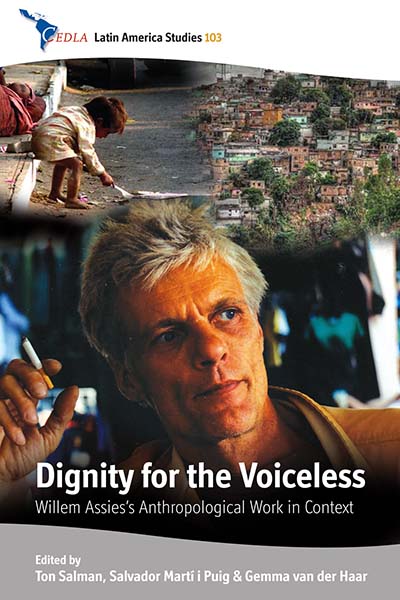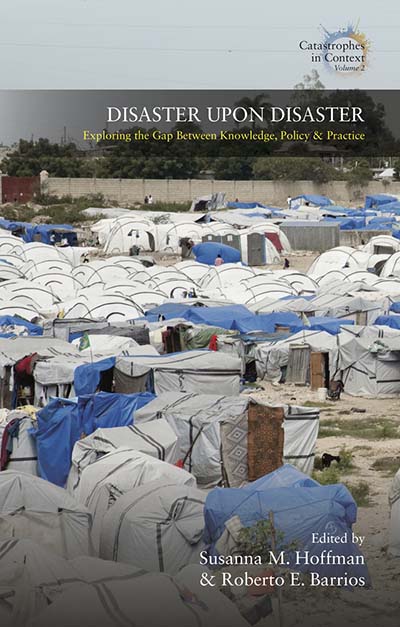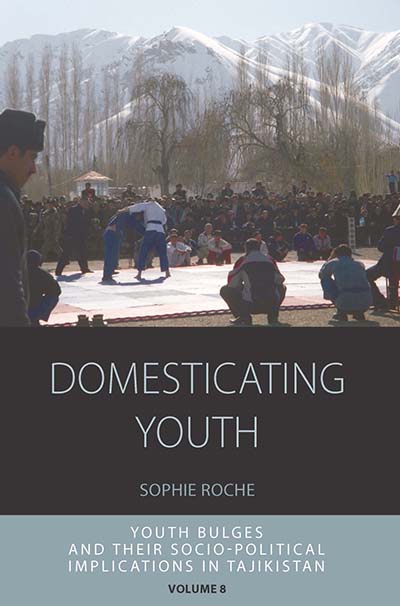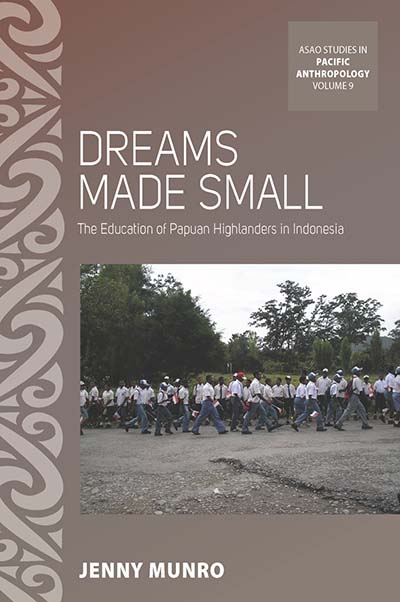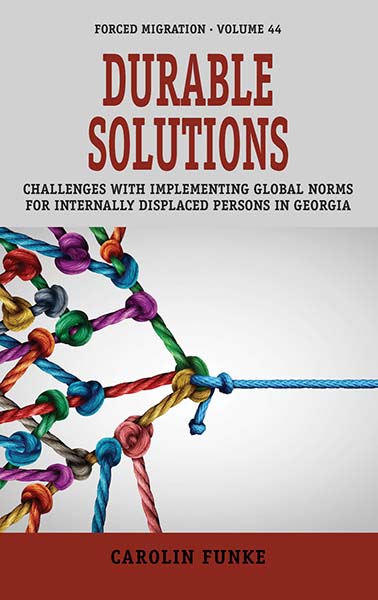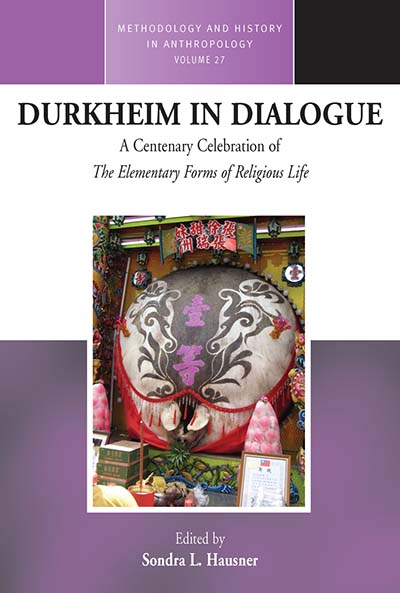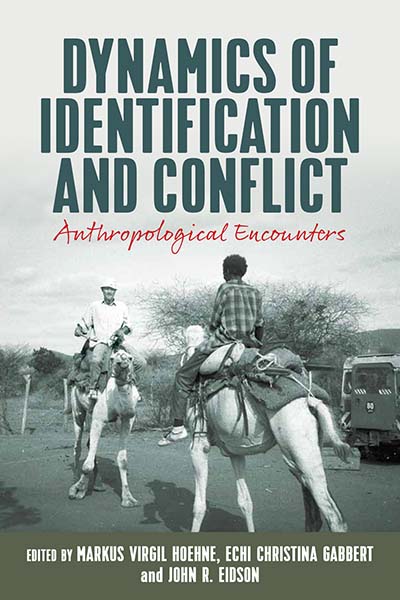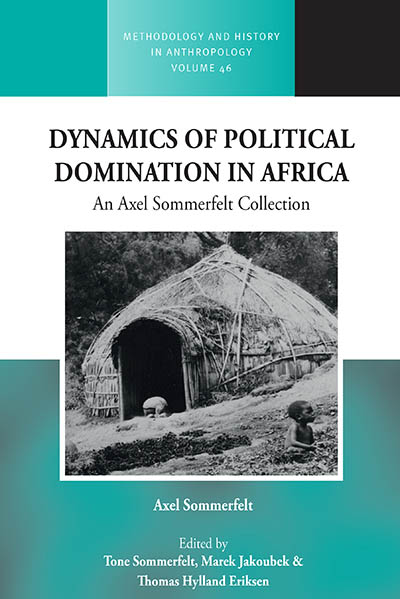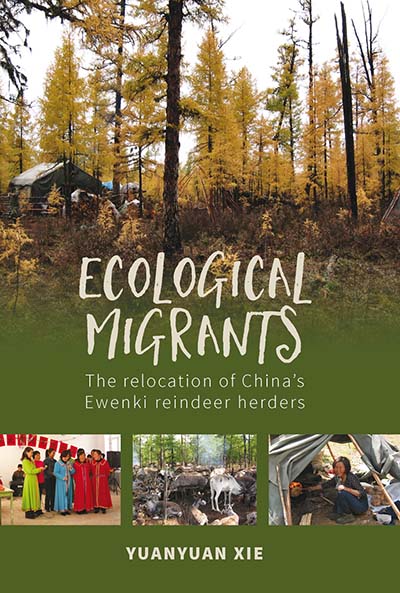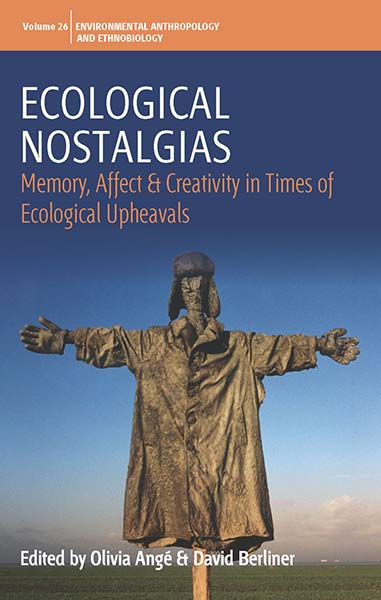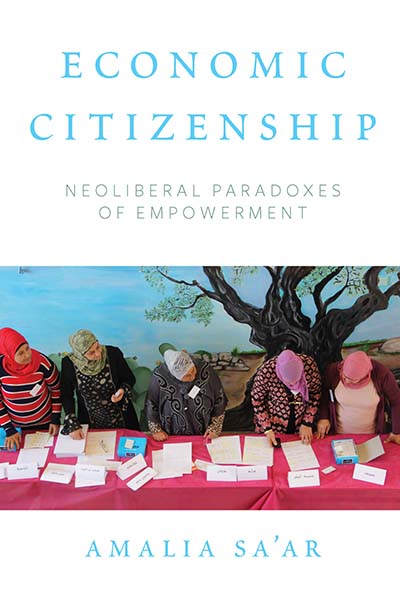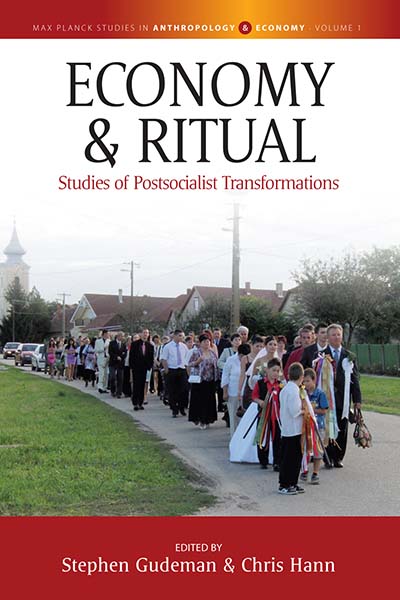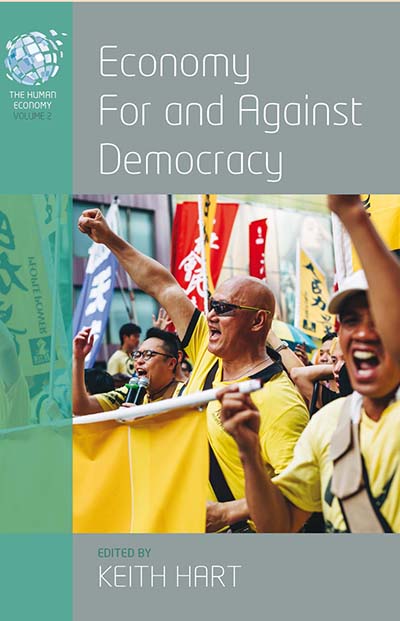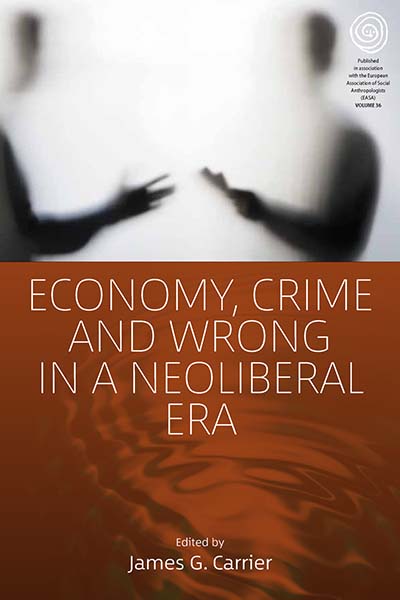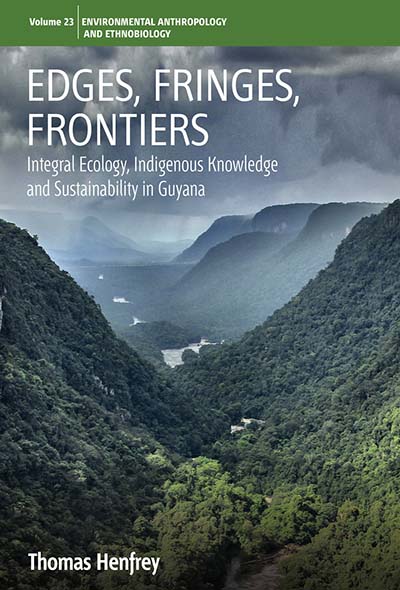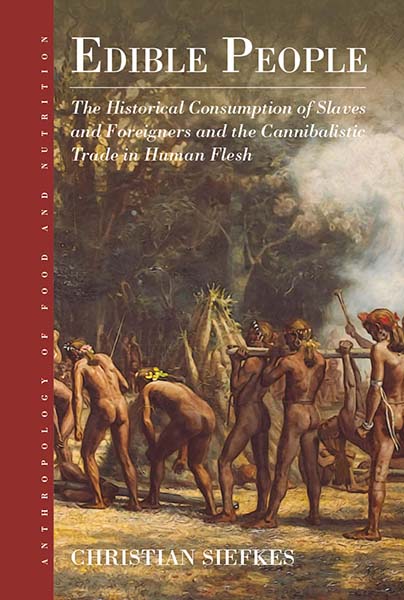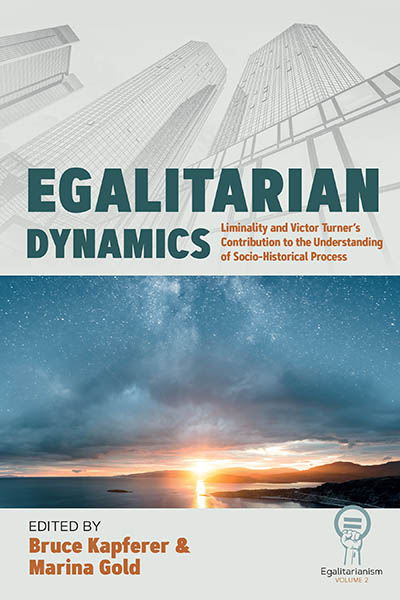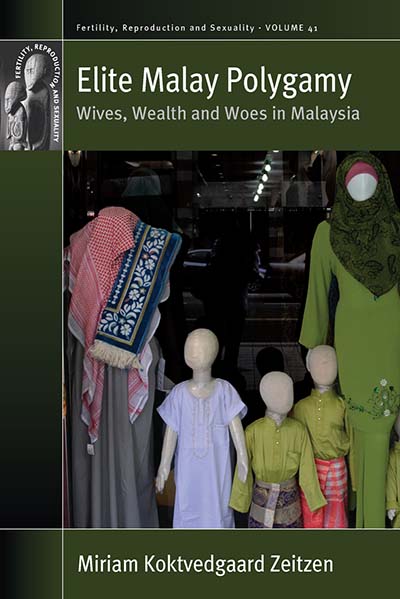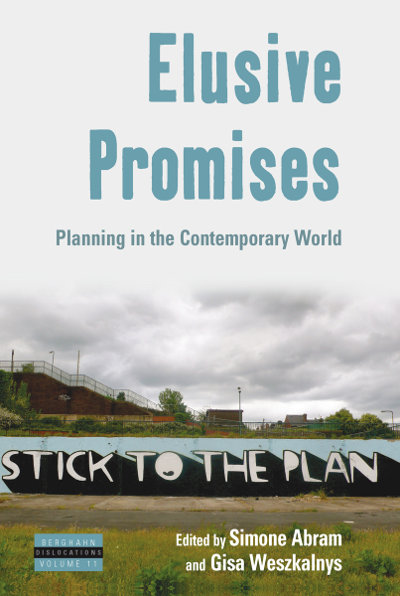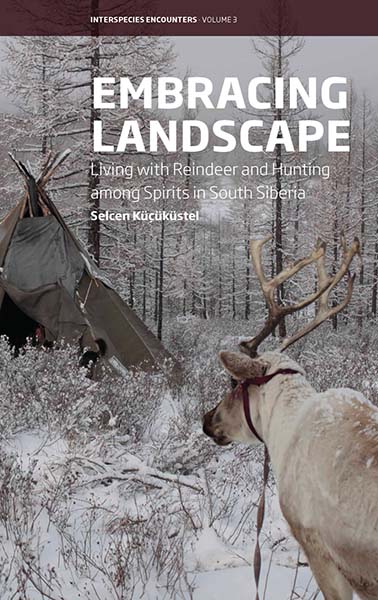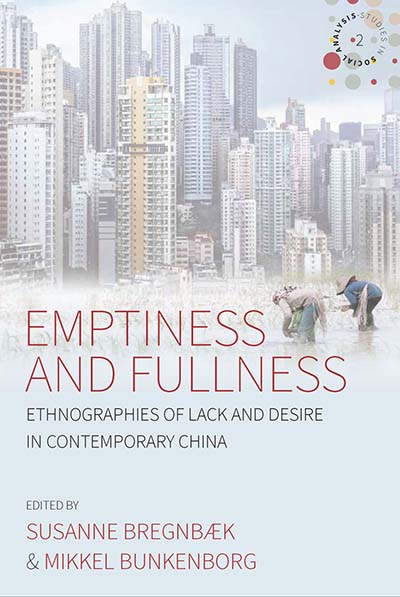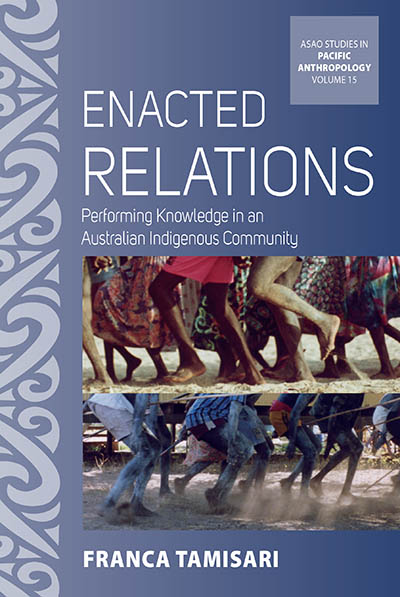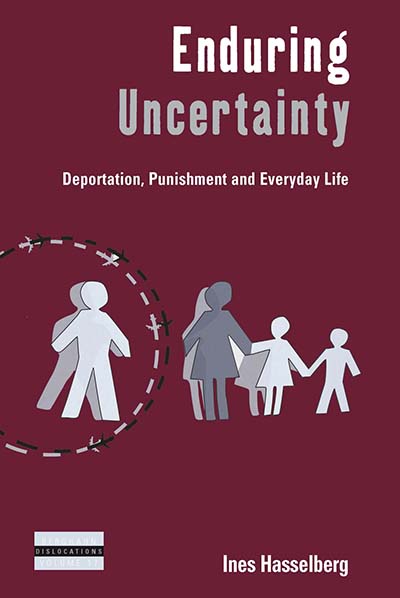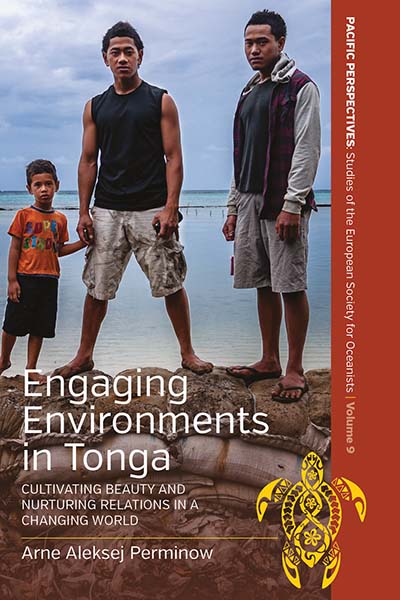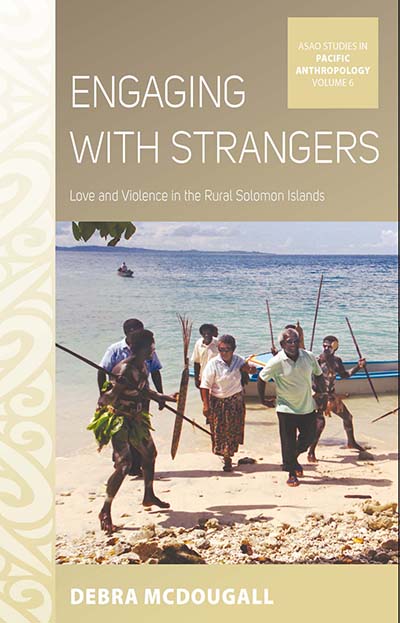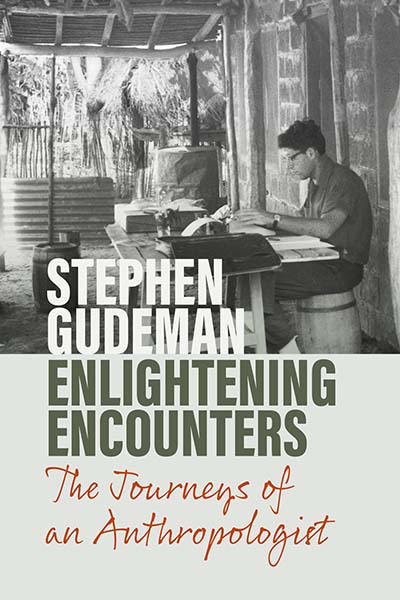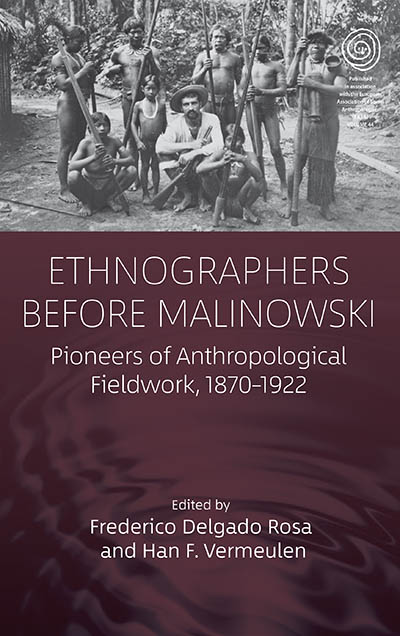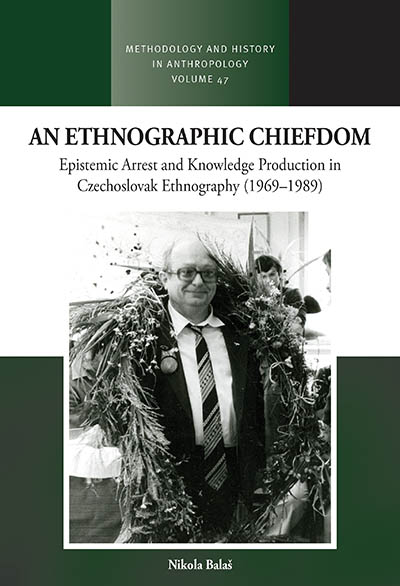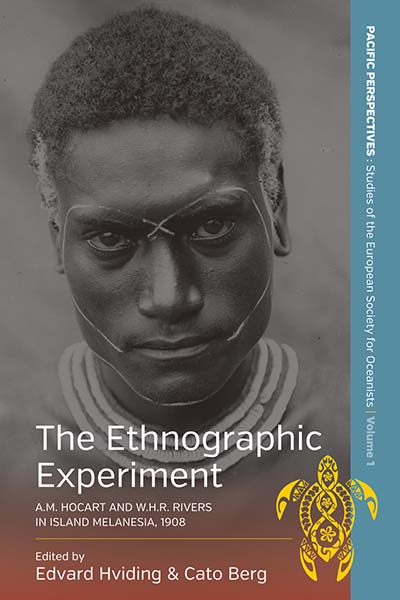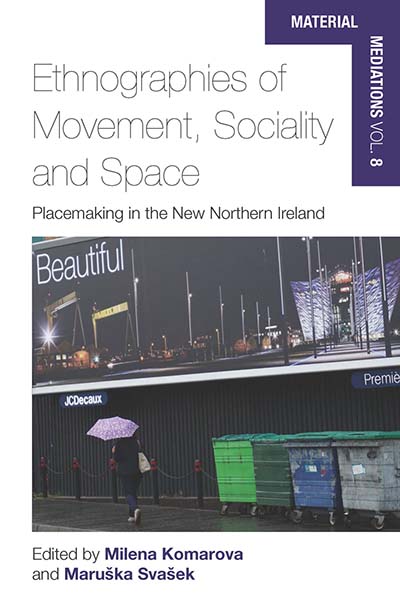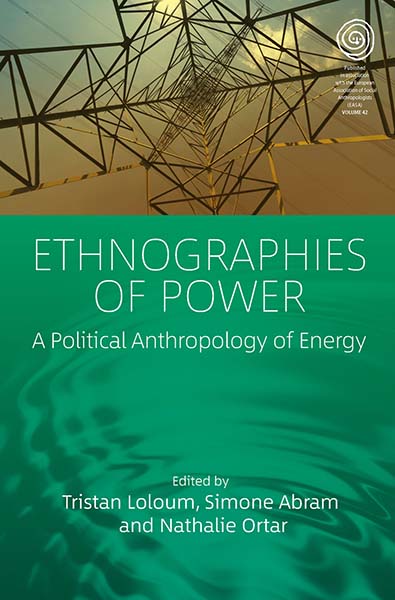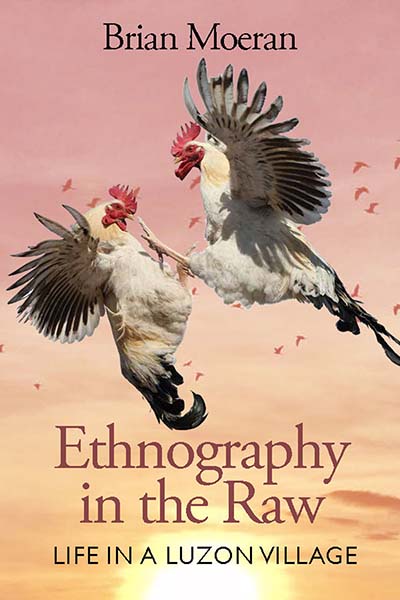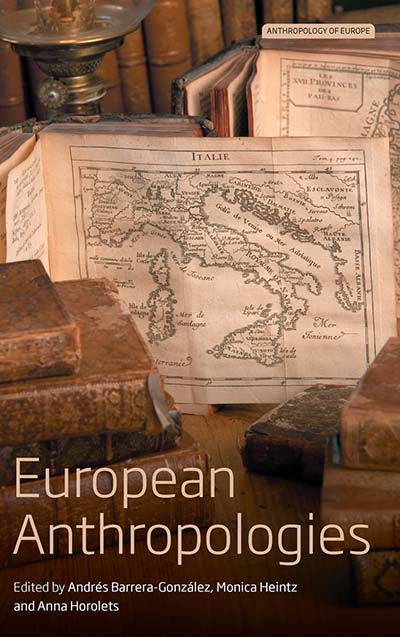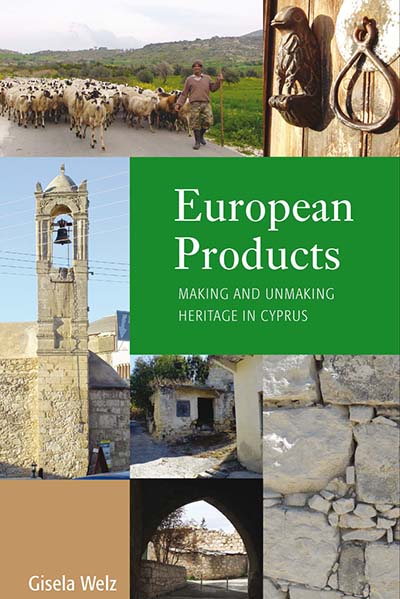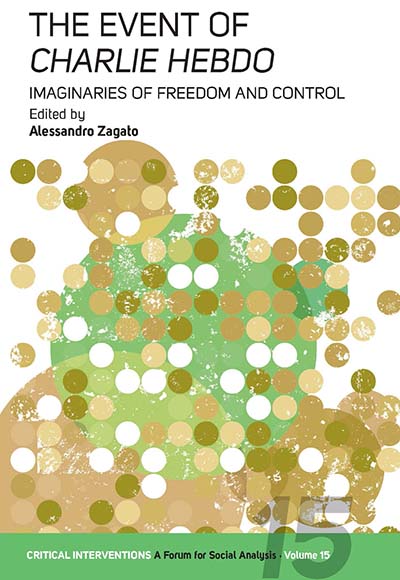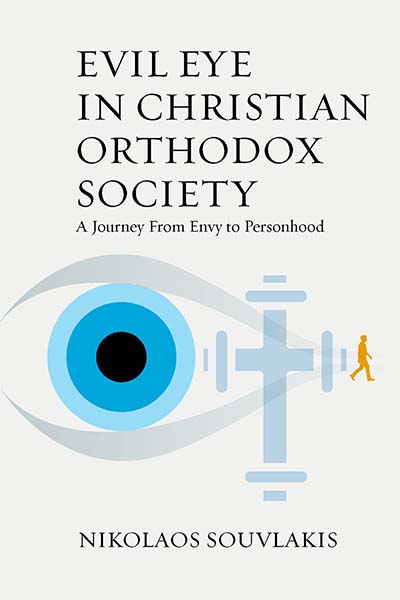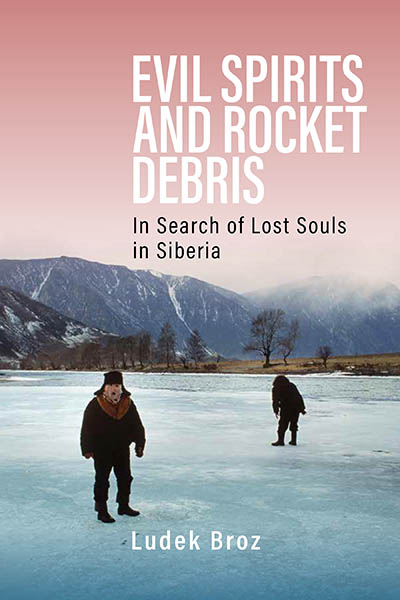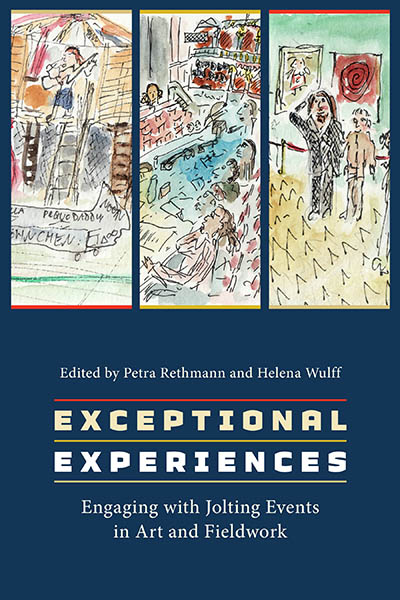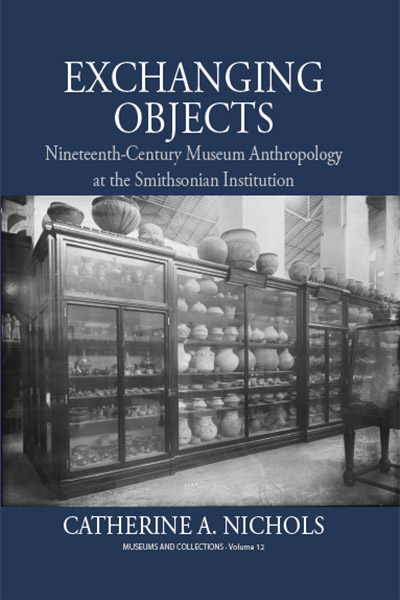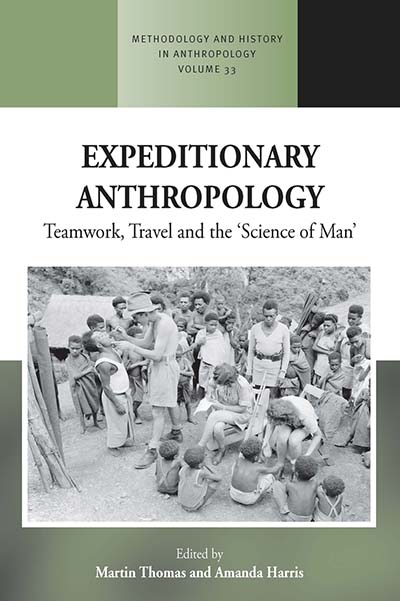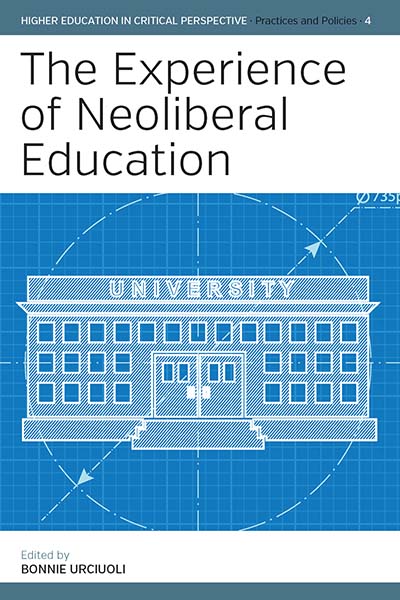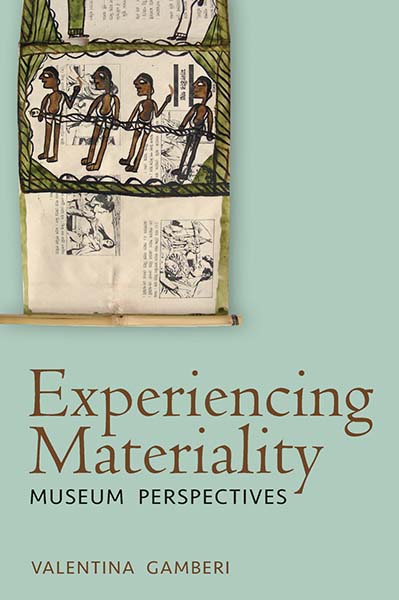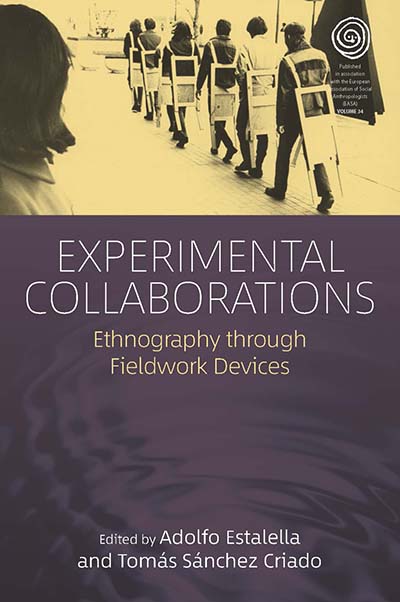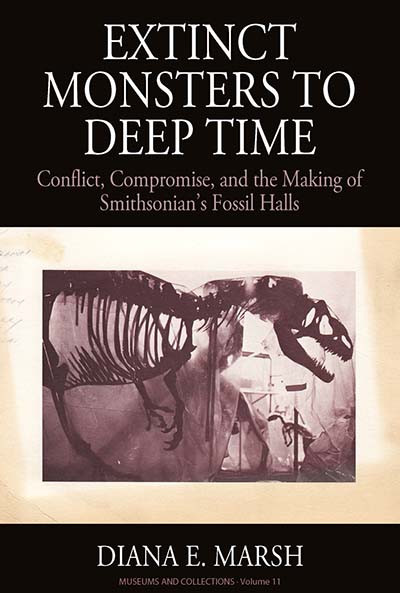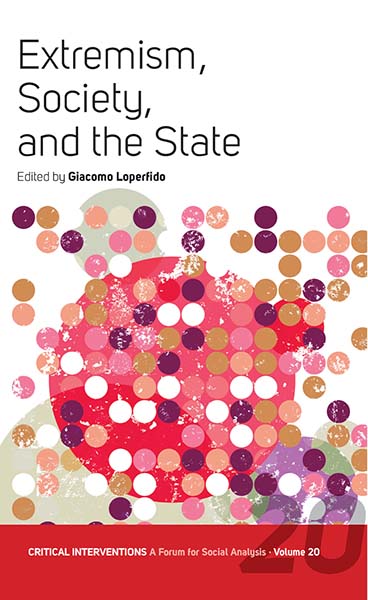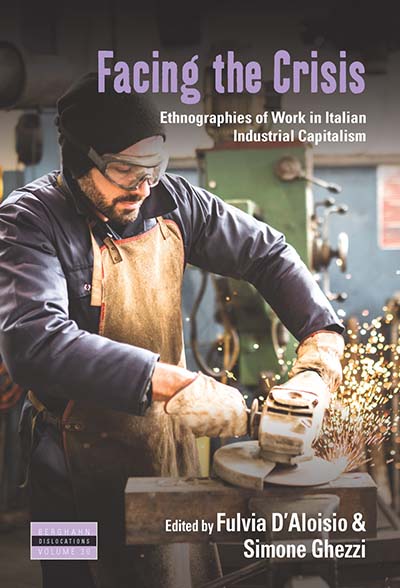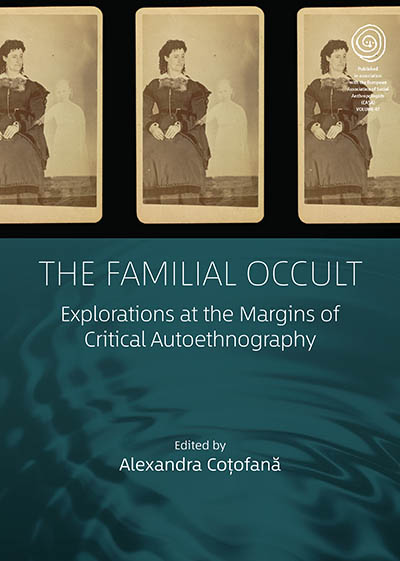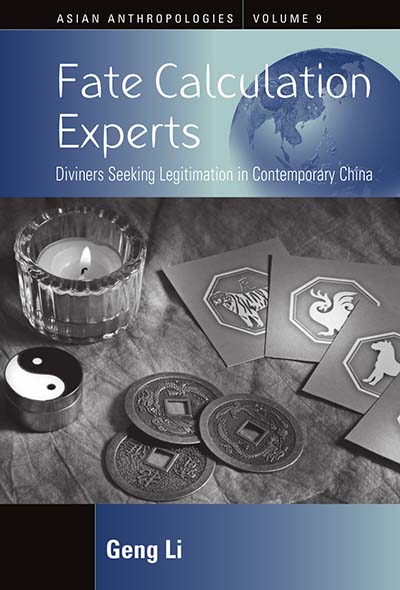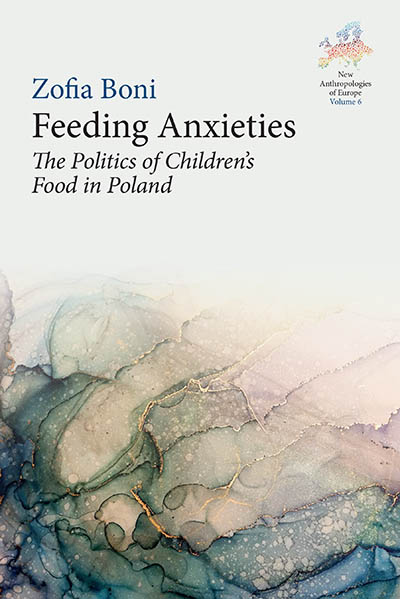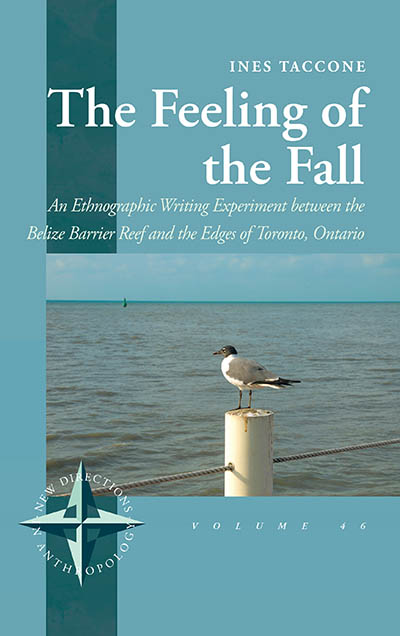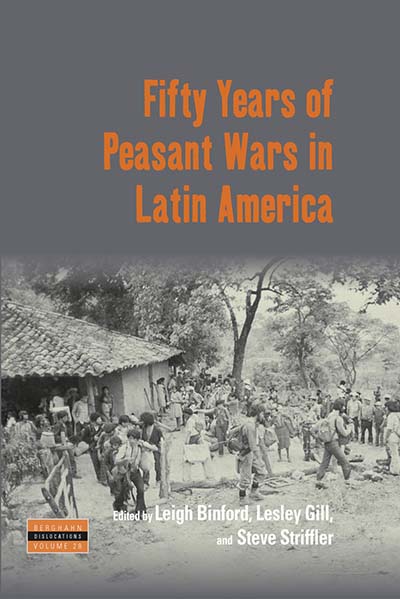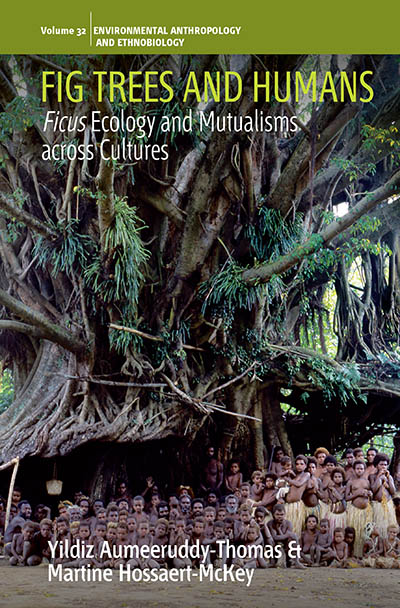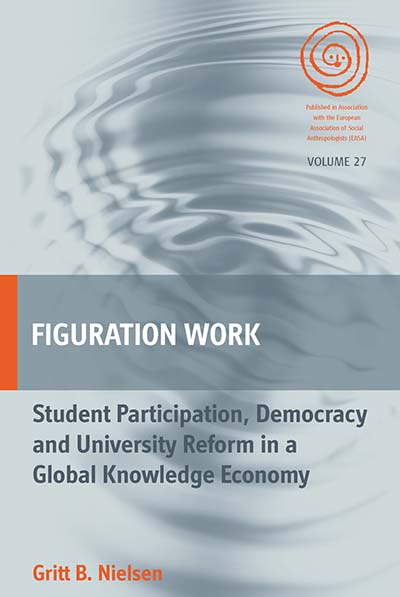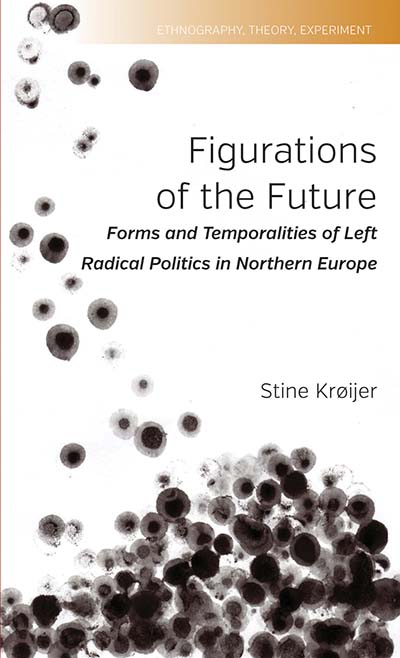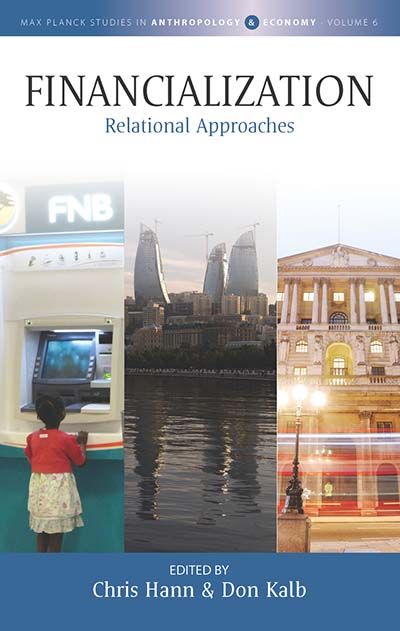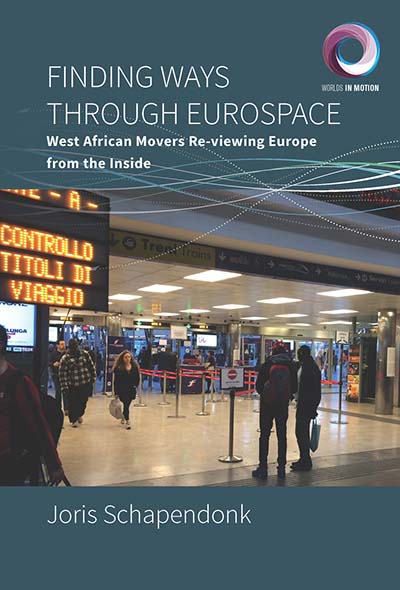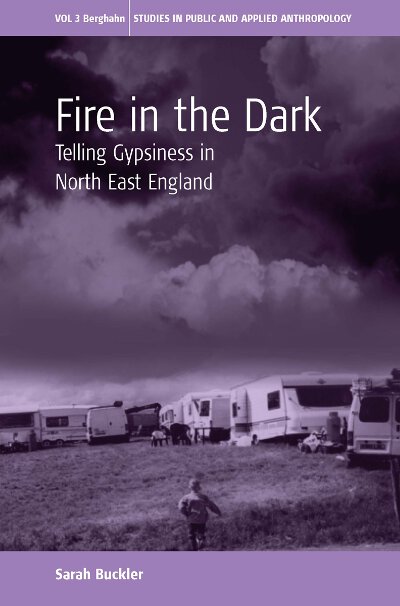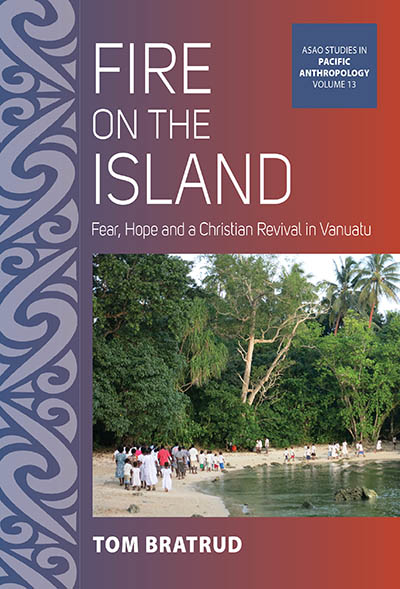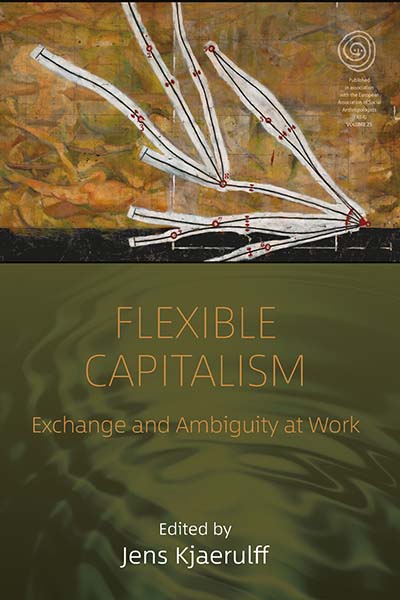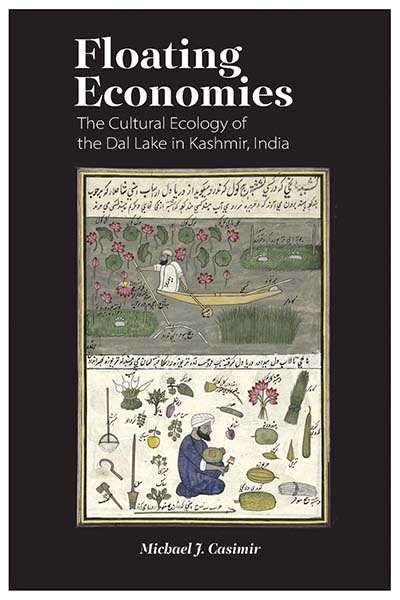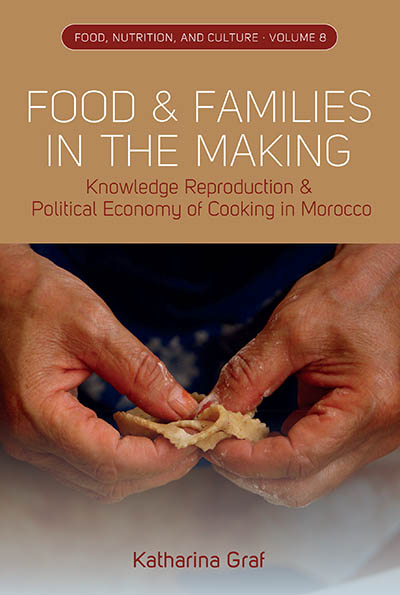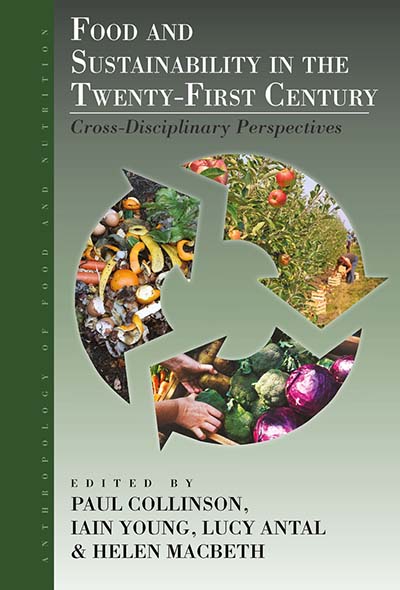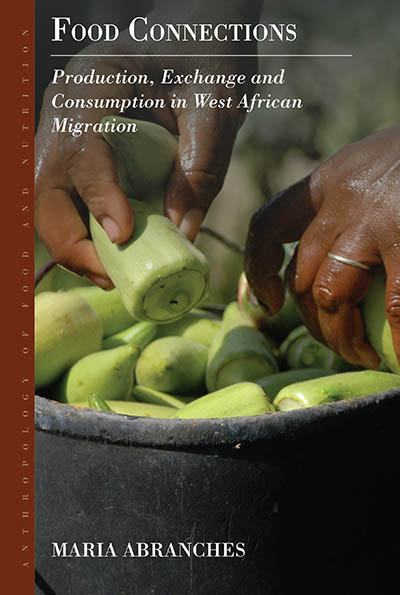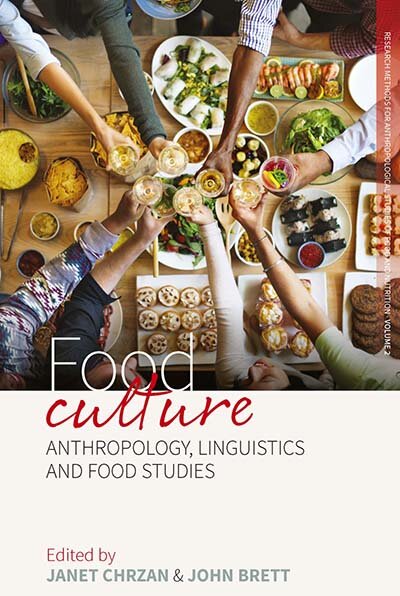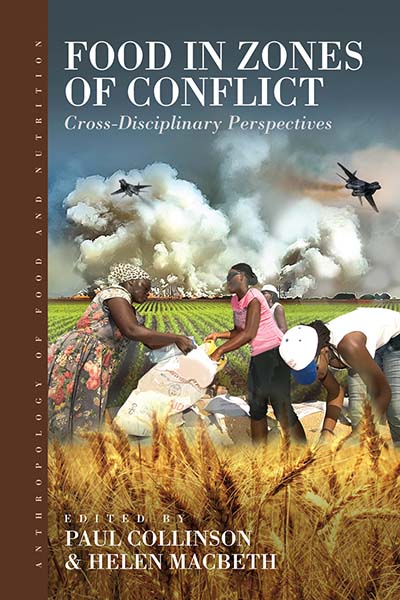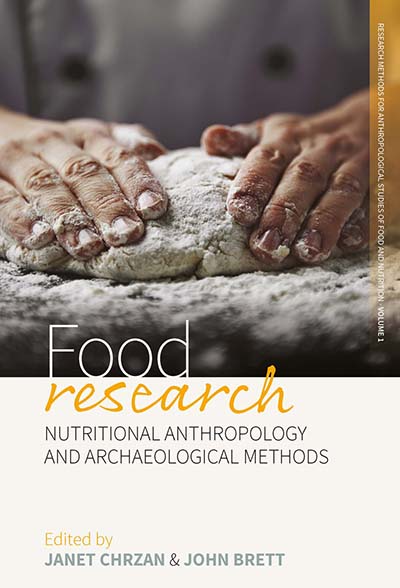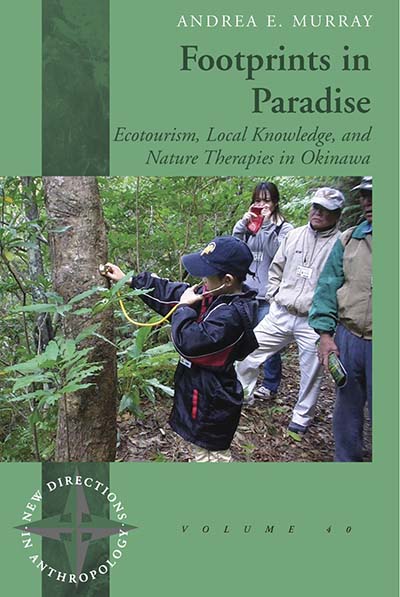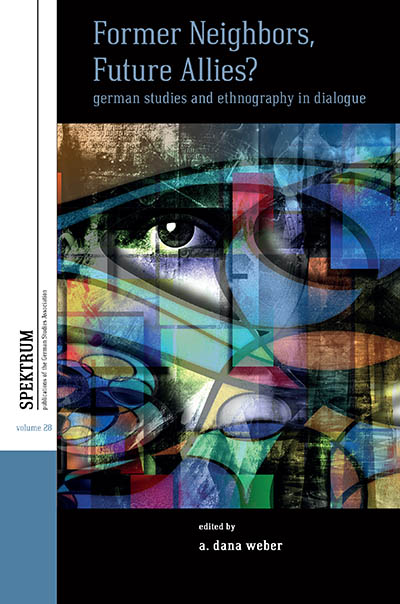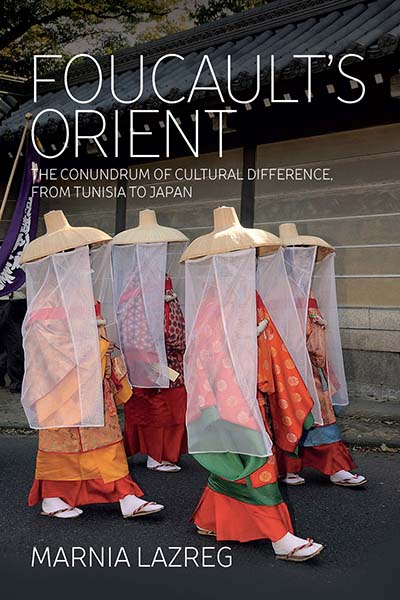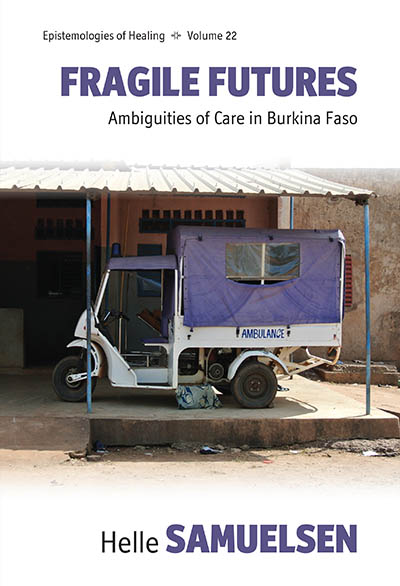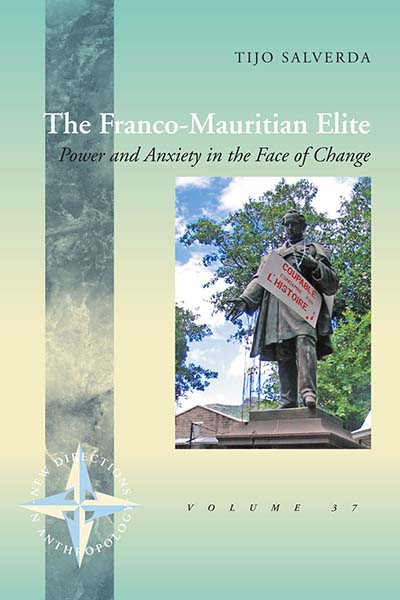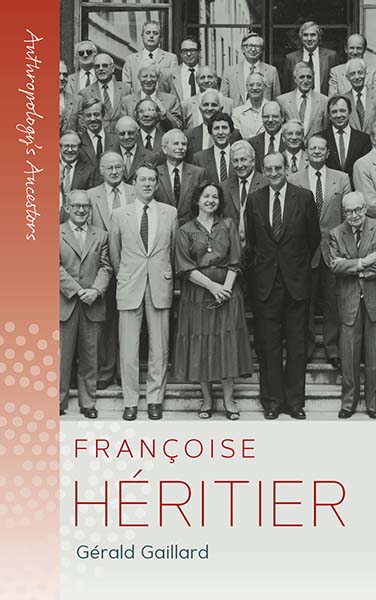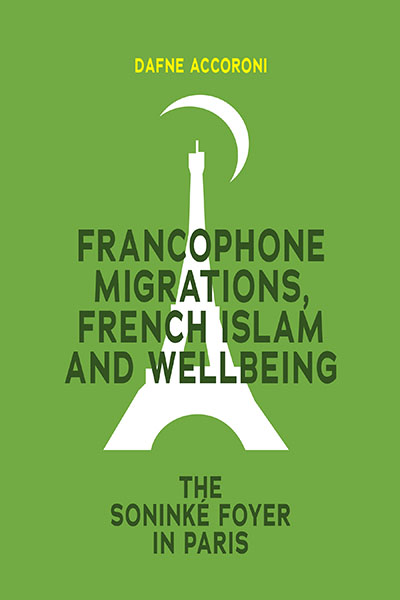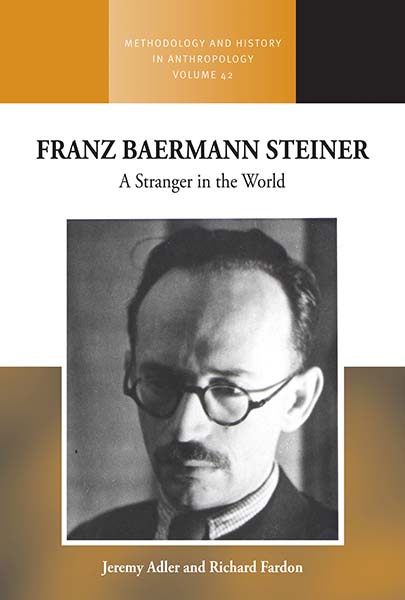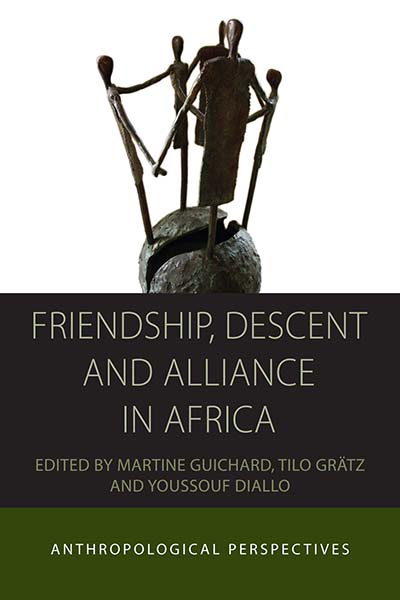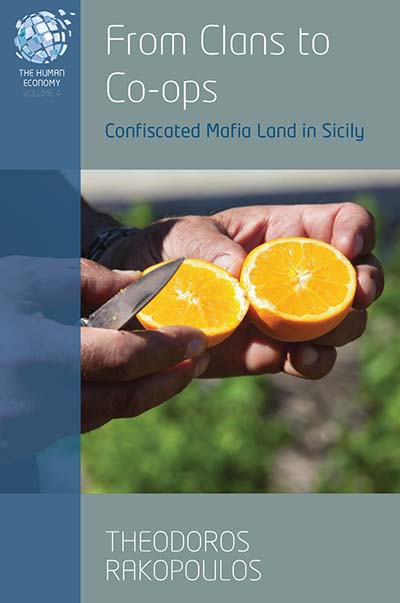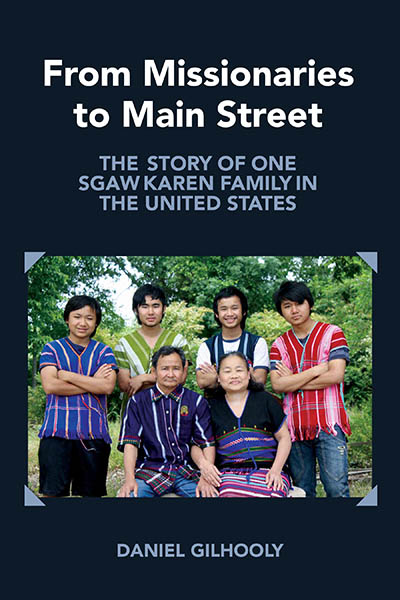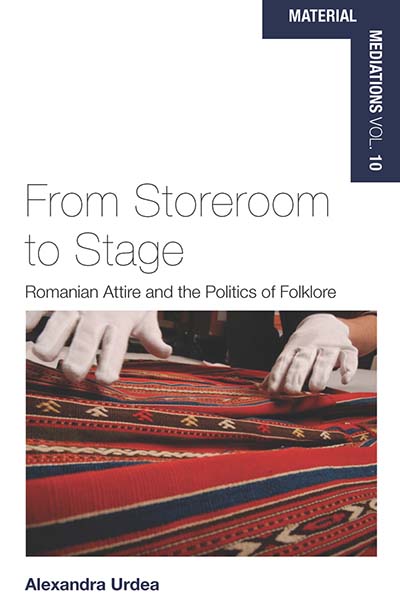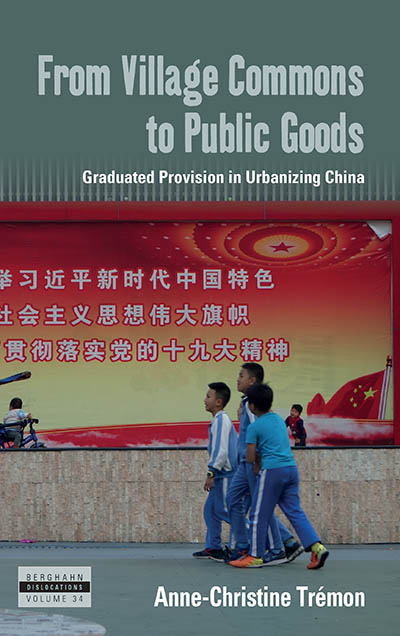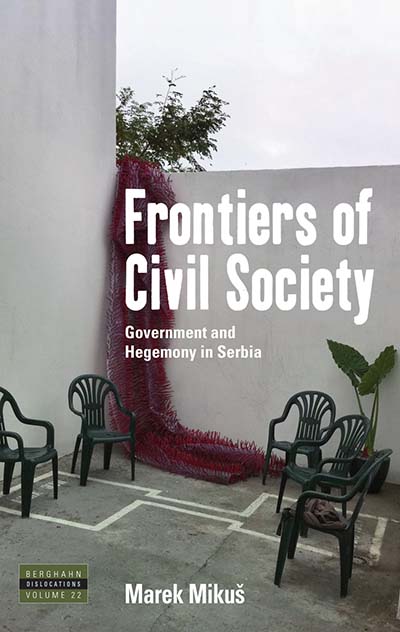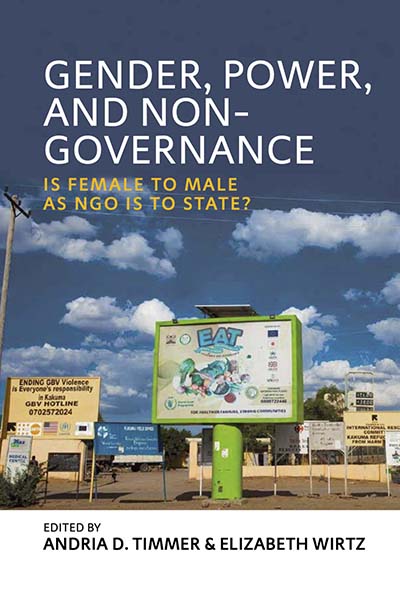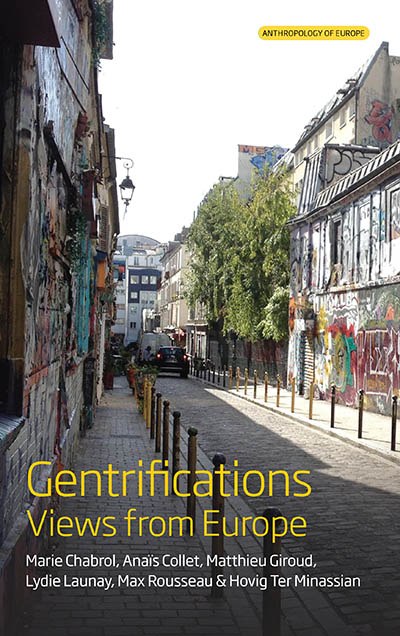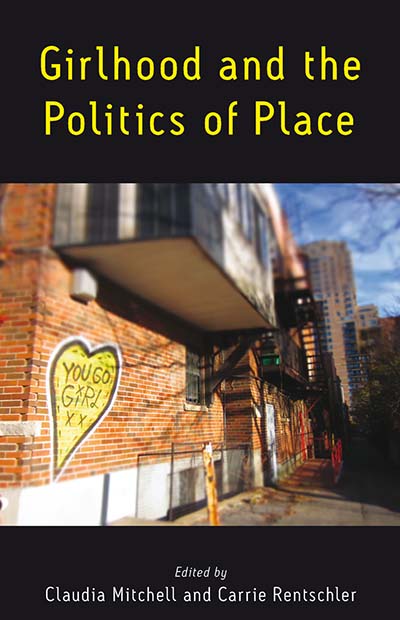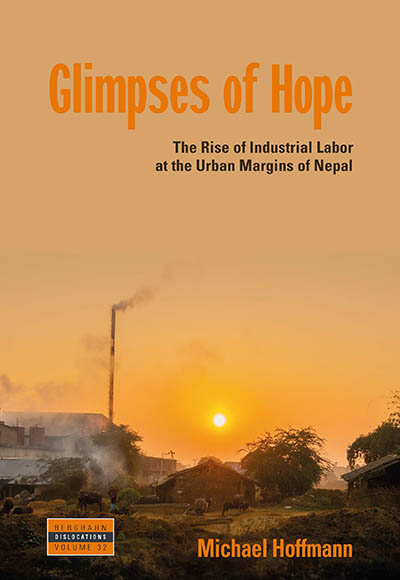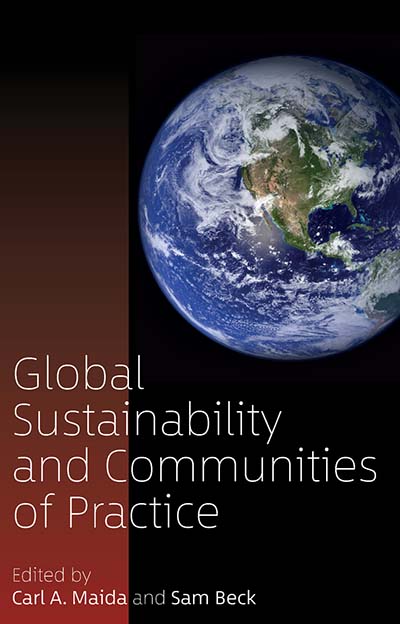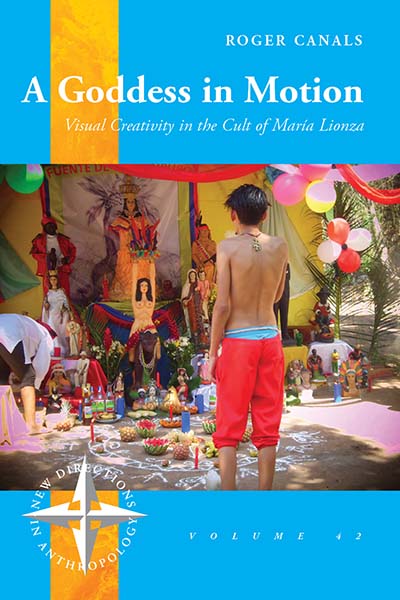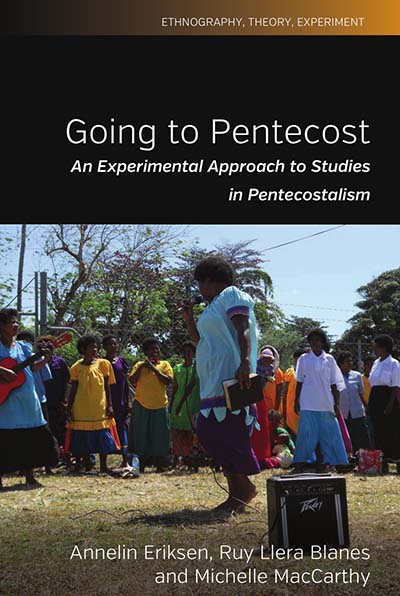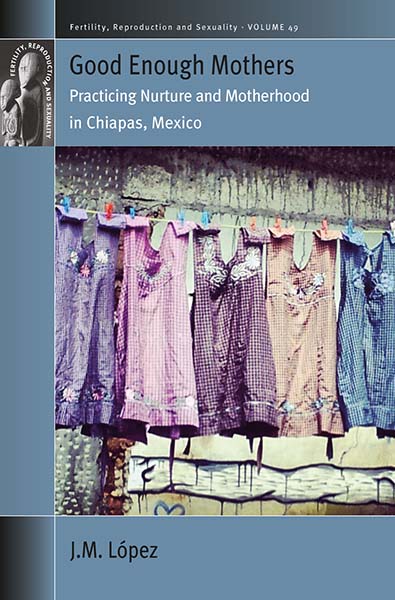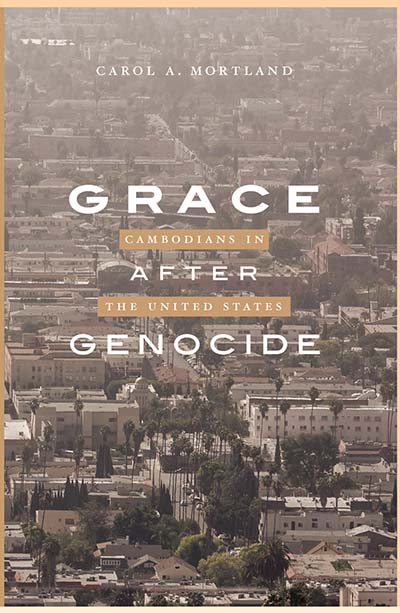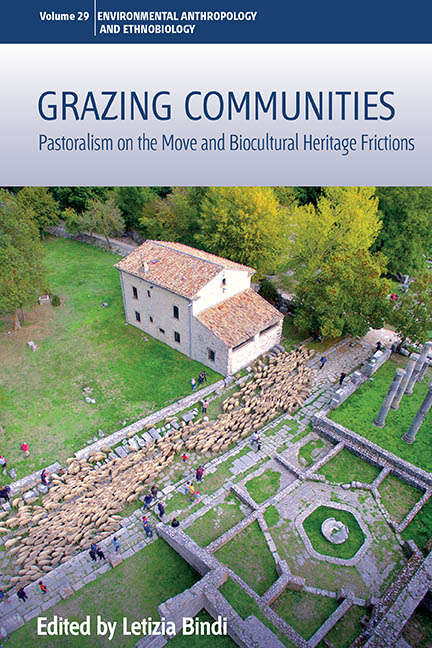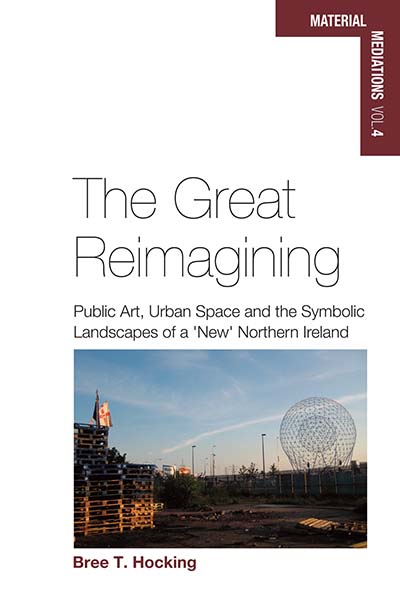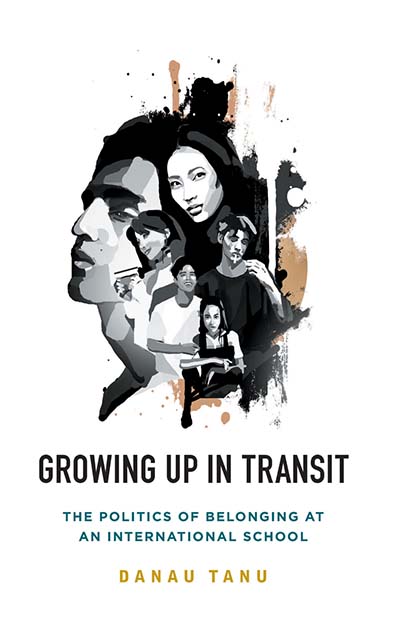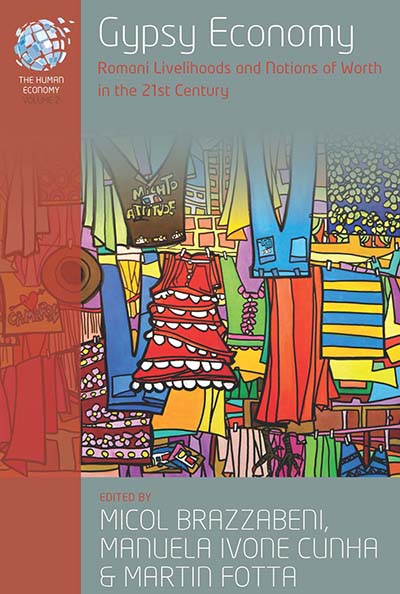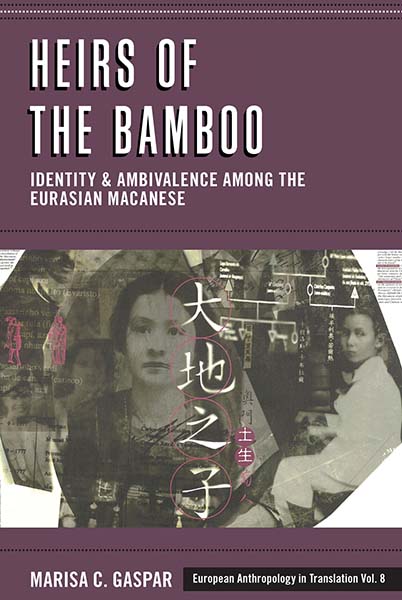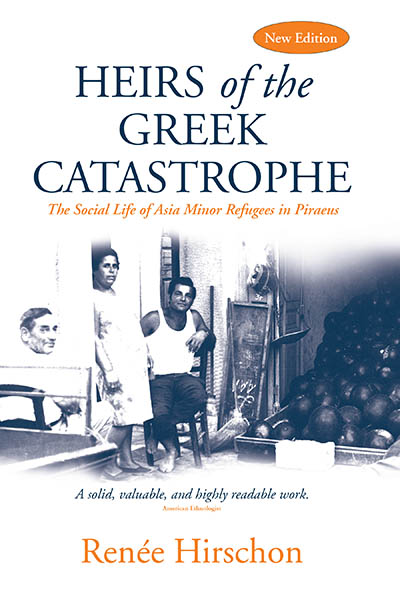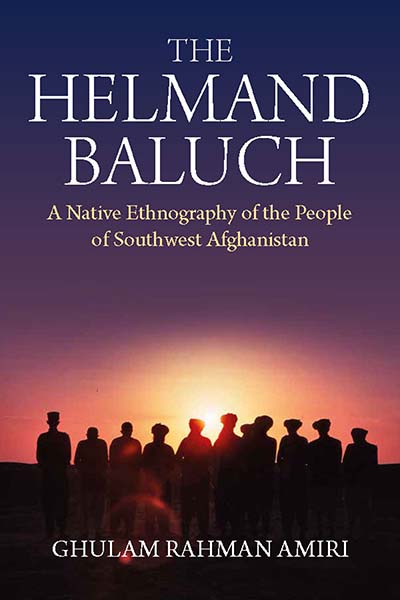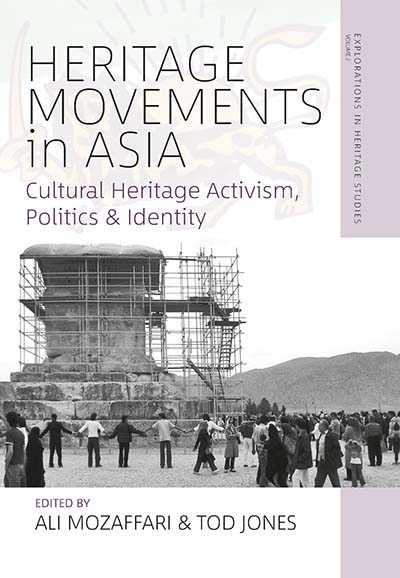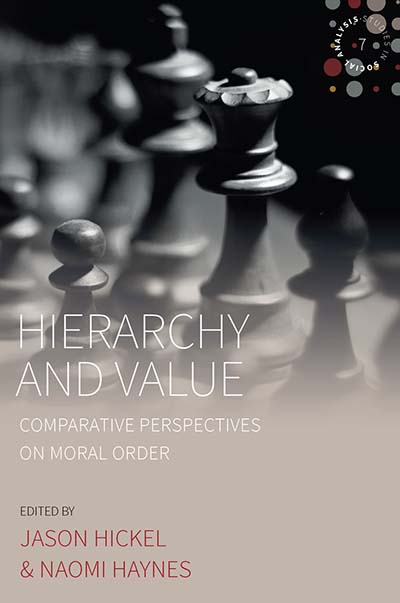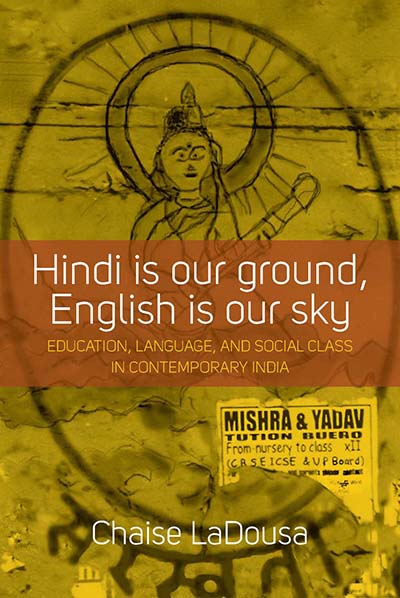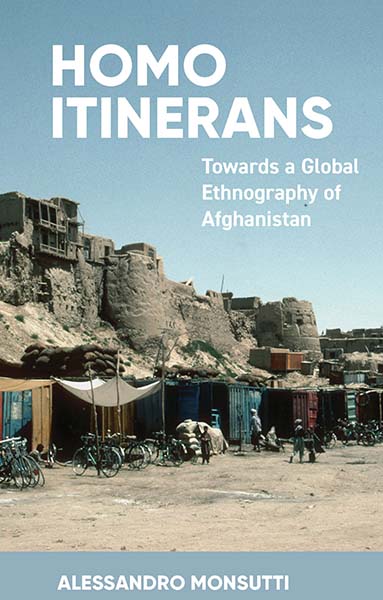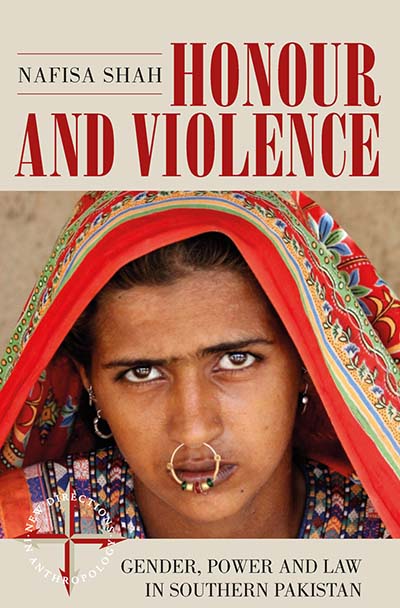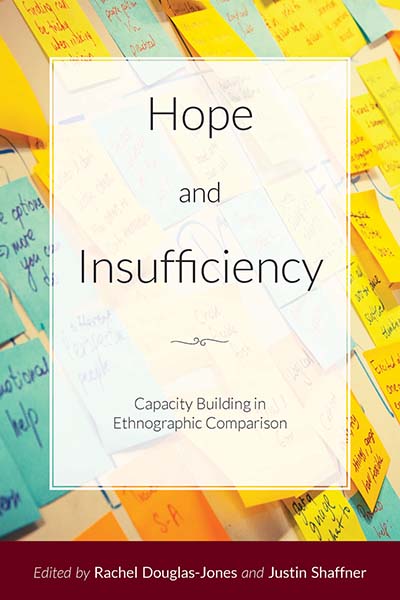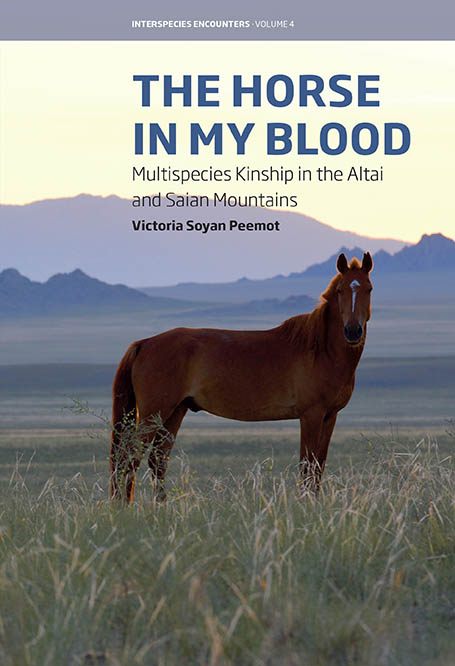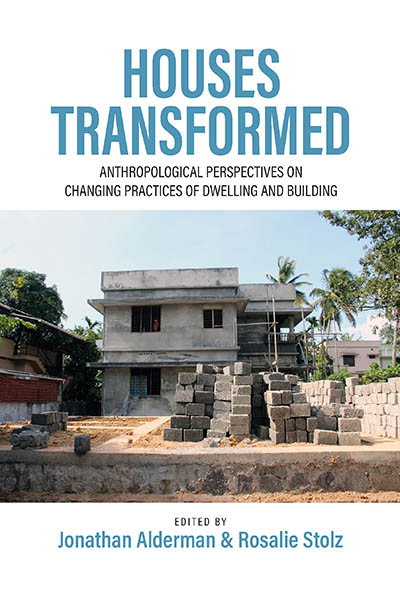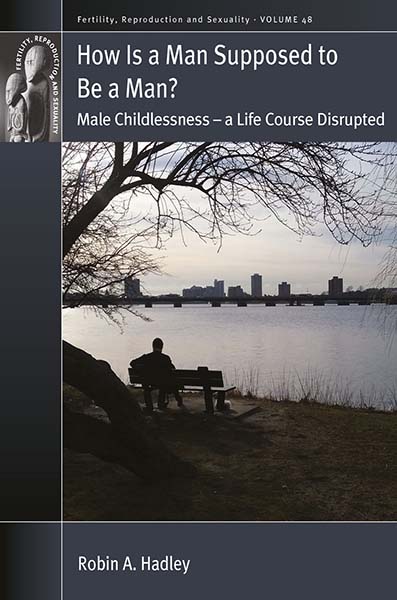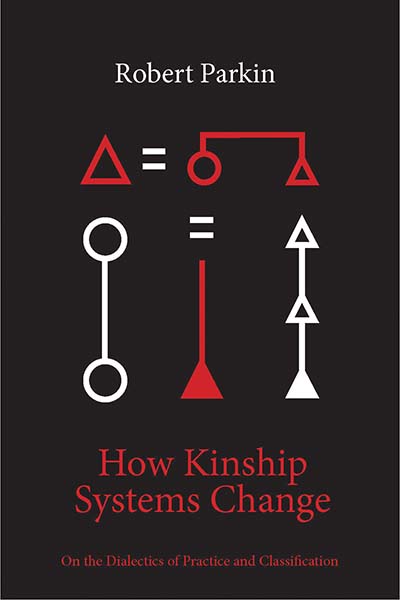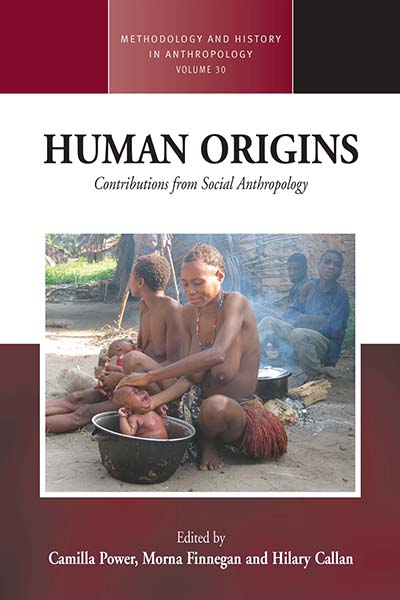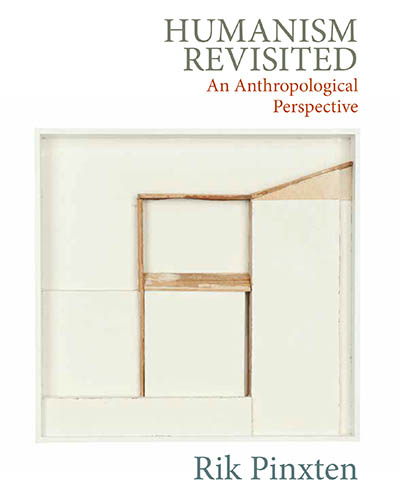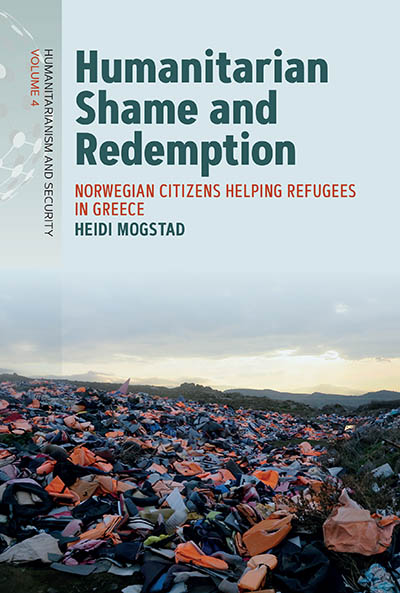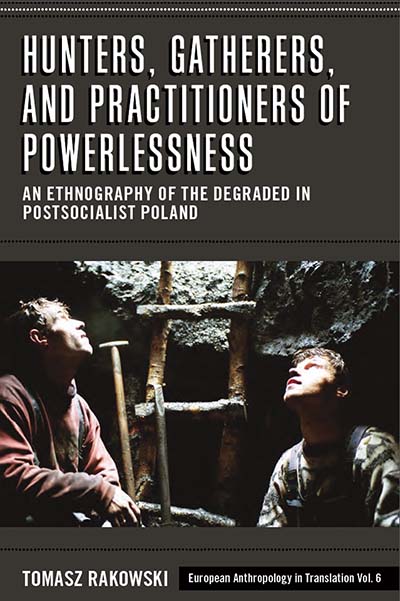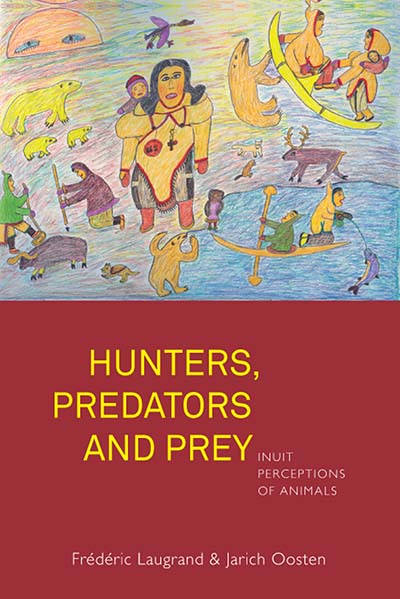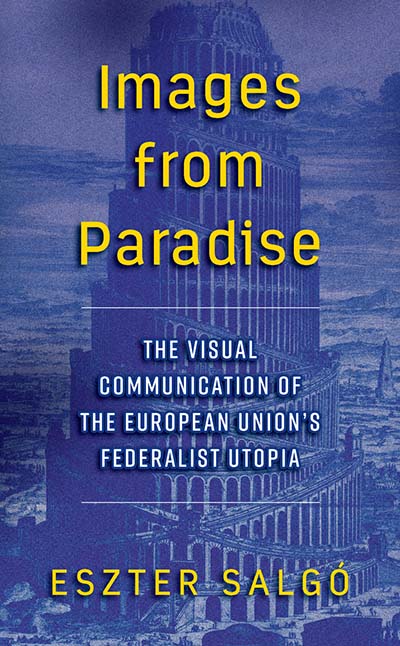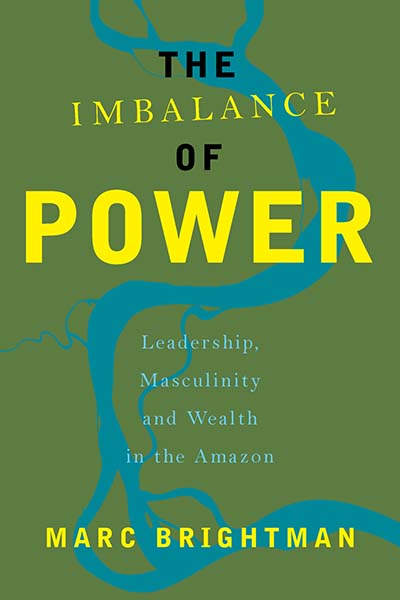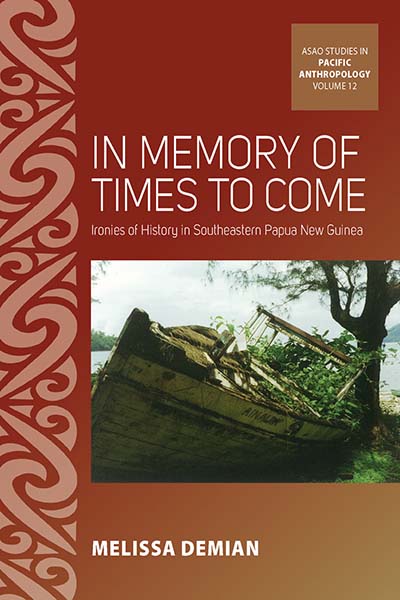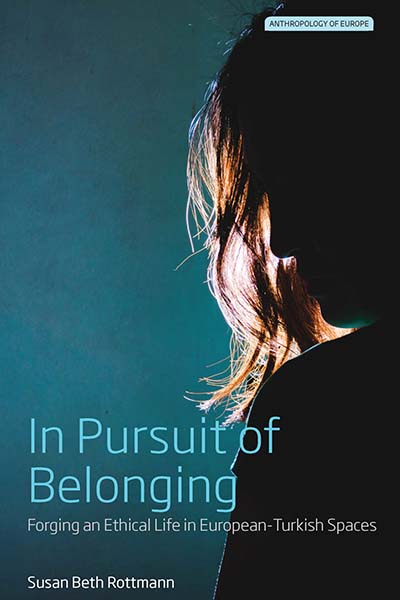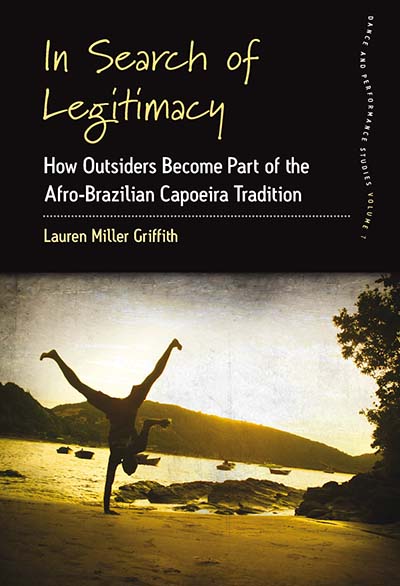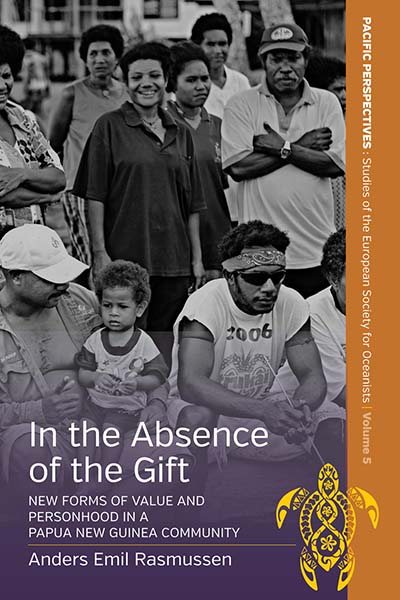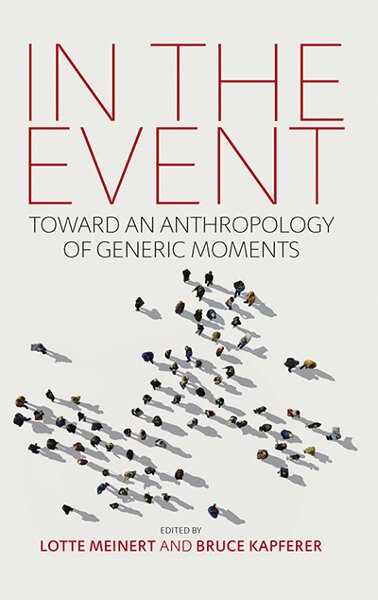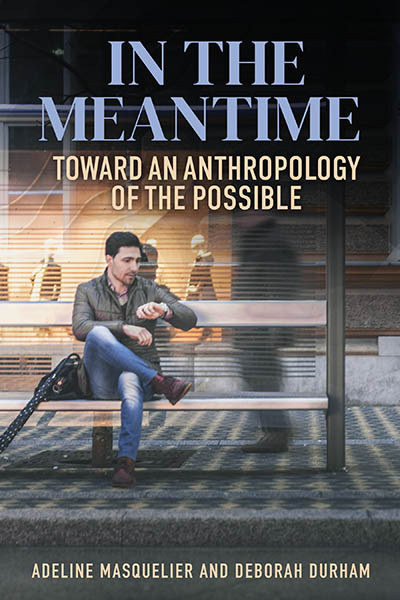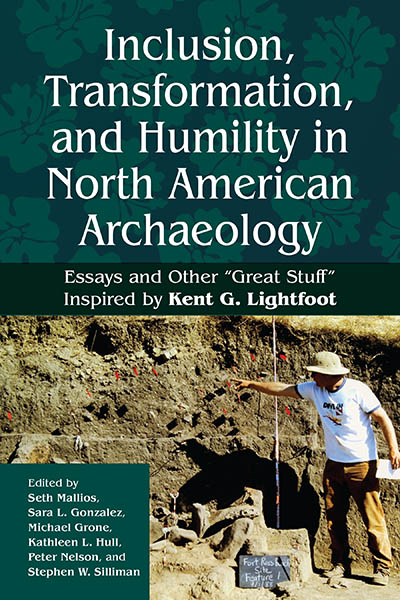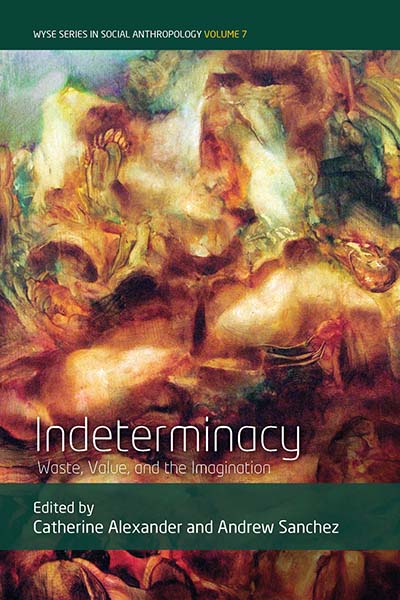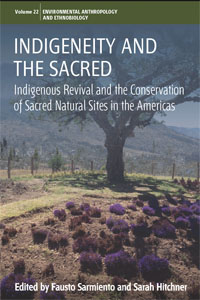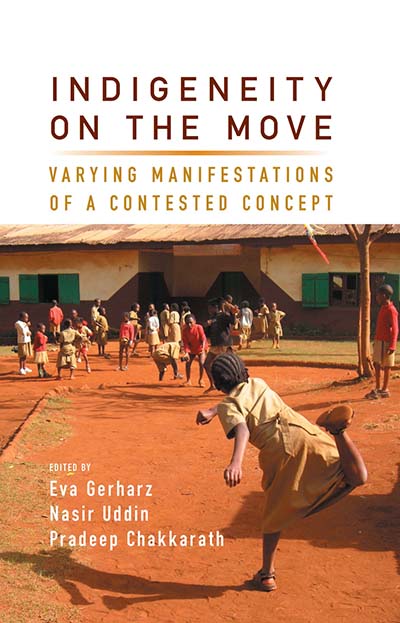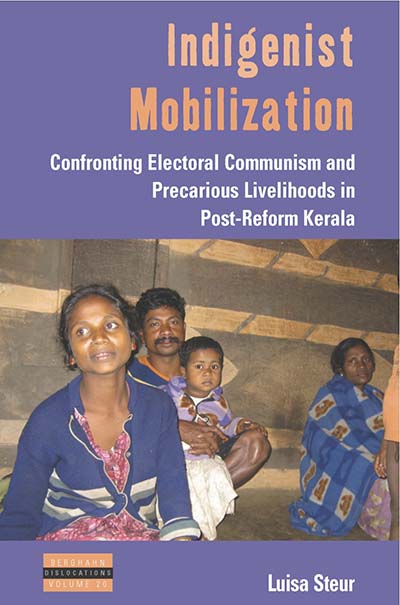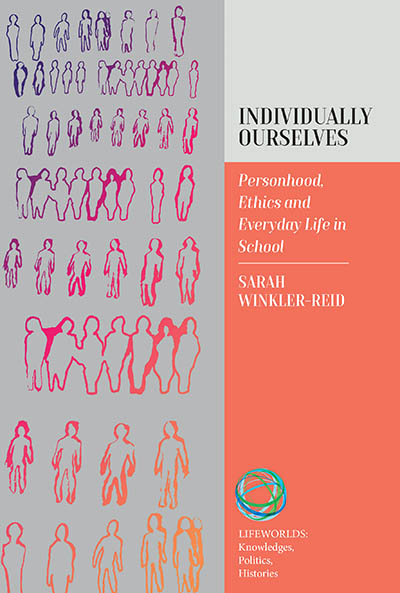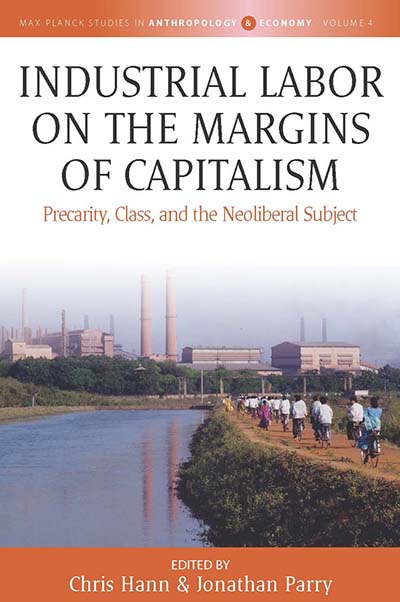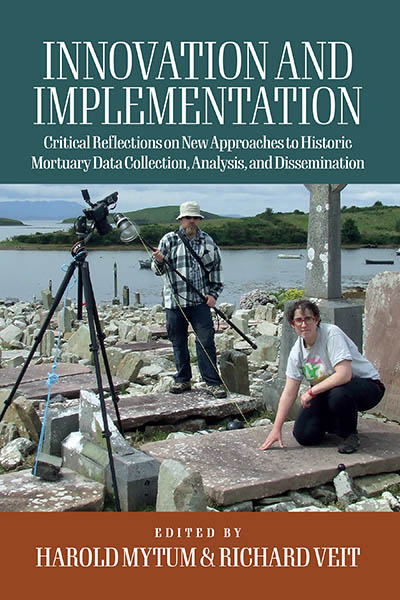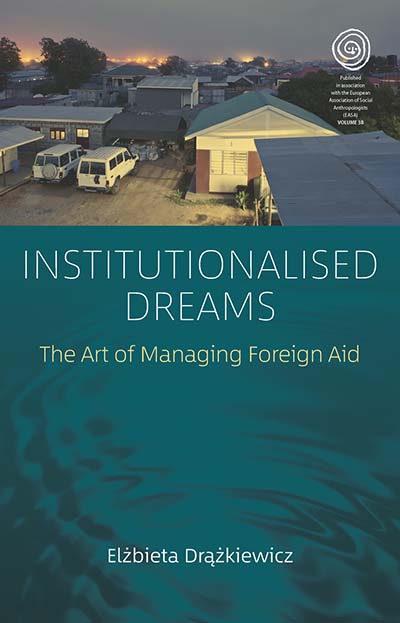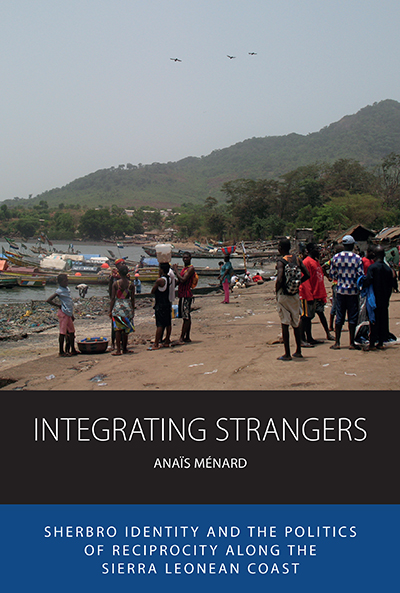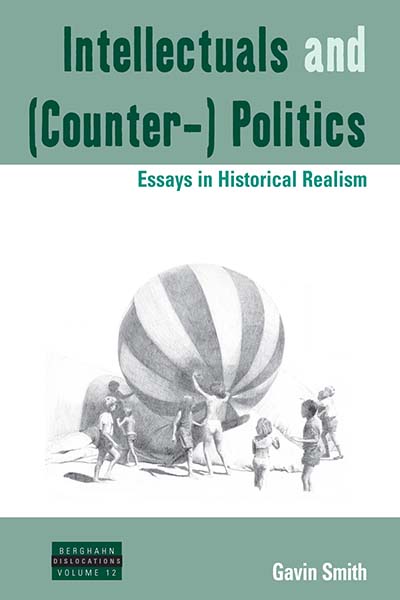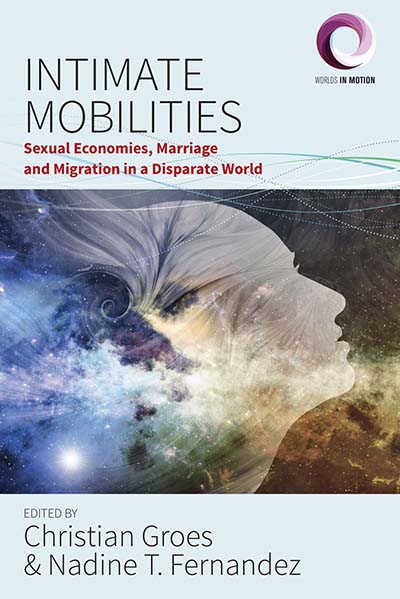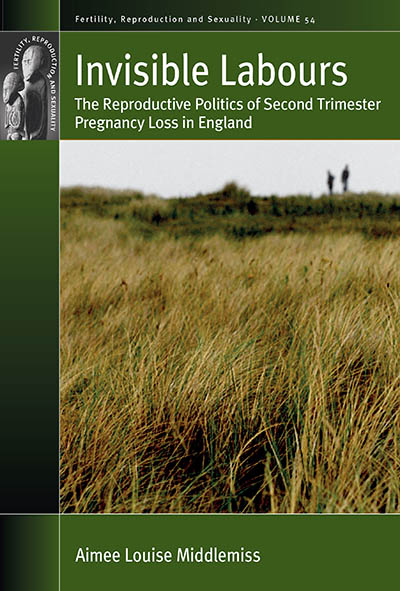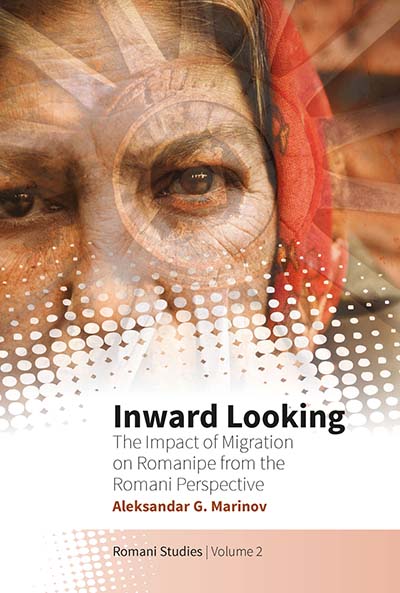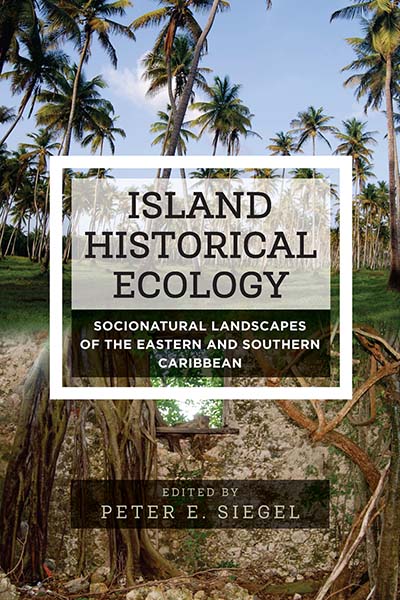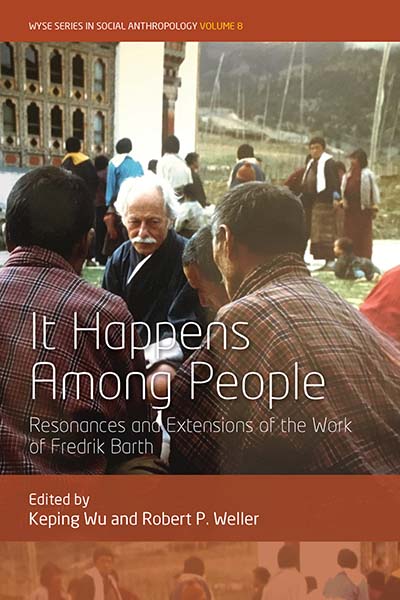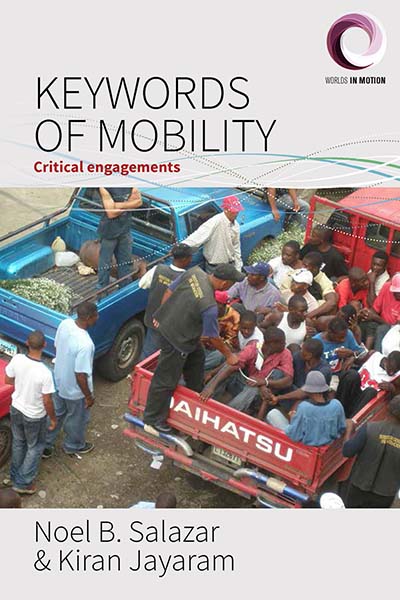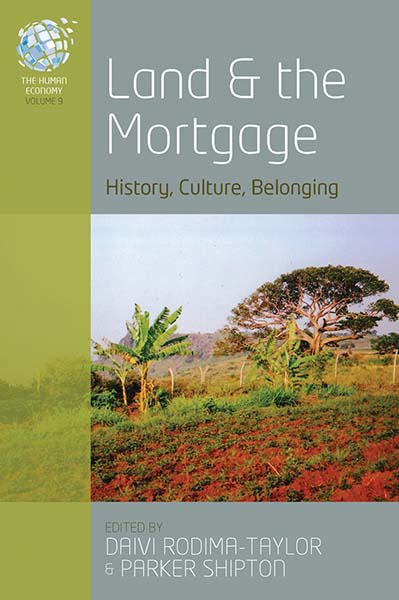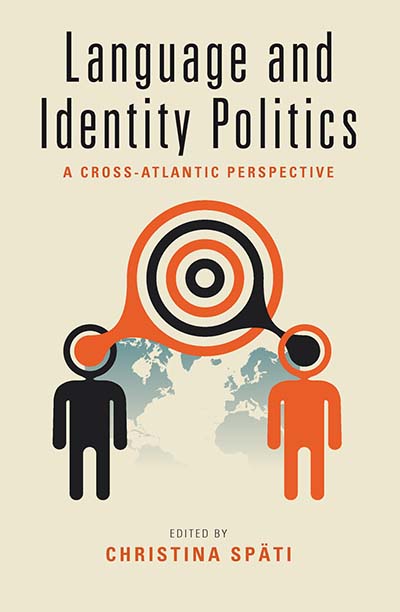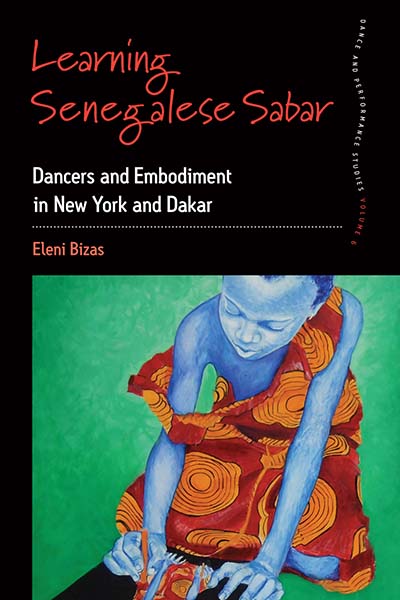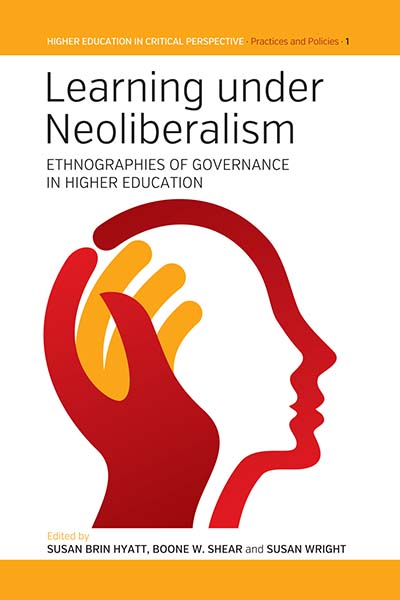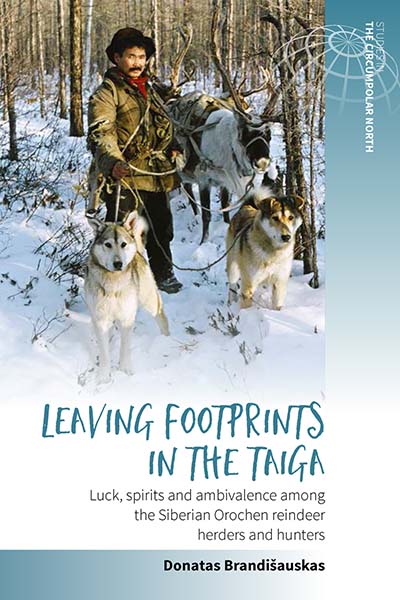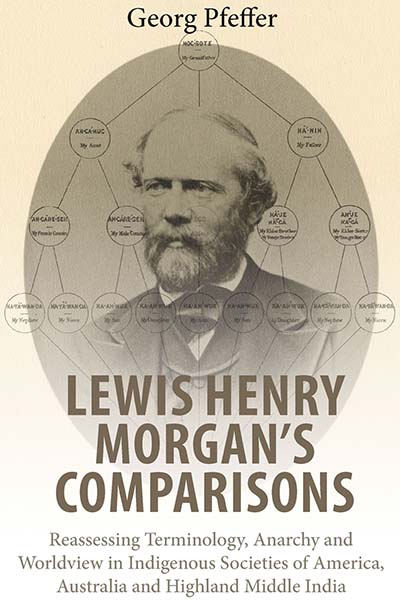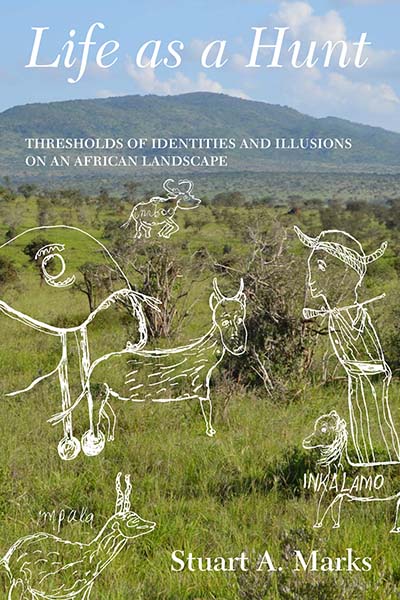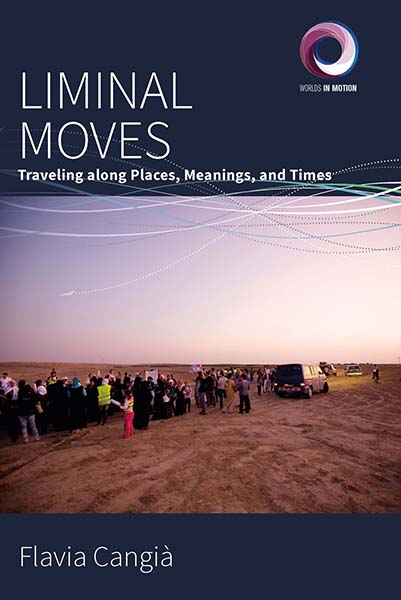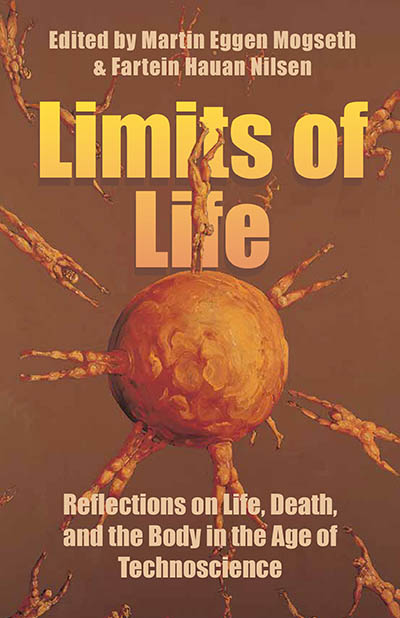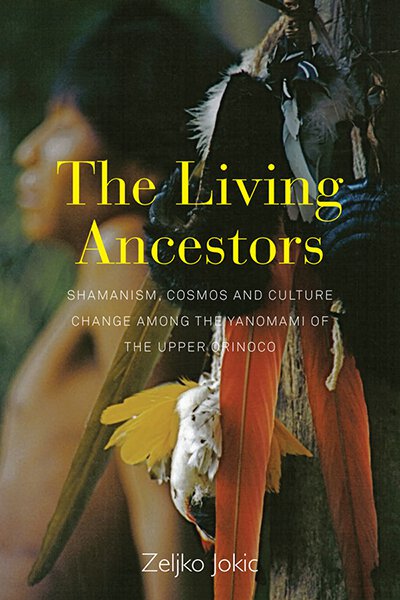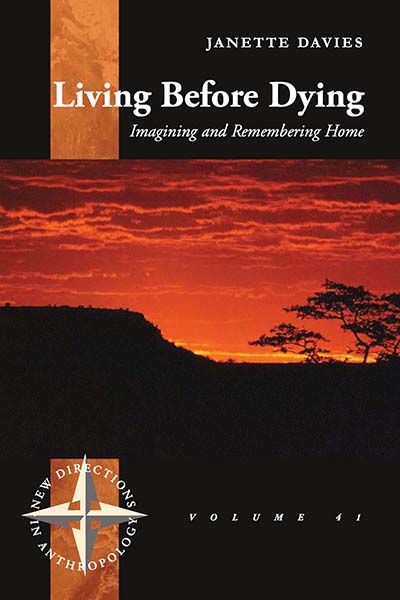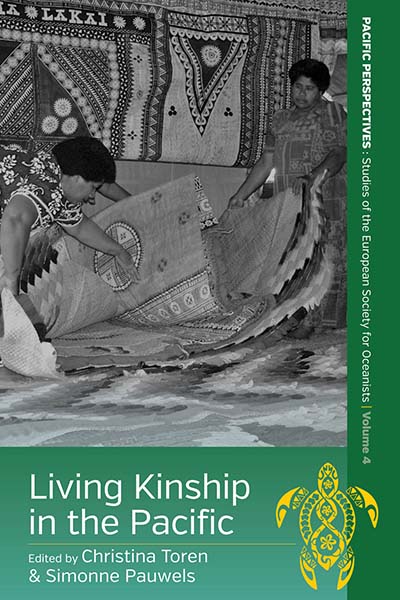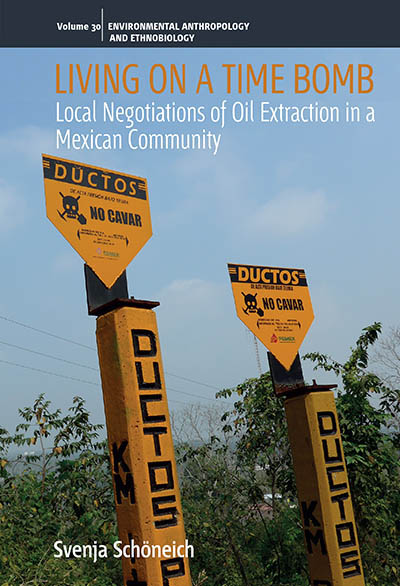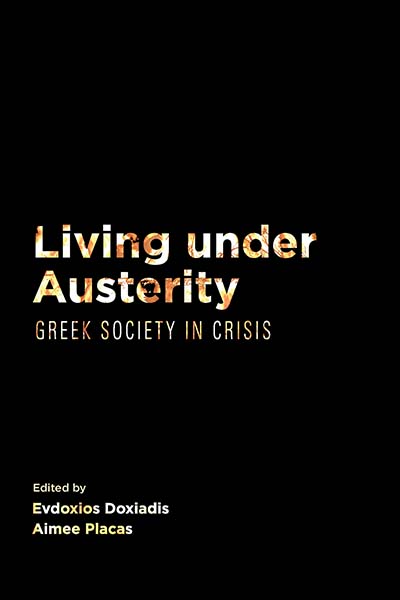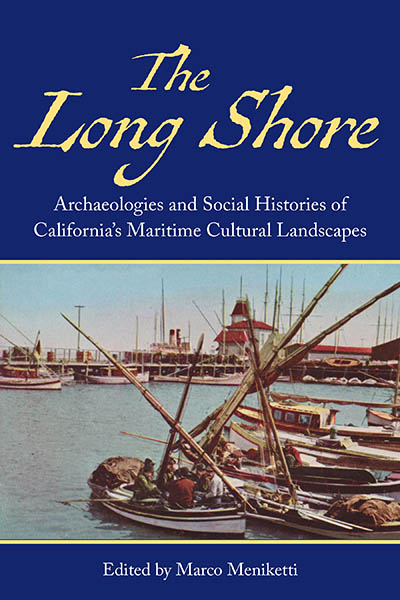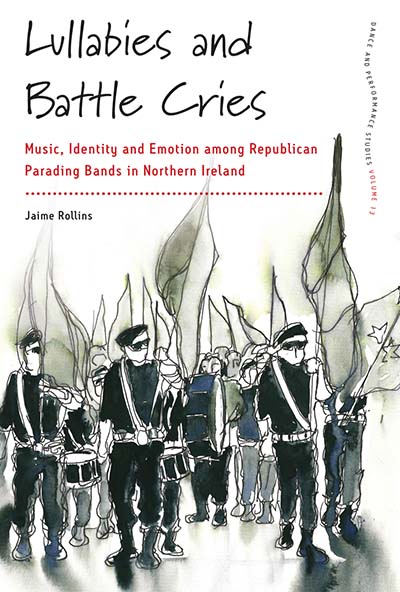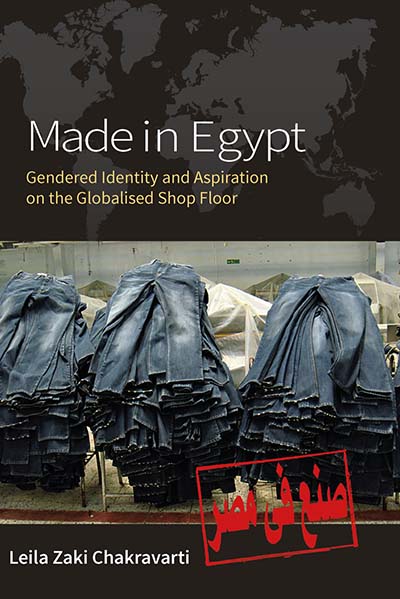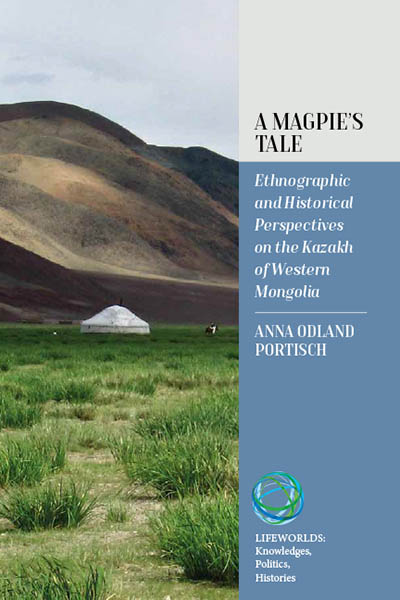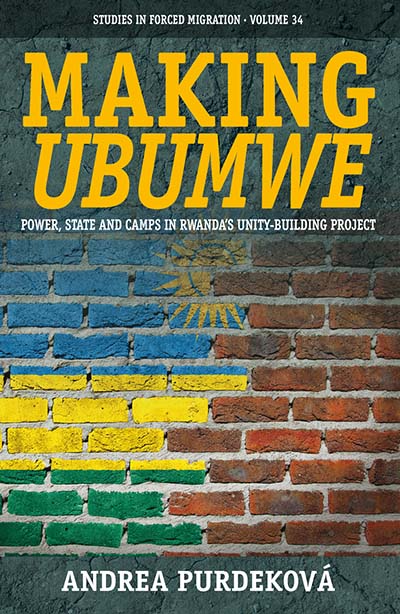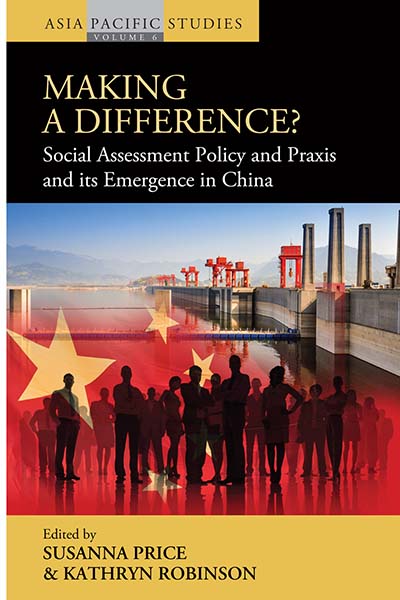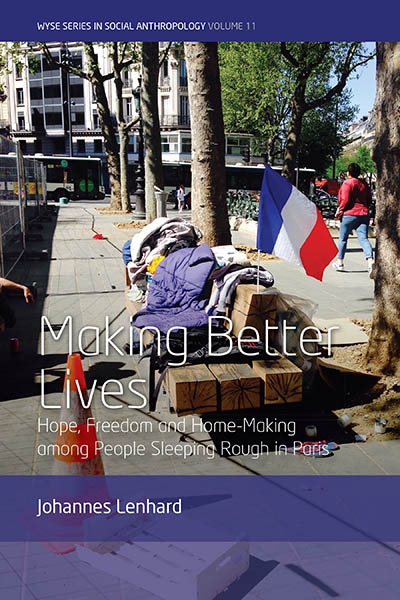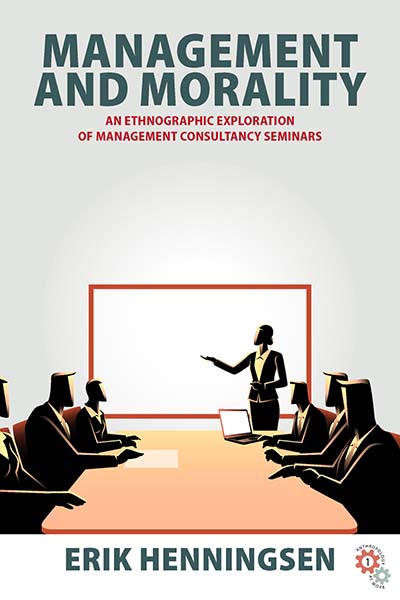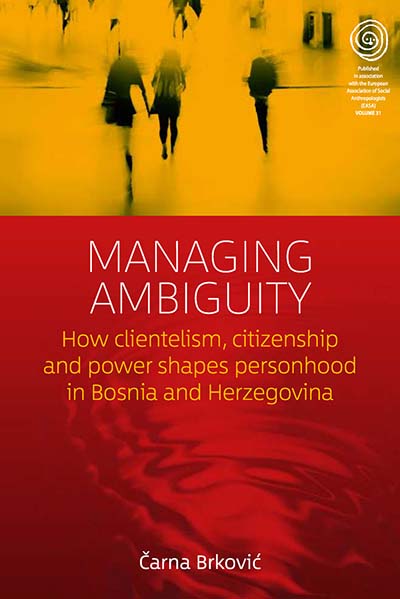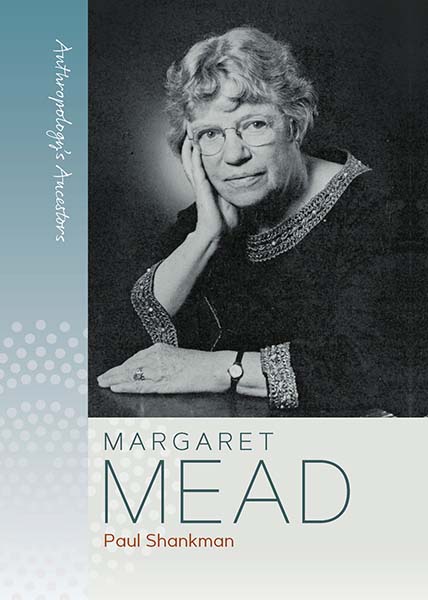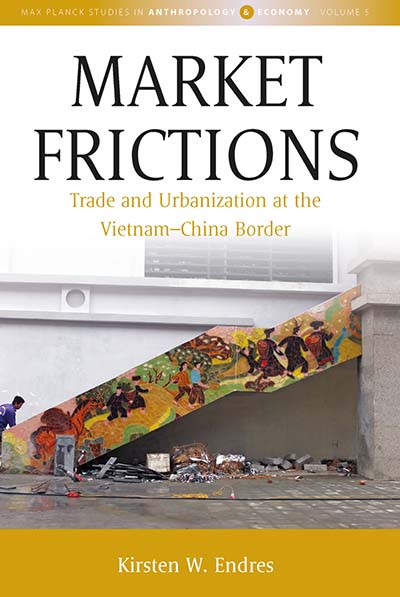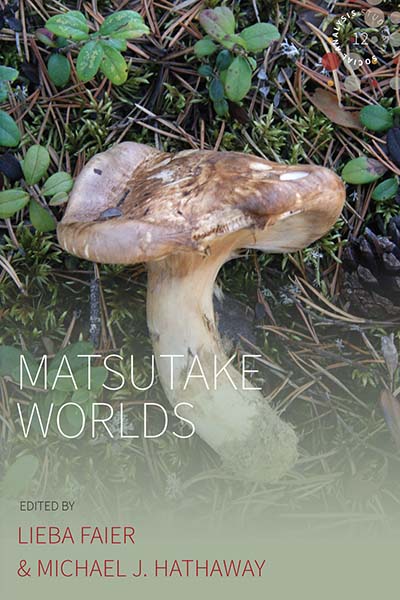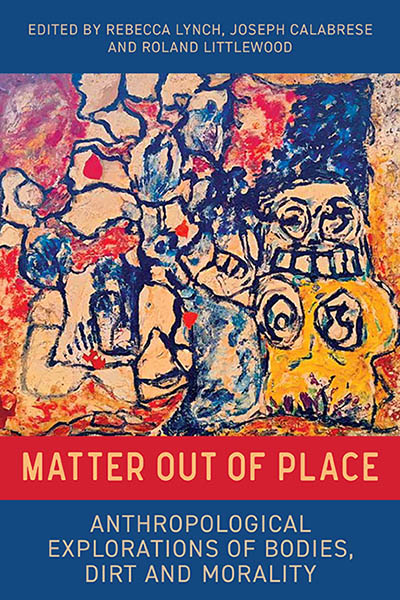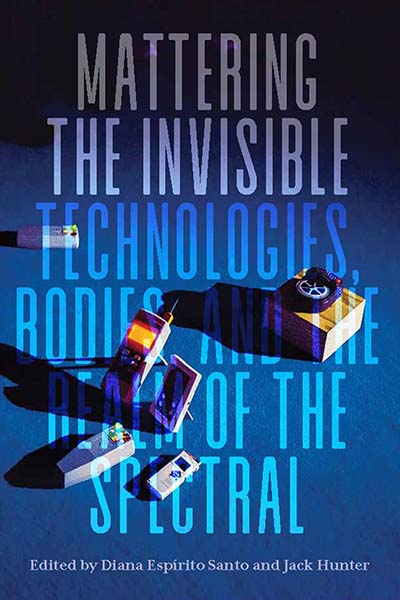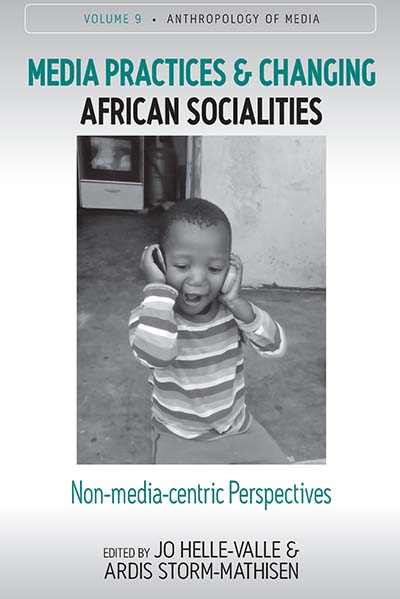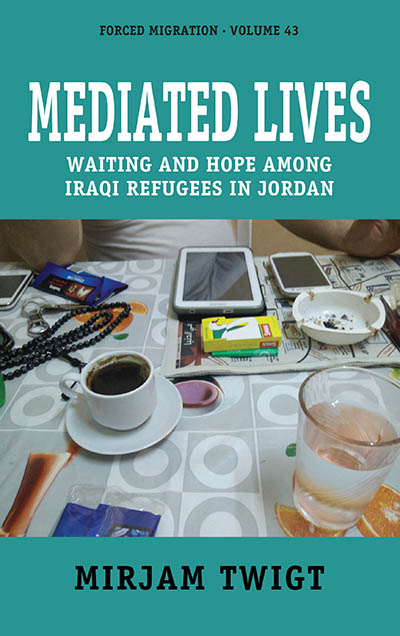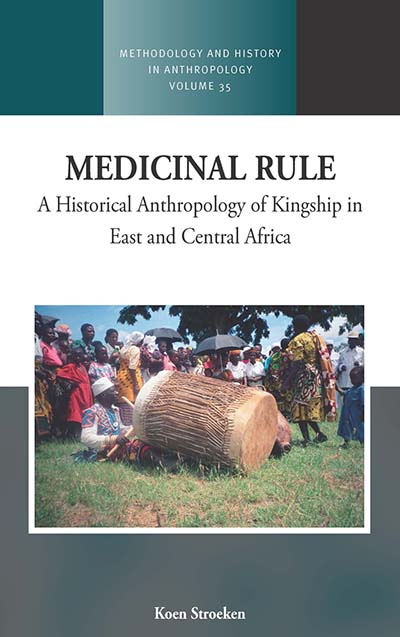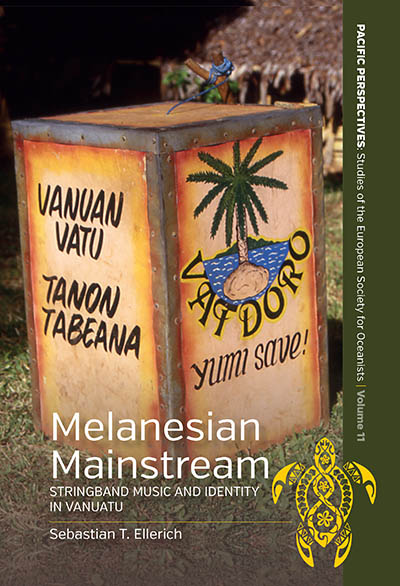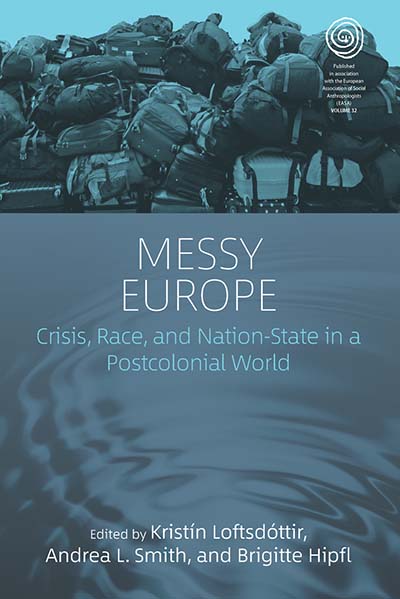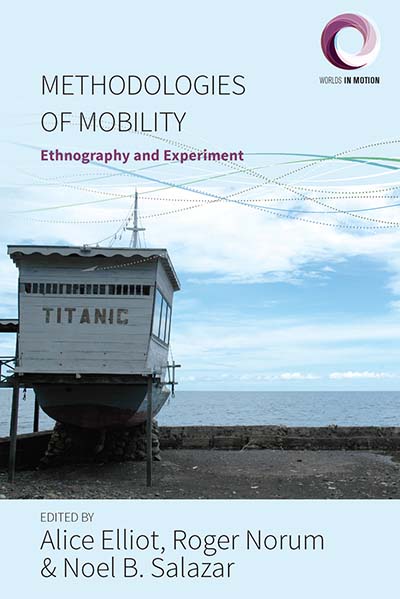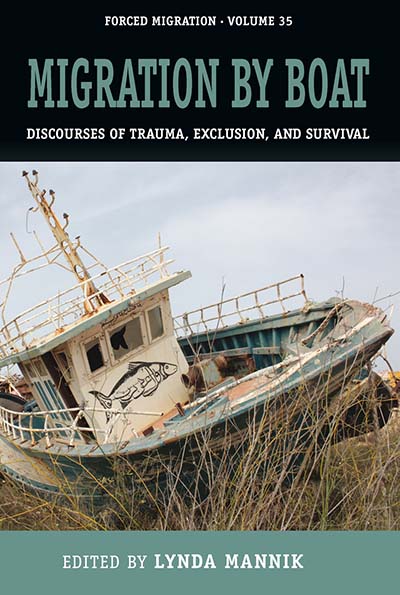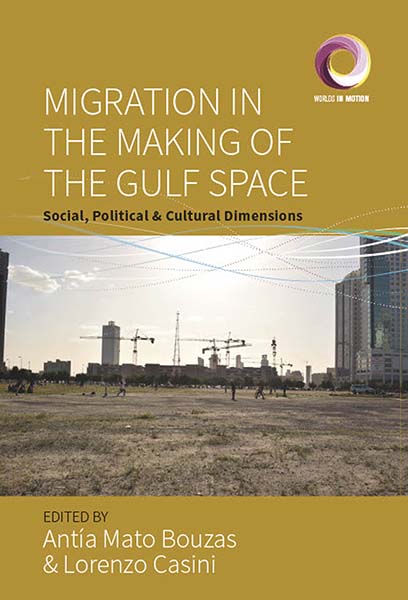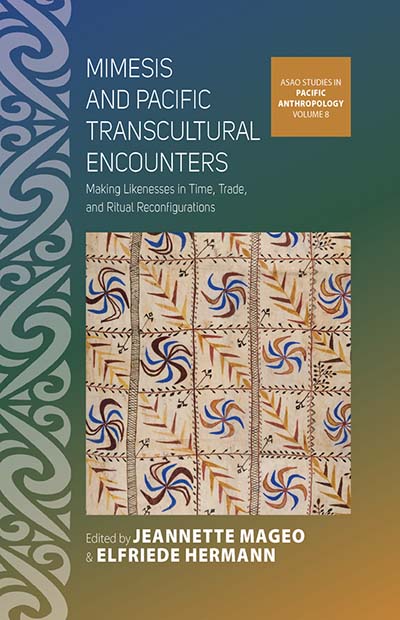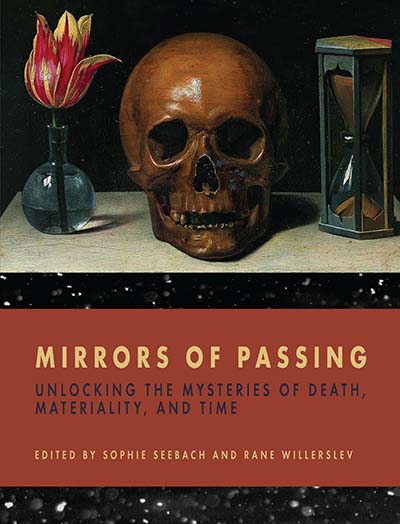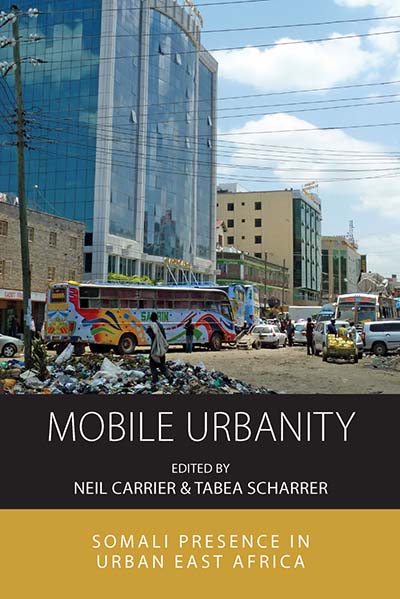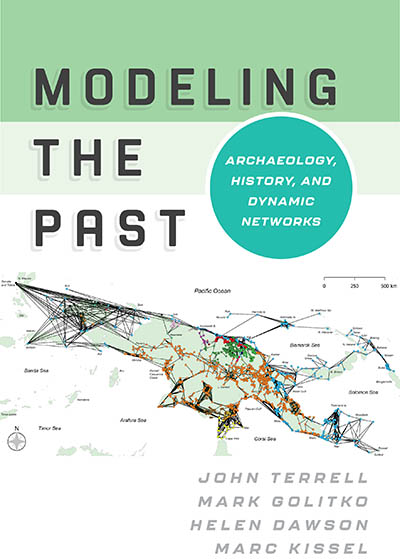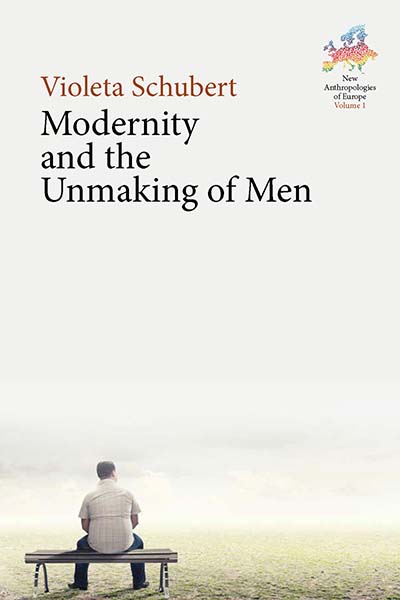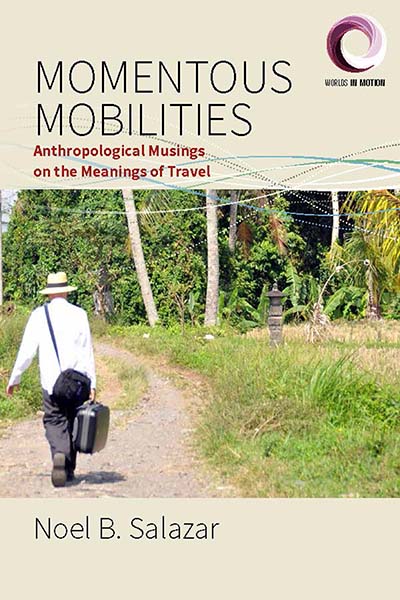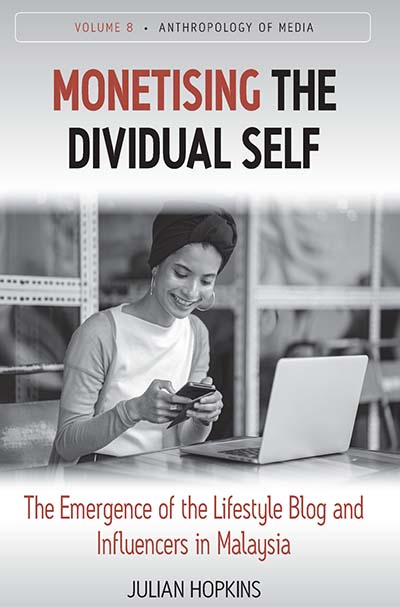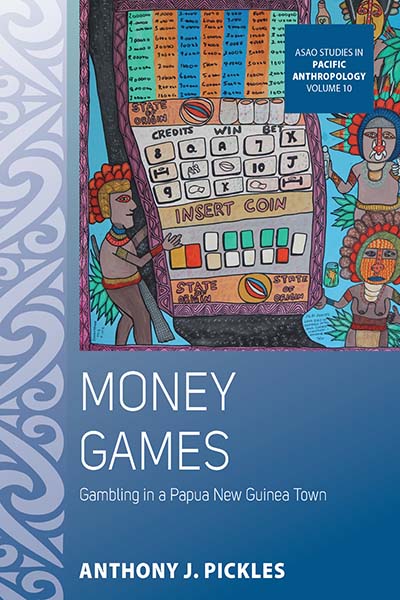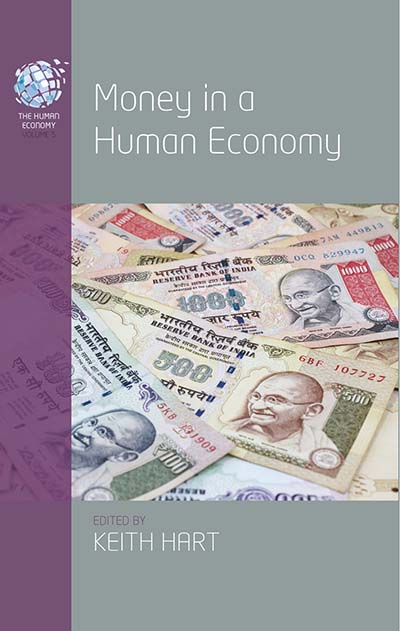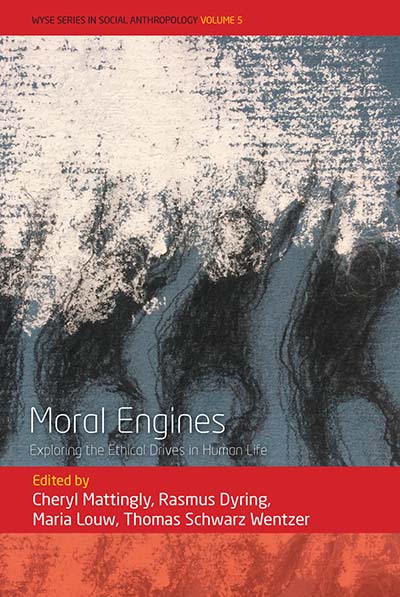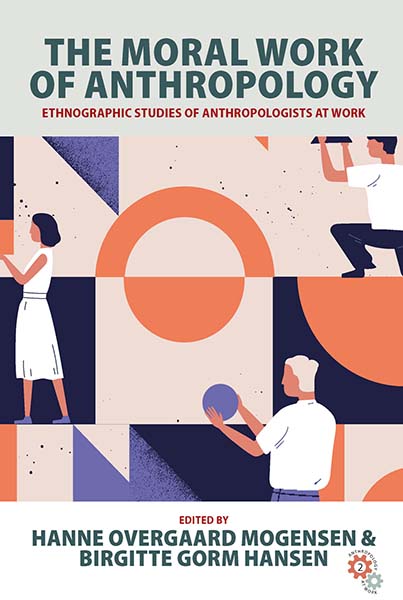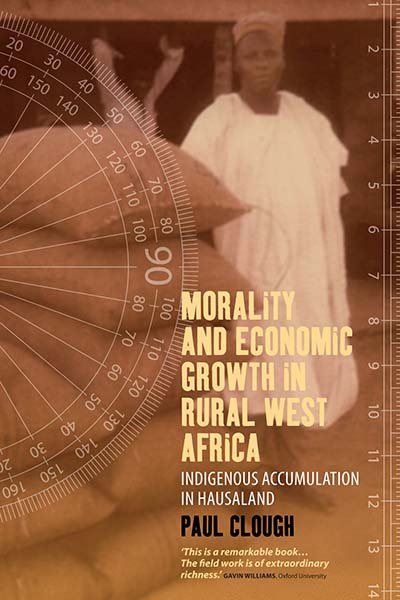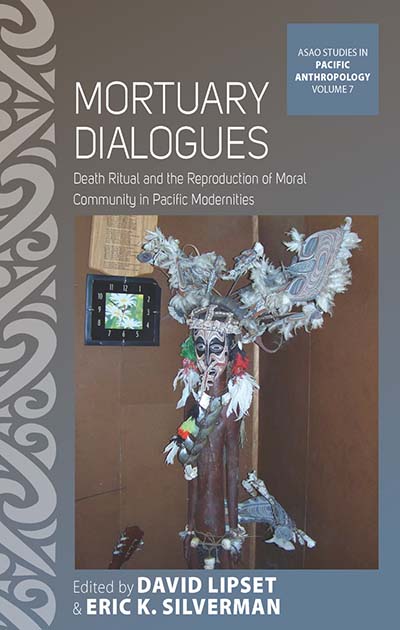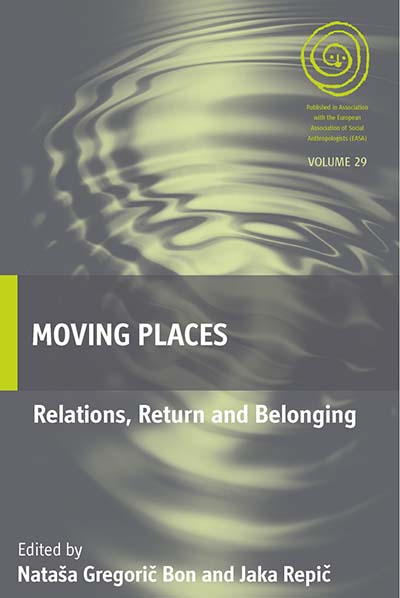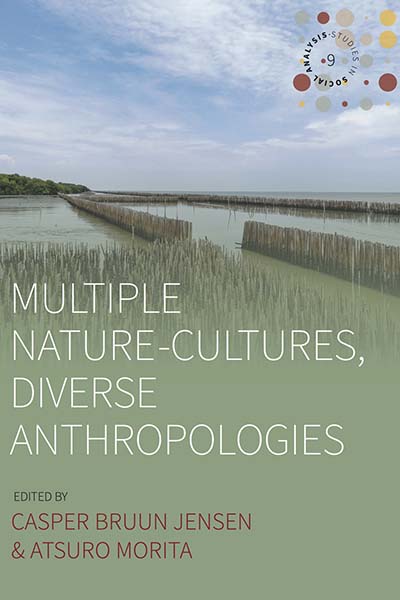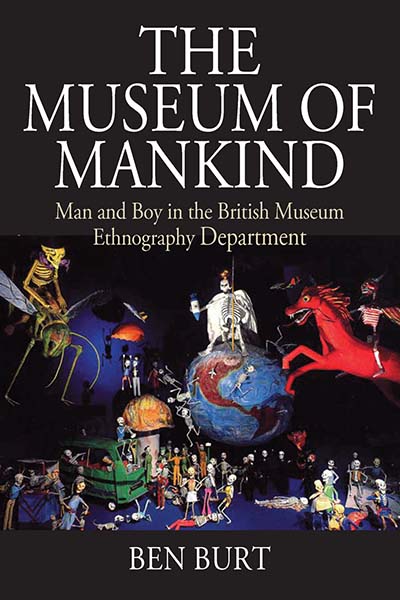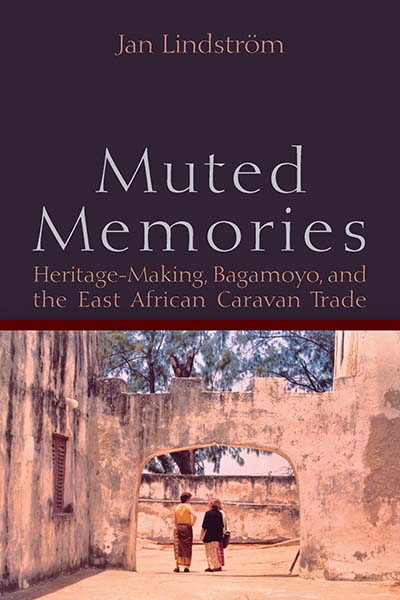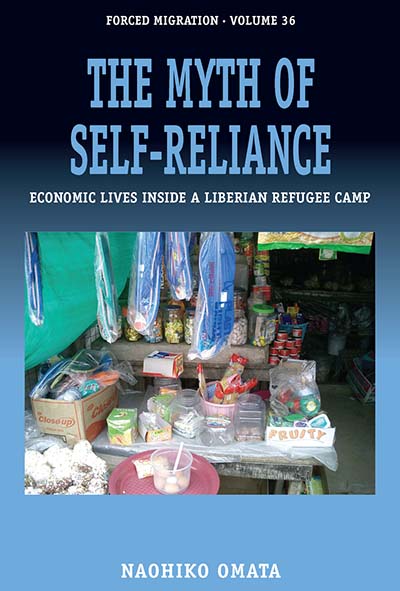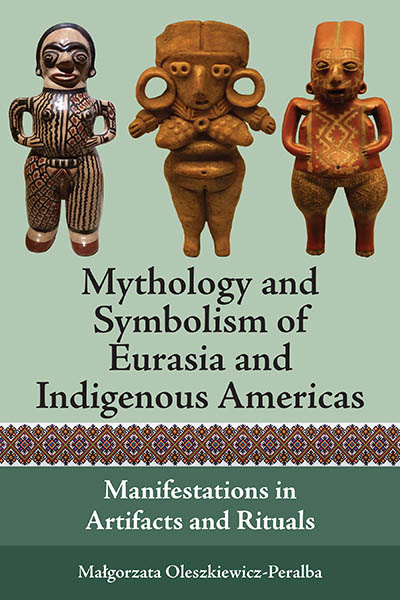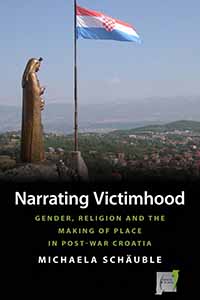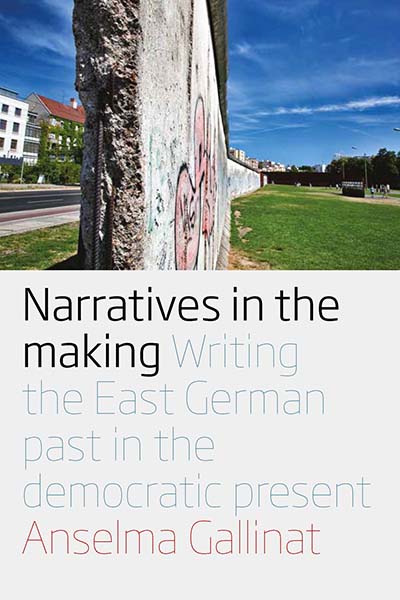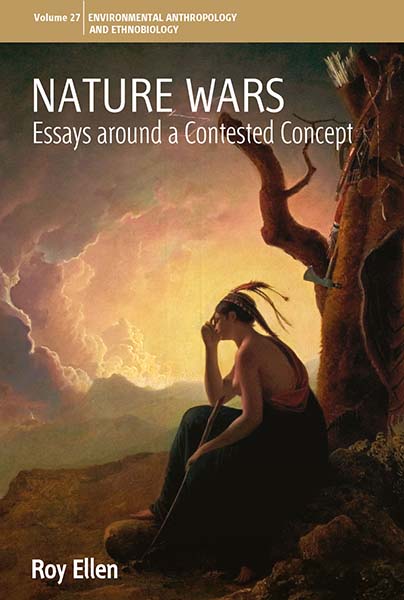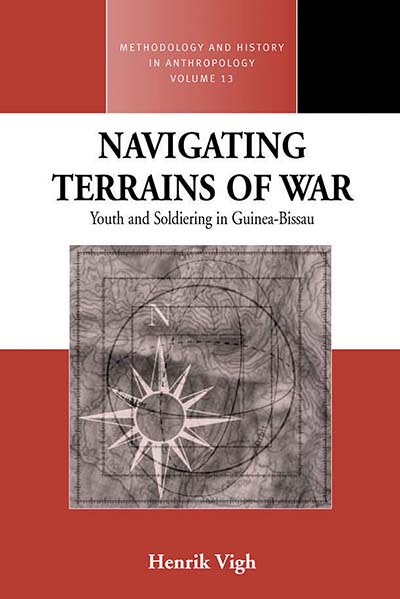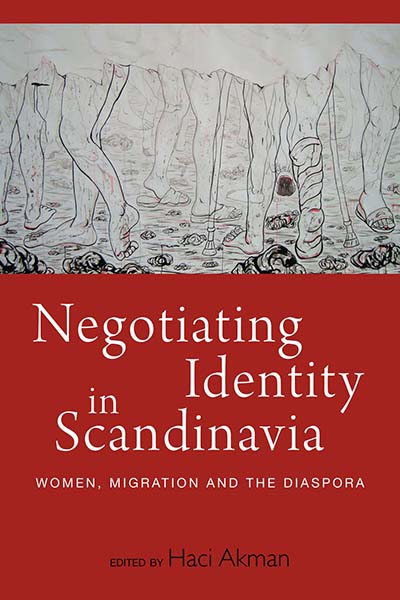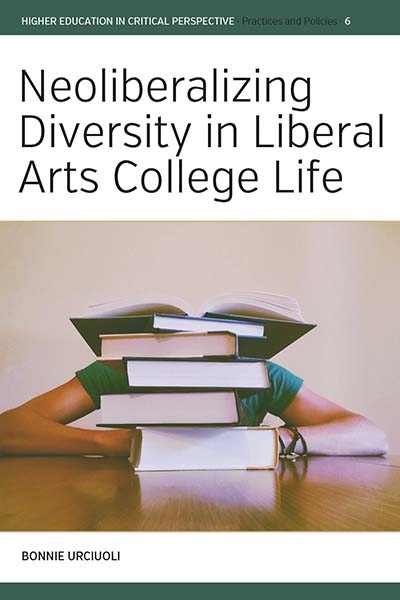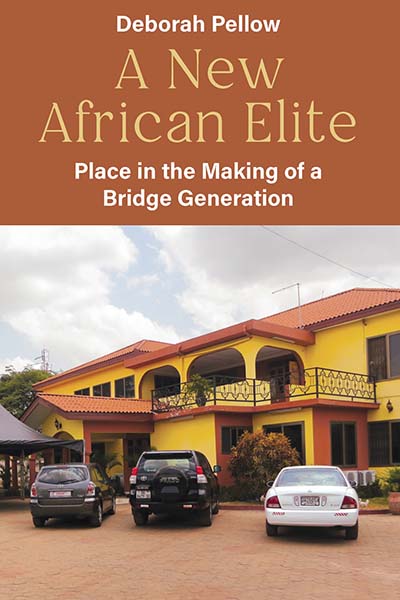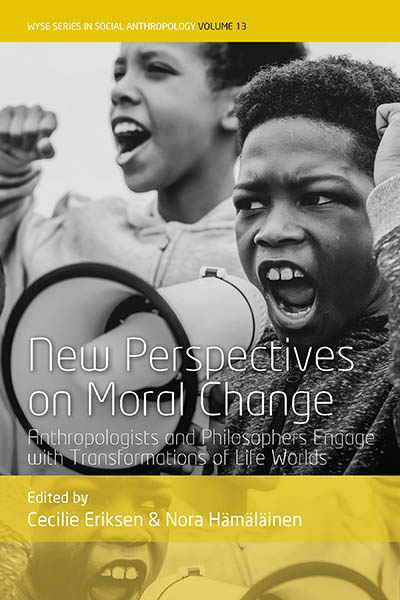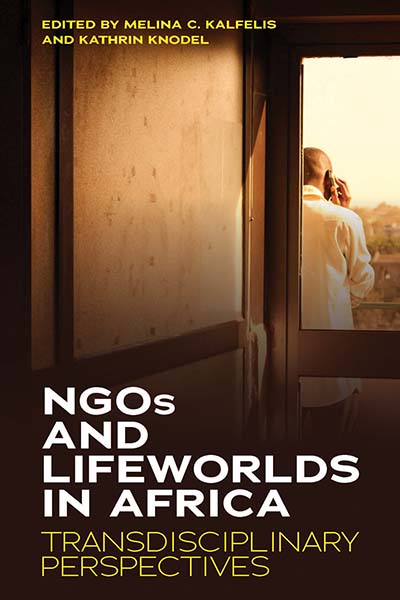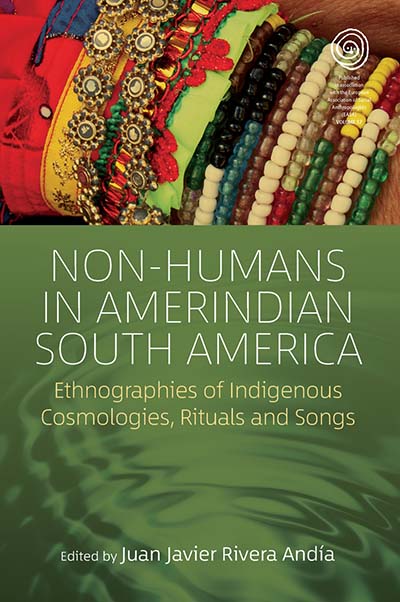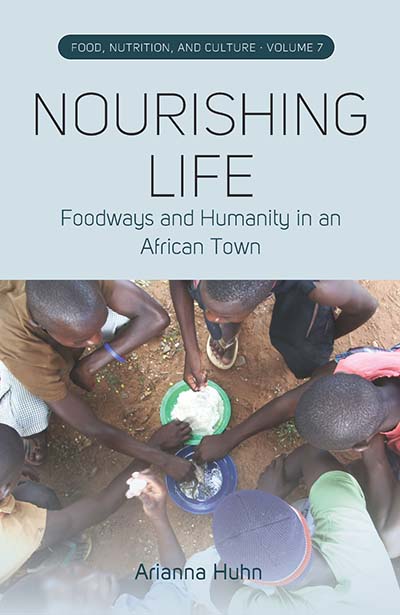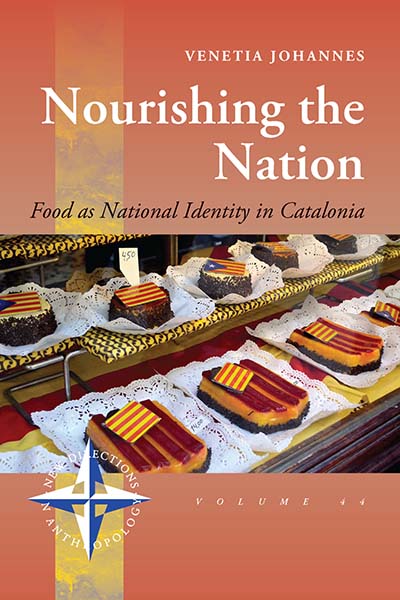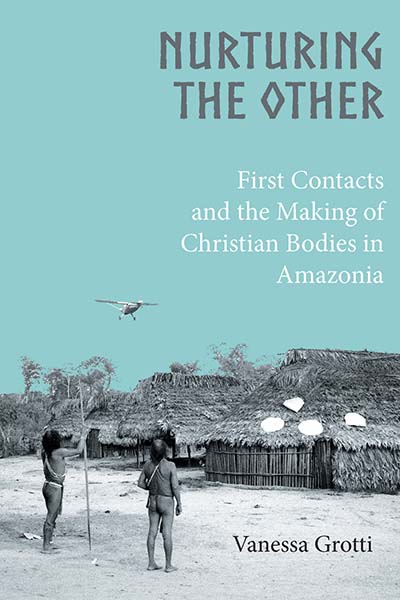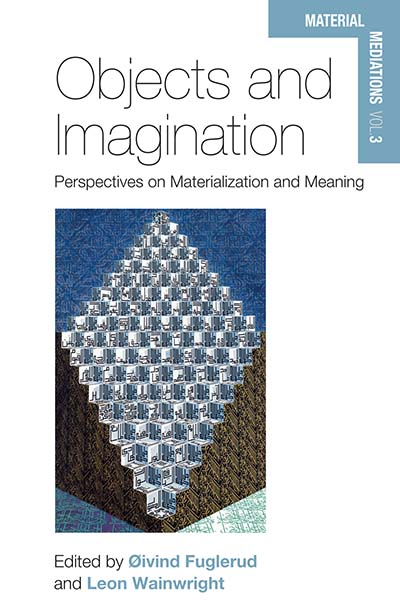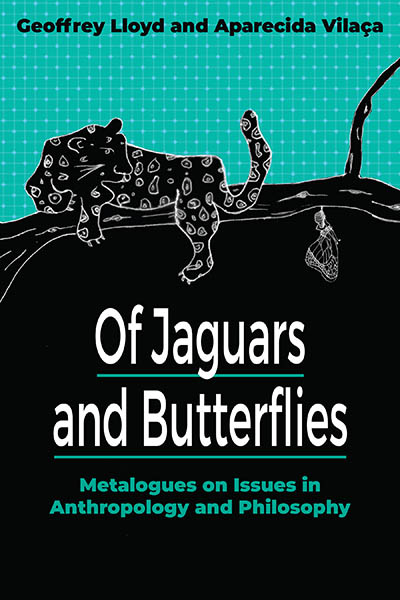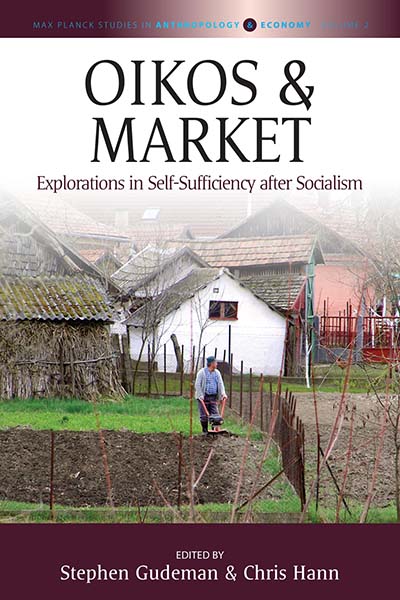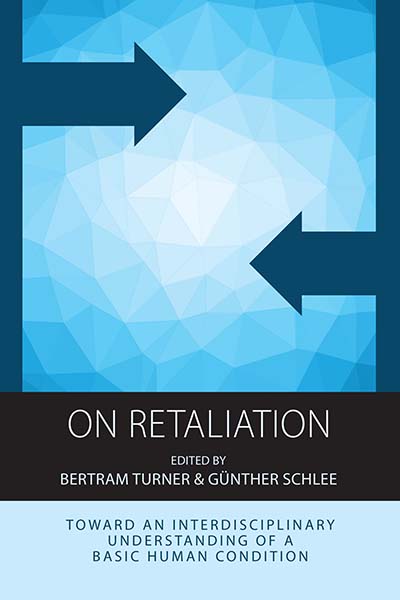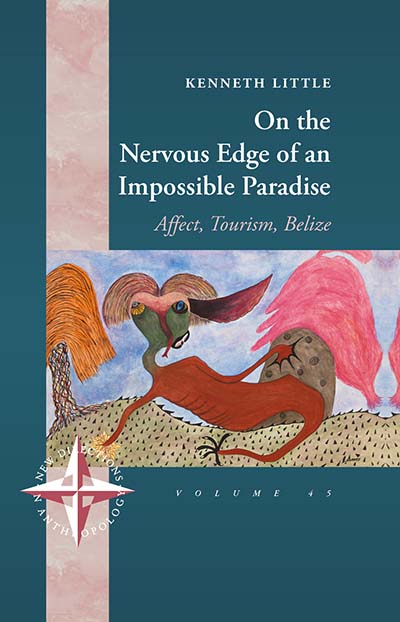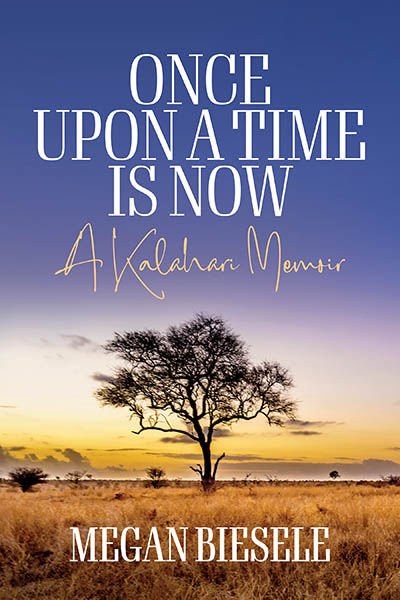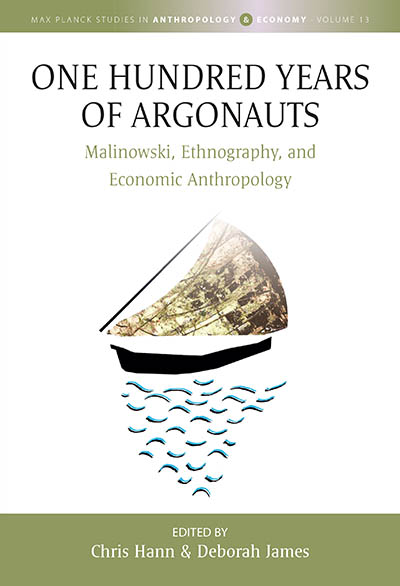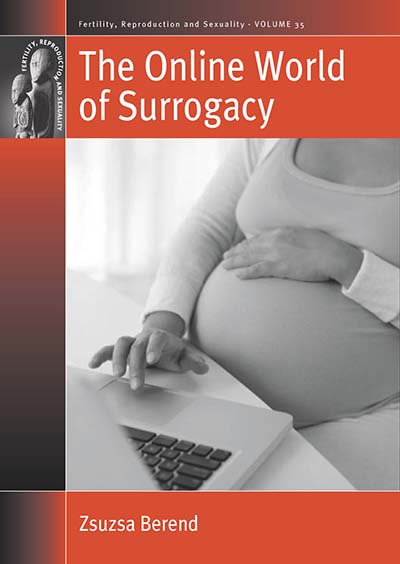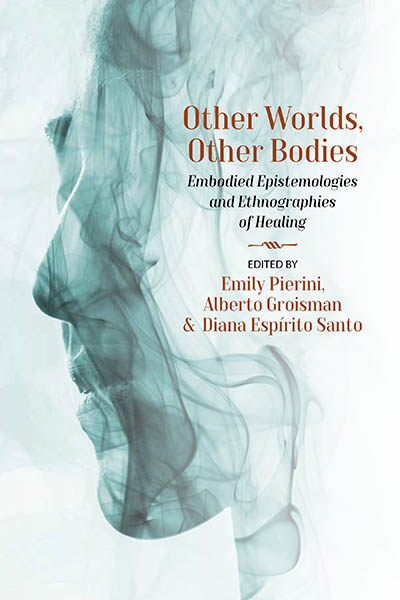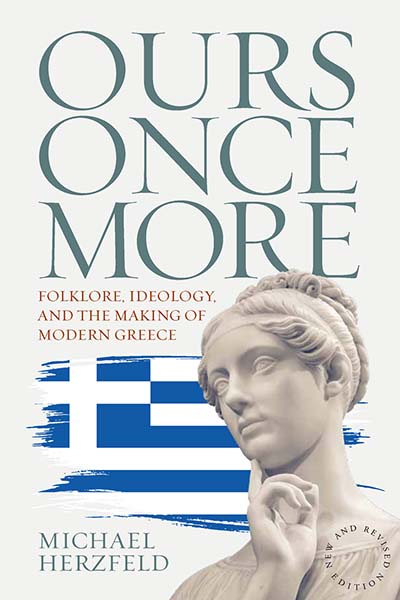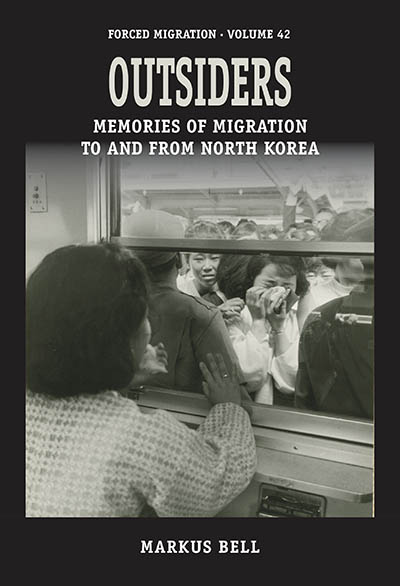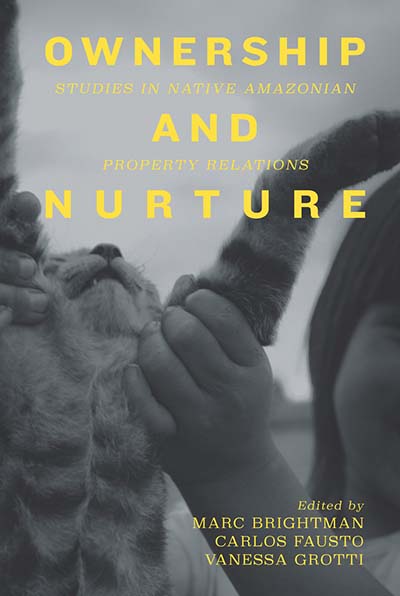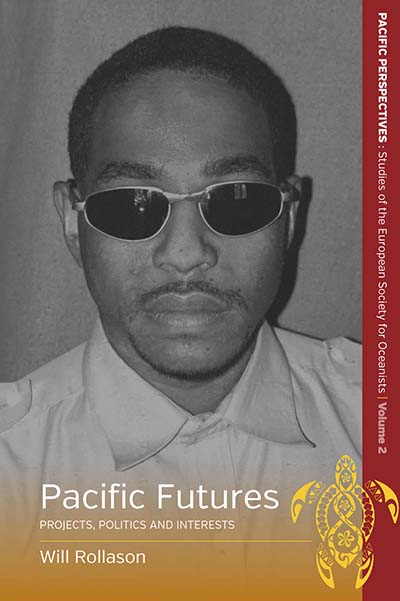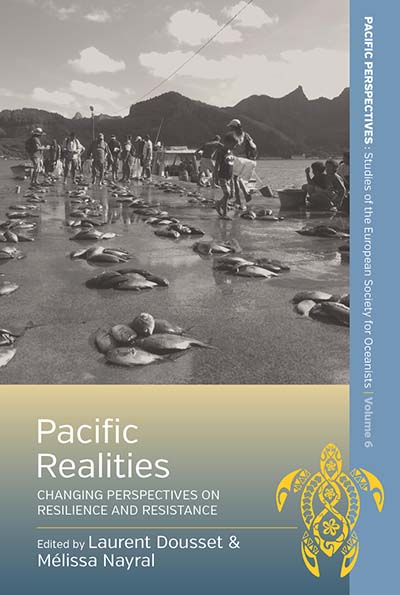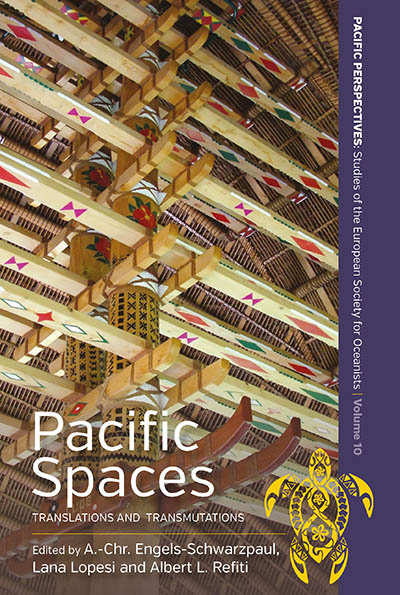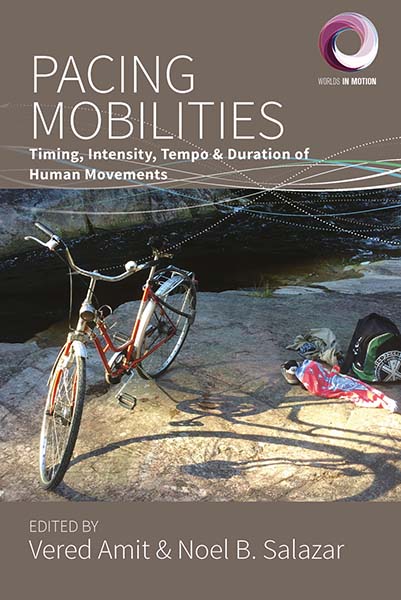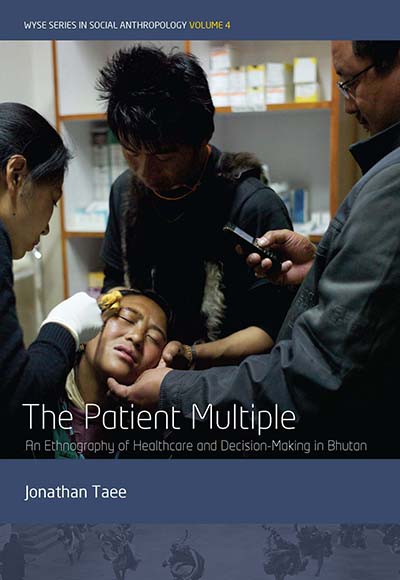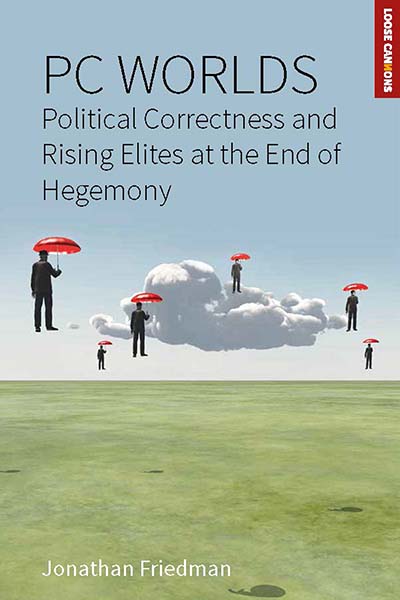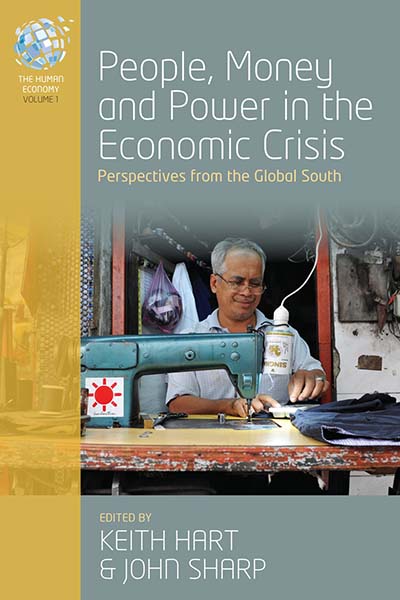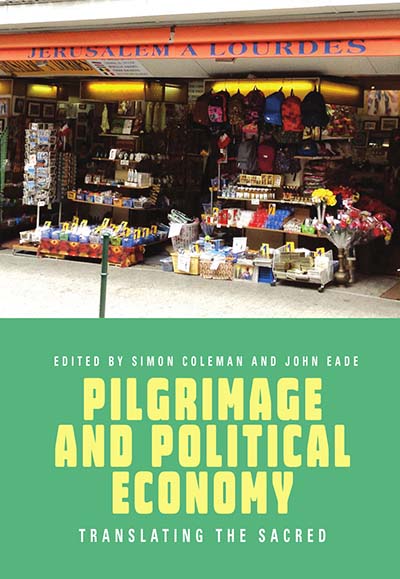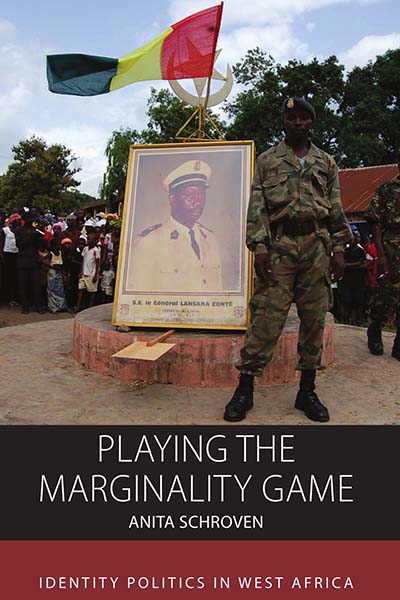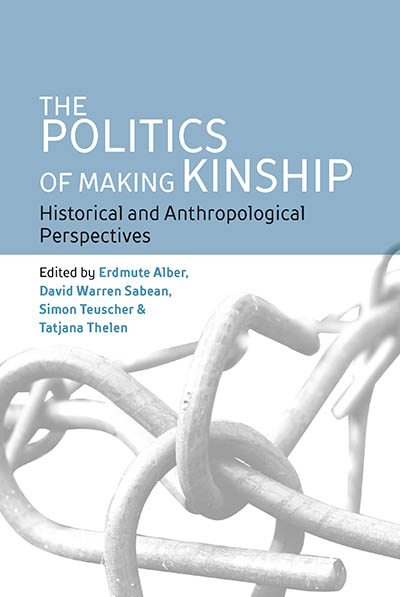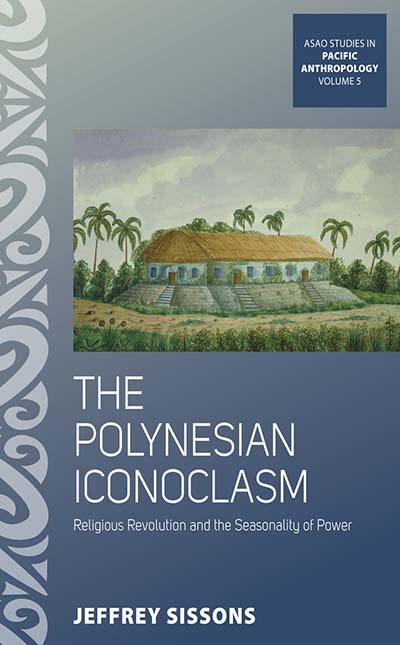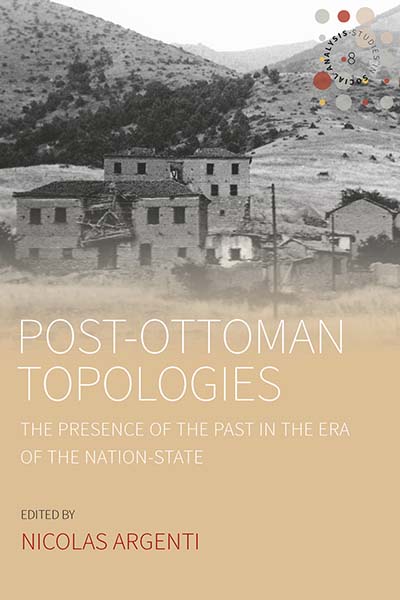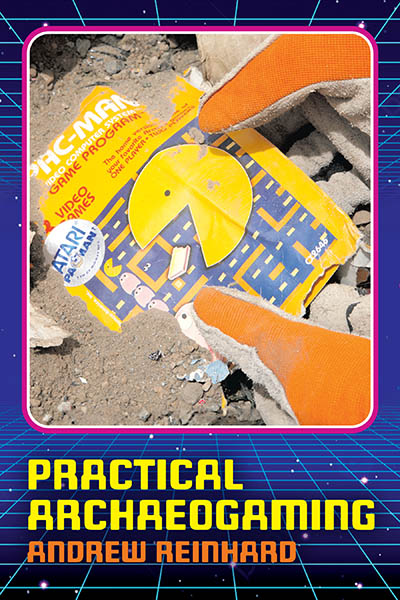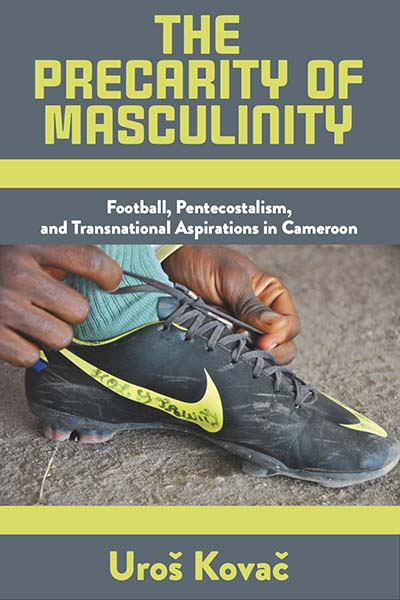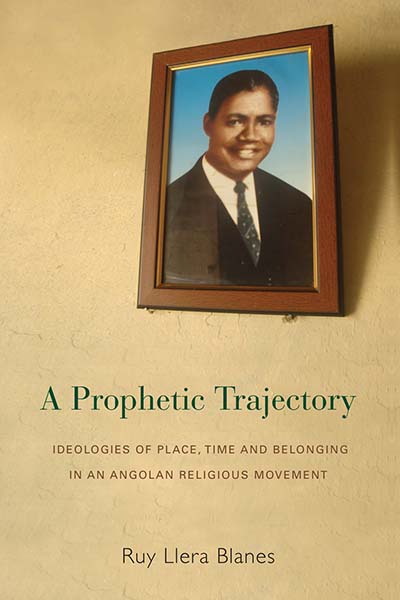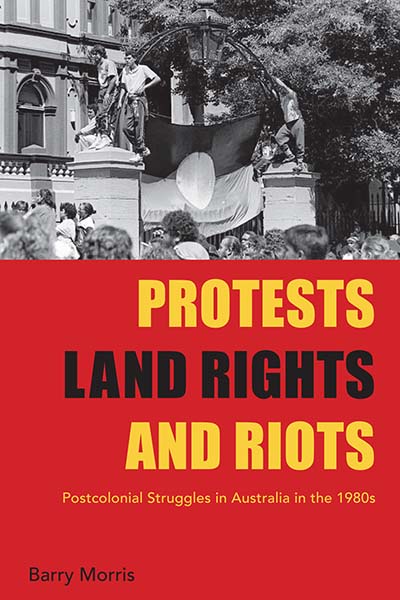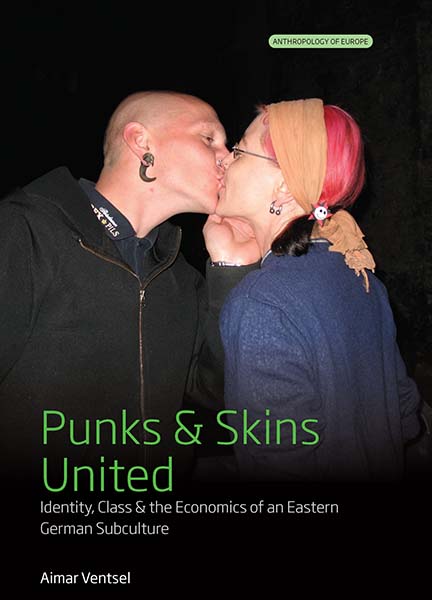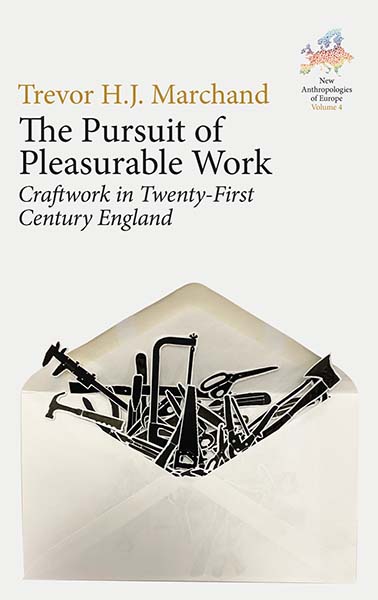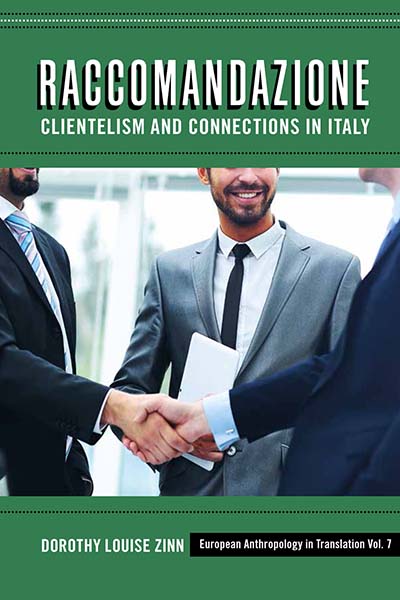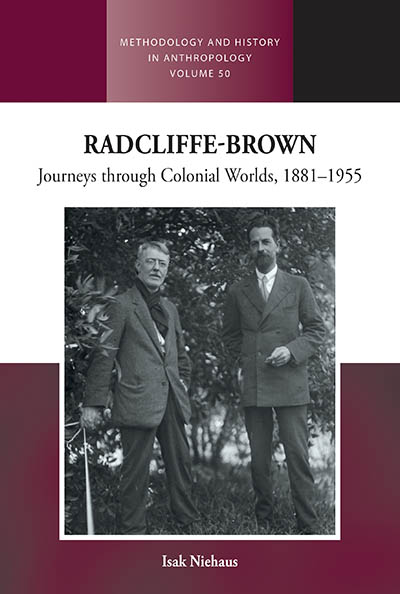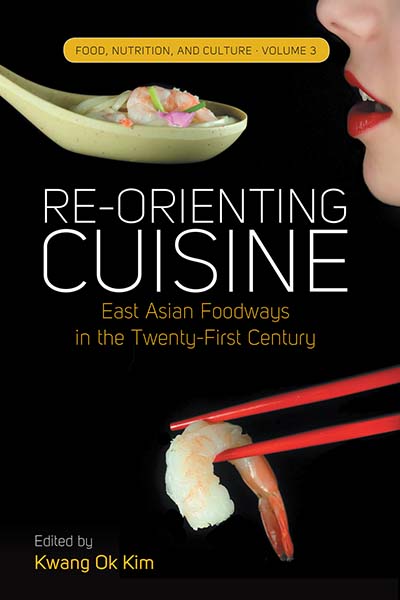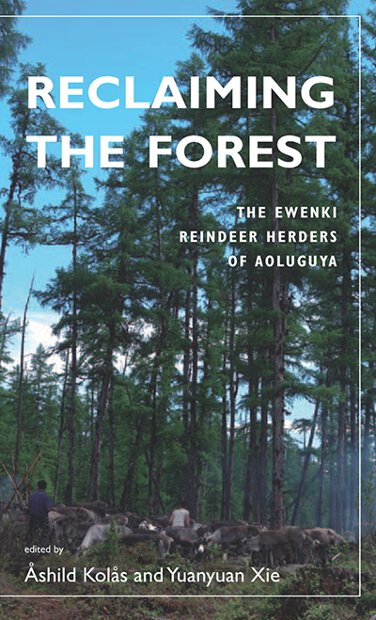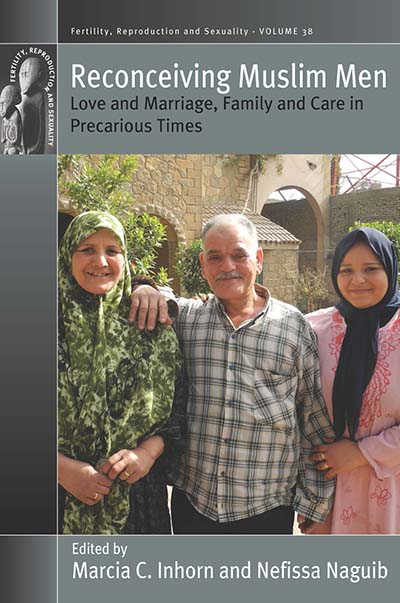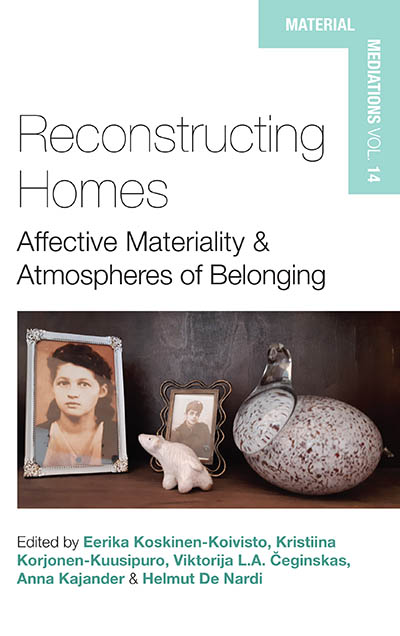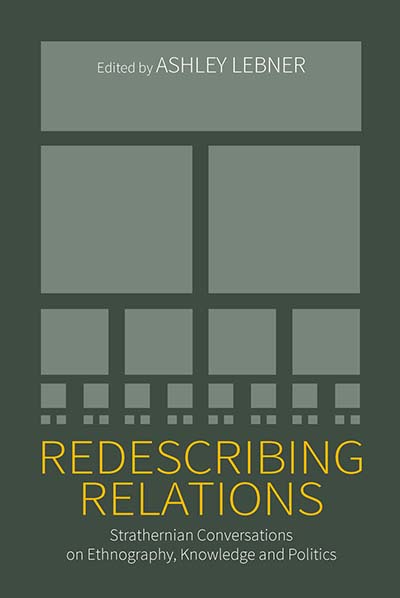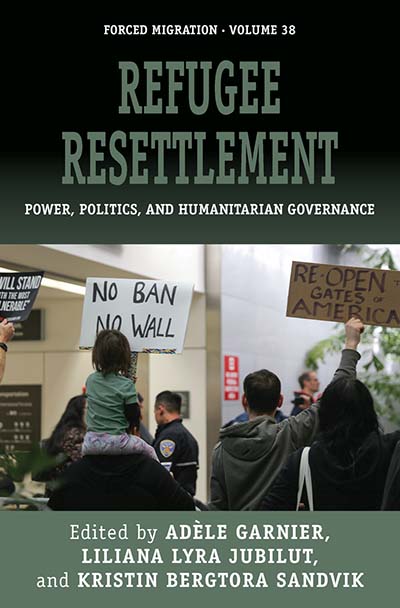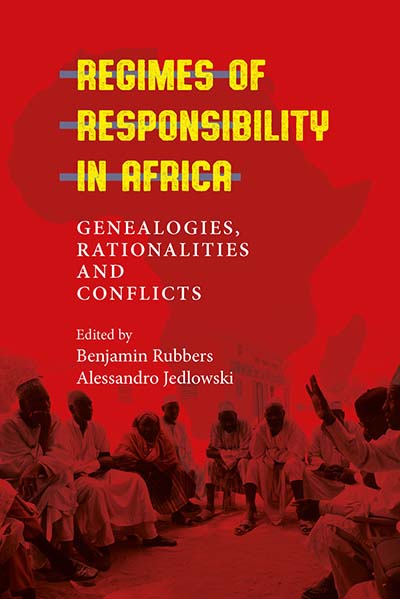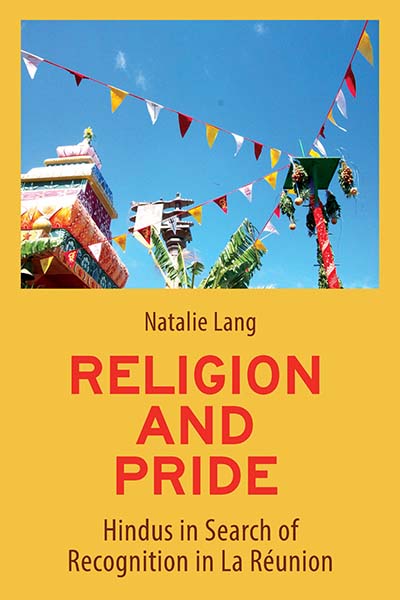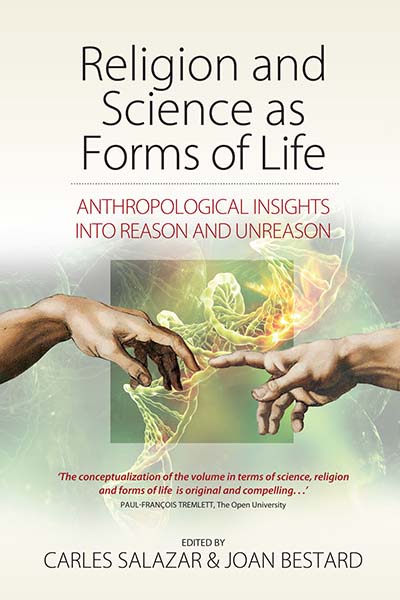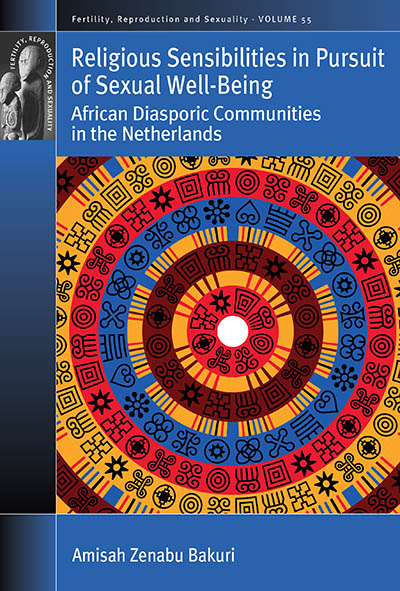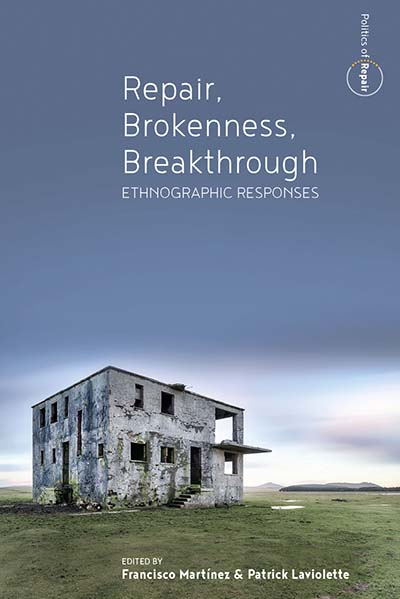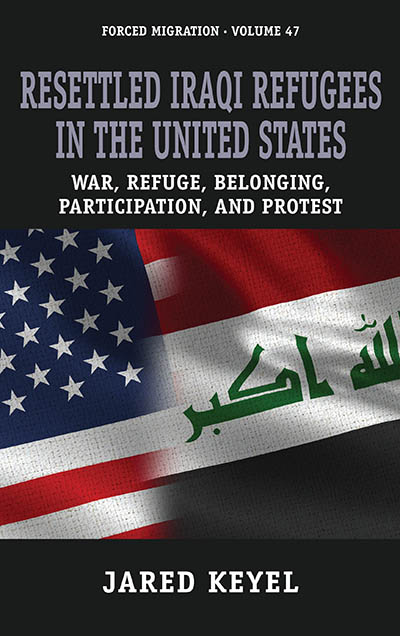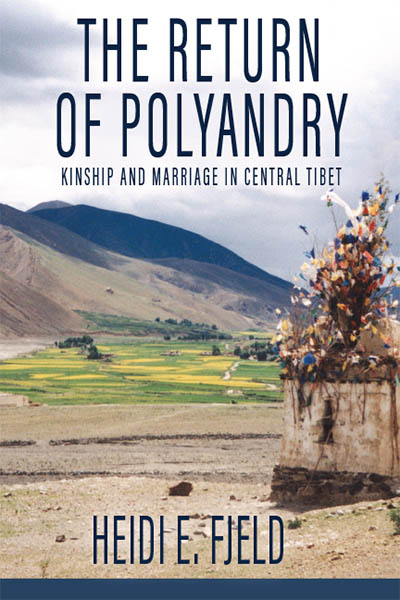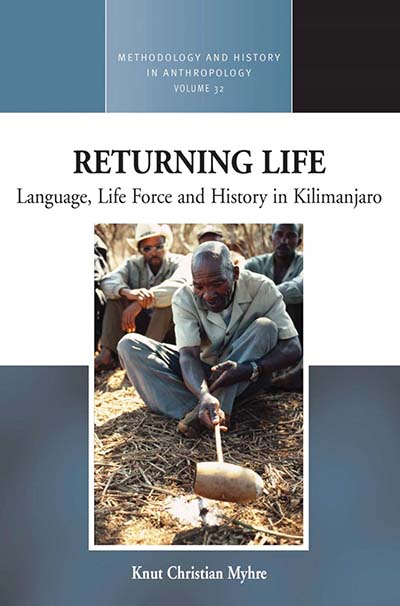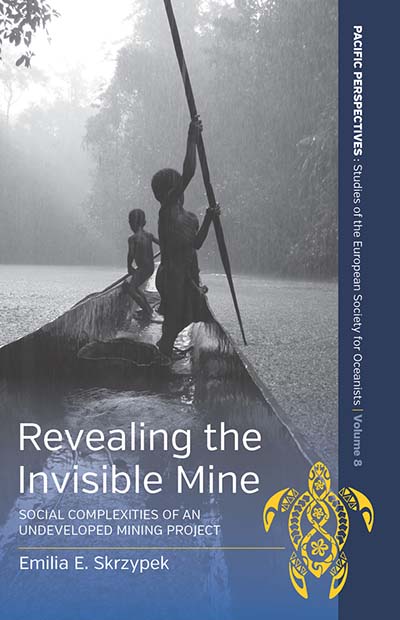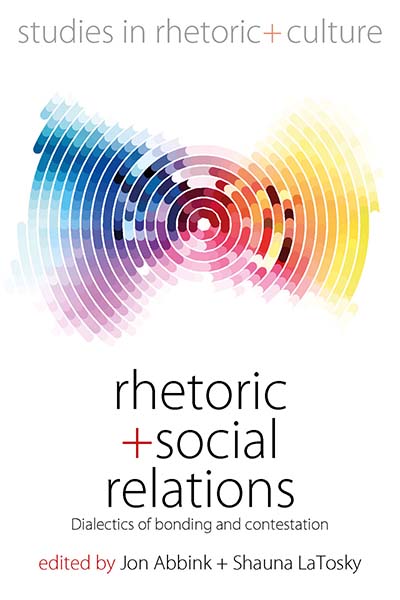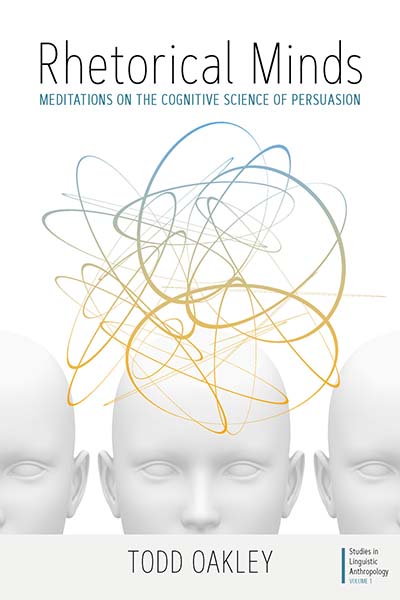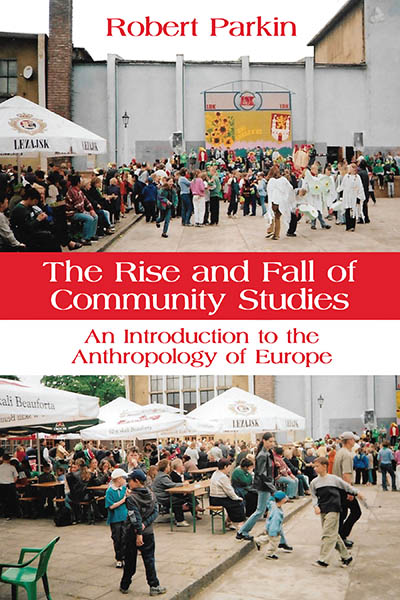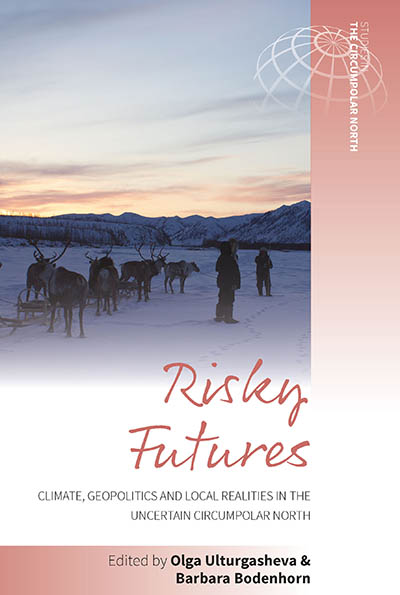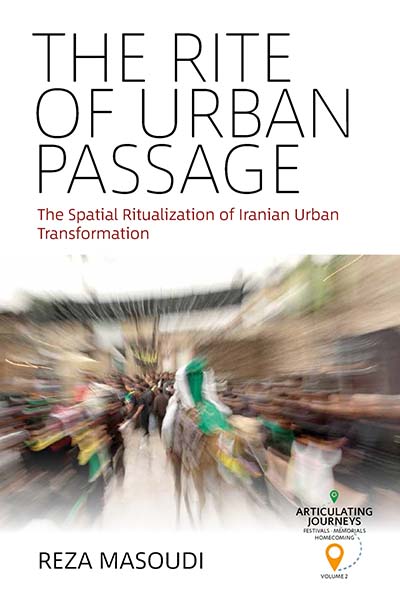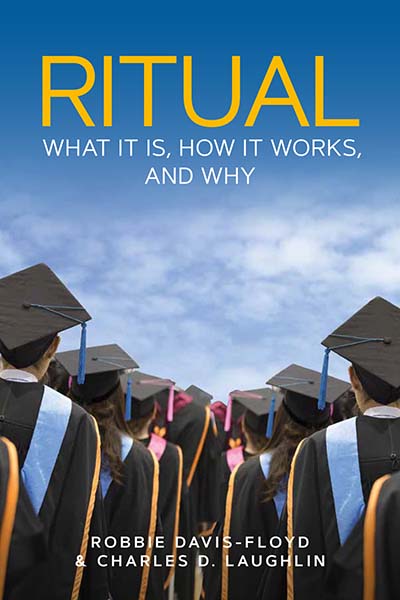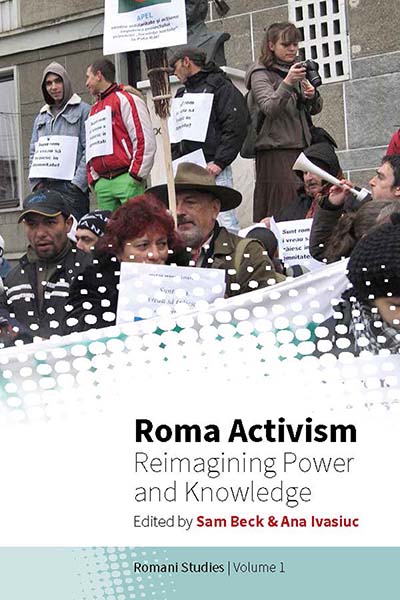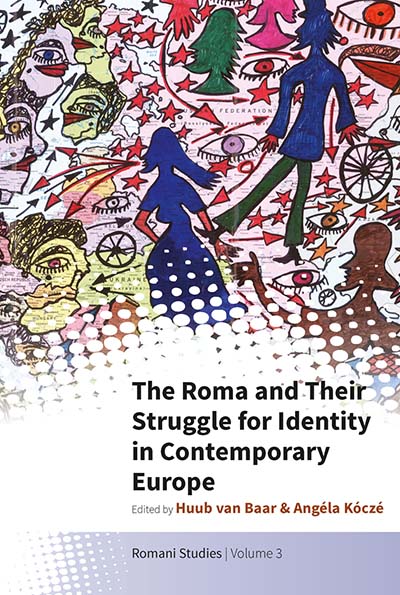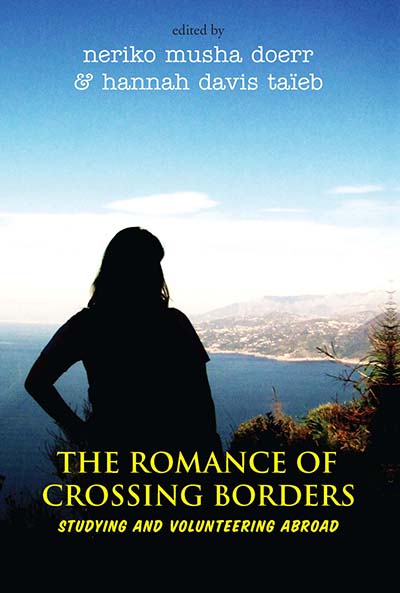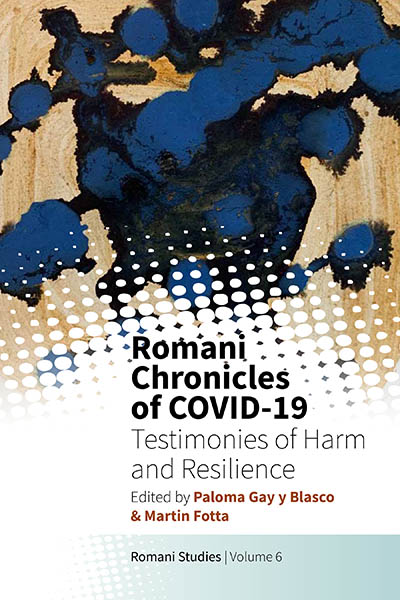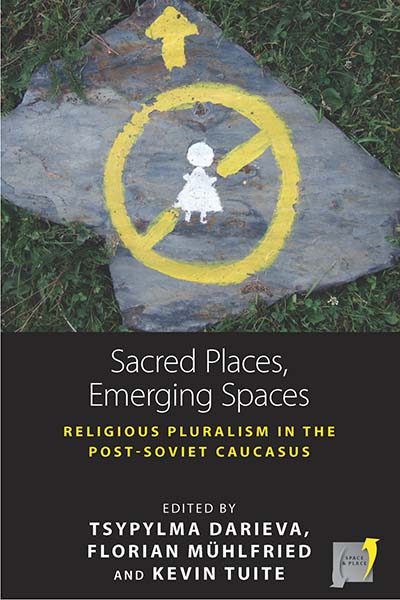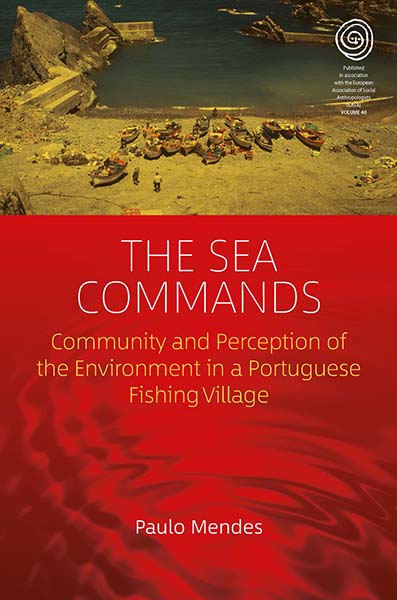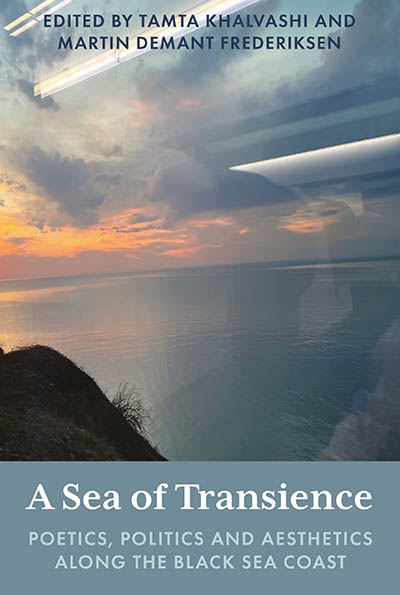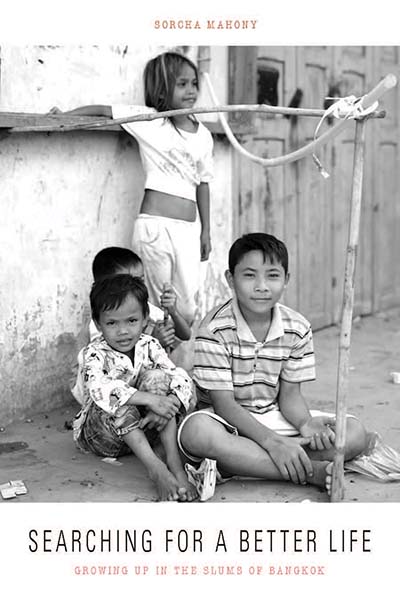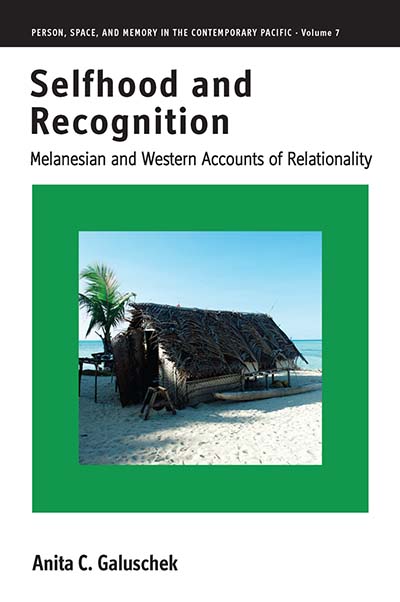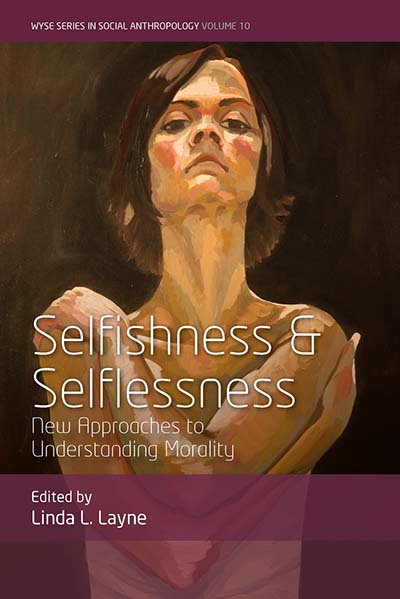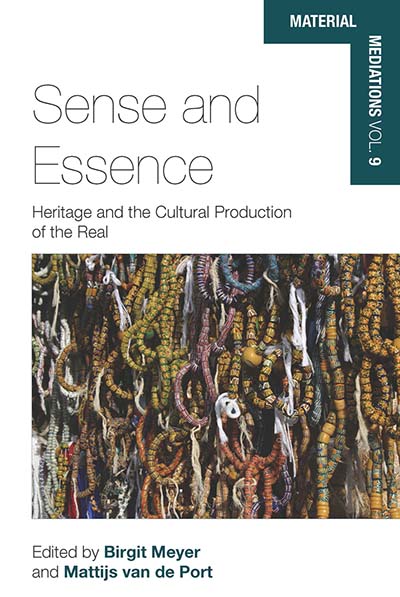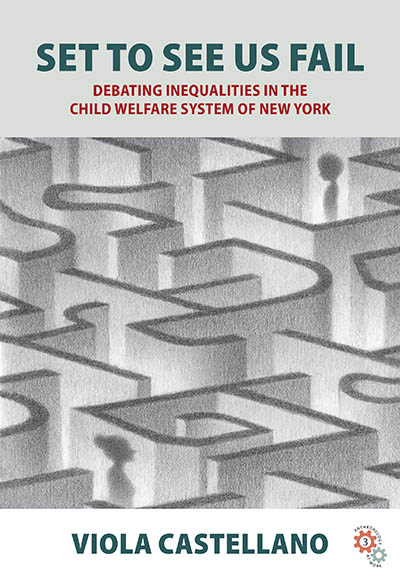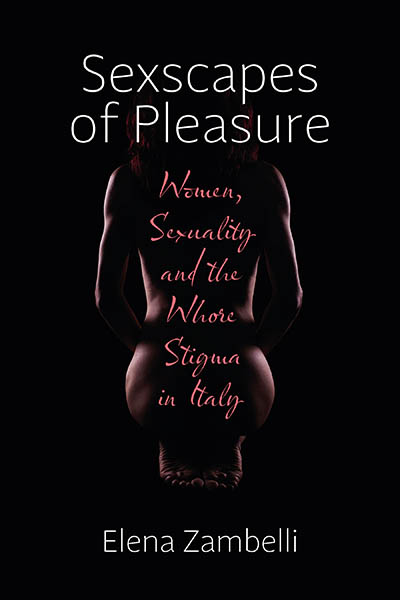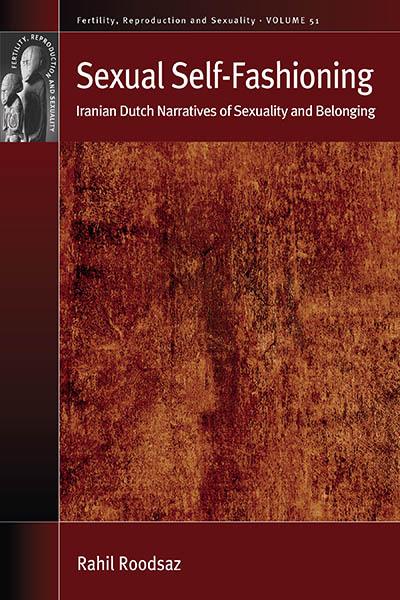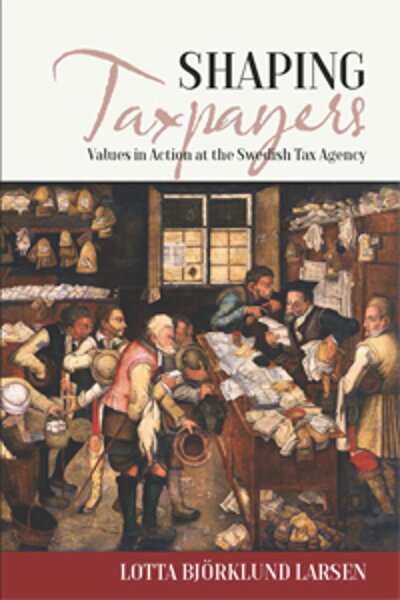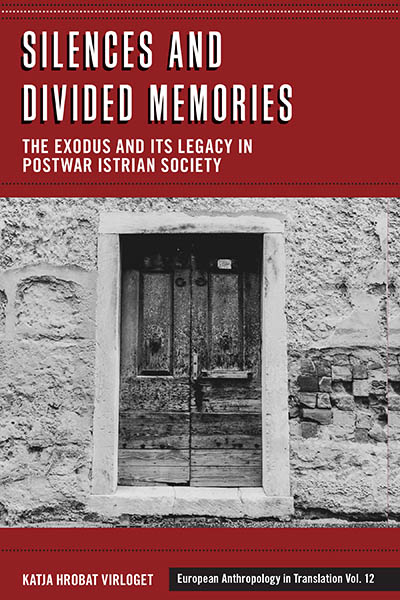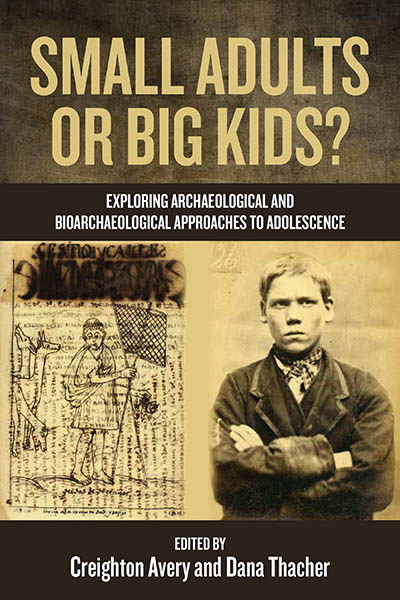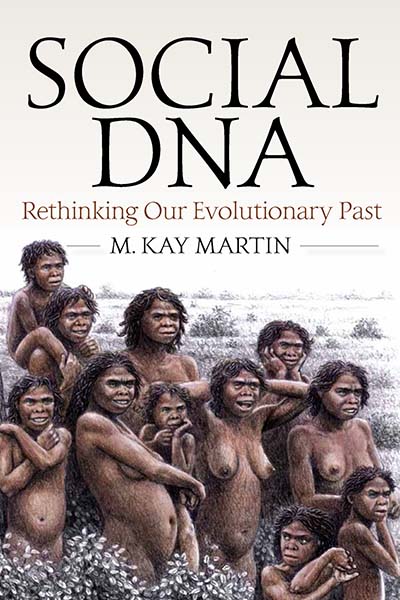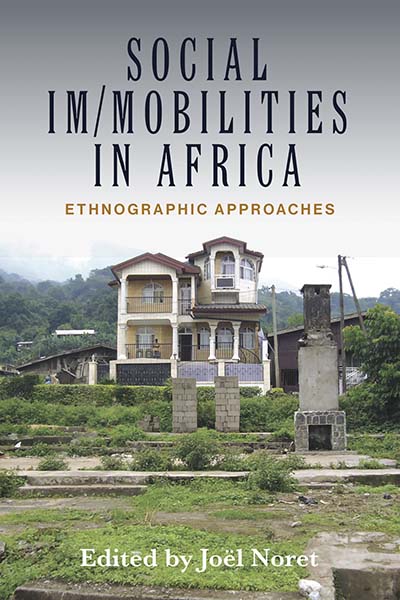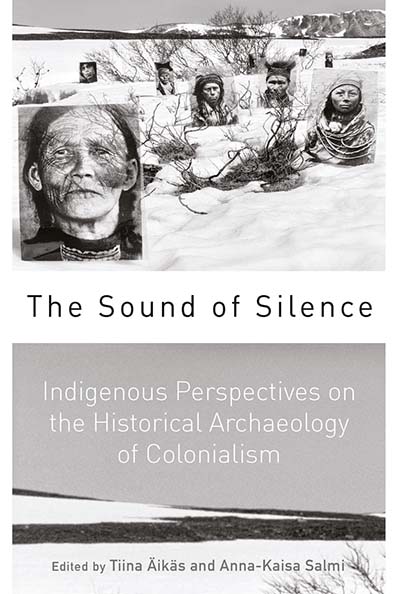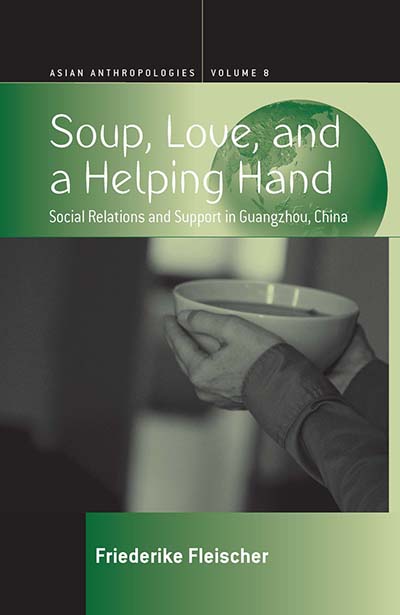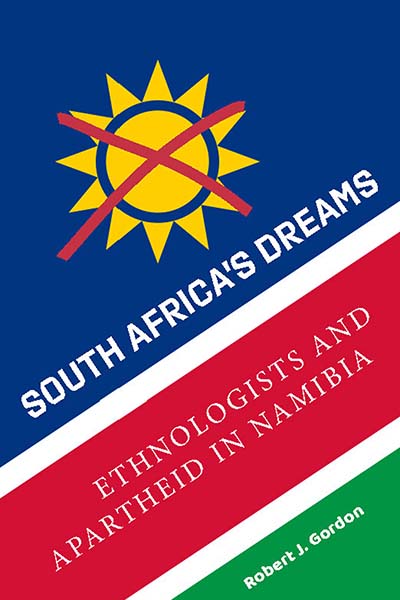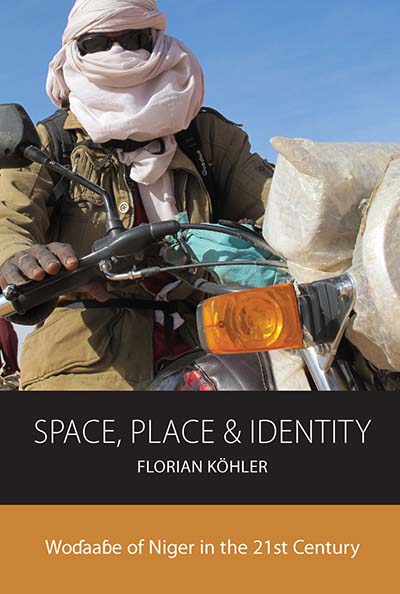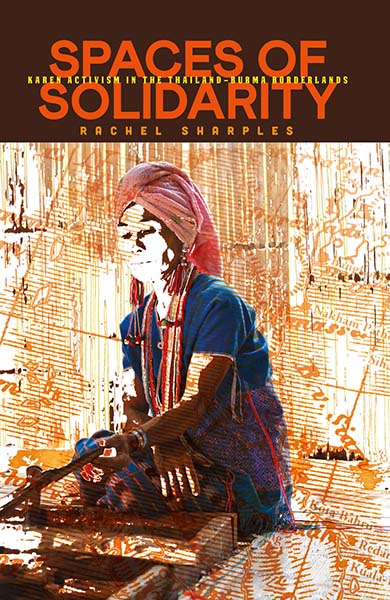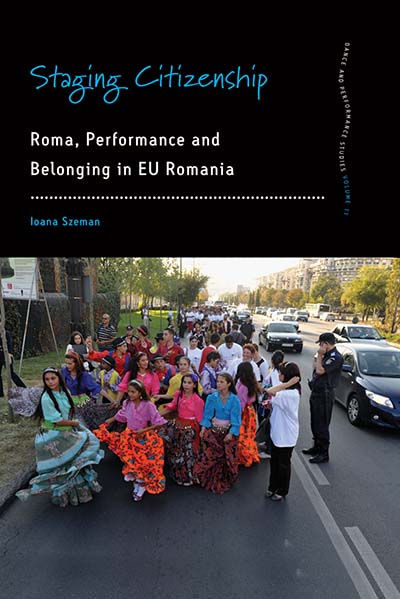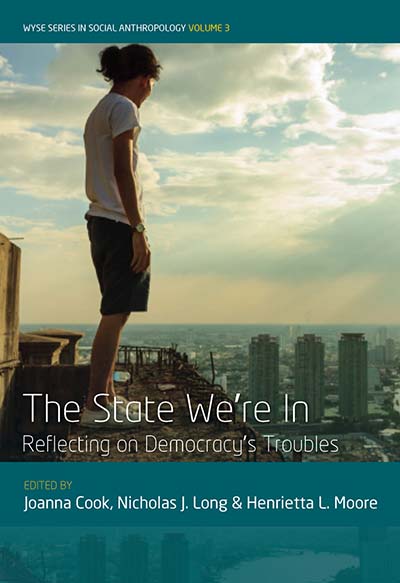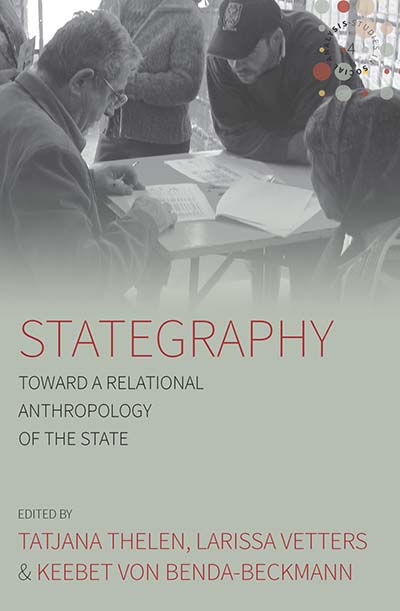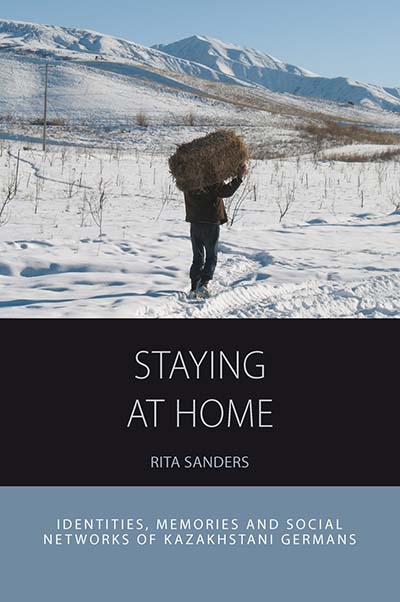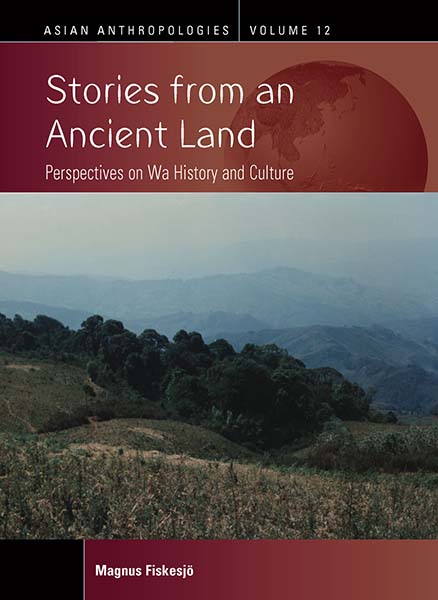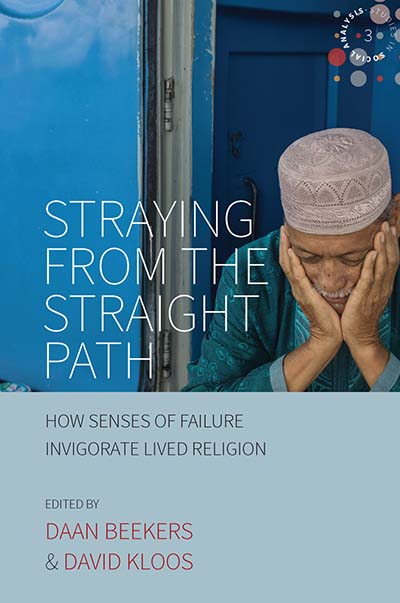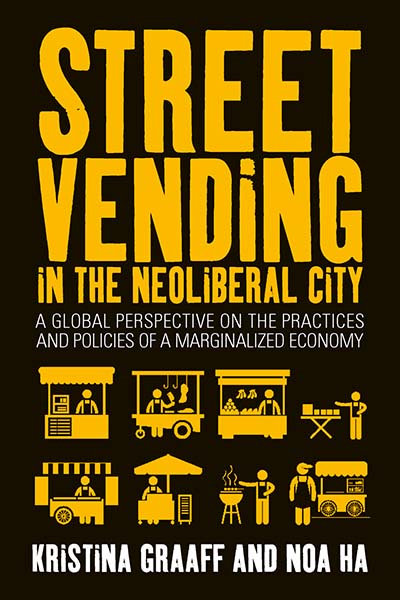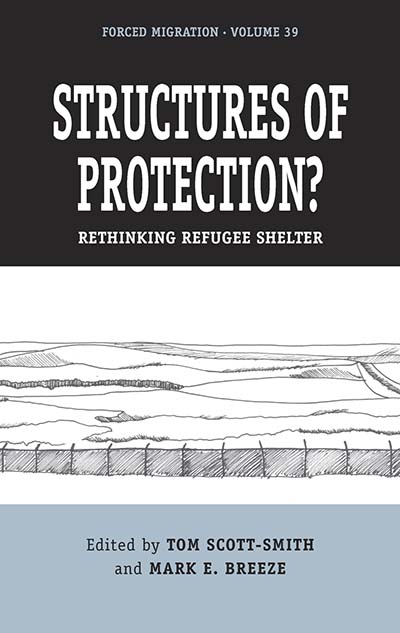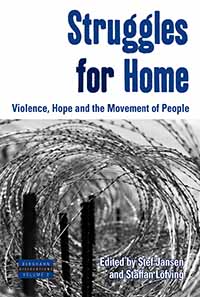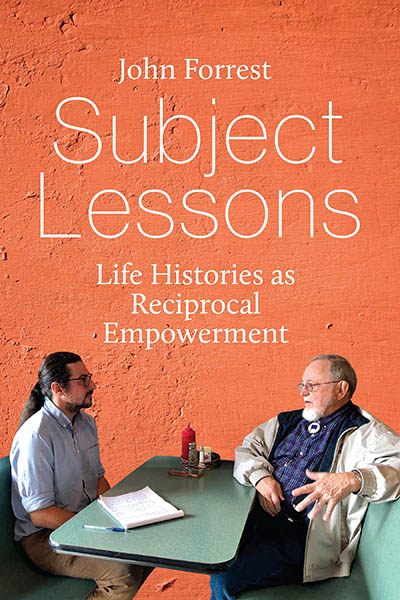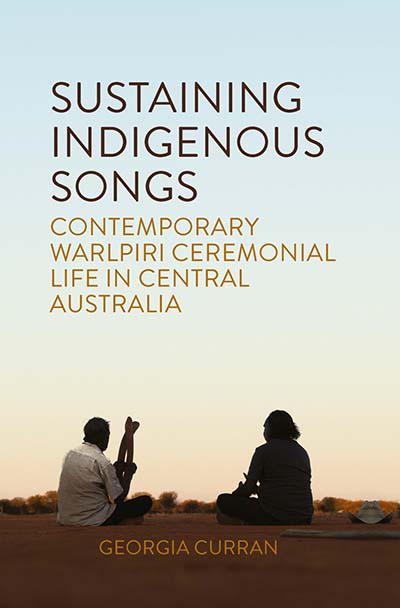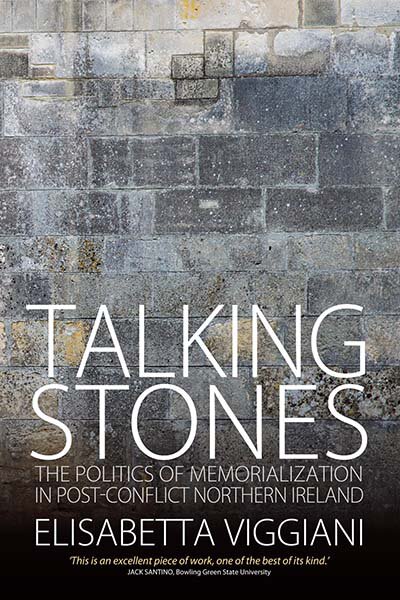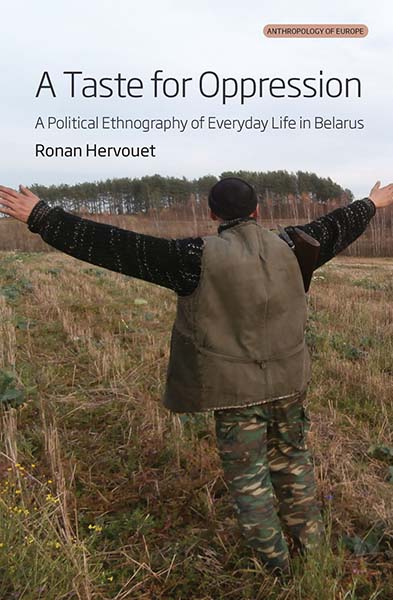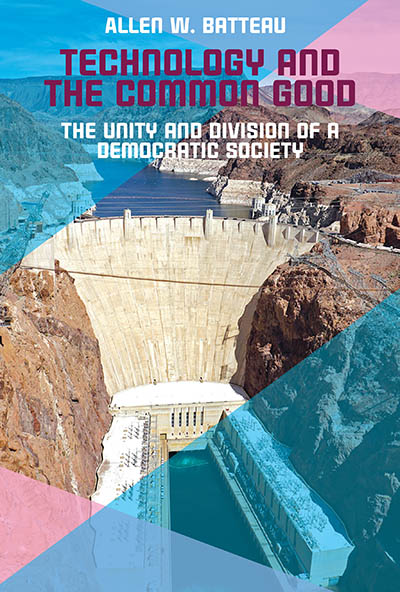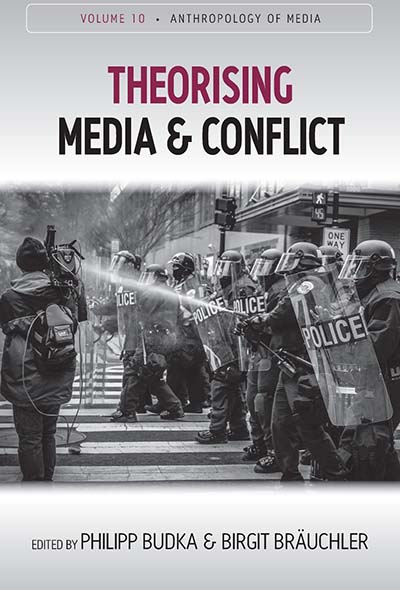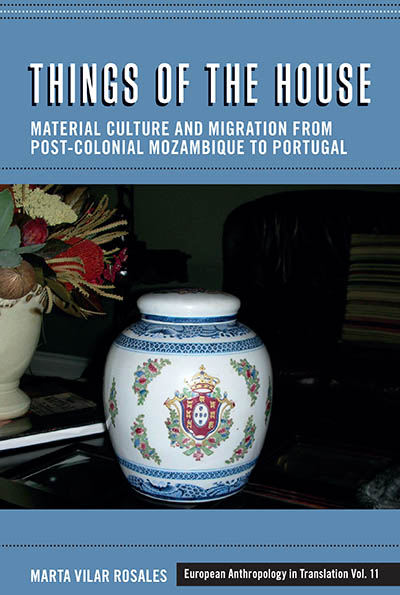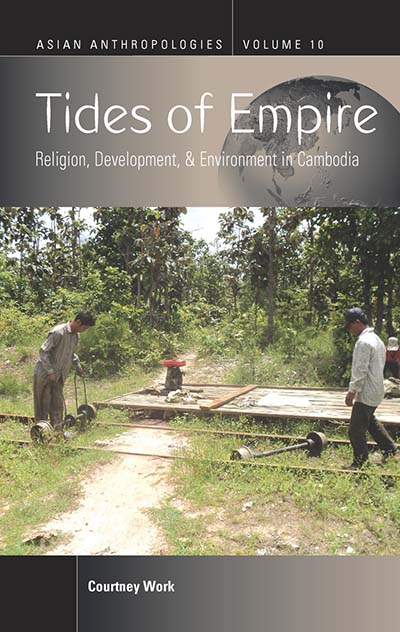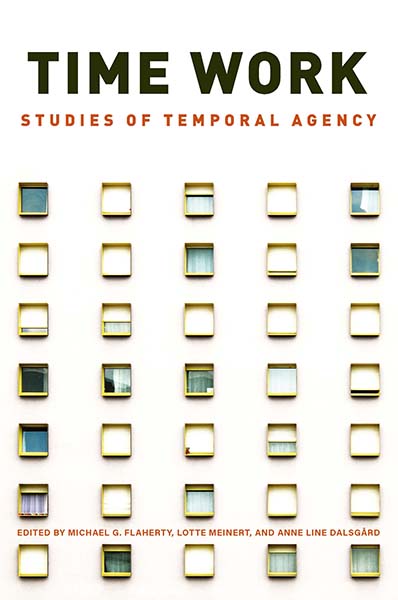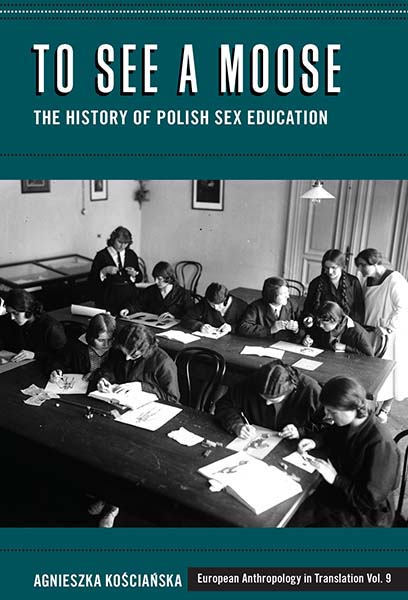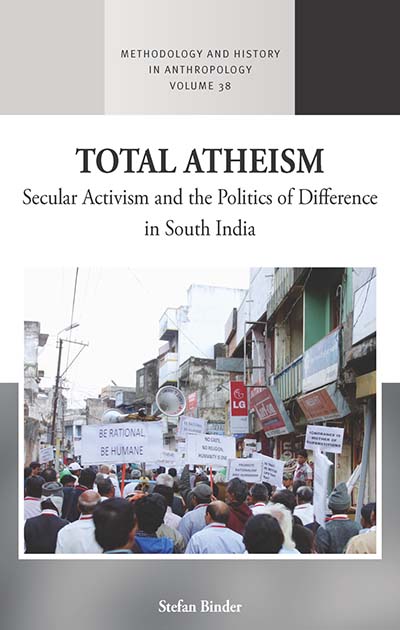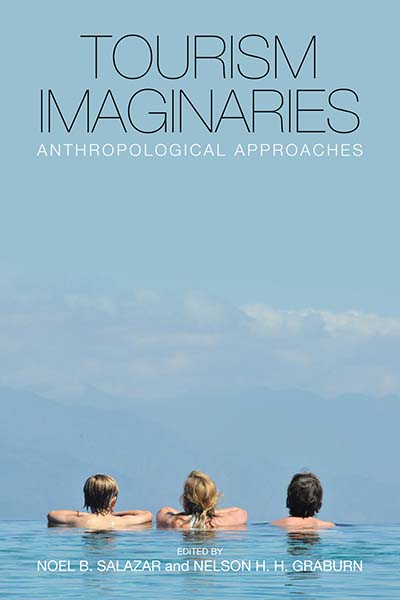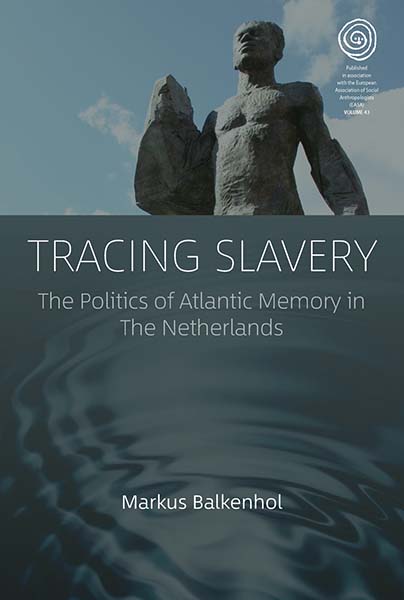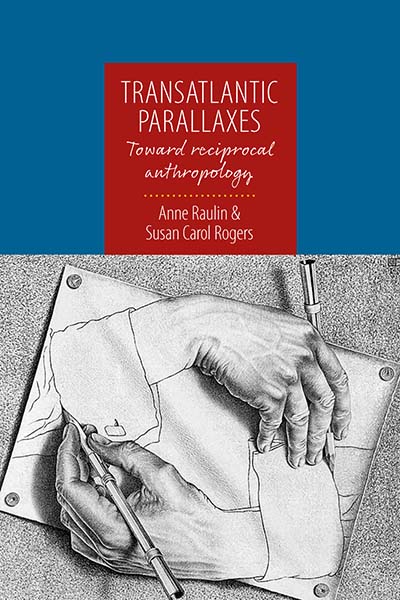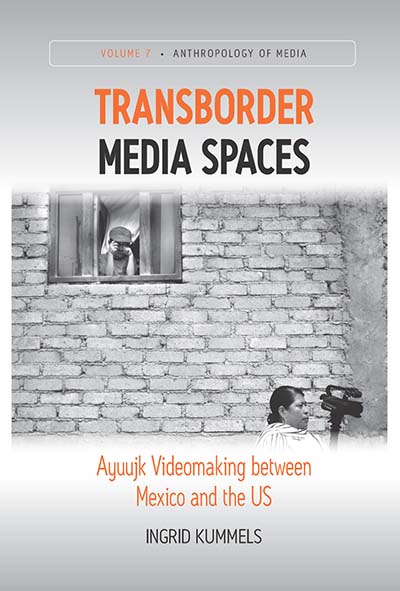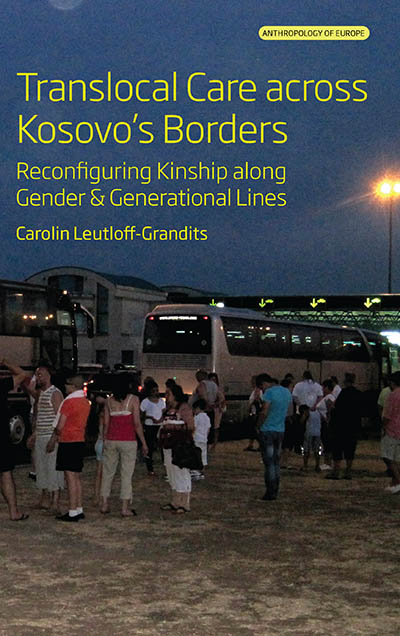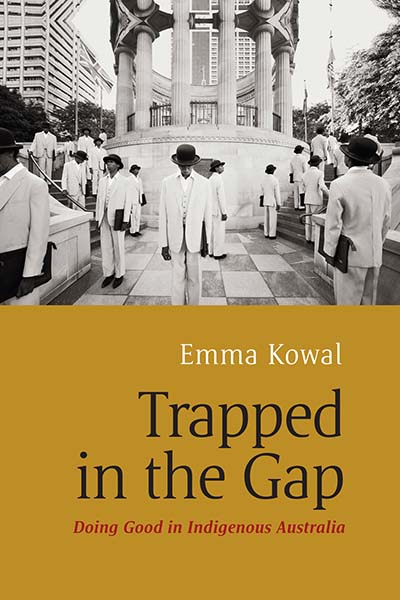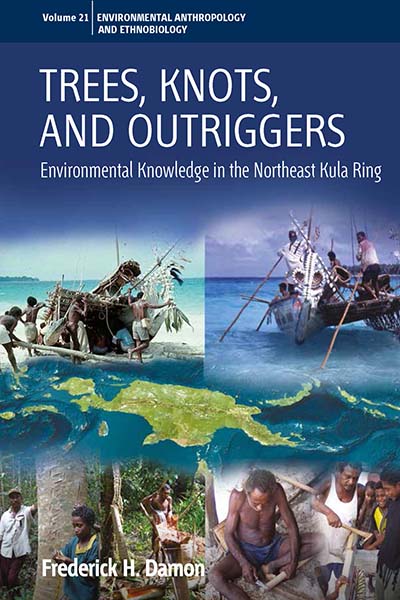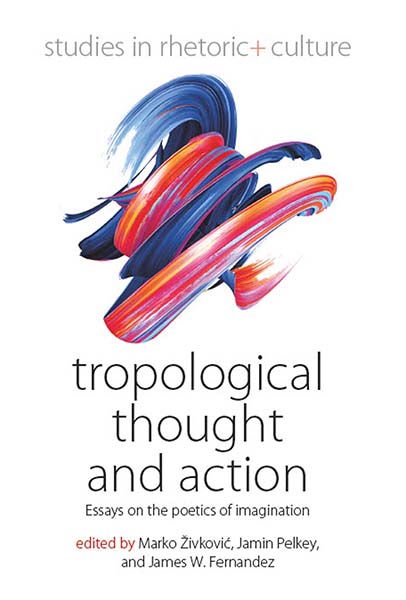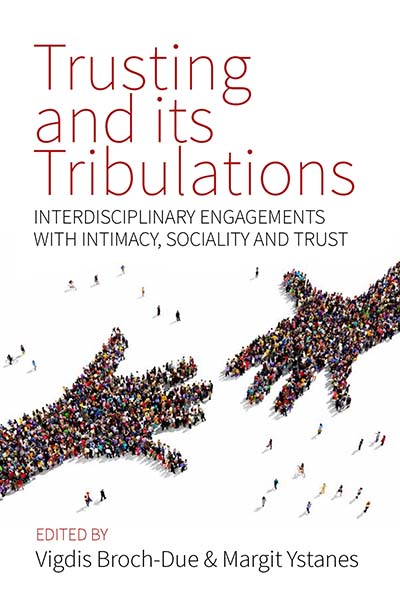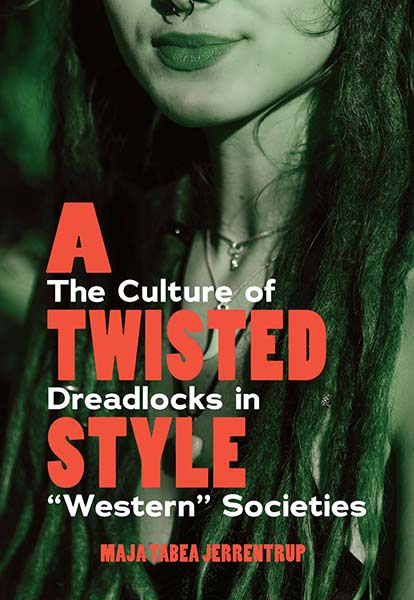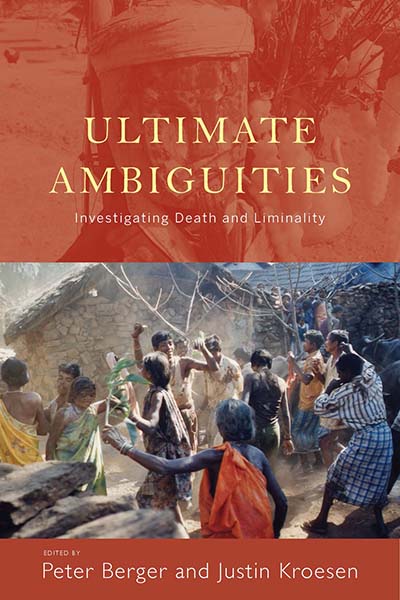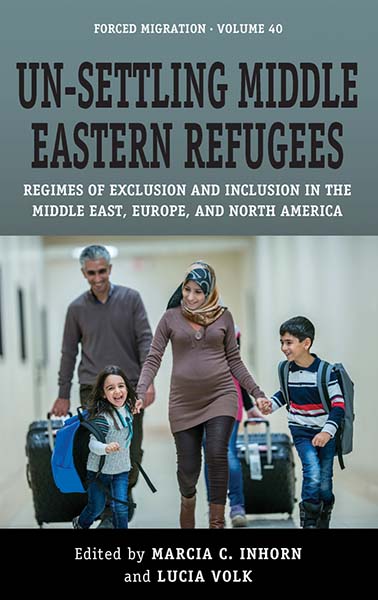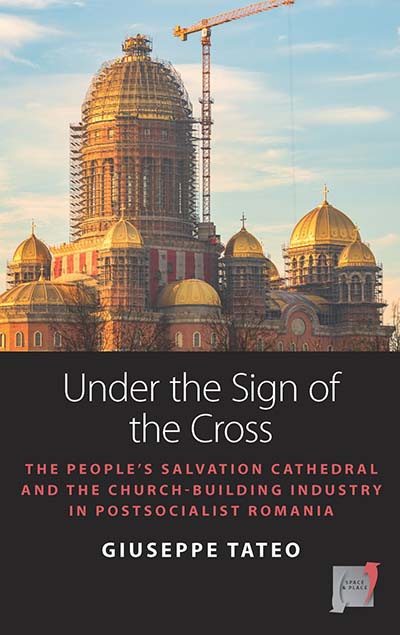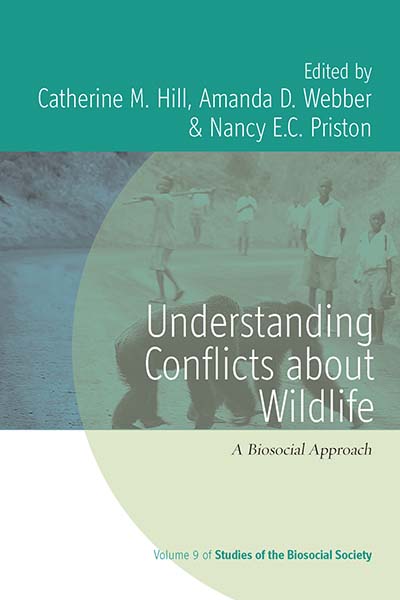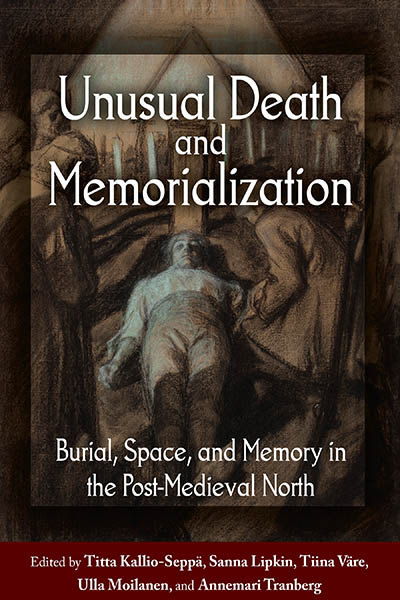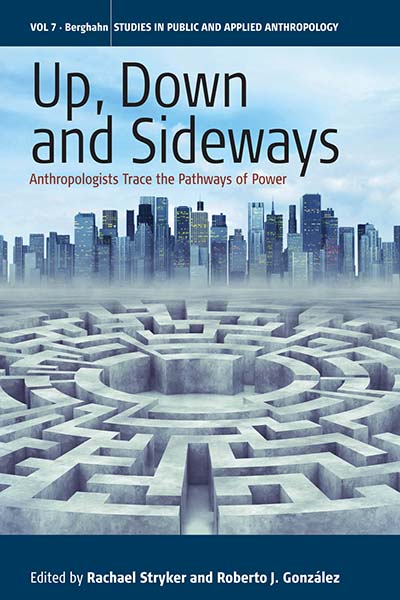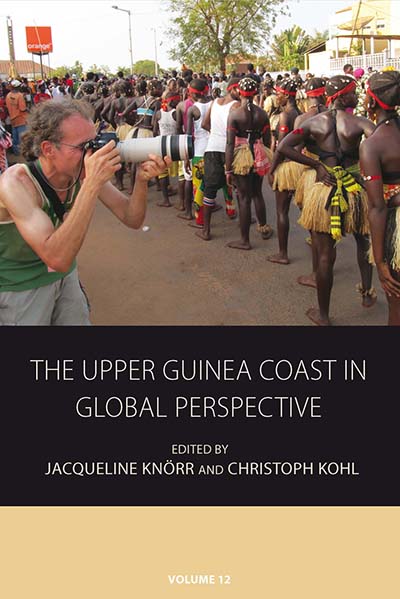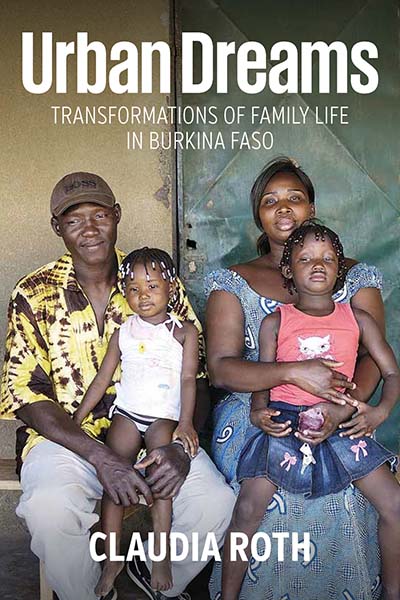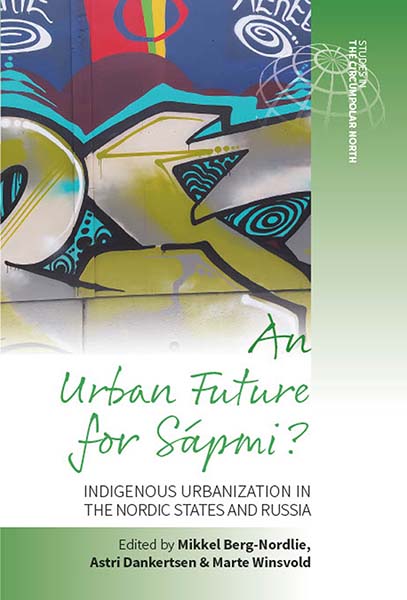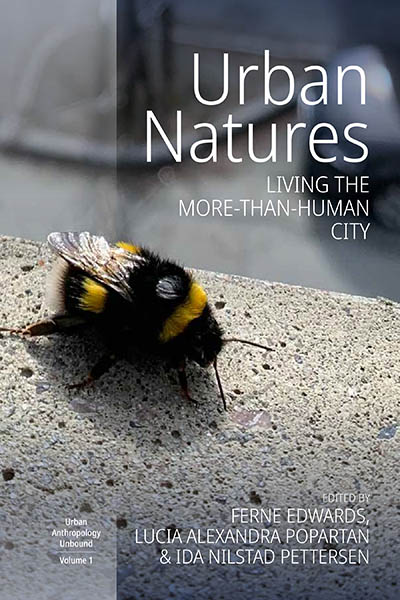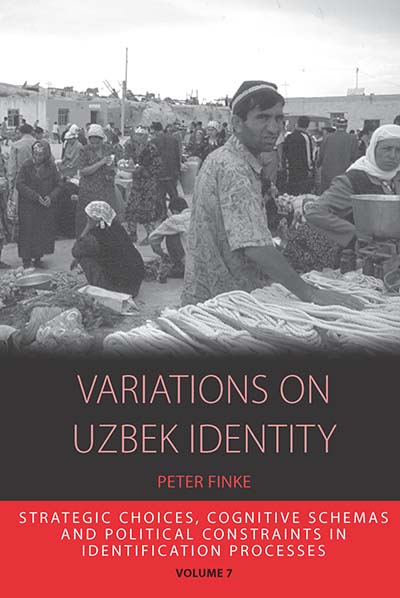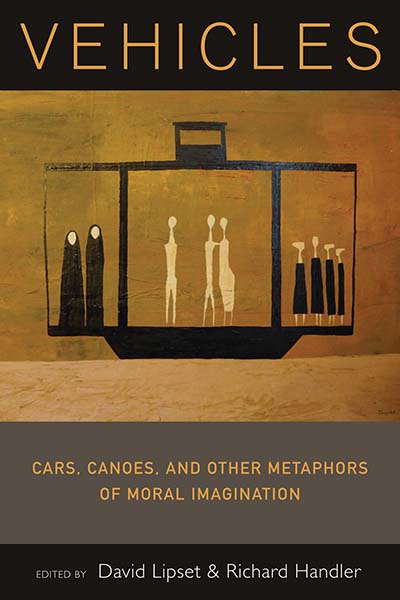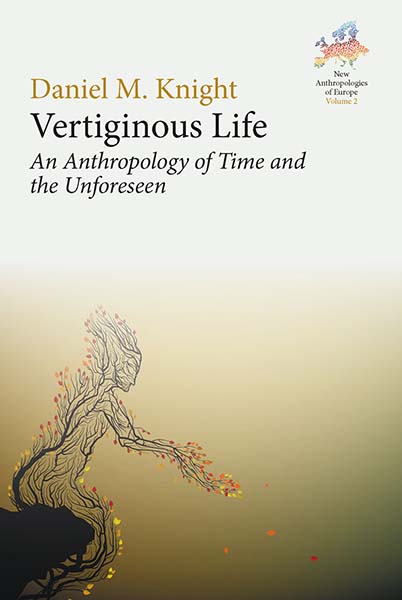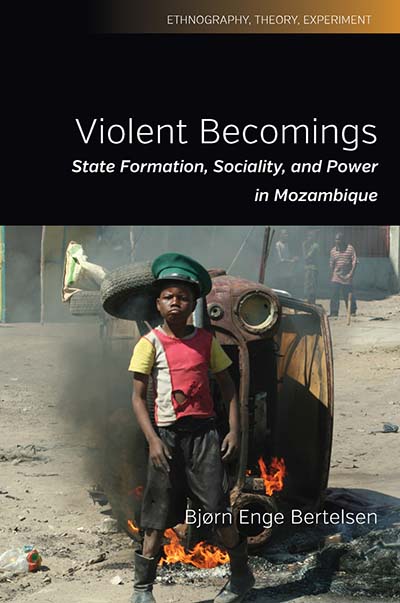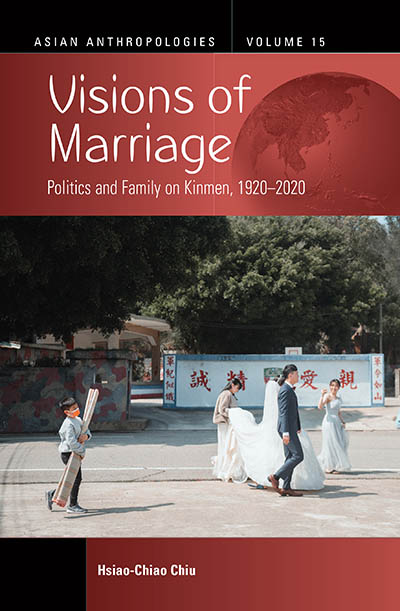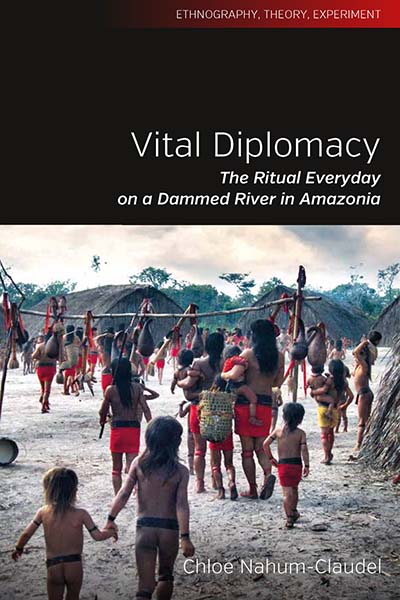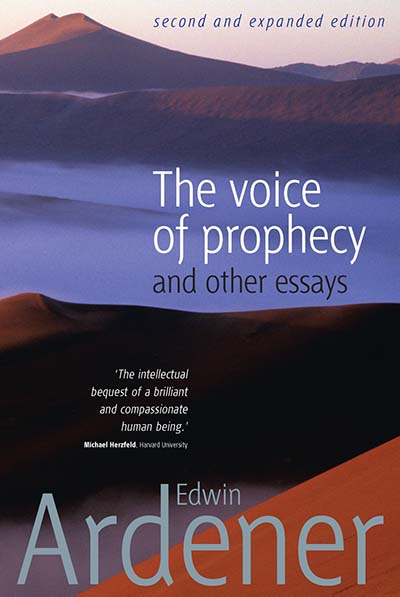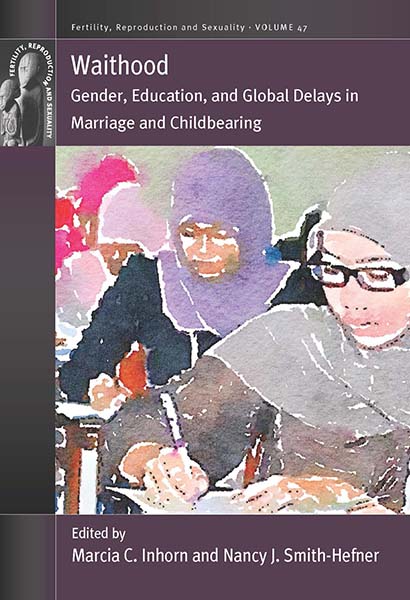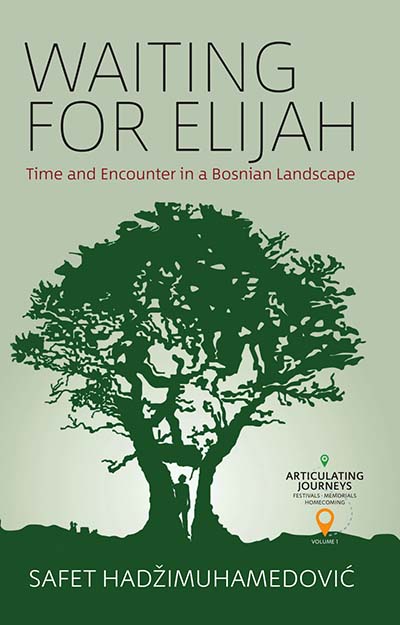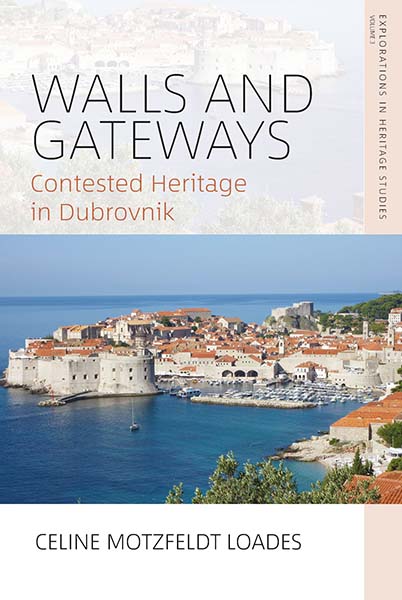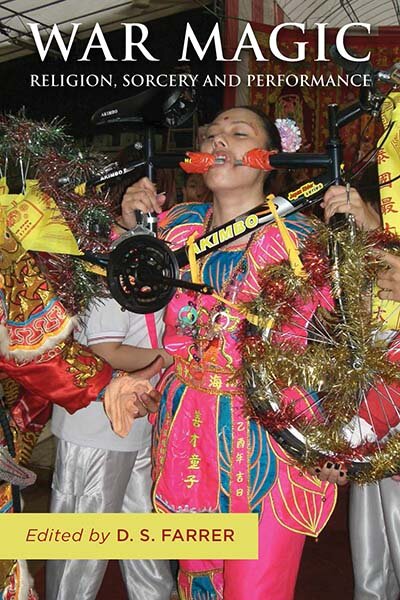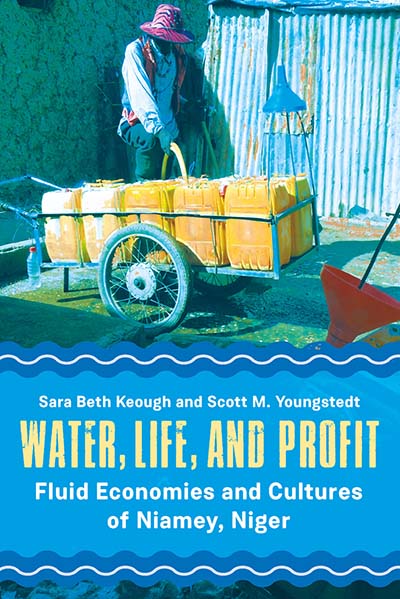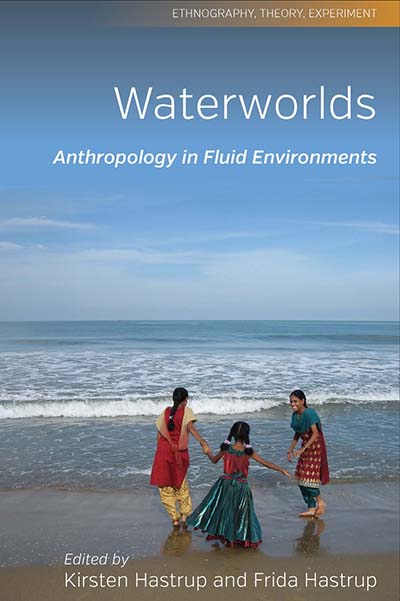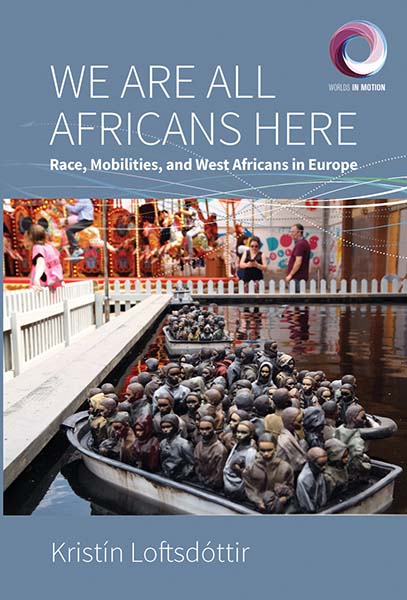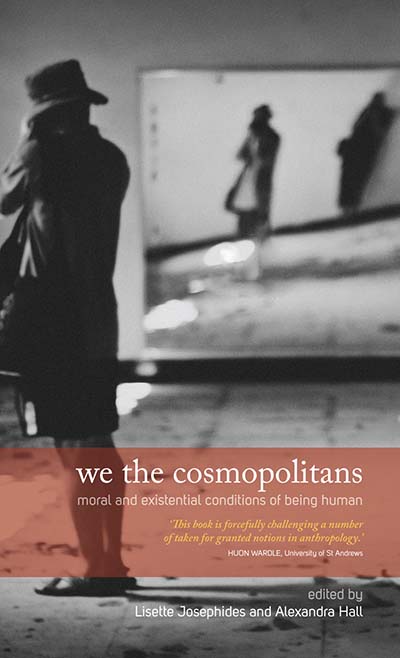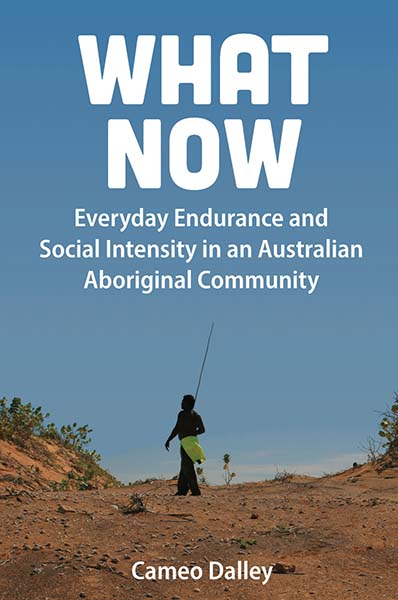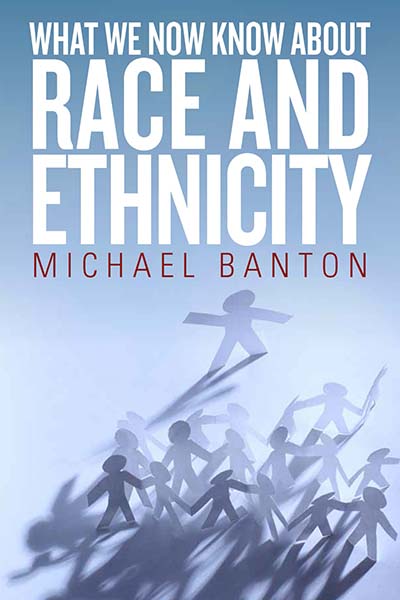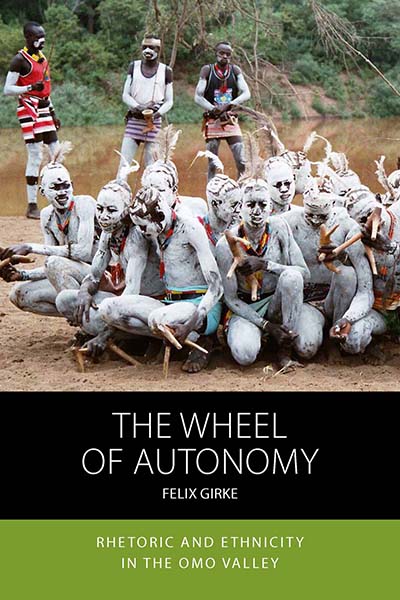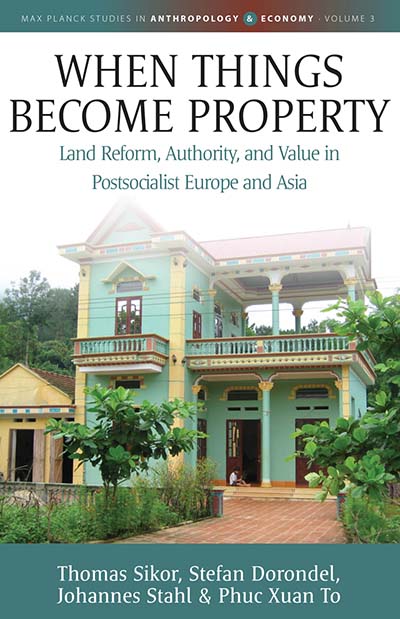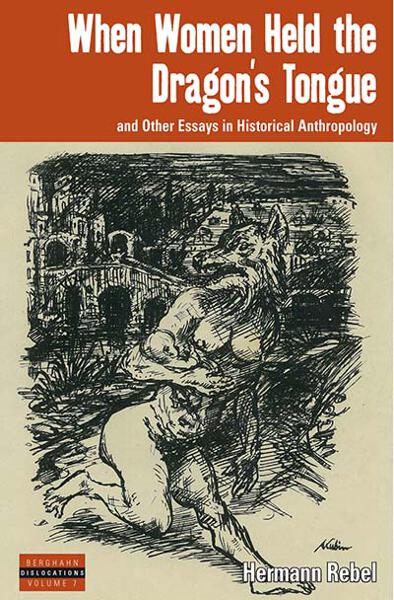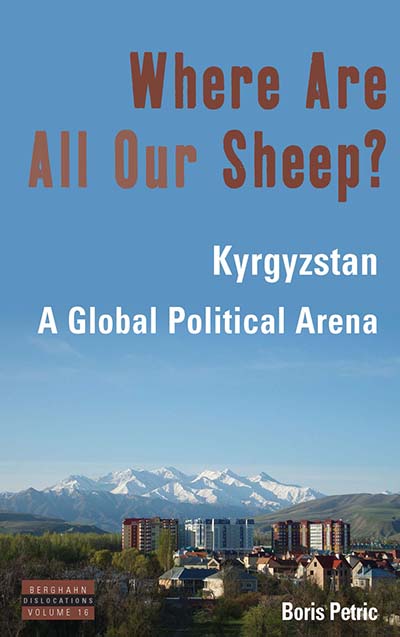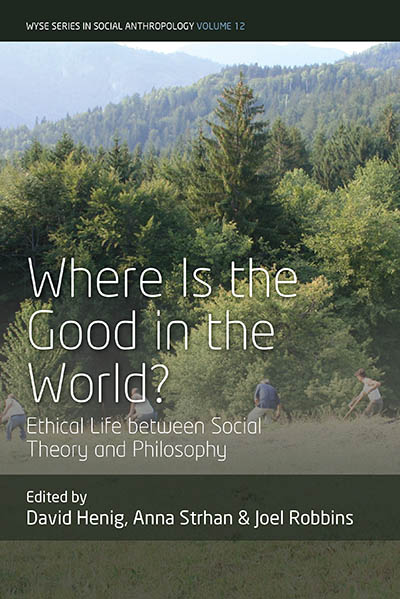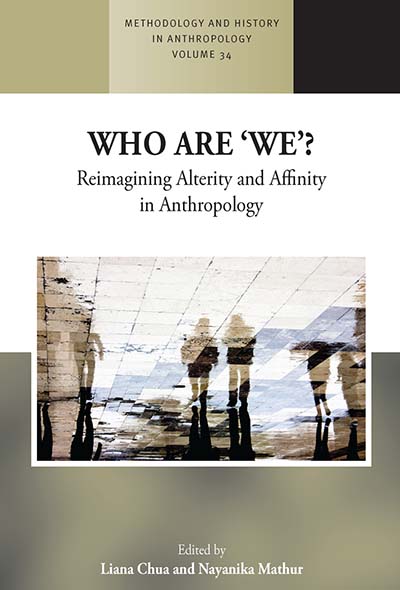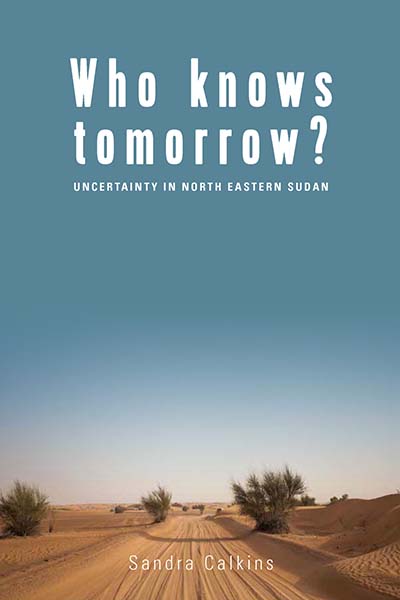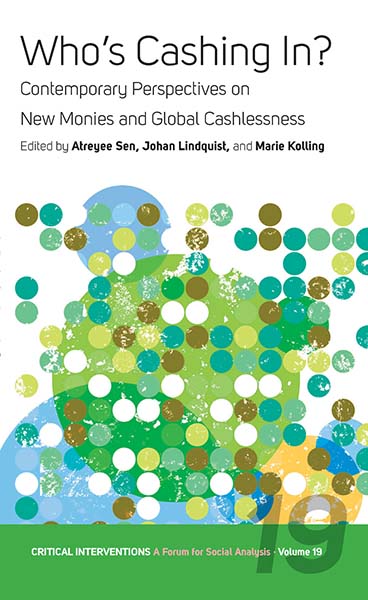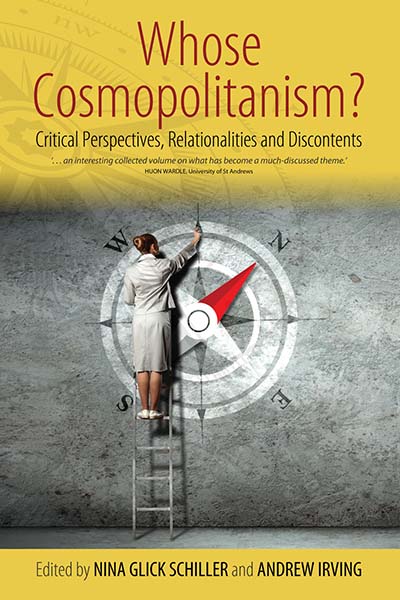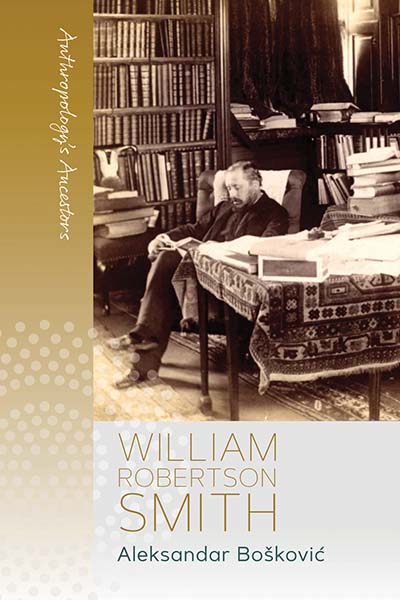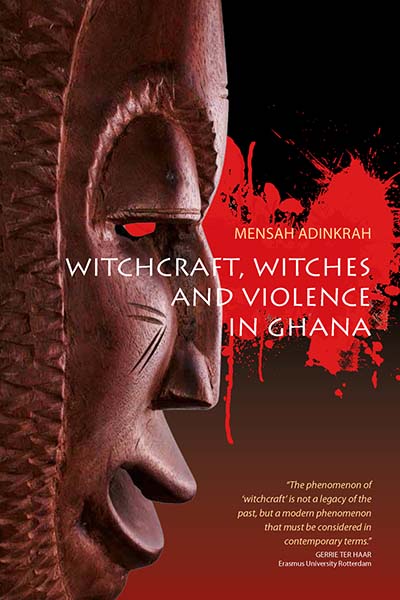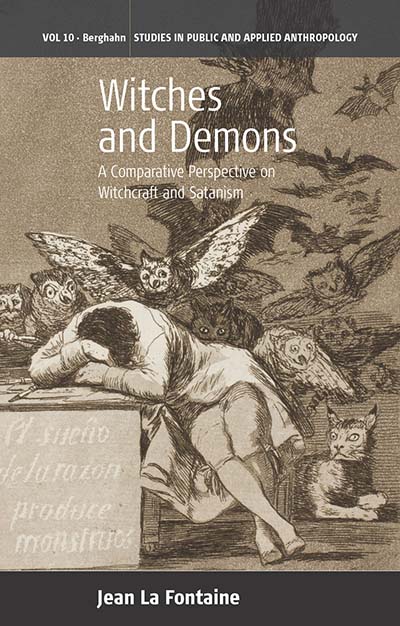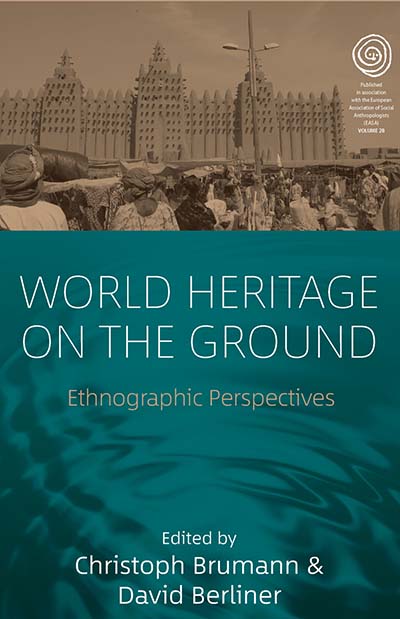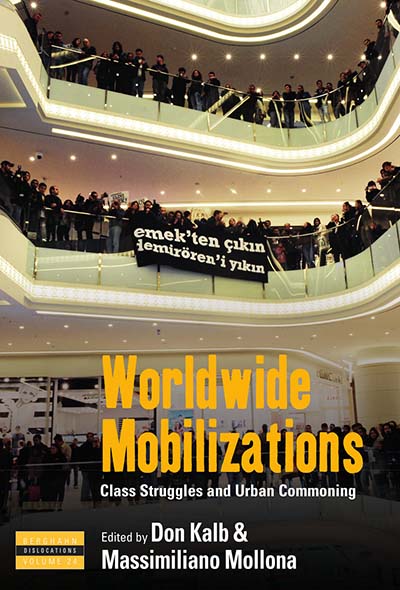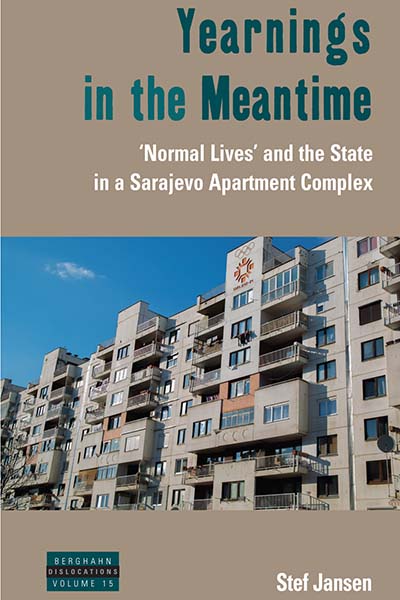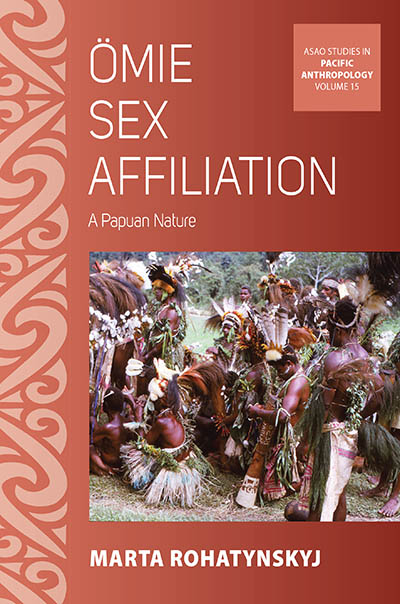Home -> Browse
-

‘I am Here’, Abraham Said
Emmanuel Levinas and Anthropological Science
Rapport, N.
Emmanuel Levinas’s philosophical work on ‘the Other’ offers a challenge to the discipline of anthropology that claims knowledge of the human. For Levinas, the ‘secrecy’ of subjectivity – a fundamental facet of the human condition – demands an ethics of ignorance and not-knowing; the mystery of otherness is only to be approached through ‘inspiration’. Can anthropology meet a Levinasian challenge if it would define itself as a science as well as a humanistic documentation of social life? This book endeavours to take Levinasian and anthropological precepts equally seriously and offers a radical conclusion.
Subjects: Theory and Methodology Anthropology (General)
-

24 Bars to Kill
Hip Hop, Aspiration, and Japan's Social Margins
Armstrong, A. B.
The most clearly identifiable and popular form of Japanese hip-hop, “ghetto” or “gangsta” music has much in common with its corresponding American subgenres, including its portrayal of life on the margins, confrontational style, and aspirational “rags-to-riches” narratives. Contrary to depictions of an ethnically and economically homogeneous Japan, gangsta J-hop gives voice to the suffering, deprivation, and social exclusion experienced by many modern Japanese. 24 Bars to Kill offers a fascinating ethnographic account of this music as well as the subculture around it, showing how gangsta hip-hop arises from widespread dissatisfaction and malaise.
Subjects: Performance Studies Anthropology (General) Cultural Studies (General)
Area: Asia-Pacific
-

Abortion in Asia
Local Dilemmas, Global Politics
Whittaker, A. (ed)
The issue of abortion forces a confrontation with the effects of poverty and economic inequalities, local moral worlds, and the cultural and social perceptions of the female body, gender, and reproduction. Based on extensive original field research, this provocative collection presents case studies from Thailand, Cambodia, Burma, Vietnam, Bangladesh, Indonesia, and India. It includes powerful insight into the conditions and hard choices faced by women and the circumstances surrounding unplanned pregnancies. It explores the connections among poverty, violence, barriers to access, and the politics and strategies involved in abortion law reform. The contributors analyze these issues within the broader conflicts surrounding women's status, gender roles, religion, nationalism and modernity, as well as the global politics of reproductive health.
Subjects: Anthropology (General) Medical Anthropology
Areas: Asia Asia-Pacific
-

Adoption, Emotion, and Identity
An Ethnopsychological Perspective on Kinship and Person in a Micronesian Society
Rauchholz, M.
Exploring adoption in the Pacific, this book goes beyond the commonplace structural-functional analysis of adoption as a positive “transaction in parenthood.” It examines the effects it has on adoptees’ inner sense of self, their conflicted emotional lives, and familial relationships that are affected by a personal sense of rejection and not belonging. This account is theoretically rooted in ethnopsychology, based on field work conducted across multiple research sites in the Chuuk Lagoon, its neighboring Chuukic-speaking atolls, and persons from neighboring Micronesian island communities.
Subjects: Anthropology (General) Theory and Methodology
Area: Asia-Pacific
-

Affective States
Entanglements, Suspensions, Suspicions
Laszczkowski, M. & Reeves, M. (eds)
In recent years, political and social theory has been transformed by the heterogeneous approaches to feeling and emotion jointly referred to as ‘affect theory’. These range from psychological and social-constructivist approaches to emotion to feminist and post-human perspectives. Covering a wide spectrum of topics and ethnographic contexts—from engineering in the Andes to household rituals in rural China, from South African land restitution to migrant living in Moscow, and from elections in El Salvador to online and offline surveillance among political refugees from Uzbekistan and Eritrea—the chapters in this volume interrogate this ‘affective turn’ through the lens of fine-grained ethnographies of the state. The volume enhances the anthropological understanding of the various ways through which the state comes to be experienced as a visceral presence in social life.
Subjects: Anthropology (General) Sociology
-

Afropolitan Horizons
Essays toward a Literary Anthropology of Nigeria
Hannerz, U.
Nigeria is a country shaped by internal diversity and transnational connections, past and present. Leading Nigerian writers from Chinua Achebe, Amos Tutuola and Wole Soyinka to Chimamanda Ngozi Adichie and Teju Cole have portrayed these Nigerian issues, and have also written about some of the momentous events in Nigerian history. Afropolitan Horizons discusses their work alongside other novelists and commentators, as well as describing the ways in which Nigeria has appeared in foreign news reporting. It is all interwoven with the author’s own anthropological field research in a town in Central Nigeria.
Subjects: Anthropology (General) Literary Studies Anthropology of Religion
Area: Africa
-

After Corporate Paternalism
Material Renovation and Social Change in Times of Ruination
Straube, C.
In this ethnographic study of post-paternalist ruination and renovation, Christian Straube explores social change at the intersection of material decay and social disconnection in the former mine township Mpatamatu of Luanshya, one of the oldest mining towns on the Zambian Copperbelt. Touching on topics including industrial history, colonial town planning, social control and materiality, gender relations and neoliberal structural change, After Corporate Paternalism offers unique insights into how people reappropriate former corporate spaces and transform them into personal projects of renovation, fundamentally changing the characteristics of their community.
Subjects: Anthropology (General) Development Studies Sociology
Area: Africa
-

After Difference
Queer Activism in Italy and Anthropological Theory
Heywood, P.
Queer activism and anthropology are both fundamentally concerned with the concept of difference. Yet they are so in fundamentally different ways. The Italian queer activists in this book value difference as something that must be produced, in opposition to the identity politics they find around them. Conversely, anthropologists find difference in the world around them, and seek to produce an identity between anthropological theory and the ethnographic material it elucidates. This book describes problems faced by an activist "politics of difference," and issues concerning the identity of anthropological reflection itself—connecting two conceptions of difference whilst simultaneously holding them apart.
Subjects: Theory and Methodology Anthropology (General) Gender Studies and Sexuality
Area: Southern Europe
-

After the Pink Tide
Corporate State Formation and New Egalitarianisms in Latin America
Gold, M. & Zagato, A. (eds)
The left-wing Pink Tide movement that swept across Latin America seems now to be overturned, as a new wave of free-market thinkers emerge across the continent. This book analyses the emergence of corporate power within Latin America and the response of egalitarian movements across the continent trying to break open the constraints of the state. Through an ethnographically grounded and localized anthropological perspective, this book argues that at a time when the regular structures of political participation have been ruptured, the Latin American context reveals multiple expressions of egalitarian movements that strive (and sometimes momentarily manage) to break through the state’s apparatus.
Subjects: Political and Economic Anthropology Anthropology (General)
Area: Latin America and the Caribbean
-

Against Better Judgment
Akrasia in Anthropological Perspectives
McKearney, P. & Evans, N. H. A. (eds)
Anthropologists have long explained social behaviour as if people always do what they think is best. But what if most of these explanations only work because they are premised upon ignoring what philosophers call 'akrasia' – that is, the possibility that people might act against their better judgment? The contributors to this volume turn an ethnographic lens upon situations in which people seem to act out of line with what they judge, desire and intend. The result is a robust examination of how people around the world experience weaknesses of will, which speaks to debates in both the anthropology of ethics and moral philosophy.
Subjects: Anthropology (General) Anthropology of Religion Medical Anthropology
-

Agent of Change
The Deposition and Manipulation of Ash in the Past
Roth, B. J. & Adams, E. C. (eds)
Ash is an important and yet understudied aspect of ritual deposition in the archaeological record of North America. Ash has been found in a wide variety of contexts across many regions and often it is associated with rare or unusual objects or in contexts that suggest its use in the transition or transformation of houses and ritual features. Drawn from across the U.S. and Mesoamerica, the chapters in this volume explore the use, meanings, and cross-cultural patterns present in the use of ash. and highlight the importance of ash in ritual closure, social memory, and cultural transformation.
Subjects: Archaeology Anthropology (General) Anthropology of Religion
Area: North America
-

Aging and the Digital Life Course
Prendergast, D. & Garattini, C. (eds)
Across the life course, new forms of community, ways of keeping in contact, and practices for engaging in work, healthcare, retail, learning and leisure are evolving rapidly. Breaking new ground in the study of technology and aging, this book examines how developments in smart phones, the internet, cloud computing, and online social networking are redefining experiences and expectations around growing older in the twenty-first century. Drawing on contributions from leading commentators and researchers across the world, this book explores key themes such as caregiving, the use of social media, robotics, chronic disease and dementia management, gaming, migration, and data inheritance, to name a few.
Subjects: Anthropology (General) Medical Anthropology
-

Alfred Cort Haddon
A Very English Savage
Walsh, C.
An innovative account of one of the least-understood characters in the history of anthropology.
Using previously overlooked, primary sources Ciarán Walsh argues that Haddon, the grandson of anti-slavery activists, set out to revolutionize anthropology in the 1890s in association with a network of anarcho-utopian activists and philosophers. He regards most of what has been written about Haddon in the past as a form of disciplinary folklore shaped by a theory of scientific revolutions.
The main action takes place in Ireland, where Haddon adopted the persona of a very English savage in a new form of performed photo-ethnography that constituted a singularly modernist achievement in anthropology.
From the Introduction:
Alfred Cort Haddon was written out of the story of anthropology for the same reasons that make him interesting today. He was passionately committed to the protection of simpler societies and their civilisations from colonists and their supporters in parliament and the armed forces.
Subjects: Anthropology (General) Theory and Methodology
Area: Europe
-

All or None
Cooperation and Sustainability in Italy's Red Belt
Sánchez Hall, A.
At once a social history and anthropological study of the world’s oldest voluntary collective farms, All or None is a story of how landless laborers joined together in Ravenna, Italy to acquire land, sometimes by occupying private land in what they called a “strike in reverse,” and how they developed sophisticated land use plans, based not only on the goal of profit, but on the human value of providing work where none was available. It addresses the question of the viability of cooperative enterprise as a potential solution for displaced workers, and as a more humane alternative to capitalist agribusiness.
Subjects: Anthropology (General) Political and Economic Anthropology
Area: Southern Europe
-

Almost, but Not Quite Bored in Pula
An Anthropological Study of the Tapija Phenomenon in Northwest Croatia
Matošević, A.
Based on interviews and fieldwork conducted among residents of Pula, a coastal city in Northwestern Croatia, this study explores various aspects of a local feeling of boredom. This is mirrored in the term tapija, a word of Turkish origin describing a property deed, and in Pula’s urban slang it has morphed from its original sense describing a set of affective states into one of lameness, loneliness, unwillingness, and irony. Combining lively conversations with a significant bibliography of the topic, the result is a compelling local anthropological study of boredom in a wider historical and global context.
Subjects: Anthropology (General) Sociology
Area: Southern Europe
-

The Amazonian Puzzle
Ethnic Positionings and Social Mobilizations
Boyer, V.
In the Brazilian Amazon region, cultural “mixture” is expressed in the interaction of city and hinterland, of Indigenous and Black, of religiosity and politics. By examining the multiple cultural and ethnic threads that traverse this landscape, The Amazonian Puzzle sets out to show how the category of caboclo (a powerful spiritual entity to some, and to others a despised peasant of mixed ancestry) reveals deep currents of ethnic recompositions, religious interpenetration, and social hierarchy. These Amazonian dynamics are explored through the lens of ethnography, sociology, and history.
Subjects: Anthropology (General) Sociology
Area: Latin America and the Caribbean
-

Ambiguous Childhoods
Peer Socialisation, Schooling and Agency in a Zambian Village
Clemensen, N.
Growing up with social and economic upheaval in the peripheries of global neoliberalism, children in rural Zambia are presented with diverging social and moral protocols across homes, classrooms, church halls, and the streets. Mostly unmonitored by adults, they explore the ambiguities of adult life in playful interactions with their siblings and kin across gender and age. Drawing on rich linguistic-ethnographic details of such interactions combined with observations of school and household procedures, the author provides a rare insight into the lives, voices, and learning paths of children in a rural African setting.
Subjects: Anthropology (General) Sociology Development Studies Educational Studies
Area: Africa
-

Americans in Tuscany
Charity, Compassion, and Belonging
Trundle, C.
Since the time of the Grand Tour, the Italian region of Tuscany has sustained a highly visible American and Anglo migrant community. Today American women continue to migrate there, many in order to marry Italian men. Confronted with experiences of social exclusion, unfamiliar family relations, and new cultural terrain, many women struggle to build local lives. In the first ethnographic monograph of Americans in Italy, Catherine Trundle argues that charity and philanthropy are the central means by which many American women negotiate a sense of migrant belonging in Italy. This book traces women’s daily acts of charity as they gave food to the poor, fundraised among the wealthy, monitored untrustworthy recipients, assessed the needy, and reflected on the emotional work that charity required. In exploring the often-ignored role of charitable action in migrant community formation, Trundle contributes to anthropological theories of gift giving, compassion, and reflexivity.
Subjects: Anthropology (General) Refugee and Migration Studies
Area: Southern Europe
-

Amnesia Remembered
Reverse Engineering a Digital Artifact
Aycock, J.
Our modern culture is increasingly expressed in the form of digital artifacts, yet archaeology is in its infancy when it comes to researching and understanding them. The study and reverse engineering of digital artifacts is no longer the exclusive domain of computer scientists. Presented by way of analogy to the process of archaeological fieldwork familiar to readers, the 1986 Electronic Arts game Amnesia is used as a vehicle to explain the procedure and thought process required to reverse engineer a digital artifact. As a go-to reference to learn how to begin studying the digital, Amnesia is shown to be a multi-layered artifact with a complex backstory; through it, topics in data compression, copy protection, memory management, and programming languages are covered.
Subjects: Archaeology Media Studies Anthropology (General)
-

Animism beyond the Soul
Ontology, Reflexivity, and the Making of Anthropological Knowledge
Swancutt, K. & Mazard, M. (eds)
How might we envision animism through the lens of the ‘anthropology of anthropology’? The contributors to this volume offer compelling case studies that demonstrate how indigenous animistic practices, concepts, traditions, and ontologies are co-authored in highly reflexive ways by anthropologists and their interlocutors. They explore how native epistemologies, which inform anthropological notions during fieldwork, underpin the dialogues between researchers and their participants. In doing so, the contributors reveal ways in which indigenous thinkers might be influenced by anthropological concepts of the soul and, equally, how they might subtly or dramatically then transform those same concepts within anthropological theory.
Subjects: Anthropology (General) Anthropology of Religion
-

An Anthropological Toolkit
Sixty Useful Concepts
Zeitlyn, D.
Presenting sixty theoretical ideas, David Zeitlyn asks ‘How to write about anthropological theory without making a specific theoretical argument.’
“David Zeitlyn has written a wryly engaging, short book on, essentially, why we should not become theoretical partisans—that, indeed, being a serious theorist means accepting precisely that principle.”—Michael Herzfeld, Harvard University
To answer, he offers a series of mini essays about an eclectic collection of theoretical concepts that he has found helpful over the years. The book celebrates the muddled inconsistencies in the ways that humans live their messy lives. There are, however, still patterns discernible: the actors can understand what is going on, they see an event unfolding in ways that are familiar, as belonging to a certain type and therefore, Zeitlyn suggests, so can researchers.
From the introduction:
This book promotes an eclectic, multi-faceted anthropology in which multiple approaches are applied in pursuit of the limited insights which each can afford…. I do not endorse any one of these idea as supplying an exclusive path to enlightenment: I absolutely do not advocate any single position. As a devout nonconformist, I hope that the following sections provide material, ammunition and succour to those undertaking nuanced anthropological analysis (and their kin in related disciplines)…. Mixing up or combining different ideas and approaches can produce results that, in their breadth and richness, are productive for anthropology and other social sciences, reflecting the endless complexities of real life.…This is my response to the death of grand theory. I see our task as learning how to deal with that bereavement and how to resist the siren lures of those promising synoptic overviews.
This book is relevant to anthropology, communication studies, cultural studies and sociology.
Subjects: Anthropology (General) Theory and Methodology
-

Anthropology & Philosophy
Dialogues on Trust and Hope
Liisberg, S., Pedersen, E. O., Dalsgård, A. L. (eds)
The present book is no ordinary anthology, but rather a workroom in which anthropologists and philosophers initiate a dialogue on trust and hope, two important topics for both fields of study. The book combines work between scholars from different universities in the U.S. and Denmark. Thus, besides bringing the two disciplines in dialogue, it also cuts across differences in national contexts and academic style. The interdisciplinary efforts of the contributors demonstrate how such a collaboration can result in new and challenging ways of thinking about trust and hope. Reading the dialogues may, therefore, also inspire others to work in the productive intersection between anthropology and philosophy.
Subjects: Anthropology (General) Theory and Methodology
-

Anthropology and Nostalgia
Angé, O. & Berliner, D. (eds)
Nostalgia is intimately connected to the history of the social sciences in general and anthropology in particular, though finely grained ethnographies of nostalgia and loss are still scarce. Today, anthropologists have realized that nostalgia constitutes a fascinating object of study for exploring contemporary issues of the formation of identity in politics and history. Contributors to this volume consider the fabric of nostalgia in the fields of heritage and tourism, exile and diasporas, postcolonialism and postsocialism, business and economic exchange, social, ecological and religious movements, and nation building. They contribute to a better understanding of how individuals and groups commemorate their pasts, and how nostalgia plays a role in the process of remembering.
Subjects: Anthropology (General) Heritage Studies Theory and Methodology
-

Anthropology Now and Next
Essays in Honor of Ulf Hannerz
Eriksen, T. H., Garsten, C. & Randeria, S. (eds)
The scholarship of Ulf Hannerz is characterized by its extraordinary breadth and visionary nature. He has contributed to the understanding of urban life and transnational networks, and the role of media, paradoxes of identity and new forms of community, suggesting to see culture in terms of flows rather than as bounded entities. Contributions honor Hannerz’ legacy by addressing theoretical, epistemological, ethical and methodological challenges facing anthropological inquiry on topics from cultural diversity policies in Europe to transnational networks in Yemen, and from pottery and literature to multinational corporations.
Subjects: Anthropology (General) Theory and Methodology Cultural Studies (General)
-

The Anthropology of Corporate Social Responsibility
Dolan, C. & Rajak, D. (eds)
The Anthropology of Corporate Social Responsibility explores the meanings, practices, and impact of corporate social and environmental responsibility across a range of transnational corporations and geographical locations (Bangladesh, Cameroon, Chile, the Democratic Republic of the Congo, Ghana, India, Peru, South Africa, the UK, and the USA). The contributors examine the expectations, frictions and contradictions the CSR movement is generating and addressing key issues such as the introduction of new forms of management, control, and discipline through ethical and environmental governance or the extent to which corporate responsibility challenges existing patterns of inequality rather than generating new geographies of inclusion and exclusion.
Subject: Anthropology (General)
-

An Anthropology of Intellectual Exchange
Interactions, Transactions and Ethics in Asia and Beyond
Copeman, J., Long, N. J., Chau, L. M., Cook, J. & Marsden, M.(eds)
Dialogues, encounters and interactions through which particular ways of knowing, understanding and thinking about the world are forged lie at the centre of anthropology. Such ‘intellectual exchange’ is also central to anthropologists’ own professional practice: from their interactions with research participants and modes of pedagogy to their engagements with each other and scholars from adjacent disciplines. This collection of essays explores how such processes might best be studied cross-culturally. Foregrounding the diverse interactions, ethical reasoning, and intellectual lives of people from across the continent of Asia, the volume develops an anthropology of intellectual exchange itself.
Subjects: Theory and Methodology Anthropology (General) Cultural Studies (General)
Area: Asia
-

Anthropology, Nationalism and Colonialism
Mendes Correia and the Porto School of Anthropology
Ferraz de Matos, P.
A major contribution to the history of European anthropology, this book highlights the Porto School of Anthropology and analyses the work of its main mentor, Mendes Correia (1888-1960). It goes beyond a Portuguese focus to present a wider comparative analysis in which the colonial empire, knowledge of origins, ethnic identity and cultural practices all receive special attention. The analysis takes into account the fact that nationalism, as associated with an ethno-racial paradigm, decisively influenced discourse and scientific and political practices.
Subjects: Anthropology (General) Colonial History Political and Economic Anthropology
Area: Southern Europe
-

The Anti-Social Contract
Injurious Talk and Dangerous Exchanges in Northern Mongolia
Højer, L.
Set in a remote district of villagers and nomadic pastoralists in the northernmost part of Mongolia, this book introduces a local world where social relationships are cast in witchcraft-like idioms of mistrust and suspicion. While the apparent social breakdown that followed the collapse of state socialism in Mongolia often implied a chaotic lack of social cohesion, this ethnography reveals an everyday universe where uncertain relations are as much internally cultivated in indigenous Mongolian perceptions of social relatedness, as they are externally confronted in postsocialist surroundings of unemployment and diminished social security.
Subjects: Sociology Anthropology (General)
Area: Asia-Pacific
-

Arab Spring
Uprisings, Powers, Interventions
Fosshagen, K. (ed)
The events of the Arab Spring presented a dramatic reconstitution of politics and the public sphere through their aesthetic and performative uses of public space. Mass demonstrations have become a new global political form, grounded in the localization of globalizing processes, institutions, and relationships. This volume delves beneath the seemingly chaotic nature of events to explore the structural dynamics underpinning popular resistance and their support or suppression. It moves beyond what has usually been defined as Arab Spring nations to include critical views on Bahrain, the Palestinian territories, and Turkey. The research and analysis presented explores not just the immediate protests, but also the historical realization, appropriation, and even institutionalization of these critical voices, as well as the role of international criminal law and legal exceptionalism in authorizing humanitarian interventions. Above all, it questions whether the revolutions have since been hijacked and the broad popular uprisings already overrun, suppressed, or usurped by the upper classes.
Subject: Anthropology (General)
Area: Middle East & Israel
-

Archaeogaming
An Introduction to Archaeology in and of Video Games
Reinhard, A.
A general introduction to archeogaming describing the intersection of archaeology and video games and applying archaeological method and theory into understanding game-spaces.
“[T]he author’s clarity of style makes it accessible to all readers, with or without an archaeological background. Moreover, his personal anecdotes and gameplay experiences with different game titles, from which his ideas often develop, make it very enjoyable reading.”—Antiquity
Video games exemplify contemporary material objects, resources, and spaces that people use to define their culture. Video games also serve as archaeological sites in the traditional sense as a place, in which evidence of past activity is preserved and has been, or may be, investigated using the discipline of archaeology, and which represents a part of the archaeological record.
From the introduction:
Archaeogaming, broadly defined, is the archaeology both in and of digital games… As will be described in the following chapters, digital games are archaeological sites, landscapes, and artifacts, and the game-spaces held within those media can also be understood archaeologically as digital built environments containing their own material culture… Archaeogaming does not limit its study to those video games that are set in the past or that are treated as “historical games,” nor does it focus solely on the exploration and analysis of ruins or of other built environments that appear in the world of the game. Any video game—from Pac-Man to Super Meat Boy—can be studied archaeologically.Subject: Archaeology Heritage Studies Anthropology (General)
-

Arctic Abstractive Industry
Assembling the Valuable and Vulnerable North
Mason, A. (ed)
Through diverse engagements with natural resource extraction and ecological vulnerability in the contemporary Arctic, contributors to this volume apprehend Arctic resource regimes through the concept of abstraction. Abstraction refers to the creation of new material substances and cultural values by detaching parts from existing substances and values. The abstractive process differs from the activity of extractive industries by its focus on the conceptual resources that conceal processes of exploitation associated with extraction. The study of abstraction can thus help us attune to the formal operations that make appropriations of value possible while disclosing the politics of extraction and of its representation.
Subjects: Anthropology (General) Environmental Studies (General) Development Studies Sustainable Development Goals
Area: Circumpolar
-

The Art of Fate Calculation
Practicing Divination in Taipei, Beijing, and Kaifeng
Homola, S.
From housewives to students and high-ranking officials, people from all social backgrounds in China and Taiwan visit fate calculation masters to learn about their destiny. How do clients assess the diviner’s skills? How does one become a fortune-teller? How is a person’s fate calculated? The Art of Fate Calculation explores how conceptions of fate circulate in Chinese and Taiwanese societies while resisting uniformization and institutionalization. This is not only due to the stigma of “superstition” but also to the internal dynamic of fate calculation practice and learning.
Subjects: Anthropology (General) Anthropology of Religion Sociology
Area: Asia
-

Articulate Necrographies
Comparative Perspectives on the Voices and Silences of the Dead
Panagiotopoulos, A. & Espírito Santo, D. (eds)
Going beyond the frameworks of the anthropology of death, Articulate Necrographies offers a dramatic new way of studying the dead and their interactions with the living. Traditional anthropology has tended to dichotomize societies where death “speaks” from those where death is “silent” – the latter is deemed “scientific” and the former “religious” or “magical”. The collection introduces the concept of “necrography” to describe the way death and the dead create their own kinds of biographies in and among the living, and asks what kinds of articulations and silences this in turn produces in the lives of those affected.
Subjects: Anthropology (General) Anthropology of Religion Heritage Studies Literary Studies
-

Artifak
Cultural Revival, Tourism, and the Recrafting of History in Vanuatu
DeBlock, H.
In Vanuatu, commoditization and revitalization of culture and the arts do not necessarily work against each other; both revolve around value formation and the authentication of things. This book investigates the meaning and value of (art) objects as commodities in differing states of transit and transition: in the local place, on the market, in the museum. It provides an ethnographic account of commoditization in a context of revitalization of culture and the arts in Vanuatu, and the issues this generates, such as authentication of actions and things, indigenized copyright, and kastom disputes over ownership and the nature of kastom itself.
Subjects: Anthropology (General) Heritage Studies Museum Studies
Area: Asia-Pacific
-

Asian Lives in Anthropological Perspective
Essays on Morality, Achievement and Modernity
Bayly, S.
Contemporary Asian societies bear the imprint of the experience and afterlives of colonialism, revolutionary socialism and religious and secular nationalism in dramatically contrasting ways. Asian Lives in Anthropological Perspective draws together essays that demonstrate the role of these far-reaching transformations in the shaping of two Asian settings in particular – India and Vietnam. It traces historical and contemporary realities through a variety of compelling topics including the lived experience of India’s caste system and the ethical challenges faced by Vietnamese working women.
Subjects: Anthropology (General) Cultural Studies (General) Theory and Methodology
Area: Asia
-

Aspirations of Young Adults in Urban Asia
Values, Family, and Identity
Westendorp, M., Remmert, D. & Finis, K. (eds)
Comparing first-person ethnographic accounts of young people living, working, and creating relationships in cities across Asia, this volume explores their contemporary lives, pressures, ideals, and aspirations. Delving into topical issues such as education, social inequality, family pressures, changing values, precarious employment, and political discontent, the book explores how young people are pushing boundaries and imagining their future. In this way, they explore and create the identities of their local and global surroundings.
Subjects: Anthropology (General) Urban Studies
Areas: Asia Asia-Pacific
-

At Home in a Nursing Home
An Ethnography of Movement and Care in Australia
Zhang, A. R. Y.
Focusing on contemporary ideas about how aged care is provided, this book poses the question: How can people who are aged and frail live out the final phase of their lives with dignity? In seeking answers, the author examines what it means to be ‘at home’ in residential care in a novel and compassionate way. In an ethnographic study of how elderly residents can be given the right care, this book provides a new route into the bodily realities of ageing. It is a vital contribution to the search for alternative approaches to aged care provision.
Subjects: Anthropology (General) Sociology
Area: Asia-Pacific
-

At Home in the Okavango
White Batswana Narratives of Emplacement and Belonging
Gressier, C.
An ethnographic portrayal of the lives of white citizens of the Okavango Delta, Botswana, this book examines their relationships with the natural and social environments of the region. In response to the insecurity of their position as a European-descended minority in a postcolonial African state, Gressier argues that white Batswana have developed cultural values and practices that have allowed them to attain high levels of belonging. Adventure is common for this frontier community, and the book follows their safari lifestyles as they construct and perform localized identities in their interactions with dangerous wildlife, the broader African community, and the global elite via their work in the nature-tourism industry.
Subject: Anthropology (General)
Area: Africa
-

At Home on the Waves
Human Habitation of the Sea from the Mesolithic to Today
King, T. J. & Robinson, G. (eds)
Contemporary public discourses about the ocean are routinely characterized by scientific and environmentalist narratives that imagine and idealize marine spaces in which humans are absent. In contrast, this collection explores the variety of ways in which people have long made themselves at home at sea, and continue to live intimately with it. In doing so, it brings together both ethnographic and archaeological research – much of it with an explicit Ingoldian approach – on a wide range of geographical areas and historical periods.
Subjects: Anthropology (General) Archaeology Environmental Studies (General)
-

Atlantic Perspectives
Places, Spirits and Heritage
Balkenhol, M., Blanes, R. L., & Sarró, R. (eds)
Focusing on mobility, religion, and belonging, the volume contributes to transatlantic anthropology and history by bringing together religion, cultural heritage and placemaking in the Atlantic world. The entanglements of these domains are ethnographically scrutinized to perceive the connections and disconnections of specific places which, despite a common history, are today very different in terms of secular regimes and the presence of religion in the public sphere. Ideally suited to a variety of scholars and students in different fields, Atlantic Perspectives will lead to new debates and conversations throughout the fields of anthropology, religion and history.
Subjects: Anthropology of Religion Anthropology (General) Heritage Studies
-

An Australian Indigenous Diaspora
Warlpiri Matriarchs and the Refashioning of Tradition
Burke, P.
Some indigenous people, while remaining attached to their traditional homelands, leave them to make a new life for themselves in white towns and cities, thus constituting an “indigenous diaspora”. This innovative book is the first ethnographic account of one such indigenous diaspora, the Warlpiri, whose traditional hunter-gatherer life has been transformed through their dispossession and involvement with ranchers, missionaries, and successive government projects of recognition. By following several Warlpiri matriarchs into their new locations, far from their home settlements, this book explores how they sustained their independent lives, and examines their changing relationship with the traditional culture they represent.
Subjects: Anthropology (General) Refugee and Migration Studies
Area: Asia-Pacific
-

Authenticity and Authorship in Pacific Island Encounters
New Lives of Old Imaginaries
Mageo, J. & Knauft, B. (eds)
The insular Pacific is a region saturated with great cultural diversity and poignant memories of colonial and Christian intrusion. Considering authenticity and authorship in the area, this book looks at how these ideas have manifested themselves in Pacific peoples and cultures. Through six rich complementary case studies, a theoretical introduction, and a critical afterword, this volume explores authenticity and authorship as “traveling concepts.” The book reveals diverse and surprising outcomes which shed light on how Pacific identity has changed from the past to the present.
Subjects: Anthropology (General) Development Studies
Area: Asia-Pacific
-

Back to the Postindustrial Future
An Ethnography of Germany's Fastest-Shrinking City
Ringel, F.
How does an urban community come to terms with the loss of its future? The former socialist model city of Hoyerswerda is an extreme case of a declining postindustrial city. Built to serve the GDR coal industry, it lost over half its population to outmigration after German reunification and the coal industry crisis, leading to the large-scale deconstruction of its cityscape. This book tells the story of its inhabitants, now forced to reconsider their futures. Building on recent theoretical work, it advances a new anthropological approach to time, allowing us to investigate the postindustrial era and the futures it has supposedly lost.
Subjects: Anthropology (General) Urban Studies
Area: Germany
-

Becoming Other
Heterogeneity and Plasticity of the Self
Berliner, D.
Most of us are conscious of having a single and stable self, but the self is more fragmented and plastic than we care to think. David Berliner explores the captivating world of identity through an array of astonishing experiences. From Napoleon doppelgangers to Philip Roth's alter-ego Nathan Zukerman and Wonder Woman cosplayers to anthropologists going native, he delves into the kaleidoscopic nature of the self and attempts to understand the heterogenous nature of identity. But Becoming Other also discusses a great cultural controversy of our time: who has the right to play at being whom?
Subjects: Anthropology (General) Theory and Methodology Literary Studies
-

Becoming Vaishnava in an Ideal Vedic City
Fahy, J.
Becoming Vaishnava in an Ideal Vedic City centers on a growing multinational community of ISKCON (International Society for Krishna Consciousness) devotees in Mayapur, West Bengal. While ISKCON’s history is often presented in terms of an Indian guru ‘transplanting’ Indian spirituality to the West, this book focusses on the efforts to bring ISKCON back to India. Paying particular attention to devotees’ failure to consistently live up to ISKCON’s ideals and the ongoing struggle to realize the utopian vision of an ‘ideal Vedic city’, this book argues that the anthropology of ethics must account for how moral systems accommodate the problem of moral failure.
Subjects: Anthropology of Religion Anthropology (General)
Area: Asia
-

Being a State and States of Being in Highland Georgia
Mühlfried, F.
The highland region of the republic of Georgia, one of the former Soviet Socialist Republics, has long been legendary for its beauty. It is often assumed that the state has only made partial inroads into this region, and is mostly perceived as alien. Taking a fresh look at the Georgian highlands allows the author to consider perennial questions of citizenship, belonging, and mobility in a context that has otherwise been known only for its folkloric dimensions. Scrutinizing forms of identification with the state at its margins, as well as local encounters with the erratic Soviet and post-Soviet state, the author argues that citizenship is both a sought-after means of entitlement and a way of guarding against the state. This book not only challenges theories in the study of citizenship but also the axioms of integration in Western social sciences in general.
Subjects: Anthropology (General) Mobility Studies Development Studies
Area: Central/Eastern Europe
-

Being Bedouin Around Petra
Life at a World Heritage Site in the Twenty-First Century
Bille, M.
Petra, Jordan became a UNESCO World Heritage site in 1985, and the semi-nomadic Bedouin inhabiting the area were resettled as a consequence. The Bedouin themselves paradoxically became UNESCO Masterpieces of Oral and Intangible Heritage in 2005 for the way in which their oral traditions and everyday lives relate to the landscape they no longer live in. Being Bedouin Around Petra asks: How could this happen? And what does it mean to be Bedouin when tourism, heritage protection, national discourse, an Islamic Revival and even New Age spiritualism lay competing claims to the past in the present?
Subjects: Anthropology (General) Anthropology of Religion Heritage Studies
Area: Middle East & Israel
-

Being Godless
Ethnographies of Atheism and Non-Religion
Blanes, R. L. & Oustinova-Stjepanovic, G. (eds)
Drawing on ethnographic inquiry and the anthropological literature on doubt and atheism, this volume explores people's reluctance to pursue religion. The contributors capture the experiences of godless people and examine their perspectives on the role of religion in their personal and public lives. In doing so, the volume contributes to a critical understanding of the processes of disengagement from religion and reveals the challenges and paradoxes that godless people face.
Subjects: Anthropology (General) Anthropology of Religion
-

Being-Here
Placemaking in a World of Movement
Lems, A.
Exploring the lifeworlds of Halima, Omar and Mohamed, three middle-aged Somalis living in Melbourne, Australia, the author discusses the interrelated meanings of emplacement and displacement as experienced in people’s everyday lives. Through their experiences of displacement and placemaking, Being-Here examines the figure of the refugee as a metaphor for societal alienation and estrangement, and moves anthropological theory towards a new understanding of the crucial existential links between Sein (Being) and Da (Here).
Subjects: Anthropology (General) Mobility Studies
-

The Best We Share
Nation, Culture and World-Making in the UNESCO World Heritage Arena
Brumann, C.
The UNESCO World Heritage Convention is one of the most widely ratified international treaties, and a place on the World Heritage List is a widely coveted mark of distinction. Building on ethnographic fieldwork at Committee sessions, interviews and documentary study, the book links the change in operations of the World Heritage Committee with structural nation-centeredness, vulnerable procedures for evaluation, monitoring and decision-making, and loose heritage conceptions that have been inconsistently applied. As the most ambitious study of the World Heritage arena so far, this volume dissects the inner workings of a prominent global body, demonstrating the power of ethnography in the highly formalised and diplomatic context of a multilateral organisation.
Subjects: Anthropology (General) Museum Studies Cultural Studies (General)
-

Between the Forest and the Road
The Waorani Struggle for Living Well in the Ecuadorian Oil Circuit
Bravo Díaz, A.
During the past two decades Ecuadorians have engaged in a national debate around Buen Vivir (living well). This ethnography discusses one of the ways in which people experience well-being or aspire to live well in Ecuadorian Amazonia. Waponi Kewemonipa (living well) is a Waorani notion that embraces ideas of good conviviality, health and certain ecological relations. For the Waorani living along the oil roads, living well has taken many pathways. Notably, they have developed new spatial organizations as they move between several houses, and navigate between the economy of the market and the economy of the forest.
Subjects: Anthropology (General) Political and Economic Anthropology Environmental Studies (General) Sustainable Development Goals
Area: Latin America and the Caribbean
-

Beyond Ethics and Pragmatism
Evocative Moments in Doing Ethnography
Shokeid, M.
Based on several long-term fieldwork projects in Israel and the Unted States, this book brings together a repertoire of subjective and professional experiences of an anthropologist who attended various theoretical and methodological tutoring settings. That varied panorama of research milieus, ethnographic field sites, and diverse personal engagements, has offered a wide perspective on the complex craft of anthropology. Moreover, it sometimes placed the author in unexpected situations that challenged some habitually accepted modes of personal conduct as well as ethnographic research norms and paradigms, expanding the arena and terms of the anthropological assignments and the record of ethnographic works.
Subjects: Theory and Methodology Anthropology (General)
Areas: North America Middle East & Israel
-

Beyond Filial Piety
Rethinking Aging and Caregiving in Contemporary East Asian Societies
Shea, J., Moore, K., & Zhang, H. (eds)
Known for a tradition of Confucian filial piety, East Asian societies have some of the oldest and most rapidly aging populations on earth. Today these societies are experiencing unprecedented social challenges to the filial tradition of adult children caring for aging parents at home. Marshalling mixed methods data, this volume explores the complexities of aging and caregiving in contemporary East Asia. Questioning romantic visions of a senior’s paradise, chapters examine emerging cultural meanings of and social responses to population aging, including caregiving both for and by the elderly. Themes include traditional ideals versus contemporary realities, the role of the state, patterns of familial and non-familial care, social stratification, and intersections of caregiving and death. Drawing on ethnographic, demographic, policy, archival, and media data, the authors trace both common patterns and diverging trends across China, Hong Kong, Taiwan, Singapore, Japan, and Korea.
Subjects: Anthropology (General) Sociology
Area: Asia-Pacific
-

Beyond Pain
The Anthropology of Body Suspensions
Manfredi, F.
The practice of body suspension — piercing one’s own flesh with metal hooks and hanging from them — and its uniquely sprawling community challenge our cultural understanding of pain. The suspendees experience physical suffering to trigger altered states of consciousness that help them define and create an enhanced version of the self. Through experimental and practice-based methodology, Beyond Pain combines thirteen years of intermittent ethnographical fieldwork during suspension festivals and private events in Italy, Portugal, and Norway, along with online sites such as Facebook groups, to uncover the often silenced and misunderstood voices of the people who undertake this practice.
Subjects: Cultural Studies (General) Anthropology (General)
Area: Europe
-

Beyond the Lens of Conservation
Malagasy and Swiss Imaginations of One Another
Keller, E.
The global agenda of Nature conservation has led to the creation of the Masoala National Park in Madagascar and to an exhibit in its support at a Swiss zoo, the centerpiece of which is a mini-rainforest replica. Does such a cooperation also trigger a connection between ordinary people in these two far-flung places? The study investigates how the Malagasy farmers living at the edge of the park perceive the conservation enterprise and what people in Switzerland see when looking towards Madagascar through the lens of the zoo exhibit. It crystallizes that the stories told in either place have almost nothing in common: one focuses on power and history, the other on morality and progress. Thus, instead of building a bridge, Nature conservation widens the gap between people in the North and the South.
Subjects: Anthropology (General) Environmental Studies (General) Development Studies Political and Economic Anthropology
Areas: Africa Europe
-

Beyond the Veil
Reflexive Studies of Death and Dying
Thamann, A. & Christodoulaki, K. M. (eds)
Looking at the cultural responses to death and dying, this collection explores the emotional aspects that death provokes in humans, whether it is disgust, fear, awe, sadness, anger, or even joy. Whereas most studies of death and dying treat the subject from an objective viewpoint, the scholars in this collection recognize their inherent connection with death which allows for a new and more personal form of study. More broadly, this collection suggests a new paradigm in the study of death and dying.
Subjects: Anthropology (General) Cultural Studies (General) Anthropology of Religion
-

Big Capital in an Unequal World
The Micropolitics of Wealth in Pakistan
Armytage, R.
Inside the hidden lives of the global “1%”, this book examines the networks, social practices, marriages, and machinations of Pakistan’s elite.
Benefitting from rare access and keen analytical insight, Rosita Armytage’s rich study reveals the daily, even mundane, ways in which elites contribute to and shape the inequality that characterizes the modern world. Operating in a rapidly developing economic environment, the experience of Pakistan’s wealthiest and most powerful members contradicts widely held assumptions that economic growth is leading to increasingly impersonalized and globally standardized economic and political structures.
Subjects: Political and Economic Anthropology Anthropology (General)
Area: Asia
-

Bigger Fish to Fry
A Theory of Cooking as Risk, with Greek Examples
Sutton, D. E.
What defines cooking as cooking, and why does cooking matter to the understanding of society, cultural change and everyday life? This book explores these questions by proposing a new theory of the meaning of cooking as a willingness to put oneself and one’s meals at risk on a daily basis. Richly illustrated with examples from the author’s anthropology fieldwork in Greece, Bigger Fish to Fry proposes a new approach to the meaning of cooking and how the study of cooking can reshape our understanding of social processes more generally.
Subjects: Food & Nutrition Anthropology (General) Cultural Studies (General)
Area: Southern Europe
-

Biomedical Entanglements
Conceptions of Personhood in a Papua New Guinea Society
Herbst, F. A.
Biomedical Entanglements is an ethnographic study of the Giri people of Papua New Guinea, focusing on the indigenous population’s interaction with modern medicine. In her fieldwork, Franziska A. Herbst follows the Giri people as they circulate within and around ethnographic sites that include a rural health center and an urban hospital. The study bridges medical anthropology and global health, exploring how the ‘biomedical’ is imbued with social meaning and how biomedicine affects Giri ways of life.
Subjects: Anthropology (General) Medical Anthropology
Area: Asia-Pacific
-

Biopolitics, Militarism, and Development
Eritrea in the Twenty-First Century
O'Kane, D. & Hepner, T. R. (eds)
Bringing together original, contemporary ethnographic research on the Northeast African state of Eritrea, this book shows how biopolitics - the state-led deployment of disciplinary technologies on individuals and population groups - is assuming particular forms in the twenty-first century. Once hailed as the “African country that works,” Eritrea’s apparently successful post-independence development has since lapsed into economic crisis and severe human rights violations. This is due not only to the border war with Ethiopia that began in 1998, but is also the result of discernible tendencies in the “high modernist” style of social mobilization for development first adopted by the Eritrean government during the liberation struggle (1961–1991) and later carried into the post-independence era. The contributions to this volume reveal and interpret the links between development and developmentalist ideologies, intensifying militarism, and the controlling and disciplining of human lives and bodies by state institutions, policies, and discourses. Also assessed are the multiple consequences of these policies for the Eritrean people and the ways in which such policies are resisted or subverted. This insightful, comparative volume places the Eritrean case in a broader global and transnational context.
Subjects: Peace and Conflict Studies Development Studies Anthropology (General)
Area: Africa
-

Birds of Passage
Hunting and Conservation in Malta
Falzon, M.-A.
Bird migration between Europe and Africa is a fraught journey, particularly in the Mediterranean, where migratory birds are shot and trapped in large numbers. In Malta, thousands of hunters share a shrinking countryside. They also rub shoulders with a strong bird-protection and conservation lobby. Drawing on years of ethnographic fieldwork, this book traces the complex interactions between hunters, birds and the landscapes they inhabit, as well as the dynamics and politics of bird conservation. Birds of Passage looks at the practice and meaning of hunting in a specific context, and raises broader questions about human-wildlife interactions and the uncertain outcomes of conservation.
Subjects: Anthropology (General) Environmental Studies (General) Sustainable Development Goals
Area: Southern Europe
-

Blood and Fire
Toward a Global Anthropology of Labor
Kasmir, S. & Carbonella, A. (eds)
Based on long-term fieldwork, six vivid ethnographies from Colombia, India, Poland, Spain and the southern and northern U.S. address the dwindling importance of labor throughout the world. The contributors to this volume highlight the growing disconnect between labor struggles and the advancement of the greater common good, a phenomenon that has grown since the 1980s. The collection illustrates the defeat and unmaking of particular working classes, and it develops a comparative perspective on the uneven consequences of and reactions to this worldwide project. Blood and Fire charts a course within global anthropology to address the widespread precariousness and the prevalence of insecure and informal labor in the twenty-first century.
Subjects: Anthropology (General) Political and Economic Anthropology
-

Blood and Oranges
Immigrant Labor and European Markets in Rural Greece
Lawrence, C. M.
A compelling account of the intersection of globalization and neo-racism in a rural Greek community, this book describes the contradictory political and economic development of the Greek countryside since its incorporation into the European Union, where increased prosperity and social liberalization have been accompanied by the creation of a vulnerable and marginalized class of immigrant laborers. The author analyzes the paradoxical resurgence of ethnic nationalism and neo-racism that has grown in the wake of European unification and addresses key issues of racism, neoliberalism and nationalism in contemporary anthropology.
Subjects: Refugee and Migration Studies Political and Economic Anthropology Anthropology (General) Sociology
Area: Southern Europe
-

Blurring Timescapes, Subverting Erasure
Remembering Ghosts on the Margins of History
Surface-Evans, S., Garrison, A. E. & Supernant, K. (eds)
What happens when we blur time and allow ourselves to haunt or to become haunted by ghosts of the past? Drawing on archaeological, historical, and ethnographic data, Blurring Timescapes, Subverting Erasure demonstrates the value of conceiving of ghosts not just as metaphors, but as mechanisms for making the past more concrete and allowing the negative specters of enduring historical legacies, such as colonialism and capitalism, to be exorcised.
Subjects: Archaeology Anthropology (General) Memory Studies Heritage Studies
-

Boaters of London
Alternative Living on the Water
Bowles, B. O. L.
London and the Southeast of England is home to an alternative community of people called 'boaters': individuals and families who live on narrowboats, cruisers and barges, along a network of canals and rivers. Many of these people move from place to place every two weeks due to mooring rules and form itinerant communities in the heart of some of the UK’s most built-up and expensive urban spaces. Boaters of London is an ethnography that delves into the process of becoming a boater, adopting an alternative lifestyle on the water and the political impact that this travelling population has on the state.
Subjects: Anthropology (General) Sociology Urban Studies
Area: Europe
-

Border Aesthetics
Concepts and Intersections
Schimanski, J. & Wolfe, S. F. (eds)
Few concepts are as central to understanding the modern world as borders, and the now-thriving field of border studies has already produced a substantial literature analyzing their legal, ideological, geographical, and historical aspects. Such studies have hardly exhausted the subject’s conceptual fertility, however, as this pioneering collection on the aesthetics of borders demonstrates. Organized around six key ideas—ecology, imaginary, in/visibility, palimpsest, sovereignty and waiting—the interlocking essays collected here provide theoretical starting points for an aesthetic understanding of borders, developed in detail through interdisciplinary analyses of literature, audio-visual borderscapes, historical and contemporary ecologies, political culture, and migration.
Subjects: Literary Studies Mobility Studies Anthropology (General)
-

Breaking Boundaries
Varieties of Liminality
Horvath, A., Thomassen, B., & Wydra, H. (eds)
Liminality has the potential to be a leading paradigm for understanding transformation in a globalizing world. As a fundamental human experience, liminality transmits cultural practices, codes, rituals, and meanings in situations that fall between defined structures and have uncertain outcomes. Based on case studies of some of the most important crises in history, society, and politics, this volume explores the methodological range and applicability of the concept to a variety of concrete social and political problems.
Subject: Anthropology (General)
-

Breaking Rocks
Music, Ideology and Economic Collapse, from Paris to Kinshasa
Trapido, J.
Based on fieldwork in Kinshasa and Paris, Breaking Rocks examines patronage payments within Congolese popular music, where a love song dedication can cost 6,000 dollars and a simple name check can trade for 500 or 600 dollars. Tracing this system of prestige through networks of musicians and patrons – who include gangsters based in Europe, kleptocratic politicians in Congo, and lawless diamond dealers in northern Angola – this book offers insights into ideologies of power and value in central Africa’s troubled post-colonial political economy, as well as a glimpse into the economic flows that make up the hidden side of the globalization.
Subjects: Anthropology (General) Political and Economic Anthropology Cultural Studies (General)
Areas: Africa France
-

Breathing Hearts
Sufism, Healing, and Anti-Muslim Racism in Germany
Selim, N.
Sufism is known as the mystical dimension of Islam. Breathing Hearts explores this definition to find out what it means to ‘breathe well’ along the Sufi path in the context of anti-Muslim racism. It is the first book-length ethnographic account of Sufi practices and politics in Berlin and describes how Sufi practices are mobilized in healing secular and religious suffering. It tracks the Desire Lines of multi-ethnic immigrants of color, and white German interlocutors to show how Sufi practices complicate the post secular imagination of healing in Germany.
Subjects: Anthropology (General) Anthropology of Religion Refugee and Migration Studies
Area: Germany
-

Building Social Worlds
Thinking forwards with Esther Newcomb Goody
Bodenhorn, B., Fenitman, A., & Goody, M. (eds)
Esther Newcomb Goody had an extensive academic career. She particularly revisited intellectual themes of kinship and relationships. This collection draws on ethnography across Africa, Europe, Oceania and the Americas, and uses Goody’s ideas to expand contributors understanding of the nature of relationships, communication, intimacy, resistance and resilience with a particular focus on rich ethnographies of childhood and learning. It discusses a wide range of subjects in personhood and parenthood, fosterage, apprenticeship and modes of learning; kinship in historical perspective; power, politics and speech; the effects of late-modern capitalism on households and the complex relations between persons and things.
Subjects: Anthropology (General) Sociology
-

Burgundy
The Global Story of Terroir
Demossier, M.
“Demossier’s engrossing analysis of Burgundy—the wine, the place, the brand—should be imbibed (pun intended!) on many levels—and slowly, for best appreciation.”—foodanthro.com
Drawing on more than twenty years of fieldwork, this book explores the professional, social, and cultural world of Burgundy wines, the role of terroir (the environmental factors that affect a crop's character), and its transnational deployment in China, Japan, South Korea, and New Zealand.
It demystifies the terroir ideology by providing a unique long-term ethnographic analysis of what lies behind the concept. While the Burgundian model of terroir has gone global by acquiring UNESCO world heritage status, its very legitimacy is now being challenged amongst the vineyards where it first took root.
From the introduction:
Superficially then, Burgundy might appear to be simply acquiring recognition for its unchanging landscape, tradition and culture. Yet, for all the power of its rich local identity, folklore and culture which is broadcast to the world, there hides underneath the comforting blanket of this seamless place, untouched by change or conflict, a far more complex reality. Burgundy’s listing as a World Heritage landscape emphasises its international reputation as a traditional and historical site of wine production and opens a new chapter in the production and marketing of its quality, differentiation and authenticity. It is also about readjusting Burgundy and the grands crus in response to a changing global market and the shifting kaleidoscope of world wine values.Subjects: Anthropology (General) Food & Nutrition Cultural Studies (General)
Area: France
-

Bush Bound
Young Men and Rural Permanence in Migrant West Africa
Gaibazzi, P.
Whereas most studies of migration focus on movement, this book examines the experience of staying put. It looks at young men living in a Soninke-speaking village in Gambia who, although eager to travel abroad for money and experience, settle as farmers, heads of families, businessmen, civic activists, or, alternatively, as unemployed, demoted youth. Those who stay do so not only because of financial and legal limitations, but also because of pressures to maintain family and social bases in the Gambia valley. ‘Stayers’ thus enable migrants to migrate, while ensuring the activities and values attached to rural life are passed on to the future generations.
Subjects: Anthropology (General) Refugee and Migration Studies
Area: Africa
-

The Camino de Santiago
Curating the Pilgrimage as Heritage and Tourism
Murray, M.
Pilgrimage, as a global activity linked to the sacred, speaks to the special significance of persons, places and events. This book relates these sentiments to the curatorship of the Camino de Santiago that comprises a lattice of European pilgrimage itineraries converging at Santiago de Compostela in northwest Spain. The detailed analysis focuses on the management of pilgrimage settings as heritage and tourism linked to the shrine of Saint James and gives particular attention to investment guidelines, land use planning regulations, environmental stewardship, information dissemination and museology.
Subjects: Heritage Studies Anthropology of Religion Anthropology (General)
Area: Southern Europe
-

Can Academics Change the World?
An Israeli Anthropologist's Testimony on the Rise and Fall of a Protest Movement on Campus
Shokeid, M.
Moshe Shokeid narrates his experiences as a member of AD KAN (NO MORE), a protest movement of Israeli academics at Tel Aviv University, who fought against the Israeli occupation of Palestinian territories, founded during the first Palestinian Intifada (1987-1993). However, since the assassination of Prime Minister Rabin and the later obliteration of the Oslo accord, public manifestations of dissent on Israeli campuses have been remarkably mute. This chronicle of AD KAN is explored in view of the ongoing theoretical discourse on the role of the intellectual in society and is compared with other account of academic involvement in different countries during periods of acute political conflict.
Subjects: Political and Economic Anthropology Jewish Studies Anthropology (General) Educational Studies
Area: Middle East & Israel
-

Capturing Quicksilver
The Position, Power, and Plasticity of Chinese Medicine in Singapore
Smith, A. A.
Since the turn of the century Singapore has sustained a reputation for both austere governance and cutting-edge biomedical facilities and research. Seeking to emphasize Singapore’s capacity for “modern medicine” and strengthen their burgeoning biopharmaceutical industry, this image has explicitly excluded Chinese medicine – despite its tremendous popularity amongst Singaporeans from all walks of life, and particularly amongst Singapore’s ethnic Chinese majority. This book examines the use and practice of Chinese medicine in Singapore, especially in everyday life, and contributes to anthropological debates regarding the post-colonial intersection of knowledge, identity, and governmentality, and to transnational studies of Chinese medicine as a permeable, plural, and fluid practice.
Subjects: Medical Anthropology Anthropology (General)
Area: Asia-Pacific
-

Care in a Time of Humanitarianism
Stories of Refuge, Aid, and Repair in the Global South
Osanloo, A. & deBergh Robinson, C. (eds)
The vast majority of forced migrants & refugees seek shelter and respite in countries of the Global South, where humanitarian spaces and practices of care are no exceptions to international humanitarianism but rather part of a project founded on hybrid forms of care that include local and vernacular practices. Care in a Time of Humanitarianism presents complex histories of forced migration and humanitarianism in an accessible way. It applies a comparative approach to highlight the diverse cultural and religious traditions of care that are adopted across the Global South for the “distant others”.
Subjects: Anthropology (General) Refugee and Migration Studies Sociology
Areas: Asia Africa
-

Cash Transfers in Context
An Anthropological Perspective
Olivier de Sardan, J.-P. & Piccoli, E. (eds)
Marginal in status a decade ago, cash transfer programs have become the preferred channel for delivering emergency aid or tackling poverty in low- and middle-income countries. While these programs have had positive effects, they are typical of top-down development interventions in that they impose on local contexts standardized norms and procedures regarding conditionality, targeting, and delivery. This book sheds light on the crucial importance of these contexts and the many unpredicted consequences of cash transfer programs worldwide - detailing how the latter are used by actors to pursue their own strategies, and how external norms are reinterpreted, circumvented, and contested by local populations.
Subjects: Anthropology (General) Development Studies Political and Economic Anthropology
-

Cattle Poetics
How Aesthetics Shapes Politics in Mursiland, Ethiopia
Eczet, J.-B.
Loving cows, then killing them. The relation with cattle in Mursi country is shaped by the dichotomy between the value given to it during life and the death imposed upon it. The killing of cattle may be brief and inflicted with few words, but it is preceded by a series of intense aesthetic practices, such as body painting and adornments, colour poetics, poems and oratory art. This book investigates the link between the nurturing and killing of cattle with Mursi daily life and finds that these rituals cut across pastoralism, social organisation and politics in forming the very fabric of Mursi society.
Subjects: Anthropology (General) Cultural Studies (General) Development Studies
Area: Africa
-

Chicanery
Senior Academic Appointments in Antipodean Anthropology, 1920–1960
Gray, G., Munro, D. & Winter, C.
Academic appointments can bring forth unexpected and unforeseen contests and tensions, cause humiliation and embarrassment for unsuccessful applicants and reveal unexpected allies and enemies. It is also a time when harsh assessments can be made about colleagues’ intellectual abilities and their capacity as a scholar and fieldworker. The assessors’ reports were often disturbingly personal, laying bare their likes and dislikes that could determine the futures of peers and colleagues. Chicanery deals with how the founding Chairs at Sydney, the Australian National University, Auckland and Western Australia dealt with this process, and includes accounts of the appointments of influential anthropologists such as Raymond Firth and Alexander Ratcliffe-Brown.
Subjects: Anthropology (General) History: 20th Century to Present Theory and Methodology
Area: Asia-Pacific
-

Children are Everywhere
Conspicuous Reproduction and Childlessness in Reunified Berlin
Joshi, M.
Children are Everywhere engages with how demographic anxieties and reproductive regimes emerge as forms of social inclusion and exclusion in a low fertility Western European context. This book explores everyday experiences of parenting and childlessness of ‘ethnic’ Germans in Berlin, who came of age around the fall of the Berlin Wall, and brings them into conversation with theories on parenting, waithood, non-biological intimacies, and masculinities. This is the first ethnographic work by a South Asian author on demographic anxieties and reproduction in Germany and reverses the anthropological gaze to study Europe as the ‘Other.’
Subjects: Anthropology (General) Sociology Gender Studies and Sexuality
Area: Germany
-

Children Dancing in Bali
Practice, Performance, and Power
McIntosh, J.
The question of power and agency between children and adults within the context of traditional Balinese dance remains multilayered. While adults exercise authority over children in formal settings, an alternative dynamic exists outside the confines of traditional performance contexts where children operate as artistic agents. In this illuminating ethnographic study of Balinese dance traditions, Jonathan McIntosh examines how children navigate the nexus of practice, performance, and power through the medium of Balinese culture. From structured dance classes to gatherings that embrace popular music, Children Dancing in Bali spotlights the creative potential of Balinese performance practices to negotiate identity and society.
Subjects: Performance Studies Anthropology (General) Heritage Studies
Area: Asia-Pacific
-

The Children of Gregoria
Dogme Ethnography of a Mexican Family
Kristensen, R. & Adeath Villamil, C.
The Children of Gregoria portrays a struggling Mexico, told through the story of the Rosales family. The people entrenched in the violent communities that the Rosales belong to have been discussed, condemned, analyzed, joked about and cheered, but rarely have they been seriously listened to. This book highlights their voices and allows them to tell their own stories in an accessible, literary manner without prejudice, persecution or judgment.
Subjects: Anthropology (General) Theory and Methodology Media Studies
Area: Latin America and the Caribbean
-

Children of the Camp
The Lives of Somali Youth Raised in Kakuma Refugee Camp, Kenya
Grayson, C.-L.
Chronic violence has characterized Somalia for over two decades, forcing nearly two million people to flee. A significant number have settled in camps in neighboring countries, where children were born and raised. Based on in-depth fieldwork, this book explores the experience of Somalis who grew up in Kakuma refugee camp, in Kenya, and are now young adults. This original study carefully considers how young people perceive their living environment and how growing up in exile structures their view of the past and their country of origin, and the future and its possibilities.
Subjects: Refugee and Migration Studies Anthropology (General) Peace and Conflict Studies Sociology
Area: Africa
-

Choreographies of Landscape
Signs of Performance in Yosemite National Park
Ness, S. A.
As an international ecotourism destination, Yosemite National Park welcomes millions of climbers, sightseers, and other visitors from around the world annually, all of whom are afforded dramatic experiences of the natural world. This original and cross-disciplinary book offers an ethnographic and performative study of Yosemite visitors in order to understand human connection with and within natural landscapes. By grounding a novel “eco-semiotic” analysis in the lived reality of parkgoers, it forges surprising connections, assembling a collective account that will be of interest to disciplines ranging from performance studies to cultural geography.
Subjects: Performance Studies Anthropology (General) Environmental Studies (General)
Area: North America
-

'City of the Future'
Built Space, Modernity and Urban Change in Astana
Laszczkowski, M.
Astana, the capital city of the post-Soviet Kazakhstan, has often been admired for the design and planning of its futuristic cityscape. This anthropological study of the development of the city focuses on every-day practices, official ideologies and representations alongside the memories and dreams of the city’s longstanding residents and recent migrants. Critically examining a range of approaches to place and space in anthropology, geography and other disciplines, the book argues for an understanding of space as inextricably material-and-imaginary, and unceasingly dynamic – allowing for a plurality of incompatible pasts and futures materialized in spatial form.
Subjects: Urban Studies Anthropology (General) Geography
Areas: Europe Asia
-

Claiming Homes
Confronting Domicide in Rural China
Bruckermann, C.
Chinese citizens make themselves at home despite economic transformation, political rupture, and domestic dislocation in the contemporary countryside. By mobilizing labor and kinship to make claims over homes, people, and things, rural residents withstand devaluation and confront dispossession. As a particular configuration of red capitalism and socialist sovereignty takes root, this process challenges the relationship between the politics of place and the location of class in China and beyond.
Subject: Anthropology (General)
Area: Asia-Pacific
-

Class, Contention, and a World in Motion
Lem, W. & Gardiner Barber, P. (eds)
Prevailing scholarship on migration tends to present migrants as the objects of history, subjected to abstract global forces or to concrete forms of regulation imposed by state and supra state organizations. In this volume, by contrast, the focus is on migrants as the subjects of history who not only react but also act to engage with and transform their worlds. Using ethnographic examples from Africa, Asia, Europe, North America and the Middle East, contributors question how and why particular forms of political struggle and collective action may, or indeed may not, be carried forward in the context of geographic and social border crossings. In doing so, they bring the dynamic relationship between class, gender, and culture to the forefront in each distinctive migration setting.
Subjects: Refugee and Migration Studies Mobility Studies Anthropology (General)
-

Collaborative Intimacies in Music and Dance
Anthropologies of Sound and Movement
Chrysagis, E. & Karampampas, P. (eds)
Across spatial, bodily, and ethical domains, music and dance both emerge from and give rise to intimate collaboration. This theoretically rich collection takes an ethnographic approach to understanding the collective dimension of sound and movement in everyday life, drawing on genres and practices in contexts as diverse as Japanese shakuhachi playing, Peruvian huayno, and the Greek goth scene. Highlighting the sheer physicality of the ethnographic encounter, as well as the forms of sociality that gradually emerge between self and other, each contribution demonstrates how dance and music open up pathways and give shape to life trajectories that are neither predetermined nor teleological, but generative.
Subjects: Performance Studies Anthropology (General)
-

Communication
A House Seen from Everywhere
Klyukanov, I. E.
Focusing on the scientific study of communication, this book is a systematic examination. To that end, the natural, social, cultural, and rational scientific perspectives on communication are presented and then brought together in one unifying framework of the semiotic square, showing how all four views are interconnected. The question of whether the study of communication can be considered a unique science is addressed. It is argued that communication is never separate from any object of study and thus we always deal with its manifestations, captured in the four scientific perspectives discussed in the book.
Subjects: Anthropology (General) Sociology
-

Communities of Complicity
Everyday Ethics in Rural China
Steinmüller, H.
Everyday life in contemporary rural China is characterized by an increased sense of moral challenge and uncertainty. Ordinary people often find themselves caught between the moral frameworks of capitalism, Maoism and the Chinese tradition. This ethnographic study of the village of Zhongba (in Hubei Province, central China) is an attempt to grasp the ethical reflexivity of everyday life in rural China. Drawing on descriptions of village life, interspersed with targeted theoretical analyses, the author examines how ordinary people construct their own senses of their lives and their futures in everyday activities: building houses, working, celebrating marriages and funerals, gambling and dealing with local government. The villagers confront moral uncertainty; they creatively harmonize public discourse and local practice; and sometimes they resolve incoherence and unease through the use of irony. In so doing, they perform everyday ethics and re-create transient moral communities at a time of massive social dislocation.
Subject: Anthropology (General)
Area: Asia-Pacific
-

Competing Power
Landscapes of Migration, Violence and the State
Halstead, N.
Drawing from ethnographic material based on long-term research, this volume considers competing forms of power at micro- and macro-levels in Guyana, where the local is marked by extensive migration, corruption, and differing levels of violence. It shows how the local is occupied and re-occupied by various powerful and powerless people and entities (“big ones” and “small ones”), and how it becomes the site of intense power negotiations in relation to external ideas of empowerment.
Subjects: Anthropology (General) Refugee and Migration Studies
Area: Latin America and the Caribbean
-

Compliance
Cultures and Networks of Accommodation
Rollason, W. & Hirsch, E. (eds)
Exploring compliance from an anthropological perspective, this book offers a varied and international selection of chapters covering taxation, corporate governance, medicine, development, carbon offsetting, irregular migration and the building trade. Compliance emerges as more than the opposite of resistance: instead, it appears as a valuable heuristic approach for understanding collective life, as a means by which actors strive to accommodate themselves to others. This perspective transcends conventional distinctions between power and resistance, and offers to open up new avenues of anthropological enquiry.
Subjects: Anthropology (General) Political and Economic Anthropology Sociology Sustainable Development Goals
-

Contemporary Pagan and Native Faith Movements in Europe
Colonialist and Nationalist Impulses
Rountree, K. (ed)
Pagan and Native Faith movements have sprung up across Europe in recent decades, yet little has been published about them compared with their British and American counterparts. Though all such movements valorize human relationships with nature and embrace polytheistic cosmologies, practitioners’ beliefs, practices, goals, and agendas are diverse. Often side by side are groups trying to reconstruct ancient religions motivated by ethnonationalism—especially in post-Soviet societies—and others attracted by imported traditions, such as Wicca, Druidry, Goddess Spirituality, and Core Shamanism. Drawing on ethnographic cases, contributors explore the interplay of neo-nationalistic and neo-colonialist impulses in contemporary Paganism, showing how these impulses play out, intersect, collide, and transform.
Subjects: Anthropology (General) Anthropology of Religion
Area: Europe
-

Contesting Moralities
Roma Identities, State and Kinship
Sarafian, I.
Roma identities have often been presented in literature as collectively constructed and in opposition to those who are not Roma. Contesting Moralities challenges these preconceptions about Roma identification by disentangling the binaries between Roma and non-Roma, state and non-state, public and private. It explores topics resonating in contemporary Romani studies that are in need of further exploration through individual perspectives, including history, activism, kinship, childhood, and gender hierarchies. The book paints a complex picture of inequality and how it is negotiated amid conflicting, ambiguous and contradictory regimes of power and moral demands, including those of state and kin.
Subjects: Anthropology (General) Sociology Cultural Studies (General)
-

Contextualizing Disaster
Button, G. V. & Schuller, M. (eds)
Contextualizing Disaster offers a comparative analysis of six recent "highly visible" disasters and several slow-burning, "hidden," crises that include typhoons, tsunamis, earthquakes, chemical spills, and the unfolding consequences of rising seas and climate change. The book argues that, while disasters are increasingly represented by the media as unique, exceptional, newsworthy events, it is a mistake to think of disasters as isolated or discrete occurrences. Rather, building on insights developed by political ecologists, this book makes a compelling argument for understanding disasters as transnational and global phenomena.
Subjects: Anthropology (General) Environmental Studies (General) Applied Anthropology
-

Continental Encampment
Genealogies of Humanitarian Containment in the Middle East and Europe
Knudsen, A. J. & Berg, K. G. (eds)
During the past decade, Syria’s displacement crisis has made the Middle East one of the world’s foremost refugee-hosting regions. The measures to prevent refugees and migrants from leaving the region, and returning those who do, has made the region a zone of containment where millions remain displaced. The volume explores responses to mass migration and traces the genealogy of humanitarian containment from the Ottoman Empire and the emergence of the first refugee camps to the present-day displacement ‘crises’ and the re-bordering of Europe.
Subjects: Anthropology (General) Refugee and Migration Studies Development Studies
Areas: Middle East & Israel Europe
-

Contrarian Anthropology
The Unwritten Rules of Academia
Nader, L.
Analyzing the workings of boundary maintenance in the areas of anthropology, energy, gender, and law, Nader contrasts dominant trends in academia with work that pushes the boundaries of acceptable methods and theories. Although the selections illustrate the history of one anthropologist’s work over half a century, the wider intent is to label a field as contrarian to reveal unwritten rules that sometimes hinder transformative thinking and to stimulate boundary crossing in others.
Subjects: Anthropology (General) Theory and Methodology Cultural Studies (General)
-

Correcting the Record
Essays on the History of American Anthropology
Lewis, H. S.
The critique of twentieth-century American anthropology often portrays anthropologists of the past as servants of colonialism who “extracted” information from indigenous peoples and published works causing them harm. Herbert S. Lewis recovers the reality of the first century of American anthropology as a vital scholarly discipline that rejected established ideas of race, insisted on the value of very different ways of life, and delivered irreplaceable ethnographic studies. This volume presents powerful refutations of the accumulated damaging myths about anthropology’s history.
Subjects: Anthropology (General) Theory and Methodology Colonial History
-

Cosmic Coherence
A Cognitive Anthropology Through Chinese Divination
Matthews, W.
Humans are unique in their ability to create systematic accounts of the world – theories based on guiding cosmological principles. This book is about the role of cognition in creating cosmologies, and explores this through the ethnography and history of Yijing divination in China. Diviners explain the cosmos in terms of a single substance, qi, unfolding across scales of increasing complexity to create natural phenomena and human experience. Combined with an understanding of human cognition, it shows how this conception of scale offers a new way for anthropologists and other social scientists to think about cosmology, comparison and cultural difference.
Subjects: Anthropology (General) Sociology Cultural Studies (General)
Area: Asia
-

Cosmopolitan Refugees
Somali Migrant Women in Nairobi and Johannesburg
Ripero-Muñiz, N.
Exploring the dynamics of identity formation processes in diasporic spaces, this book analyses how gender, cultural and religious practices are renegotiated in a situation of displacement. The author presents the comparative case study of Somali migrant women in Nairobi and Johannesburg: two cosmopolitan urban hubs in the global South. The book is based on and includes ethnographic observations in Nairobi and Johannesburg, first-person accounts of migration journeys across the African continent and women’s reflections on what it means to be a Somali woman today.
Subjects: Refugee and Migration Studies Anthropology (General) Gender Studies and Sexuality
Area: Africa
-

The Cracked Art World
Conflict, Austerity, and Community Arts in Northern Ireland
Rush, K.
This book presents a nuanced view of Northern Ireland, a place at once deeply mired in its past and seeking to forge a new future for itself as a ‘post-post-conflict’ place within the context of a changing United Kingdom, a disintegrating Europe, and a globalized world. This is a Northern Ireland that is conflicted, segregated, and marginalized within modern Europe, but also hopeful and forward looking, seeking to articulate for itself a new place in the contemporary world.
Subjects: Anthropology (General) Cultural Studies (General) Sociology
Area: Europe
-

Crafting Chinese Memories
The Art and Materiality of Storytelling
Swancutt, K. (ed)
Through an interdisciplinary conversation with contributors from social anthropology, religious studies, film studies, literary studies, cultural studies, and history, Crafting Chinese Memories is a novel book which addresses how works of art shape memories, and offers new ways of conceptualising storytelling, memory-making, art, and materiality. It explores the memories of artists, filmmakers, novelists, storytellers, and persons who come to terms with their own histories even as they reveal the social memories of watershed events in modern China.
Subjects: Anthropology (General) Memory Studies Cultural Studies (General)
Area: Asia
-

Creating a New Public University and Reviving Democracy
Action Research in Higher Education
Levin, M. & Greenwood, D. J.
Public universities are in crisis, waning in their role as central institutions within democratic societies. Denunciations are abundant, but analyses of the causes and proposals to re-create public universities are not. Based on extensive experience with Action Research-based organizational change in universities and private sector organizations, Levin and Greenwood analyze the wreckage created by neoliberal academic administrators and policymakers. The authors argue that public universities must be democratically organized to perform their educational and societal functions. The book closes by laying out Action Research processes that can transform public universities back into institutions that promote academic freedom, integrity, and democracy.
Subjects: Anthropology (General) Educational Studies Sociology
-

Creation and Creativity in Indigenous Lowland South America
Anthropological Perspectives
Halbmayer, E. & Goletz, A. (eds)
Investigating local Indigenous processes of creation and creativity, this book uses ethnographic and comparative anthropological perspectives to enquire about creative transformative practices in lowland South America. The volume shows how people create and reinforce their conditions of being by employing different genres of transgression and by creatively shifting contexts of significance. Local socio-cosmic orders, the interrelation of creative genres (myth, verbal art, song, ritual, and handicrafts), and their changing frames of reference (from communal celebrations to wider political and commercial realms) demonstrate the relational, generative, and processual quality of Amerindian creativity.
Subjects: Anthropology (General) Cultural Studies (General)
Area: Latin America and the Caribbean
-

Creativity in Transition
Politics and Aesthetics of Cultural Production Across the Globe
Svašek, M. & Meyer, B. (eds)
In an era of intensifying globalization and transnational connectivity, the dynamics of cultural production and the very notion of creativity are in transition. Exploring creative practices in various settings, the book does not only call attention to the spread of modernist discourses of creativity, from the colonial era to the current obsession with ‘innovation’ in neo-liberal capitalist cultural politics, but also to the less visible practices of copying, recycling and reproduction that occur as part and parcel of creative improvization.
Subjects: Anthropology (General) Cultural Studies (General)
-

Credit and Debt in an Unequal Society
Establishing a Consumer Credit Market in South Africa
Schraten, J.
South Africa was one of the first countries in the Global South that established a financialized consumer credit market. This market consolidates rather than alleviates the extreme social inequality within a country. This book investigates the political reasons for adopting an allegedly self-regulating market despite its disastrous effects and identifies the colonialist ideas of property rights as a mainstay of the existing social order. The book addresses sociologists, political scientists, anthropologists and legal scholars interested in the interaction of economy and law in contemporary market societies.
Subjects: Political and Economic Anthropology Anthropology (General) Sociology
Area: Africa
-

Creole Identity in Postcolonial Indonesia
Knörr, J.
Contributing to identity formation in ethnically and religiously diverse postcolonial societies, this book examines the role played by creole identity in Indonesia, and in particular its capital, Jakarta. While, on the one hand, it facilitates transethnic integration and promotes a specifically postcolonial sense of common nationhood due to its heterogeneous origins, creole groups of people are often perceived ambivalently in the wake of colonialism and its demise, on the other. In this book, Jacqueline Knörr analyzes the social, historical, and political contexts of creoleness both at the grassroots and the State level, showing how different sections of society engage with creole identity in order to promote collective identification transcending ethnic and religious boundaries, as well as for reasons of self-interest and ideological projects.
Subjects: Anthropology (General) Colonial History
Area: Asia
-

A Creole Nation
National Integration in Guinea-Bissau
Kohl, C.
Despite high degrees of cultural and ethnic diversity as well as prevailing political instability, Guinea-Bissau’s population has developed a strong sense of national belonging. By examining both contemporary and historical perspectives, A Creole Nation explores how creole identity, culture, and political leaders have influenced postcolonial nation-building processes in Guinea-Bissau, and the ways in which the phenomenon of cultural creolization results in the emergence of new identities.
Subjects: Anthropology (General) Colonial History Political and Economic Anthropology
Area: Africa
-

Critical Public Archaeology
Confronting Social Challenges in the 21st Century
Westmont, V. C. (ed)
Critical approaches to public archaeology have been in use since the 1980s, however only recently have archaeologists begun using critical theory in conjunction with public archaeology to challenge dominant narratives of the past. This volume brings together current work on the theory and practice of critical public archaeology from Europe and the United States to illustrate the ways that implementing critical approaches can introduce new understandings of the past and reveal new insights on the present. Contributors to this volume explore public perceptions of museum interpretations as well as public archaeology projects related to changing perceptions of immigration, the working classes, and race.
Subjects: Archaeology Anthropology (General) History (General)
-

Crossing Histories and Ethnographies
Following Colonial Historicities in Timor-Leste
Roque, R. & Traube, E. G. (eds)
The key question for many anthropologists and historians today is not whether to cross the boundary between their disciplines, but whether the idea of a disciplinary boundary should be sustained. Reinterpreting the dynamic interplay between archive and field, these essays propose a method for mutually productive crossings between historical and ethnographic research. It engages critically with the colonial pasts of indigenous societies and examines how fieldwork and archival studies together lead to fruitful insights into the making of different colonial historicities. Timor-Leste’s unusually long and in some ways unique colonial history is explored as a compelling case for these crossings.
Subjects: Anthropology (General) Colonial History Sociology
Area: Asia-Pacific
-

Crude Domination
An Anthropology of Oil
Behrends, A., Reyna, S. P. & Schlee, G. (eds)
Crude Domination is an innovative and important book about a critical topic – oil. While there have been numerous works about petroleum from ‘experience-far’ perspectives, there have been relatively few that have turned the ‘experience-near’ ethnographic gaze of anthropology on the topic. Crude Domination does just this among more peoples and more places than any other volume. Its chapters investigate nuances of culture, politics and economics in Africa, Latin America, and Eurasia as they pertain to petroleum. They wrestle with the key questions vexing scholars and practitioners alike: problems of the economic blight of the resource curse, underdevelopment, democracy, violence and war. Additionally they address topics that may initially appear insignificant – such as child witches and lionmen, fighting for oil when there is no oil, reindeer nomadism, community TV – but which turn out on closer scrutiny to be vital for explaining conflict and transformation in petro-states. Based upon these rich, new worlds of information, the text formulates a novel, domination approach to the social analysis of oil.
Subjects: Peace and Conflict Studies Anthropology (General)
Areas: Africa Latin America and the Caribbean Central/Eastern Europe
-

Cryptopolitics
Exposure, Concealment, and Digital Media
Bernal, V., Pype, K., & Rodima-Taylor, D. (eds)
Hidden information, double meanings, double-crossing, and the constant processes of encoding and decoding messages have always been important techniques in negotiating social and political power dynamics. Yet these tools, “cryptopolitics,” are transformed when used within digital media. Focusing on African societies, Cryptopolitics brings together empirically grounded studies of digital media toconsider public culture, sociality, and power in all its forms, illustrating the analytical potential of cryptopolitics to elucidate intimate relationships, political protest, and economic strategies in the digital age.
Subjects: Anthropology (General) Media Studies
Area: Africa
-

Culture Change and Ex-Change
Syncretism and Anti-Syncretism in Bena, Eastern Highlands, Papua New Guinea
Knapp, R.
How is cultural change perceived and performed by members of the Bena Bena language group, who live in the Eastern Highlands of Papua New Guinea? In her analysis, Knapp draws upon existing bodies of work on ‘culture change’, ‘exchange’ and ‘person’ in Melanesia but brings them together in a new way by conjoining traditional models with theoretical approaches of the new Melanesian ethnography and with collaborative, reflexive and reverse anthropology.
Subjects: Anthropology (General) Cultural Studies (General) Anthropology of Religion
Area: Asia-Pacific
-

Culture Figures
A Rhetorical Reading of Anthropology
Mokrzan, M.
Ethnographic research, anthropological theory, and the understanding of the objects of inquiry, are co-created through figuration (using tropes and rhetorical figures) and techniques of persuasion. Delving into descriptive ethnography and theoretical texts spanning across classical monographs and recent texts in cultural anthropology, Culture Figures places rhetoric and rhetoricity as central to the discipline’s self-understanding. It focuses on how understandings of ‘culture’ and social life are shaped and conveyed in cultural anthropology through textual rhetoric. The book demonstrates how processes of using tropes and modes of persuasion underlie the creation of meanings or misunderstandings in society.
Subjects: Anthropology (General) Cultural Studies (General) Sociology
-

Culture, Suicide, and the Human Condition
Honkasalo, M.-L. & Tuominen, M. (eds)
Suicide is a puzzling phenomenon. Not only is its demarcation problematic but it also eludes simple explanation. The cultures in which suicide mortality is high do not necessarily have much else in common, and neither is a single mental illness such as depression sufficient to lead a person to suicide. In a word, despite its statistical regularity, suicide is unpredictable on the individual level. The main argument emerging from this collection is that suicide should not be understood as a separate realm of pathological behavior but as a form of human action. As such it is always dependent on the decision that the individual makes in a cultural, ethical and socio-economic context, but the context never completely determines the decision. This book also argues that cultural narratives concerning suicide have a problematic double function: in addition to enabling the community to make sense of self-inflicted death, they also constitute a blueprint depicting suicide as a solution to common human problems.
Subjects: Anthropology (General) Sociology
-

Culturing the Body
Past Perspectives on Identity and Sociality
Collins, B. & Nowell, A. (eds)
The human body is both the site of lived experiences and a means of communicating those experiences to a diverse audience. Hominins have been culturing their bodies, that is adding social and cultural meaning through the use pigments and objects, for over 100,000 years. There is archaeological evidence for practices of adornment of the body by late Pleistocene and early Holocene hominins, including personal ornaments, clothing, hairstyles, body painting, and tattoos. These practices have been variously interpreted to reflect differences such as gender, status, and ethnicity, to attract or intimidate others, and as indices of a symbolically mediated self and personal identity. These studies contribute to a novel and growing body of evidence for diversity of cultural expression in the past, something that is a hallmark of human cultures today.
Subjects: Archaeology Anthropology (General)
-

Cutting and Connecting
'Afrinesian' Perspectives on Networks, Relationality, and Exchange
Myhre, K. C. (ed)
Questions regarding the origins, mobility, and effects of analytical concepts continue to emerge as anthropology endeavors to describe similarities and differences in social life around the world. Cutting and Connecting rethinks this comparative enterprise by calling in a conceptual debt that theoretical innovations from Melanesian anthropology owe to network analysis originally developed in African contexts. On this basis, the contributors adopt and employ concepts from recent studies of Melanesia to analyze contemporary life on the African continent and to explore how this exchange influences the borrowed anthropological perspectives. By focusing on ways in which networks are cut and connections are made, these empirical investigations show how particular relationships are created in today’s Africa. In addition, the volume aims for an approach that recasts relationships between theory and place and concepts and ethnography, in a manner that destabilizes the distinction between fieldwork and writing.
Subjects: Anthropology (General) Cultural Studies (General)
Areas: Africa Asia-Pacific
-

Deadly Contradictions
The New American Empire and Global Warring
Reyna, S. P.
As US imperialism continues to dictate foreign policy, Deadly Contradictions is a compelling account of the American empire. Stephen P. Reyna argues that contemporary forms of violence exercised by American elites in the colonies, client state, and regions of interest have deferred imperial problems, but not without raising their own set of deadly contradictions. This book can be read many ways: as a polemic against geopolitics, as a classic social anthropological text, or as a seminal analysis of twenty-four US global wars during the Cold War and post-Cold War eras.
Subjects: Peace and Conflict Studies Anthropology (General)
-

Death of the Public University?
Uncertain Futures for Higher Education in the Knowledge Economy
Wright, S. & Shore, C. (eds)
Universities have been subjected to continuous government reforms since the 1980s, to make them ‘entrepreneurial’, ‘efficient’ and aligned to the predicted needs and challenges of a global knowledge economy. Under increasing pressure to pursue ‘excellence’ and ‘innovation’, many universities are struggling to maintain their traditional mission to be inclusive, improve social mobility and equality and act as the ‘critic and conscience’ of society. Drawing on a multi-disciplinary research project, University Reform, Globalisation and Europeanisation (URGE), this collection analyses the new landscapes of public universities emerging across Europe and the Asia-Pacific, and the different ways that academics are engaging with them.
Subjects: Educational Studies Anthropology (General)
Areas: Europe Asia-Pacific
-

Death, Materiality and Mediation
An Ethnography of Remembrance in Ireland
Graham, B.
In Death, Materiality and Mediation, Barbara Graham analyzes a diverse range of objects associated with remembrance in both the public and private arenas through ethnography of communities on both sides of the Irish border. In doing so, she explores the materially mediated interactions between the living and the dead, revealing the physical, cognitive, emotional, and spiritual roles of the dead in contemporary communities. Through this study, Graham expands the concept of materiality to include narrative, song, senses, emotions, ephemera and embodied experience. She also examines how modern practices are informed by older beliefs and folk religion.
Subjects: Anthropology (General) Heritage Studies Anthropology of Religion
Area: Europe
-

Defining and Measuring Diversity in Archaeology
Another Step Toward an Evolutionary Synthesis of Culture
Eren, M. I. & Buchanan, B. (eds)
Calculating the diversity of biological or cultural classes is a fundamental way of describing, analyzing, and understanding the world around us. Understanding archaeological diversity is key to understanding human culture in the past. Archaeologists have long experienced a tenuous relationship with statistics; however, the regular integration of diversity measures and concepts into archaeological practice is becoming increasingly important. This volume includes chapters that cover a wide range of archaeological applications of diversity measures. Featuring studies of archaeological diversity ranging from the data-driven to the theoretical, from the Paleolithic to the Historic periods, authors illustrate the range of data sets to which diversity measures can be applied, as well as offer new methods to examine archaeological diversity.
Subjects: Archaeology Anthropology (General) Theory and Methodology
-

Delta Life
Exploring Dynamic Environments where Rivers Meet the Sea
Krause, F. & Harris, M. (eds)
Proposing a series of innovative steps towards better understanding human lives at the interstices of water and land, this volume includes eight ethnographies from deltas around the world. The book presents ‘delta life’ with intimate descriptions of the predicaments, imaginations and activities of delta inhabitants. Conceptually, the collection develops ‘delta life’ as a metaphor for approaching continual and intersecting sociocultural, economic and material transformations more widely. The book revolves around questions of hydrosociality, volatility, rhythms and scale. It thereby yields insights into people’s lives that conventional, hydrological approaches to deltas cannot provide.
Subjects: Environmental Studies (General) Anthropology (General) Sociology
-

Democracy Struggles
NGOs and the Politics of Aid in Serbia
Vetta, T.
Tracing the boom of local NGOs since the 1990s in the context of the global political economy of aid, current trends of neoliberal state restructuring, and shifting post-Cold War hegemonies, this book explores the “associational revolution” in post-socialist, post-conflict Serbia. Looking into the country’s “transition” through a global and relational analytical prism, the ethnography unpacks the various forms of dispossession and inequality entailed in the democracy-promotion project.
Subjects: Anthropology (General) Development Studies Political and Economic Anthropology
Area: Central/Eastern Europe
-

Democracy's Paradox
Populism and its Contemporary Crisis
Kapferer, B. & Theodossopoulos, D. (eds)
Does populism indicate a radical crisis in Western democratic political systems? Is it a revolt by those who feel they have too little voice in the affairs of state or are otherwise marginalized or oppressed? Or are populist movements part of the democratic process?
Bringing together different anthropological experiences of current populist movements, this volume makes a timely contribution to these questions. Contrary to more conventional interpretations of populism as crisis, the authors instead recognize populism as integral to Western democratic systems. In doing so, the volume provides an important critique that exposes the exclusionary essentialisms spread by populist rhetoric while also directing attention to local views of political accountability and historical consciousness that are key to understanding this paradox of democracy.
Subjects: Anthropology (General) Theory and Methodology
-

Democratic Eco-Socialism as a Real Utopia
Transitioning to an Alternative World System
Baer, H. A.
As global economic and population growth continues to skyrocket, increasingly strained resources have made one thing clear: the desperate need for an alternative to capitalism. In Democratic Eco-Socialism as a Real Utopia, Hans Baer outlines the urgent need to reevaluate historical definitions of socialism, commit to social equality and justice, and prioritize environmental sustainability. Democatic eco-socialism, as he terms it, is a system capable of mobilizing people around the world, albeit in different ways, to prevent on-going human socio-economic and environmental degradation, and anthropogenic climate change.
Subjects: Environmental Studies (General) Political and Economic Anthropology Anthropology (General)
-

Desert Entanglements
The Making of the Badiya by Sahrawi Refugees of Western Sahara
Volpato, G.
The Sahrawi refugees in southwestern Algeria have struggled from exile for fifty years to reconfigure the animated desert they call badiya. They recovered camel husbandry and access to part of the former rangeland, and wove it back as seasonal nomadism. Desert Entanglements analyzes this process as an act of place-making premised on refugees’ agency.
Subjects: Anthropology (General) Environmental Studies (General) Refugee and Migration Studies Sustainable Development Goals
Area: Africa
-

Developmentality
An Ethnography of the World Bank-Uganda Partnership
Sande Lie, J. H.
Drawing on ethnographic fieldwork within the World Bank and a Ugandan ministry, this book critically examines how the new aid architecture recasts aid relations as a partnership. While intended to alter an asymmetrical relationship by fostering greater recipient participation and ownership, this book demonstrates how donors still seek to retain control through other indirect and informal means. The concept of developmentality shows how the World Bank’s ability to steer a client’s behavior is disguised by the underlying ideas of partnership, ownership, and participation, which come with other instruments through which the Bank manipulates the aid recipient into aligning with its own policies and practices.
Subjects: Development Studies Anthropology (General)
Area: Africa
-

Difference and Sameness as Modes of Integration
Anthropological Perspectives on Ethnicity and Religion
Schlee, G. & Horstmann, A. (eds)
What does it mean to “fit in?” In this volume of essays, editors Günther Schlee and Alexander Horstmann demystify the discourse on identity, challenging common assumptions about the role of sameness and difference as the basis for inclusion and exclusion. Armed with intimate knowledge of local systems, social relationships, and the negotiation of people’s positions in the everyday politics, these essays tease out the ways in which ethnicity, religion and nationalism are used for social integration.
Subjects: Anthropology (General) Anthropology of Religion Peace and Conflict Studies
-

Difference and Sameness in Schools
Perspectives from the European Anthropology of Education
Gilliam, L. & Markom, C. (eds)
Presenting European Anthropology of Education through eleven studies of European schools, this volume explores the constructing and handling of difference and sameness in the central institutions of schools. Based on ethnographic studies of schools in Greece, England, Norway, Italy, Switzerland, the Czech Republic, Spain, Austria, Russia, Germany, the Netherlands and Denmark, it illustrates how anthropological studies of schools provide a window to larger society. It thus offers insights into cultural lessons taught to children through policies, institutional structures and everyday interactions, as well as into schools’ entanglement in state projects, cultural processes, societal histories and conflicts, and hence into contemporary Europe.
Subjects: Educational Studies Anthropology (General) Sociology Sustainable Development Goals
Area: Europe
-

Digital Archives and Collections
Creating Online Access to Cultural Heritage
Müller, K.
Museums and archives all over the world digitize their collections and provide online access to heritage material. But what factors determine the content, structure and use of these online inventories? This book turns to India and Europe to answer this question. It explains how museums and archives envision, decide and conduct digitization and online dissemination. It also sheds light on born-digital, community-based archives, which have established themselves as new actors in the field. Based on anthropological fieldwork, the chapters in the book trace digital archives from technical advancements and postcolonial initiatives to programming alternatives, editing content, and active use of digital archives.
Subjects: Museum Studies Anthropology (General)
-

Dignity for the Voiceless
Willem Assies's Anthropological Work in Context
Salman, T., Marti i Puig, S., & Haar, G. van der (eds)
Willem Assies died in 2010 at the age of 55. The various stages of his career as a political anthropologist of Latin American illustrate how astute a researcher he was. He had a keen eye for the contradictions he observed during his fieldwork but also enjoyed theoretical debate. A distrust of power led him not only to attempt to understand “people without voice” but to work alongside them so they could discover and find their own voice. Willem Assies explored the messy, often untidy daily lives of people, with their inconsistencies, irrationalities, and passions, but also with their hopes, sense of beauty, solidarity, and quest for dignity. This collection brings together some of Willem Assies’s best, most fascinating, and still highly relevant writings.
Subjects: Anthropology (General) Development Studies
Area: Latin America and the Caribbean
-

Disaster Upon Disaster
Exploring the Gap Between Knowledge, Policy and Practice
Hoffman, S. M. & Barrios, R. E. (eds)
A consistent problem that confronts disaster reduction is the disjunction between academic and expert knowledge and policies and practices of agencies mandated to deal with the concern. Although a great deal of knowledge has been acquired regarding many aspects of disasters, such as driving factors, risk construction, complexity of resettlement, and importance of peoples’ culture, very little has become protocol and procedure. Disaster Upon Disaster illuminates the numerous disjunctions between the suppositions, realities, agendas, and executions in the field, goes on to detail contingencies, predicaments, old and new plights, and finally advances solutions toward greatly improved outcomes.
Subjects: Environmental Studies (General) Anthropology (General) Applied Anthropology
-

Domesticating Youth
Youth Bulges and their Socio-political Implications in Tajikistan
Roche, S.
Most of the Muslim societies of the world have entered a demographic transition from high to low fertility, and this process is accompanied by an increase in youth vis-à-vis other age groups. Political scientists and historians have debated whether such a “youth bulge” increases the potential for conflict or whether it represents a chance to accumulate wealth and push forward social and technological developments. This book introduces the discussion about youth bulge into social anthropology using Tajikistan, a post-Soviet country that experienced civil war in the 1990s, which is in the middle of such a demographic transition. Sophie Roche develops a social anthropological approach to analyze demographic and political dynamics, and suggests a new way of thinking about social change in youth bulge societies.
Subjects: Anthropology (General) Sociology
Area: Asia
-

Dreaming and the Imagination
Theoretical Intersections in Cross-Cultural Perspective
Newsom, M. D. (eds)
Of all the human behaviors anthropologists consider, perhaps the most conceptually challenging are those that cannot by directly observed. This volume draws from rich ethnographic data to offer theoretical and methodological tools for mapping the intersections between two such behaviors: dreaming and imagination. Although Western perspectives tend to cast these as personal experiences contained within individual minds, each contributor explores diverse cultural and historical contexts to demonstrate how these behaviours are always in some sense cultural and influenced by social others. The cross-cultural approach suggests theoretical flexibility and expands the study of imagination across multiple disciplines.
Subjects: Anthropology (General) Theory and Methodology Sociology
-

Dreams Made Small
The Education of Papuan Highlanders in Indonesia
Munro, J.
For the last five decades, the Dani of the central highlands of West Papua, along with other Papuans, have struggled with the oppressive conditions of Indonesian rule. Formal education holds the promise of escape from stigmatization and violence. Dreams Made Small offers an in-depth, ethnographic look at journeys of education among young Dani men and women, asking us to think differently about education as a trajectory for transformation and belonging, and ultimately revealing how dreams of equality are shaped and reshaped in the face of multiple constraints.
Subjects: Anthropology (General) Educational Studies Cultural Studies (General)
Area: Asia-Pacific
-

Dreams, Gender, and Artisanal Mining in Papua New Guinea
An Ethnography of Value
Moretti, D.
Up to 200,000 Melanesian men, women, and children work as artisanal miners, yet their lifeworlds are seriously under-researched. This ethnography of a multigenerational community of migrant miners in Papua New Guinea shows that dreaming mediates how they experience and manage gold mining. Men argue that they alone can mine successfully by forming dream marriage bonds with the spirits of the land. Women draw on their own dream experience to challenge this, asserting their equal capacity to marry spirits and their right to mine. For women and men alike, dreams provide legitimations of agency and commentaries on mutual dependencies and moral obligations in the domestic domain and between humans and nonhumans.
Subjects: Anthropology (General) Gender Studies and Sexuality Sociology
Area: Asia-Pacific
-

Dressing Up
Menswear in the Age of Social Media
Bluteau, J. M.
What does men’s fashion say about contemporary masculinity? How do these notions operate in an increasingly digitized world? To answer these questions, author Joshua M. Bluteau combines theoretical analysis with vibrant narrative, exploring men’s fashion in the online world of social media as well as the offline worlds of retail, production, and the catwalk. Is it time to reassess notions of masculinity? How do we construct ourselves in the online world, and what are the dangers of doing so? From the ateliers of London to the digital landscape of Instagram, Dressing Up re-examines the ways men dress, and the ways men post.
Subject: Cultural Studies (General) Anthropology (General)
-

Durable Solutions
Challenges with Implementing Global Norms for Internally Displaced Persons in Georgia
Funke, C.
Focusing on Georgia, this book presents a theoretical and empirical study on the implementation of durable solutions for internally displaced persons (IDPs). Building on extensive field research, it describes and explains the considerable problems which Georgia faces in establishing global norms, as well as the ongoing hardship that IDPs experience. Importantly, the book reveals the simultaneous progress and setbacks in implementing durable solutions. Successfully combining approaches from humanistic studies, international relations, and organizational sociology, this book explains the interaction of norms and actors at and among three societal levels: the international, national, and local.
Subjects: Refugee and Migration Studies Anthropology (General) Peace and Conflict Studies
Area: Central/Eastern Europe
-

Durkheim in Dialogue
A Centenary Celebration of The Elementary Forms of Religious Life
Hausner, S. L. (ed)
One hundred years after the publication of the great sociological treatise, The Elementary Forms of Religious Life, this new volume shows how aptly Durkheim¹s theories still resonate with the study of contemporary and historical religious societies. The volume applies the Durkheimian model to multiple cases, probing its resilience, wondering where it might be tweaked, and asking which aspects have best stood the test of time. A dialogue between theory and ethnography, this book shows how Durkheimian sociology has become a mainstay of social thought and theory, pointing to multiple ways in which Durkheim¹s work on religion remains relevant to our thinking about culture.
Subjects: Sociology Anthropology (General) Anthropology of Religion
-

Dynamics of Identification and Conflict
Anthropological Encounters
Hoehne, M. V., Gabbert, E. C., & Eidson, J. R. (eds)
Dealing with the dynamics of identification and conflict, this book uses theoretical orientations ranging from political ecology to rational choice theory, interpretive approaches, Marxism and multiscalar analysis. Case studies set in Africa, Europe and Central Asia are grouped in three sections devoted to pastoralism, identity and migration. What connects all of these anthropological explorations is a close focus on processes of identification and conflict at the level of particular actors in relation to the behaviour of large aggregates of people and to systemic conditions.
Subjects: Anthropology (General) Political and Economic Anthropology Refugee and Migration Studies
-

Dynamics of Political Domination in Africa
An Axel Sommerfelt Collection
Sommerfelt, A., (au) Sommerfelt, T., Jakoubek, M., & Eriksen, T. H. (eds)
Axel Sommerfelt has been an important influence on Norwegian and Scandinavian anthropology, but his contributions are almost unknown. This book brings together some of his critical writings, newly written articles and an interview which positions him in the history of ‘North Sea’ social anthropology and shows his continued relevance. An Africanist, Sommerfelt did research in Ruwenzori (Uganda and Belgian Congo), but also wrote about the Tallensi (Ghana) and worked for years in Salisbury (Harare) before being evicted by Ian Smith's racist regime in 1966. His contributions to political anthropology, methodology and legal anthropology have a lasting value.
Subjects: Theory and Methodology Anthropology (General)
Area: Africa
-

Ecological Migrants
The Relocation of China's Ewenki Reindeer Herders
Xie, Y.
Reindeer-herding Ewenki hunters have lived in the forests of China’s Greater Khingan Range for over three hundred years. They have sustained their livelihoods by collecting plants and herbs, hunting animals and herding reindeer. This ethnography details changing Ewenki ways of life brought first by China’s modernization and development policies and more recently by ecological policies that aim to preserve and restore the badly damaged ecologies of western China. Xie reflects on modernization and urbanization in China through this study of ecological migration policies and their effects on relocated Aoluguya Ewenki hunters.
Subjects: Anthropology (General) Environmental Studies (General)
Area: Asia-Pacific
-

Ecological Nostalgias
Memory, Affect and Creativity in Times of Ecological Upheavals
Angé, O. & Berliner, D. (eds)
Introducing the study of econostalgias through a variety of rich ethnographic cases, this volume argues that a strictly human centered approach does not account for contemporary longings triggered by ecosystem upheavals. In this time of climate change, this book explores how nostalgia for fading ecologies unfolds into the interstitial spaces between the biological, the political and the social, regret and hope, the past, the present and the future.
Subjects: Anthropology (General) Environmental Studies (General) Cultural Studies (General) Memory Studies
-

Economic Citizenship
Neoliberal Paradoxes of Empowerment
Sa'ar, A.
With the spread of neoliberal projects, responsibility for the welfare of minority and poor citizens has shifted from states to local communities. Businesses, municipalities, grassroots activists, and state functionaries share in projects meant to help vulnerable populations become self-supportive. Ironically, such projects produce odd discursive blends of justice, solidarity, and wellbeing, and place the languages of feminist and minority rights side by side with the language of apolitical consumerism. Using theoretical concepts of economic citizenship and emotional capitalism, Economic Citizenship exposes the paradoxes that are deep within neoliberal interpretations of citizenship and analyzes the unexpected consequences of applying globally circulating notions to concrete local contexts.
Subjects: Anthropology (General) Gender Studies and Sexuality Sociology Political and Economic Anthropology
Area: Middle East & Israel
-

Economy and Ritual
Studies of Postsocialist Transformations
Gudeman, S. & Hann, C. (eds)
According to accepted wisdom, rational practices and ritual action are opposed. Rituals drain wealth from capital investment and draw on a mode of thought different from practical ideas. The studies in this volume contest this view. Comparative, historical, and contemporary, the six ethnographies extend from Macedonia to Kyrgyzstan. Each one illuminates the economic and ritual changes in an area as it emerged from socialism and (re-)entered market society. Cutting against the idea that economy only means markets and that market action exhausts the meaning of economy, the studies show that much of what is critical for a people’s economic life takes place outside markets and hinges on ritual, understood as the negation of the everyday world of economising.
Subjects: Anthropology (General) Political and Economic Anthropology
Area: Central/Eastern Europe
-

Economy for and Against Democracy
Hart, K. (ed)
Political constitutions alone do not guarantee democracy; a degree of economic equality is also essential. Yet contemporary economies, dominated as they are by global finance and political rent-seekers, often block the realization of democracy. The comparative essays and case studies of this volume examine the contradictory relationship between the economy and democracy and highlight the struggles and visions needed to make things more equitable. They explore how our collective aspirations for greater democracy might be informed by serious empirical research on the human economy today. If we want a better world, we must act on existing social realities.
Subjects: Political and Economic Anthropology Anthropology (General)
-

Economy, Crime and Wrong in a Neoliberal Era
Carrier, J. G. (ed)
Corporate scandals since the 1990s have made it clear that economic wrongdoing is more common in Western societies than might be expected. This volume examines the relationship between such wrong-doing and the neoliberal orientations, policies, and practices that have been influential since around 1980, considering whether neoliberalism has affected the likelihood that people and firms will act in ways that many people would consider wrong. It furthermore asks whether ideas of economic right and wrong have become so fragmented and localized that collective judgement has become almost impossible.
Subjects: Anthropology (General) Sociology Political and Economic Anthropology
-

Edges, Fringes, Frontiers
Integral Ecology, Indigenous Knowledge and Sustainability in Guyana
Henfrey, T. B.
Based on an ethnographic account of subsistence use of Amazonian forests by Wapishana people in Guyana, Edges, Frontiers, Fringes examines the social, cultural and behavioral bases for sustainability and resilience in indigenous resource use. Developing an original framework for holistic analysis, it demonstrates that flexible interplay among multiple modes of environmental understanding and decision-making allows the Wapishana to navigate socio-ecological complexity successfully in ways that reconcile short-term material needs with long-term maintenance and enhancement of the resource base.
Subjects: Anthropology (General) Environmental Studies (General)
Area: Latin America and the Caribbean
-

Edible People
The Historical Consumption of Slaves and Foreigners and the Cannibalistic Trade in Human Flesh
Siefkes, C.
While human cannibalism has attracted considerable notice and controversy, certain aspects of the practice have received scant attention. These include the connection between cannibalism and xenophobia: the capture and consumption of unwanted strangers. Likewise ignored is the connection to slavery: the fact that in some societies slaves and persons captured in slave raids could be, and were, killed and eaten. This book explores these largely forgotten practices and ignored connections while making explicit the links between cannibal acts, imperialist influences and the role of capitalist trading practices. These are highly important for the history of the slave trade and for understanding the colonialist history of Africa.
Subjects: Food & Nutrition Anthropology (General) Colonial History
-

Egalitarian Dynamics
Liminality, and Victor Turner’s Contribution to the Understanding of Socio-historical Process
Kapferer, B. & Gold, M. (eds)
Liminality: the state of being ‘betwixt and between’ is one of anthropology’s most influential concepts. This volume reconsiders Victor Turner’s innovative extension of Arnold Van Gennep’s concept of liminality from within the Manchester tradition of Social Anthropology established by Max Gluckman. Turner’s work was grounded in ethnography and engaged with philosophical perspectives in varied socio-historical contexts, extending well-beyond the confines of the anthropology that initially inspired much of his work. Liminality has therefore become a concept with broad interdisciplinary reach. Engaging with topical issues across the globe – from neuroscience to open access publishing and refugee experiences in Europe – this volume launches Turner’s fundamental work into the future.
Subjects: Theory and Methodology Anthropology (General)
-

Elite Malay Polygamy
Wives, Wealth and Woes in Malaysia
Zeitzen, M. K.
Elite Malay women’s polygamy narratives are multiple and varied, and their sentiments regarding the practice are conflicted, as they are often torn between personal and religious convictions. This volume explores the ways in which this increasingly prominent practice impacts Malay gender relations. As Muslims, elite Malay women may be forced to accept polygamy, but they mostly condemn it as women and wives, as it forces them to manage their lives and loves under the “threat” of polygamy from a husband able to marry another woman without their knowledge or consent; a husband that is married but available.
Subjects: Anthropology (General) Sociology Gender Studies and Sexuality Political and Economic Anthropology
Area: Asia-Pacific
-

Elsdon Best
Holman, J. P. & Delgado Rosa, F.
New Zealander ethnographer, Elsdon Best is a key figure in the history of anthropology due to his involuntary triggering of a fundamental and long-lasting anthropological debate on the Māori concept of hau. This volume is dedicated to this important scholar, who at the same time was shadowed by metropolitan anthropology and became an excluded ancestor, along with his Māori interlocutors and ethnographic collaborators. By recentering his place as one of anthropology’s ancestors, the volume contributes to a new perception of the discipline’s past.
Subjects: Anthropology (General) Theory and Methodology
Area: Asia-Pacific
-

Elusive Promises
Planning in the Contemporary World
Abram, S. & Weszkalnys, G. (eds)
Planning in contemporary democratic states is often understood as a range of activities, from housing to urban design, regional development to economic planning. This volume sees planning differently—as the negotiation of possibilities that time offers space. It explores what kind of promise planning offers, how such a promise is made, and what happens to it through time. The authors, all leading anthropologists, examine the time and space, creativity and agency, authority and responsibility, and conflicting desires that plans attempt to control. They show how the many people involved with planning deal with the discrepancies between what is promised and what is done. The comparative essays offer insight into the expected and unexpected outcomes of planning (from visionary utopias to bureaucratic dystopia or something in-between), how the future is envisioned at the outset, and what actual work is done and how it affects people’s lives.
Subjects: Urban Studies Anthropology (General)
-

Embracing Landscape
Living with Reindeer and Hunting among Spirits in South Siberia
Küçüküstel, S.
Examining human-animal relations among the reindeer hunting and herding Dukha community in northern Mongolia, this book focuses on concepts such as domestication and wildness from an indigenous perspective. By looking into hunting rituals and herding techniques, the ethnography questions the dynamics between people, domesticated reindeer, and wild animals. It focuses on the role of the spirited landscape which embraces all living creatures and acts as a unifying concept at the center of the human and non-human relations.
Subjects: Anthropology (General) Environmental Studies (General)
Area: Asia
-

Emptiness and Fullness
Ethnographies of Lack and Desire in Contemporary China
Bregnbæk, S. & Bunkenborg, M. (eds)
As critical voices question the quality, authenticity, and value of people, goods, and words in post-Mao China, accusations of emptiness render things open to new investments of meaning, substance, and value. Exploring the production of lack and desire through fine-grained ethnography, this volume examines how diagnoses of emptiness operate in a range of very different domains in contemporary China: In the ostensibly meritocratic exam system and the rhetoric of officials, in underground churches, housing bubbles, and nationalist fantasies, in bodies possessed by spirits and evaluations of jade, there is a pervasive concern with states of lack and emptiness and the contributions suggest that this play of emptiness and fullness is crucial to ongoing constructions of quality, value, and subjectivity in China.
Subjects: Anthropology (General) Political and Economic Anthropology
Area: Asia-Pacific
-

Enacted Relations
Performing Knowledge in an Australian Indigenous Community
Tamisari, F.
The Yolngu Indigenous people in the Northeast Arnhem Land of Australia respond to neo-colonial challenges by continuing to affirm their political autonomy and transmit ‘Yolngu Law’, which are ways of knowing and being with the younger generation. They deal with non-Indigenous institutions, through participation of bodies, language, things, images of movement and notions of mutual care, feelings and accountability. This book explores the Yolngu relational ontology and epistemology in the context of everyday practices, ritual ceremonies, bicultural education, vernacular Christianity and the production of popular music.
Subjects: Anthropology (General) Cultural Studies (General)
Area: Asia-Pacific
-

Enduring Uncertainty
Deportation, Punishment and Everyday Life
Hasselberg, I.
Focusing on the lived experience of immigration policy and processes, this volume provides fascinating insights into the deportation process as it is felt and understood by those subjected to it. The author presents a rich and innovative ethnography of deportation and deportability experienced by migrants convicted of criminal offenses in England and Wales. The unique perspectives developed here – on due process in immigration appeals, migrant surveillance and control, social relations and sense of self, and compliance and resistance – are important for broader understandings of border control policy and human rights.
Subjects: Refugee and Migration Studies Anthropology (General)
Area: Europe
-

Engaging Environments in Tonga
Cultivating Beauty and Nurturing Relations in a Changing World
Perminow, A. A.
On March 11, 2011, a tsunami warning was issued for Tonga in Polynesia. On the low and small island of Kotu, people were unperturbed in the face of impending catastrophe. The book starts out from the puzzle of peoples’ responses and reactions to this warning as well as their attitudes to a gradual rise of sea level and questions why people seemed so unconcerned about this and the accompanying loss of land. The book is an ethnography of the relationship between people and their environment based on fieldwork over three decades.
Subjects: Anthropology (General) Environmental Studies (General) Development Studies
Area: Asia-Pacific
-

Engaging with Strangers
Love and Violence in the Rural Solomon Islands
McDougall, D.
The civil conflict in Solomon Islands (1998-2003) is often blamed on the failure of the nation-state to encompass culturally diverse and politically fragmented communities. Writing of Ranongga Island, the author tracks engagements with strangers across many realms of life—pre-colonial warfare, Christian conversion, logging and conservation, even post-conflict state building. She describes startling reversals in which strangers become attached to local places, even as kinspeople are estranged from one another and from their homes. Against stereotypes of rural insularity, she argues that a distinctive cosmopolitan openness to others is evident in the rural Solomons in times of war and peace.
Subjects: Anthropology (General) Peace and Conflict Studies
Area: Asia-Pacific
-

Enlightening Encounters
The Journeys of an Anthropologist
Gudeman, S.
One of the world's top anthropologists recounts his formative experiences doing fieldwork in this accessible memoir ideal for anyone interested in anthropology.
Drawing on his research in five Latin American countries, Steve Gudeman describes his anthropological fieldwork, bringing to life the excitement of gaining an understanding of the practices and ideas of others as well as the frustrations. He weaves into the text some of his findings as well as reflections on his own background that led to better fieldwork but also led him astray.
This readable account, shorn of technical words, complicated concepts, and abstract ideas shows the reader what it is to be an anthropologist enquiring and responding to the unexpected.
From the Preface:
Growing up I learned about making do when my family was putting together a dinner from leftovers or I was constructing something with my father. In fieldwork I saw people making do as they worked in the fields, repaired a tool, assembled a meal or made something for sale. Much later, I realized that making do captures some of my fieldwork practices and their presentation in this book.Subjects: Anthropology (General) Theory and Methodology Political and Economic Anthropology
-

Entanglements of the Maya Universe
Life, Society, and Cosmos among the K'iche' of Momostenango
Zamora Corona, A.
Cosmology or cosmological ideas are often sought to solve problems in our daily lives. This book aims to rethink the topic of cosmology in anthropology through an ethnographic description of the many entanglements of cosmological ideas and the personal and political lives of individuals within the K’iche’ Maya community of Momostenango, Guatemala. It addresses the question of why they turn to cosmology in an everyday context and how it is powerful and efficient for them. It also shows the way Indigenous cosmological ideas are echoed by contemporary philosophical and scientific conceptions.
Subjects: Anthropology (General) Cultural Studies (General) Sociology
Area: North America
-

Ethnographers Before Malinowski
Pioneers of Anthropological Fieldwork, 1870-1922
Rosa, F. & Vermeulen, H. F. (eds)
Focusing on some of the most important ethnographers in early anthropology, this volume explores twelve defining works in the foundational period from 1870 to 1922. It challenges the assumption that intensive fieldwork and monographs based on it emerged only in the twentieth century. What has been regarded as the age of armchair anthropologists was in reality an era of active ethnographic fieldworkers, including women practitioners and Indigenous experts. Their accounts have multiple layers of meaning, style, and content that deserve fresh reading. This reference work is a vital source for rewriting the history of anthropology.
Subjects: Anthropology (General) History (General) Colonial History
-

An Ethnographic Chiefdom
Epistemic Arrest and Knowledge Production in Czechoslovak Ethnography (1969–1989)
Balaš, N.
The Czechoslovak academic discipline called ‘Ethnography and Folklore Studies’ was impacted and influenced by the daily realities of state socialism in 1969–1989. This book examines the role of the planned economy, Marxist–Leninist ideology, disciplinary hierarchies and clientelist networks, ultimately showing how state socialist features together brought about the discipline’s epistemic stalling. It offers a fresh perspective on the long-standing debates purporting to capture the differences between the Central and Eastern European tradition of ethnology and Western sociocultural anthropology.
Subjects: Theory and Methodology Anthropology (General)
Area: Central/Eastern Europe
-

The Ethnographic Experiment
A.M. Hocart and W.H.R. Rivers in Island Melanesia, 1908
Hviding, E. & Berg, C. (eds)
In 1908, Arthur Maurice Hocart and William Halse Rivers Rivers conducted fieldwork in the Solomon Islands and elsewhere in Island Melanesia that served as the turning point in the development of modern anthropology. The work of these two anthropological pioneers on the small island of Simbo brought about the development of participant observation as a methodological hallmark of social anthropology. This would have implications for Rivers’ later work in psychiatry and psychology, and Hocart’s work as a comparativist, for which both would largely be remembered despite the novelty of that independent fieldwork on remote Pacific islands in the early years of the 20th Century. Contributors to this volume—who have all carried out fieldwork in those Melanesian locations where Hocart and Rivers worked—give a critical examination of the research that took place in 1908, situating those efforts in the broadest possible contexts of colonial history, imperialism, the history of ideas and scholarly practice within and beyond anthropology.
Subjects: Anthropology (General) Colonial History
Area: Asia-Pacific
-

Ethnographies of Movement, Sociality and Space
Place-Making in the New Northern Ireland
Komarova, M. & Svašek, M. (eds)
Exploring the complex dynamics of twenty-first century spatial sociality, this volume provides a much-needed multi-dimensional perspective that undermines the dominant image of Northern Ireland as a conflict-ridden place. Despite touching on memories of “the Troubles” and continuing unionist-nationalist tensions, the volume refuses to consider people in the region as purely political beings, or to understand processes of placemaking solely through ethnic or national contestations and territoriality. Topics such as the significance of friendship, gender, and popular culture in spatial practices are considered, against the backdrop of the growing presence of migrants, refugees and diasporic groups.
Subjects: Anthropology (General) Sociology Urban Studies Cultural Studies (General)
Area: Europe
-

Ethnographies of Power
A Political Anthropology of Energy
Loloum, T., Abram, S., & Ortar, N. (eds)
Energy related infrastructures are crucial to political organization. They shape the contours of states and international bodies, as well as corporations and communities, framing their material existence and their fears and idealisations of the future. Ethnographies of Power brings together ethnographic studies of contemporary entanglements of energy and political power. Revisiting classic anthropological notions of power, it asks how changing energy related infrastructures are implicated in the consolidation, extension or subversion of contemporary political regimes and discovers what they tell us about politics today.
Subjects: Anthropology (General) Political and Economic Anthropology Environmental Studies (General) Sustainable Development Goals
-

Ethnography in the Raw
Life in a Luzon Village
Moeran, B.
Ethnography in the Raw describes the author’s encounters with the Philippine family into which he has married, his wife’s friends and acquaintances, and their lives in a remote rural village in the rice basin of Luzon, about 130 miles northeast of Manila. The book links detailed descriptions of his Philippine family with cultural practices such as circumcision, marriage and cockfights combined with theoretical musings on the concepts of sacrifice, social exchange, patron-client relations, food, and religious symbolism. It is both anthropological fieldwork ‘in the raw,’ and an incisive analysis of contemporary Philippine society and culture.
Subjects: Anthropology (General) Sociology
Area: Asia-Pacific
-

European Anthropologies
Barrera-González, A., Heintz, M. & Horolets, A. (eds)
In what ways did Europeans interact with the diversity of people they encountered on other continents in the context of colonial expansion, and with the peasant or ethnic ‘Other’ at home? How did anthropologists and ethnologists make sense of the mosaic of people and societies during the nineteenth and twentieth centuries, when their disciplines were progressively being established in academia? By assessing the diversity of European intellectual histories within sociocultural anthropology, this volume aims to sketch its intellectual and institutional portrait. It will be a useful reading for the students of anthropology, ethnology, history and philosophy of science, research and science policy makers.
Subjects: Anthropology (General) Theory and Methodology Colonial History
Area: Europe
-

European Products
Making and Unmaking Heritage in Cyprus
Welz, G.
On the Mediterranean island of Cyprus, rural villages, traditional artefacts, even atmospheres and experiences are considered heritage. Heritage making not only protects, but also produces, things, people, and places. Since the Republic of Cyprus joined the European Union in 2004, heritage making and Europeanization are increasingly intertwined in Greek-Cypriot society. Against the backdrop of a long-term ethnographic engagement, the author argues that heritage emerges as an increasingly standardized economic resource, a “European product.” Implemented in historic preservation, rural tourism, culinary traditions, nature protection, and urban restoration projects, heritage policy has become infused with transnational market regulations and neoliberal property regimes.
Subjects: Anthropology (General) Museum Studies Heritage Studies
Area: Southern Europe
-

The Event of Charlie Hebdo
Imaginaries of Freedom and Control
Zagato, A. (ed)
The January 2015 shooting at the headquarters of satirical magazine Charlie Hebdo in Paris and the subsequent attacks that took place in the Île-de-France region were staggeringly violent events. They sparked an enormous discussion among citizens and intellectuals from around Europe and beyond. By analyzing the effects the attacks have had in various spheres of social life, including the political, ideology, collective imaginaries, the media, and education, this collection of essays aims to serve as a contribution as well as a critical response to that discussion. The volume observes that the events being attributed to Charlie Hebdo go beyond sensationalist reports of the mainstream media, transcend the spatial confines of nation states, and lend themselves to an ever-expanding number of mutating discursive formations.
Subjects: Anthropology (General) Cultural Studies (General) Media Studies Political and Economic Anthropology
Area: France
-

Evil Eye in Christian Orthodox Society
A Journey from Envy to Personhood
Souvlakis, N.
Evil eye is a phenomenon observed globally and has to do with the misfortune and calamities that we can cause to someone else out of jealousy of their possessions. The book engages with evil eye beliefs in Corfu and investigates the Christian Orthodox influences on the phenomenon and how it affects individuals’ reactions to it. Developing an interdisciplinary dialogue, it offers a fresh view of evil eye as a facilitator of wellbeing rather than a generator of calamities.
Subjects: Anthropology of Religion Anthropology (General)
Area: Southern Europe
-

Evil Spirits and Rocket Debris
In Search of Lost Souls in Siberia
Broz, L.
The Altai Republic in southern Siberia is renowned for excavations of frozen mummies from high-altitude burial sites. Less well-known is the fact that it hosts fallout zones for the second stages of rockets launched from the Baikonur cosmodrome. Local inhabitants blame ‘evil spirits’ released by archaeological work and toxic fuel from rocket debris for their misfortunes. This book explores the divergent fates of such claims when confronted with state-fostered ‘rationalisms’ of science and governance.
Subjects: Anthropology (General) Anthropology of Religion Sociology
Area: Asia
-

Exceptional Experiences
Engaging with Jolting Events in Art and Fieldwork
Rethmann, P. & Wulff, H. (eds)
Looking at encounters that can puncture or jolt us, this volume uses art as a lens through which to register and understand exceptional experiences. The volume also includes the fieldworker’s experience of unexpected events that can lead to key understandings, as well as revelatory moments that happen during artistic creation and while looking at art. By exploring exceptional experiences through art, the volume asks probing questions for anthropology. In recognizing that art is all-encompassing – including, as it does, narrative, performance, dance and images – Exceptional Experiences situates itself within a number of conversations on methodological and conceptual issues in anthropology and beyond.
Subjects: Theory and Methodology Anthropology (General) Cultural Studies (General)
-

Exchanging Objects
Nineteenth-Century Museum Anthropology at the Smithsonian Institution
Nichols, C. A.
As an historical account of the exchange of “duplicate specimens” between anthropologists at the Smithsonian Institution and museums, collectors, and schools around the world in the late nineteenth century, this book reveals connections between both well-known museums and little-known local institutions, created through the exchange of museum objects. It explores how anthropologists categorized some objects in their collections as “duplicate specimens,” making them potential candidates for exchange. This historical form of what museum professionals would now call deaccessioning considers the intellectual and technical requirement of classifying objects in museums, and suggests that a deeper understanding of past museum practice can inform mission-driven contemporary museum work.
Subjects: Museum Studies Anthropology (General) Cultural Studies (General)
-

Expeditionary Anthropology
Teamwork, Travel and the ''Science of Man''
Thomas, M. & Harris, A. (eds)
The origins of anthropology lie in expeditionary journeys. But since the rise of immersive fieldwork, usually by a sole investigator, the older tradition of team-based social research has been largely eclipsed. Expeditionary Anthropology argues that expeditions have much to tell us about anthropologists and the people they studied. The book charts the diversity of anthropological expeditions and analyzes the often passionate arguments they provoked. Drawing on recent developments in gender studies, indigenous studies, and the history of science, the book argues that even today, the ‘science of man’ is deeply inscribed by its connections with expeditionary travel.
Subjects: Anthropology (General) History (General) Travel and Tourism
-

The Experience of Neoliberal Education
Urciuoli, B. (ed)
The college experience is increasingly positioned to demonstrate its value as a worthwhile return on investment. Specific, definable activities, such as research experience, first-year experience, and experiential learning, are marketed as delivering precise skill sets in the form of an individual educational package.
Through ethnography-based analysis, the contributors to this volume explore how these commodified "experiences" have turned students into consumers and given them the illusion that they are in control of their investment. They further reveal how the pressure to plan every move with a constant eye on a demonstrable return has supplanted traditional approaches to classroom education and profoundly altered the student experience.
Subjects: Educational Studies Anthropology (General)
Area: North America
-

Experiencing Materiality
Museum Perspectives
Gamberi, V.
Representing a cutting-edge study of the junction between theoretical anthropology, material culture studies, religious studies and museum anthropology, this study examines the interaction between the human and the nonhuman in a museum setting usually defined as ‘non-Western’, ‘non-scientific’ and ‘religious.’ Combining an on-site analysis of exhibitive spaces with archival research and interviews with museum curators, the chapters highlight contradictions of museum practices, and suggests that museum practitioners use museum spaces and artefacts as a way of formulating new theoretical stances in material culture studies, thus viewing museums as producers of theories together with affective engagements.
Subjects: Museum Studies Cultural Studies (General) Anthropology (General)
-

Experimental Collaborations
Ethnography through Fieldwork Devices
Estalella, A. & Sánchez Criado, T. (eds)
In the accounts compiled in this book, ethnography occurs through processes of material and social interventions that turn the field into a site for epistemic collaboration. Through creative interventions that unfold what we term as “fieldwork devices”—such as coproduced books, the circulation of repurposed data, co-organized events, authorization protocols, relational frictions, and social rhythms—anthropologists engage with their counterparts in the field in the construction of joint anthropological problematizations. In these situations, the traditional tropes of the fieldwork encounter (i.e. immersion and distance) give way to a narrative of intervention, where the aesthetics of collaboration in the production of knowledge substitutes or intermingles with participant observation. Building on this, the book proposes the concept of “experimental collaborations” to describe and conceptualize this distinctive ethnographic modality.
Subjects: Anthropology (General) Theory and Methodology
-

Extinct Monsters to Deep Time
Conflict, Compromise, and the Making of Smithsonian's Fossil Halls
Marsh, D. E.
Via the Smithsonian Institution, an exploration of the growing friction between the research and outreach functions of museums in the 21st century.
Describing participant observation and historical research at the Smithsonian’s National Museum of Natural History as it prepared for its largest-ever exhibit renovation, Deep Time, the author provides a grounded perspective on the inner-workings of the world’s largest natural history museum and the social processes of communicating science to the public.
From the introduction:
In exhibit projects, the tension plays out between curatorial staff—academic, research, or scientific staff charged with content—and exhibitions, public engagement, or educational staff—which I broadly group together as “audience advocates” charged with translating content for a broader public. I have heard Kirk Johnson, Sant Director of the NMNH, say many times that if you look at dinosaur halls at different museums across the country, you can see whether the curators or the exhibits staff has “won.” At the American Museum of Natural History in New York, it was the curators. The hall is stark white and organized by phylogeny—or the evolutionary relationships of species—with simple, albeit long, text panels. At the Field Museum of Natural History in Chicago, Johnson will tell you, it was the “exhibits people.” The hall is story driven and chronologically organized, full of big graphic prints, bold fonts, immersive and interactive spaces, and touchscreens. At the Denver Museum of Nature and Science, where Johnson had previously been vice president and chief curator, “we actually fought to a draw.” That, he says, is the best outcome; a win on either side skews the final product too extremely in one direction or the other. This creative tension, when based on mutual respect, is often what makes good exhibitions.
Subjects: Museum Studies Anthropology (General)
-

Extremism, Society, and the State
Loperfido, G. (ed)
Extremism does not happen in a vacuum. Rather, extremism is a relative concept that often emerges in crisis situations, taking shape within the tense and contradictory relations that tie marginal spaces, state orders, and mainstream culture. This collected volume brings together leading anthropologists and cultural analysts to offer a concise look at the narratives, symbolic, and metaphoric fields related to extremism, systematizing an approach to extremism, and placing these ideologies into historical, political, and geo-systemic contexts.
Subjects: Anthropology (General) Cultural Studies (General)
-

Fabrics of Anthropological Knowledge
Changing Perspectives in Europe and Beyond
Birkalan-Gedik, H. & Dimpflmeier, F. (eds)
Weaving together a collection of original essays, this book looks at the transnational circulations of people, concepts and practices in anthropology, revealing the many ways that they cross borders. The essays focus on European anthropological traditions and beyond, including broader transnational interactions, to uncover the intricate fabrics of interconnected influences that have shaped anthropology. By presenting these diverse threads, the volume challenges the notion of singular, separated traditions of anthropology and demonstrates how the field has been shaped by a rich plurality of transnational connections, negotiations and entanglements in the past and today.
Subjects: Anthropology (General) Theory and Methodology
Area: Europe
-

Facing the Crisis
Ethnographies of Work in Italian Industrial Capitalism
D'Aloisio, F. & Ghezzi, S. (eds)
Among the founding nations of the European Union, no nation has experienced a more devastating affect from the 2008 economic crisis than Italy. Although its recovery has recently begun, Italy has fallen even further behind EU economic leaders and the EU average. Looking at how and why this happened, Facing the Crisis brings together ethnographic material from anthropological research projects carried out in various Italian industrial locations. With its wide breadth of locations and industries, the volume looks at all corners of the diverse Italian manufacturing system.
Subjects: Anthropology (General) Political and Economic Anthropology Sociology
Area: Southern Europe
-

Fairies, Ghosts, and Santa Claus
Tinted Glasses, Fetishes, and the Politics of Seeing
Doerr, N. M.
Investigating the politics of seeing and its effects, this book draws on Slavoj Žižek’s notion of fetish and Walter Benjamin’s notion of the optical unconscious to offer newer concepts: “tinted glasses”, through which we see the world; “unit-thinking”, which renders the world as consisting of discrete units; and “coherants”, which help fragmented experiences cohere into something intelligible. Examining experiences at a Japanese heritage language school, a study-abroad trip to Sierra Leone, as well as in college classrooms, this book reveals the workings of unit-thinking and fetishism in diverse contexts and explores possibilities for social change.
Subjects: Anthropology (General) Cultural Studies (General) Theory and Methodology
-

The Familial Occult
Explorations at the Margins of Critical Autoethnography
Coțofană, A. (ed)
The Familial Occult addresses the presence of occult experiences in some scholars' families and how that has affected their epistemological and ontological worlds, as well as their identities as scholars. Those with backgrounds in the familial occult often experience a series of conflicting relationships and different ways of interacting with binaries such as the subjective and objective, a powerful conceptual couple still governing academic thinking. While much has been written on encountering the occult in fieldwork or becoming an apprentice in an occult practice, little yet has been published in the academic literature about growing up with the occult.
Subjects: Anthropology (General) Sociology Anthropology of Religion
-

Family Beyond Family
The Varieties of Kinship Experience
Shipton, P. & Ito-Adler, J. P. (eds)
Arguably all humans invent or accept forms of family beyond those that are close biological kin. These fictive forms of kinship may vary across diverse cultures and serve different purposes. This book explores a wide variety of such kinship-forming, from expedient daylong marriages to notions of deities as everlasting parents for humankind and life on earth. These range from the purely abstract to the bricks and mortar of college fraternities and sororities. Family Beyond Family observes and examines the principles and purposes of such fabricated connections.
Subjects: Anthropology (General) Sociology
-

Fate Calculation Experts
Diviners Seeking Legitimation in Contemporary China
Li, G.
Having long been stigmatized as an immoral and even illegal “superstition”, the popular practice of divination is experiencing a revival in contemporary China. Fate Calculation Experts explores how diviners attempt to achieve legitimation in a society which identifies strongly with modernity, science, and rationality. As well as associating with modern knowledge production systems, diviners build a positive social image for their occupation via claims to moral authority and appeals to “tradition”. Beyond matters of image management, diviners’ efforts towards legitimation also figure in the social relationships and fundamental cultural values they develop in their practice.
Subjects: Anthropology (General) Anthropology of Religion
Area: Asia-Pacific
-

Feeding Anxieties
The Politics of Children's Food in Poland
Boni, Z.
Focusing on the underlying politics behind children’s food, this book highlights the variety of social relationships, expectations and emotions ingrained in feeding children in Poland. With rich ethnographic accounts, including research with children, the book demonstrates how families, schools, the food industry and state agencies shape and experience feeding anxieties, and how such anxiety is at the heart of a new form of sociality. The book complicates our understanding of health and modern subjectivity and unpacks what and how we feed children today.
Subjects: Food & Nutrition Anthropology (General) Sociology
Area: Central/Eastern Europe
-

The Feeling of the Fall
An Ethnographic Writing Experiment between the Belize Barrier Reef and the Edges of Toronto, Ontario
Taccone, I.
As an inquiry into engagements with forces of loss and threat, this work explores experimental ways to write about climate crisis in anthropology. From Belize to Ontario and back, this ambitious piece of ethnographic writing set during a time “beyond ruin” in a fictional, ecotourist community in the year 2040. Here, loss is taken up through an inventive form of ethnographic storytelling that brings together people, animals, landscapes, and the weather in a world beyond the climate crisis right now where new entanglements with things which have fallen to ruin emerge in imagined milieus in which loss and life converge.
Subjects: Anthropology (General) Environmental Studies (General) Urban Studies
Areas: North America Latin America and the Caribbean
-

Fifty Years of Peasant Wars in Latin America
Binford, L., Gill, L., & Striffler, S. (eds)
Informed by Eric Wolf’s Peasant Wars of the Twentieth Century, published in 1969, this book examines selected peasant struggles in seven Latin American countries during the last fifty years and suggests the continuing relevance of Wolf’s approach. The seven case studies are preceded by an Introduction in which the editors assess the continuing relevance of Wolf’s political economy. The book concludes with Gavin Smith’s reflection on reading Eric Wolf as a public intellectual today.
Subjects: Political and Economic Anthropology Anthropology (General)
Area: Latin America and the Caribbean
-

Fig Trees and Humans
Ficus Ecology and Mutualisms across Cultures
Aumeeruddy-Thomas, Y.
Humans and figs form hybrid communities within the context of anthropogenic landscapes, supported by biocultural mutualisms driven by traits of Ficus species and people’s imagination and practices, and where humans also positively influence Ficus species ecology. Fig Trees and Humans examines the interactions between the biology and ecology of the genus Ficus and how humans use and think of Ficus species across the tropics and in the Mediterranean region. It demonstrates a high level of convergence of material and symbolic uses of human-fig interactions that affect various aspects of human culture, as well as the ecology of wild or cultivated Ficus species.
Subjects: Anthropology (General) Environmental Studies (General)
Area: Southern Europe
-

Figuration Work
Student Participation, Democracy and University Reform in a Global Knowledge Economy
Nielsen, G. B.
What role should students take in shaping their education, their university, and the wider society? These questions have assumed new importance in recent years as universities are reformed to become more competitive in the “global knowledge economy.” With Denmark as the prism, this book shows how negotiations over student participation — influenced by demands for efficiency, flexibility, and student-centered education — reflect broader concerns about democracy and citizen participation in increasingly neoliberalised states. Combining anthropological and historical research, Gritt B. Nielsen develops a novel approach to the study of policy processes and opens a timely discussion about the kinds of future citizens who will emerge from current reforms.
Subjects: Educational Studies Anthropology (General)
Area: Europe
-

Figurations of the Future
Forms and Temporalities of Left Radical Politics in Northern Europe
Krøijer, S.
Built around key events, from the eviction of a self-managed social centre in Copenhagen in 2007 to the Climate Summit protests in 2009, this book contributes to anthropological literature on contemporary Euro-American politics foreshadowing recent waves of public dissent. Stine Krøijer explores political forms among left radical and anarchist activists in Northern Europe focusing on how forms of action engender time. Drawing on anthropological literature from both Scandinavia and the Amazon, this ethnography recasts theoretical concerns about body politics, political intentionality, aesthetics, and time.
Subjects: Anthropology (General) Political and Economic Anthropology
Area: Northern Europe
-

Financialization
Relational Approaches
Hann, C. & Kalb, D. (eds)
Beginning with an original historical vision of financialization in human history, this volume then continues with a rich set of contemporary ethnographic case studies from Europe, Asia and Africa. Authors explore the ways in which finance inserts itself into relationships of class and kinship, how it adapts to non-Western religious traditions, and how it reconfigures legal and ecological dimensions of social organization, and urban social relations in general. Central themes include the indebtedness of individuals and households, the impact of digital technologies, the struggle for housing, financial education, and political contestation.
Subjects: Anthropology (General) Political and Economic Anthropology History (General)
-

Finding Ways Through Eurospace
West African Movers Re-viewing Europe from the Inside
Schapendonk, J.
Studying the im/mobility trajectories of West Africans in the EU, this book presents a new approach to West African migrants in Europe. It argues that a migration lens is not necessarily the best starting point to understand these dynamic im/mobility processes. Rather than seeing migrancy as the primary marker of their lives, this book positions these trajectories in a wider social script of mobility and discusses how African migrants are confronted with rigid mobility regimes, but also how they manage to transgress and circumvent them.
Subjects: Mobility Studies Anthropology (General)
Area: Europe
-

Fire in the Dark
Telling Gypsiness in North East England
Buckler, S.
Anthropologists who are employed to change the worlds they are researching find themselves in a potentially contradictory position. Combining the various roles and expectations involved in working with Gypsies and local government at the same time as conducting anthropological research, provides the overall perspective of this study. It is an unusual and effective balance of insightful ethnography and anthropological theory with the perspective of someone employed to carry out applied work. An effective and creative use of metaphor structures the entire work and allows complex ideas to be conveyed in an accessible way. Drawing upon traditional anthropological approaches such as kinship and story telling and engaging with the works of major social theorists such as Weber, Bourdieu and Foucault as well as the work of contemporary anthropologists, this work demonstrates the use of anthropology in understanding changing situations and in deciding how best to manage such situations.
Subjects: Applied Anthropology Sociology Anthropology (General)
Area: Europe
-

Fire on the Island
Fear, Hope and a Christian Revival in Vanuatu
Bratrud, T.
In 2014, the island of Ahamb in Vanuatu became the scene of a startling Christian revival movement led by thirty children with ‘spiritual vision’. However, it ended dramatically when two men believed to be sorcerers and responsible for much of the society’s problems were hung by persons fearing for the island’s future security. Based on twenty months of ethnographic fieldwork on Ahamb between 2010 and 2017, this book investigates how upheavals like the Ahamb revival can emerge to address and sometimes resolve social problems, but also carry risks of exacerbating the same problems they arise to address.
Subjects: Anthropology of Religion Anthropology (General)
Area: Asia-Pacific
-

Flexible Capitalism
Exchange and Ambiguity at Work
Kjaerulff, J. (ed)
Approaching “work” as at heart a practice of exchange, this volume explores sociality in work environments marked by the kind of structural changes that have come to define contemporary “flexible” capitalism. It introduces anthropological exchange theory to a wider readership, and shows how the perspective offers new ways to enquire about the flexible capitalism’s social dimensions. The essays contribute to a trans-disciplinary scholarship on contemporary economic practice and change by documenting how, across diverse settings, “gift-like” socialities proliferate, and even sustain the intensified flexible commoditization that more commonly is touted as tearing social relations apart. By interrogating a keenly debated contemporary work regime through an approach to sociality rooted in a rich and distinct anthropological legacy, the volume also makes a novel contribution to the anthropological literature on work and on exchange.
Subjects: Anthropology (General) Political and Economic Anthropology
-

Floating Economies
The Cultural Ecology of the Dal Lake in Kashmir, India
Casimir, M. J.
In the Himalayas of the Indian part of Kashmir three communities depend on the ecology of the Dal lake: market gardeners, houseboat owners and fishers. Floating Economies describes for the first time the complex intermeshing economy, social structure and ecology of the area against the background of history and the present volatile socio-political situation. Using a holistic and multidisciplinary approach, the author deals with the socioeconomic strategies of the communities whose livelihoods are embedded here and analyses the ecological condition of the Dal, and the reasons for its progressive degradation.
Subjects: Anthropology (General) Environmental Studies (General) Sustainable Development Goals
Area: Asia
-

Food and Families in the Making
Knowledge Reproduction and Political Economy of Cooking in Morocco
Graf, K.
Even in the context of rapid material and social change in urban Morocco, women, and especially those from low-income households, continue to invest a lot of work in preparing good food for their families. Through the lens of domestic food preparation, this book looks at knowledge reproduction, how we know cooking and its role in the making of everyday family life. It also examines a political economy of cooking that situates Marrakchi women’s lived experiences in the broader context of persisting poverty and food insecurity in Morocco.
Subjects: Food & Nutrition Anthropology (General) Cultural Studies (General)
Area: Africa
-

Food and Sustainability in the Twenty-First Century
Cross-Disciplinary Perspectives
Collinson, P., Young, I., Antal, L., & Macbeth, H. (eds)
Sustainability is one of the great problems facing food production today. Using cross-disciplinary perspectives from international scholars working in social, cultural and biological anthropology, ecology and environmental biology, this volume brings many new perspectives to the problems we face. Its cross-disciplinary framework of chapters with local, regional and continental perspectives provides a global outlook on sustainability issues. These case studies will appeal to those working in public sector agencies, NGOs, consultancies and other bodies focused on food security, human nutrition and environmental sustainability.
Subjects: Food & Nutrition Anthropology (General) Sustainable Development Goals
-

Food Beyond Terroir
Tasting Place and Placing Taste in Global Perspective
Colquhoun, A. & Graf, K. (eds)
From winemaking in occupied territories to fishing in polluted seas, home cooking in refugee communities, and vegan cheesemaking, this collection explores the complex ways taste and place intersect with political, ecological, social, and economic issues. Through diverse ethnographic case studies, leading food scholars examine the meaning and making of place and taste. In doing so, the book challenges terroir-inspired notions of a fixed taste of place and pushes the boundaries of what we think we know about taste-place relations.
Subjects: Food & Nutrition Political and Economic Anthropology Anthropology (General)
-

Food Connections
Production, Exchange and Consumption in West African Migration
Abranches, M.
Food Connections follows the movement of food from its production sites in West Africa to its final spaces of consumption in Europe. It is an ethnographic study of economic and social life amongst a close-knit community of food producers, traders and consumers and a wide range of small intermediaries that operate in Guinea-Bissau and Portugal. By investigating the way meanings of food and land are embedded in everyday experiences and relationships in the various phases of the movement, on both sides of the migration, it reveals the connections that transnational processes of food production, exchange and consumption generate between two lifeworlds.
Subjects: Food & Nutrition Anthropology (General) Refugee and Migration Studies
Area: Africa
-

Food Culture
Anthropology, Linguistics and Food Studies
Chrzan, J. & Brett, J. (eds)
This volume offers a comprehensive guide to methods used in the sociocultural, linguistic and historical research of food use. This volume is unique in offering food-related research methods from multiple academic disciplines, and includes methods that bridge disciplines to provide a thorough review of best practices. In each chapter, a case study from the author's own work is to illustrate why the methods were adopted in that particular case along with abundant additional resources to further develop and explore the methods.
Subjects: Anthropology (General) Food & Nutrition
-

Food Health
Nutrition, Technology, and Public Health
Chrzan, J. & Brett, J. (eds)
Nutritional Anthropology and public health research and programming have employed similar methodologies for decades; many anthropologists are public health practitioners while many public health practitioners have been trained as medical or biological anthropologists. Recognizing such professional connections, this volume provides in-depth analysis and comprehensive review of methods necessary to design, plan, implement and analyze public health programming using anthropological best practices. To illustrates the rationale for use of particular methods, each chapter elaborates a case study from the author's own work, showing why particular methods were adopted in each case.
Subjects: Anthropology (General) Food & Nutrition
-

Food in Zones of Conflict
Cross-Disciplinary Perspectives
Collinson, P. and Macbeth, H. (eds)
The availability of food is an especially significant issue in zones of conflict because conflict nearly always impinges on the production and the distribution of food, and causes increased competition for food, land and resources Controlling the production of and access to food can also be used as a weapon by protagonists in conflict. The logistics of supply of food to military personnel operating in conflict zones is another important issue. These themes unite this collection, the chapters of which span different geographic areas. This volume will appeal to scholars in a number of different disciplines, including anthropology, nutrition, political science, development studies and international relations, as well as practitioners working in the private and public sectors, who are currently concerned with food-related issues in the field.
Subjects: Peace and Conflict Studies Food & Nutrition Anthropology (General)
-

Food Research
Nutritional Anthropology and Archaeological Methods
Chrzan, J. & Brett, J. (eds)
Biocultural and archaeological research on food, past and present, often relies on very specific, precise, methods for data collection and analysis. These are presented here in a broad-based review. Individual chapters provide opportunities to think through the adoption of methods by reviewing the history of their use along with a discussion of research conducted using those methods. A case study from the author's own work is included in each chapter to illustrate why the methods were adopted in that particular case along with abundant additional resources to further develop and explore those methods.
Subjects: Anthropology (General) Food & Nutrition Archaeology
-

Food, Culture and Society in India
Social, Political, Economic and Cultural Perspectives
Patgiri, R. & Lalli, G. (Eds.)
Exploring the entangled relationships between food, culture and society in India, this edited collection brings together empirically grounded research across diverse regions and contexts. Organised into four sections – Food, Culture and Identity; Food, Memory and Migration; Food, Livelihood and Nutrition; and Food, Consumption and Media – it highlights the complex role food plays in shaping identity, mobility, labour and representation. Drawing from a range of disciplinary perspectives, the volume contributes to broader conversations in sociology, social anthropology, international development, geography, cultural studies and food studies, offering a textured account of contemporary foodways and their significance in everyday Indian life.
Subjects: Food & Nutrition Sociology Anthropology (General)
Area: Asia
-

Footprints in Paradise
Ecotourism, Local Knowledge, and Nature Therapies in Okinawa
Murray, A. E.
The economic imperative of sustainable tourism development frequently shapes life on small subtropical islands. In Okinawa, ecotourism promises to provide employment for a dwindling population of rural youth while preserving the natural environment and bolstering regional pride. Footprints in Paradise explores the transformation in community and sense of place as Okinawans come to view themselves through the lens of the visiting tourist consumer, and as their language, landscapes, and wildlife are reconstituted as treasured and vulnerable resources. The rediscovery and revaluing of local ecological knowledge strengthens Okinawan or Uchinaa cultural heritage, despite the controversial presence of US military bases amidst a hegemonic Japanese state.
Subjects: Anthropology (General) Travel and Tourism Environmental Studies (General) Sustainable Development Goals
Area: Asia-Pacific
-

Former Neighbors, Future Allies?
German Studies and Ethnography in Dialogue
Weber, A. D. (ed)
German studies scholars from various disciplines often use and reference ethnography, yet do not often present ethnography as a core methodology and research approach. Former Neighbors, Future Allies? emphasizes how German studies engages in methods and theories of ethnography. Through a variety of topics and from multiple perspectives including literature, folklore, history, sociology, and anthropology, this volume draws attention to how ethnography bridges transdisciplinary and international research in German studies.
Subjects: History (General) Anthropology (General)
Area: Germany
-

Foucault's Orient
The Conundrum of Cultural Difference, From Tunisia to Japan
Lazreg, M.
Foucault lived in Tunisia for two years and travelled to Japan and Iran more than once. Yet throughout his critical scholarship, he insisted that the cultures of the “Orient” constitute the “limit” of Western rationality. Using archival research supplemented by interviews with key scholars in Tunisia, Japan and France, this book examines the philosophical sources, evolution as well as contradictions of Foucault’s experience with non-Western cultures. Beyond tracing Foucault’s journey into the world of otherness, the book reveals the personal, political as well as methodological effects of a radical conception of cultural difference that extolled the local over the cosmopolitan.
Subjects: Sociology Anthropology (General) Cultural Studies (General)
Areas: Asia-Pacific Africa
-

Fragile Futures
Ambiguities of Care in Burkina Faso
Samuelsen, H.
Caring for small children and the family in Burkina Faso is hard work. Although the health infrastructure in Burkina Faso is weak and many citizens feel neglected by the state, Fragile Futures shows that the state continues to play an important role in people’s engagements and hopes for a better future. Based on more than twenty years of research engagement with Burkina Faso, it is an ethnography of how rural citizens address ambiguities of sickness and care and try to secure a decent future for themselves and their families.
Subjects: Anthropology (General) Medical Anthropology Development Studies Sustainable Development Goals
Area: Africa
-

The France of the Little-Middles
A Suburban Housing Development in Greater Paris
Cartier, M., Coutant, I., Masclet, O., & Siblot, Y.
The Poplars housing development in suburban Paris is home to what one resident called the “Little-Middles” – a social group on the tenuous border between the working- and middle- classes. In the 1960s The Poplars was a site of upward social mobility, which fostered an egalitarian sense of community among residents. This feeling of collective flourishing was challenged when some residents moved away, selling their homes to a new generation of upwardly mobile neighbors from predominantly immigrant backgrounds. This volume explores the strained reception of these migrants, arguing that this is less a product of racism and xenophobia than of anxiety about social class and the loss of a sense of community that reigned before.
Subjects: Sociology Anthropology (General) Urban Studies
Area: France
-

The Franco-Mauritian Elite
Power and Anxiety in the Face of Change
Salverda, T.
Mauritian independence in 1968 marked the end of a regime favorable to the Franco-Mauritians, the island’s white colonial elite. Now, in postcolonial Mauritius, this group is faced with a much more diverse power constellation and often feels in competition with others vying for their privileges. Though this is a clear departure from the colonial heydays, Franco-Mauritians have been able to continue their elite position into the early twenty-first century. This book focuses on the power of white elites still lingering on in postcolonial realities, and with regards to elites and power in general, addresses anew how an elite group aims to prolong its position over time.
Subjects: Anthropology (General) Development Studies
Area: Africa
-

Françoise Héritier
Gaillard, G.
Follows the life of French anthropologist Françoise Héritier, who had a lasting impact on a generation of French anthropologists that continues to this day.
A great intellectual figure, Françoise Héritier succeeded Claude Lévi-Strauss as the Chair of Anthropology at the Collège de France in 1982. She was an Africanist, author of magnificent works on the Samo population, the scientific progenitor of kinship studies, the creator of a theoretical base to feminist thought and an activist for many causes.
“I read this intellectual biography of Françoise Héritier with great pleasure. Though highly regarded in France, she is not yet well known in English-language academic circles, but she certainly should be. This book will be a revelation to many anthropologists and feminist scholars.”—Adam Kuper, London School of Economics
From the Forword by Michelle Perrot:
I came to know her at the National Council for HIV, that she chaired from 1989 to 1994…. Her theoretical concerns were also crucial to the understanding of pandemics, but we did not then realise that HIV/AIDS was also a precursor and a warning of pandemics to come. She grasped the importance of conceptions of bodily ‘humours’—blood, semen, milk—that seemed to play a role in the horrific spread of an epidemic of which we knew nothing, except that it resulted in an appalling mortality rate, particularly among young men…. she was a remarkable chair, concerned to share her insights into the illness and to anchor—necessary—interventions within a framework that would be respectful of human rights.Subject: Anthropology (General)
-

Francophone Migrations, French Islam and Wellbeing
The Soninké Foyer in Paris
Accoroni, D.
Addressing several issues of significance in the fields of Anthropology of Migration, Politics of Healthcare, Religious and Francophone Studies, this book pursues an unprecedented line of research by bringing to the fore the geopolitical dimension of francophonie, understood as a political construct, as much as a cultural, artistic and a linguistic space, with French as common language. The book is based on participant observation carried out in Paris in a foyer among Soninké migrants, the principal ethnographic focus, and at the secondary field-site based at the Mouride Islamic Centre of Taverny, which serves to show an important facet of the so-called Francophone Islam.
Subjects: Anthropology (General) Refugee and Migration Studies Anthropology of Religion
Area: France
-

Franz Baermann Steiner
A Stranger in the World
Adler, J. & Fardon, R.
Franz Baermann Steiner (1909-52) provided the vital link between the intellectual culture of central Europe and the Oxford Institute of Anthropology in its post-Second World War years.
This book demonstrates his quiet influence within anthropology, which has extended from Mary Douglas to David Graeber, and how his remarkable poetry reflected profoundly on the slavery and murder of the Shoah, an event which he escaped from. Steiner’s concerns including inter-disciplinarity, genre, refugees and exile, colonialism and violence, and the sources of European anthropology speak to contemporary concerns more directly now than at any time since his early death.
Subjects: Anthropology (General) Sociology Literary Studies
-

Friendship, Descent and Alliance in Africa
Anthropological Perspectives
Guichard, M., Grätz, T., & Diallo, Y. (eds)
Friendship, descent and alliance are basic forms of relatedness that have received unequal attention in social anthropology. Offering new insights into the ways in which friendship is conceptualized and realized in various sub-Saharan African settings, the contributions to this volume depart from the recent tendency to study friendship in isolation from kinship. In drawing attention to the complexity of the interactions between these two kinds of social relationships, the book suggests that analyses of friendship in Western societies would also benefit from research that explores more systematically friendship in conjunction with kinship.
Subject: Anthropology (General)
Area: Africa
-

From Clans to Co-ops
Confiscated Mafia Land in Sicily
Rakopoulos, T.
From Clans to Co-ops explores the social, political, and economic relations that enable the constitution of cooperatives operating on land confiscated from mafiosi in Sicily, a project that the state hails as arguably the greatest symbolic victory over the mafia in Italian history. Rakopoulos’s ethnographic focus is on access to resources, divisions of labor, ideologies of community and food, and the material changes that cooperatives bring to people’s lives in terms of kinship, work and land management. The book contributes to broader debates about cooperativism, how labor might be salvaged from market fundamentalism, and to emergent discourses about the ‘human’ economy.
Subjects: Anthropology (General) Political and Economic Anthropology Food & Nutrition
Area: Southern Europe
-

From Hard Rock to Heavy Metal
Metal Tool Production and Use by Indigenous Hunter-Gatherers of North America
Bebber, M. R. & Wolff, C. B. (eds)
The discovery and development of metals as tool media is a topic of global interest. This phenomenon is generally associated with sedentary, agricultural societies; however, in North America metal use by hunter-gatherer populations began as early as 9,000 years ago and continued into modern times. The regional and cultural diversity of research in this volume contributes to how we conceptualize hunter-gatherer innovation, technological proficiency, and complex decision-making in the past. Readers are challenged to reconsider long-held assumptions about how, when, and under what conditions metal became a part of humanity’s story.
Subjects: Archaeology Anthropology (General) Cultural Studies (General)
-

From Legacies to Futures
The Lifeworlds of Older Adults in Europe
Seidel, K., Prendergast, D., & Saris, A. J.
Older adults want to exercise a sense of control over their relationships, structures and surroundings as they navigate the later life course. Through detailed ethnographic case studies, this book examines the dynamic lifeworlds of a hundred and seven community-dwelling older adults in Europe before and during the COVID-19 pandemic. It explores the importance of agency, the frictions between self-perceptions of age and outside impositions and the need to deconstruct old age as a homogenising category. These insights challenge simple narratives of older persons as social burdens by highlighting the complex roles they fill in family, neighbourhood and communities.
Subjects: Anthropology (General) Medical Anthropology Sociology
Area: Europe
-

From Missionaries to Main Street
The Story of One Sgaw Karen Family in the United States
Gilhooly, D.
The Htoo family, who are Sgaw Karen and originally from Burma, resettled in Georgia in the United States refugee resettlement program in 2007. This book chronicles their life in their new country. While the Htoo family’s story is singular, the family’s experiences in Burma, Thai refugee camps, and their experiences in the US are representative of other refugees from Burma and beyond. The book provides historical and cultural information on the Sgaw Karen people against the backdrop of the Htoo family’s path from Burma to Thailand. It also explores the Htoo children’s home and school learning experiences and their relationship with the author as teacher, collaborator, and friend.
Subjects: Refugee and Migration Studies Anthropology (General) Sociology
Area: North America
-

From Storeroom to Stage
Romanian Attire and the Politics of Folklore
Urdea, A.
Departing from an ethnographic collection in London, From Storeroom to Stage traces the journey of its artefacts back to the Romanian villages where they were made 70 years ago, and to other places where similar objects are still in use. The book explores the role that material culture plays in the production of value and meaning by examining how folk objects are mobilized in national ideologies, transmissions of personal and family memory, museological discourses, and artistic acts.
Subjects: Anthropology (General) Museum Studies Heritage Studies
Area: Central/Eastern Europe
-

From Village Commons to Public Goods
Graduated Provision in Urbanizing China
Trémon, A.-C.
Illuminating the complex processes of China’s uneven urbanization through the lens of the transition from village commons to public goods, this book is set in three urbanized villages in Shenzhen, Chengdu, and Xi’an, which have experienced similar demographic explosions and dramatic changes to their landscapes, the livelihoods of its inhabitants, and the power structures governing their residents. Graduated provision is the delivery of public goods informed by the teleological ideology of urbanization, and by neoliberalism with Chinese characteristics, and has been employed as an answer to the challenges of making public goods, such as welfare provisions, public parks, education, and senior care, equally accessible to all in recently urbanized communities.
Subjects: Anthropology (General) Urban Studies Sociology Sustainable Development Goals
Area: Asia
-

From Virtue to Vice
Negotiating Anorexia
O' Connor, R. A. & Esterik, P. van
The recovered possess the key to overcoming anorexia. Although individual sufferers do not know how the affliction takes hold, piecing their stories together reveals two accidental afflictions. One is that activity disorders—dieting, exercising, healthy eating—start as virtuous practices, but become addictive obsessions. The other affliction is a developmental disorder, which also starts with the virtuous—those eager for challenge and change. But these overachievers who seek self-improvement get a distorted life instead. Knowing anorexia from inside, the recovered offer two watchwords on helping those who suffer. One is "negotiate," to encourage compromise, which can aid recovery where coercion fails. The other is "balance," for the ill to pursue mind-with-body activities to defuse mind-over-body battles.
Subjects: Medical Anthropology Food & Nutrition Anthropology (General)
Area: North America
-

Frontiers of Civil Society
Government and Hegemony in Serbia
Mikuš, M.
In Serbia, as elsewhere in postsocialist Europe, the rise of “civil society” was expected to support a smooth transformation to Western models of liberal democracy and capitalism. More than twenty years after the Yugoslav wars, these expectations appear largely unmet. Frontiers of Civil Society asks why, exploring the roles of multiple civil society forces in a set of government “reforms” of society and individuals in the early 2010s, and examining them in the broader context of social struggles over neoliberal restructuring and transnational integration.
Subjects: Anthropology (General) Political and Economic Anthropology History: 20th Century to Present
Area: Central/Eastern Europe
-

Gender in Georgia
Feminist Perspectives on Culture, Nation, and History in the South Caucasus
Barkaia, M. & Waterston, A. (eds)
As Georgia seeks to reinvent itself as a nation-state in the post-Soviet period, Georgian women are maneuvering, adjusting, resisting and transforming the new economic, social and political order. In Gender in Georgia, editors Maia Barkaia and Alisse Waterston bring together an international group of feminist scholars to explore the socio-political and cultural conditions that have shaped gender dynamics in Georgia from the late 19th century to the present. In doing so, they provide the first-ever woman-centered collection of research on Georgia, offering a feminist critique of power in its many manifestations, and an assessment of women’s political agency in Georgia.
Subjects: Gender Studies and Sexuality Anthropology (General) Cultural Studies (General)
Area: Central/Eastern Europe
-

Gender, Power, and Non-Governance
Is Female to Male as NGO Is to State?
Timmer, A. D. & Wirtz, E. (eds)
Using Sherry Ortner’s analogy of Female/Nature, Male/Culture, this volume interrogates the gendered aspects of governance by exploring the NGO/State relationship. By examining how NGOs/States perform gendered roles and actions and the gendered divisions of labor involved in different types of institutional engagement, this volume attends to the ways in which gender and governance constitute flexible, relational, and contingent systems of power. The chapters in this volume present diverse analyses of the ways in which projects of governance both reproduce and challenge binaries.
Subjects: Gender Studies and Sexuality Anthropology (General) Development Studies Sustainable Development Goals
-

Gentrifications
Views from Europe
Chabrol, M., Collet, A., Giroud, M., Launay, L., Rousseau, M., Minassian, H. ter
Offering an original discussion of the gentrification phenomenon in Europe, this book provides new theoretical insights into classical works on the subject. Using a thorough analysis of the diversity of the forms, places and actors of gentrification in an attempt to isolate its ‘DNA’, the book addresses the place of social groups in cities, their competition over the appropriation of space, the infrastructure unequally offered to them by economic and political actors and the stakes of everyday social relationships.
Subjects: Urban Studies Sociology Anthropology (General) Sustainable Development Goals
Area: Europe
-

Girlhood and the Politics of Place
Mitchell, C. & Rentschler, C. (eds)
Examining context-specific conditions in which girls live, learn, work, play, and organize deepens the understanding of place-making practices of girls and young women worldwide. Focusing on place across health, literary and historical studies, art history, communications, media studies, sociology, and education allows for investigations of how girlhood is positioned in relation to interdisciplinary and transnational research methodologies, media environments, geographic locations, history, and social spaces. This book offers a comprehensive reading on how girlhood scholars construct and deploy research frameworks that directly engage girls in the research process.
Subjects: Gender Studies and Sexuality Anthropology (General)
-

Glimpses of Hope
The Rise of Industrial Labor at the Urban Margins of Nepal
Hoffmann, M.
Over the last decade, Nepal has witnessed significant urban growth and an expanding urban middle class. Glimpses of Hope tells the story of the people who enable some of the middle-class consumer practices in urban Nepal. The book focuses on workers in areas such as modern food-processing, water-bottling, housebuilding, and sand-mining industries and explores how workers see such forms of work, where union organization can help, and how work opportunities emerge along lines of gender and ethnicity. Although global labor relations have been mostly in decline for decades, this ethnography offers insights and glimpses of hope in terms of labor dynamics and the opportunities various jobs may afford.
Subjects: Political and Economic Anthropology Anthropology (General) Sociology
Area: Asia
-

Global Sustainability and Communities of Practice
Maida, C. A. & Beck, S, (eds)
Collaboration between experts and the public is vital for effective community engagement aimed at improving the lives of the most vulnerable in society, whether at the local or global level. Using case-based and theoretical chapters that examine rural and urban communities of practice, this volume illustrates how participatory researchers and students, as well as policy and community leaders, find ways to engage with the broader public when it comes to global sustainability research and practice.
Subjects: Environmental Studies (General) Anthropology (General)
-

A Goddess in Motion
Visual Creativity in the Cult of María Lionza
Canals, R.
The current practice of the cult of María Lionza is one of the most important and yet unexplored religious practices in Venezuela. Based on long-term fieldwork, this book explores the role of images and visual culture within the cult. By adopting a relational approach, A Goddess in Motion shows how the innumerable images of this goddess—represented as an Indian, white or mestizo woman—move constantly from objects to bodies, from bodies to dreams, and from the religion domain to the art world. In short, this book is a fascinating study that sheds light on the role of visual creativity in contemporary religious manifestations.
Subjects: Anthropology of Religion Anthropology (General) Cultural Studies (General)
Area: Latin America and the Caribbean
-

Going to Pentecost
An Experimental Approach to Studies in Pentecostalism
Eriksen, A. Blanes, R. L., MacCarthy, M.
Co-authored by three anthropologists with long–term expertise studying Pentecostalism in Vanuatu, Angola, and Papua New Guinea/the Trobriand Islands respectively, Going to Pentecost offers a comparative study of Pentecostalism in Africa and Melanesia, focusing on key issues as economy, urban sociality, and healing. More than an ordinary comparative book, it recognizes the changing nature of religion in the contemporary world – in particular the emergence of “non-territorial” religion (which is no longer specific to places or cultures) – and represents an experimental approach to the study of global religious movements in general and Pentecostalism in particular.
Subjects: Anthropology (General) Anthropology of Religion
Areas: Africa Asia-Pacific
-

Good Enough Mothers
Practicing Nurture and Motherhood in Chiapas, Mexico
López, JM
Motherhood in Mexico is profoundly shaped by the legacy of colonialism. This ethnography situates motherhood in a critical global health analysis of maternal health inequalities and interventions in the southeast state of Chiapas. Using a transitional life course framework, it demonstrates how the transition to motherhood is never complete. Once a good mother is defined, she becomes undefined, the goal posts moved, and the rules confronted.
Subjects: Gender Studies and Sexuality Anthropology (General)
Area: Latin America and the Caribbean
-

The Good Holiday
Development, Tourism and the Politics of Benevolence in Mozambique
Baptista, J. A.
Drawing on ethnographic research in the village of Canhane, which is host to the first community tourism project in Mozambique, The Good Holiday explores the confluence of two powerful industries: tourism and development, and explains when, how and why tourism becomes development and development, tourism. The volume further explores the social and material consequences of this merging, presenting the confluence of tourism and development as a major vehicle for the exercise of ethics, and non-state governance in contemporary life.
Subjects: Anthropology (General) Development Studies Travel and Tourism
Area: Africa
-

Grace after Genocide
Cambodians in the United States
Mortland, C. A.
Grace after Genocide is the first comprehensive ethnography of Cambodian refugees, charting their struggle to transition from life in agrarian Cambodia to survival in post-industrial America, while maintaining their identities as Cambodians. The ethnography contrasts the lives of refugees who arrived in America after 1975, with their focus on Khmer traditions, values, and relations, with those of their children who, as descendants of the Khmer Rouge catastrophe, have struggled to become Americans in a society that defines them as different. The ethnography explores America’s mid-twentieth-century involvement in Southeast Asia and its enormous consequences on multiple generations of Khmer refugees.
Subjects: Anthropology (General) Refugee and Migration Studies
Areas: North America Asia
-

Grazing Communities
Pastoralism on the Move and Biocultural Heritage Frictions
Bindi, L. (ed)
Pastoralism is a diffused and ancient form of human subsistence and probably one of the most studied by anthropologists at the crossroads between continuities and transformations. The present critical discourse on sustainable and responsible development implies a change of practices, a huge socio-economic transformation, and the return of new shepherds and herders in different European regions. Transhumance and extensive breeding are revitalized as a potential resource for inner and rural areas of Europe against depopulation and as an efficient form of farming deeply influencing landscape and functioning as a perfect eco-system service. This book is an occasion to reconsider grazing communities’ frictions in the new global heritage scenario.
Subjects: Anthropology (General) Sociology Development Studies Sustainable Development Goals
Area: Europe
-

The Great Reimagining
Public Art, Urban Space, and the Symbolic Landscapes of a 'New' Northern Ireland
Hocking, B. T.
While sectarian violence has greatly diminished on the streets of Belfast and Derry, proxy battles over the right to define Northern Ireland’s identity through its new symbolic landscapes continue. Offering a detailed ethnographic account of Northern Ireland’s post-conflict visual transformation, this book examines the official effort to produce new civic images against a backdrop of ongoing political and social struggle. Interviews with politicians, policymakers, community leaders, cultural workers, and residents shed light on the deeply contested nature of seemingly harmonized urban landscapes in societies undergoing radical structural change. Here, the public art process serves as a vital means to understanding the wider politics of a transforming public sphere in an age of globalization and transnational connectivity.
Subjects: Urban Studies Anthropology (General)
Area: Europe
-

Growing Up in Transit
The Politics of Belonging at an International School
Tanu, D.
“[R]ecommended to anyone interested in multiculturalism and migration….[and] food for thought also for scholars studying migration in less privileged contexts.”—Social Anthropology
In this compelling study of the children of serial migrants, Danau Tanu argues that the international schools they attend promote an ideology of being “international” that is Eurocentric. Despite the cosmopolitan rhetoric, hierarchies of race, culture and class shape popularity, friendships, and romance on campus.
By going back to high school for a year, Tanu befriended transnational youth, often called “Third Culture Kids”, to present their struggles with identity, belonging and internalized racism in their own words. The result is the first engaging, anthropological critique of the way Western-style cosmopolitanism is institutionalized as cultural capital to reproduce global socio-cultural inequalities.
From the introduction:
When I first went back to high school at thirty-something, I wanted to write a book about people who live in multiple countries as children and grow up into adults addicted to migrating. I wanted to write about people like Anne-Sophie Bolon who are popularly referred to as “Third Culture Kids” or “global nomads.” … I wanted to probe the contradiction between the celebrated image of “global citizens” and the economic privilege that makes their mobile lifestyle possible. From a personal angle, I was interested in exploring the voices among this population that had yet to be heard (particularly the voices of those of Asian descent) by documenting the persistence of culture, race, and language in defining social relations even among self-proclaimed cosmopolitan youth.Subjects: Mobility Studies Anthropology (General) Educational Studies
Area: Asia-Pacific
-

Gypsy Economy
Romani Livelihoods and Notions of Worth in the 21st Century
Brazzabeni, M., Ivone Cunha, M., & Fotta, M. (eds)
Economic arrangements of Romanies are complexly related to their social position. The authors of this volume explore these complexities, including how economic exchanges forge key social relationships of gender and ethnicity, how economic opportunities are constructed and seized, and how economic success and failure are transformed into attributes of social persons. They explore how, despite — or perhaps because of — their unstable and ambiguous position within the market economy, shared today with a growing number of people facing precarity and informalisation, Roma and Gypsy communities continuously re-create more or less viable economic strategies. The ethnographically based chapters share accounts of socially and economically vulnerable populations that face their situation with self-determination and creativity.
Subjects: Anthropology (General) Political and Economic Anthropology
-

Haunting Ruins
Ethnographies of Ruination and Decay
Gamberi, V. & Calzana, C. (eds)
Ruins, rubble and decaying material can foster a more layered theory of time, change and memory. The seven ethnographic case studies in Haunting Ruins trace human engagements with the temporal forces of ruins, which can trace the past and transform the present. Conjuring environmental humanities, the anthropology of history, memory and archaeology, this book delves into the complex influence of the past on the present and the future and urges scholars to consider ruins as things to think with.
Subjects: Anthropology (General) Archaeology
-

Heirs of the Bamboo
Identity and Ambivalence among the Eurasian Macanese
Gaspar, M. C.
In 1999 Macao, previously a territory under Portuguese rule, was handed over to the People’s Republic of China and transformed into one of the gambling capitals of the world. These political and economic phenomena were accompanied by unprecedented social changes that, ultimately, have redefined the Macanese identity. This book is about the Macanese living in Portugal and their intimate social networks in loco and interactions with their counterparts in Macao and elsewhere in the diaspora, by the use of Internet. Memory and ambivalence, deeply associated with kinship, language, food and heritage, are the cornerstones of this research, which overturns colonial stereotypes and concepts of Macanese cultural purity.
Subjects: Anthropology (General) Refugee and Migration Studies
Area: Southern Europe
-

Heirs of the Greek Catastrophe
The Social Life of Asia Minor Refugees in Piraeus
Hirschon, R.
Heirs of the Greek Catastrophe is a landmark work in the areas of anthropology and migration studies. Since its first publication in 1989, this classic study has remained in demand. The third edition is published to mark the centenary of the 1923 Lausanne Convention which led to the movement of some 1.5 million persons between Greece and Turkey at the conclusion of their war. It includes updated material with a new Preface, Afterword by Ayhan Aktar, and map of the wider region. The new Preface provides the context in which the original research took place, assesses its innovative aspects and explores the dimensions of history and identity which are predominant themes in the book.
Subjects: Anthropology (General) Refugee and Migration Studies History: 20th Century to Present
Area: Southern Europe
-

The Helmand Baluch
A Native Ethnography of the People of Southwest Afghanistan
Amiri, G. R.
In the 1970s, in his capacity as government representative from the Afghan Institute of Archaeology, Ghulam Rahman Amiri accompanied a joint Afghan-US archaeological mission to the Sistan region of southwest Afghanistan. The results of his work were published in Farsi as a descriptive ethnographic monograph. The Helmand Baluch is the first English translation of Amiri’s extraordinary encounters. This rich ethnography describes the cultural, political, and economic systems of the Baluch people living in the lower Helmand River Valley of Afghanistan. It is an area that has received little study since the early 20th Century, yet is a region with a remarkable history in one of the most volatile territories in the world.
Subjects: Anthropology (General) Archaeology
Area: Middle East & Israel
-

The Heritage Arena
Reinventing Cheese in the Italian Alps
Grasseni, C.
In Europe a number of production and communication strategies have long tried to establish local products as resources for local development. At the foot of the Alps, this scenario appears in all its contradictions, especially in relation to cheese production. The Heritage Arena focuses on the saga of Strachitunt, a cheese that has been designated an EU Protected Designation of Origin after years of negotiation and competition involving cheese-makers, merchants, and Slow Food activists. The book explores how the reinvention of cheese as a form of heritage is an ongoing and dynamic process rife with conflict and drama.
Subjects: Anthropology (General) Food & Nutrition
Area: Southern Europe
-

Heritage Movements in Asia
Cultural Heritage Activism, Politics, and Identity
Mozaffari, A. & Jones, T. (eds)
Heritage processes vary according to cultural, national, geographical, and historical contexts. This volume is unique in that it is dedicated to approaching the analysis of heritage through the concepts of social movements. Adapting the latest developments in the field of social movements, the chapters examine the formation, use and contestation of heritage by various official, non-official and activist players and the spaces where such ongoing negotiations and contestation take place. By bringing social movements into heritage studies, the book advocates a shift of perspective in understanding heritage, one that is no longer bound by (at times arbitrary) divisions such as those assumed between the state and people or between experts and non-experts.
Subjects: Heritage Studies Museum Studies Anthropology (General)
Areas: Asia Asia-Pacific
-

Hierarchy and Value
Comparative Perspectives on Moral Order
Hickel, J. & Haynes, N. (eds)
Globalization promised to bring about a golden age of liberal individualism, breaking down hierarchies of kinship, caste, and gender around the world and freeing people to express their true, authentic agency. But in some places globalization has spurred the emergence of new forms of hierarchy—or the reemergence of old forms—as people try to reconstitute an imagined past of stable moral order. This is evident from the Islamic revival in the Middle East to visions of the 1950s family among conservatives in the United States. Why does this happen and how do we make sense of this phenomenon? Why do some communities see hierarchy as desireable? In this book, leading anthropologists draw on insightful ethnographic case studies from around the world to address these trends. Together, they develop a theory of hierarchy that treats it both as a relational form and a framework for organizing ideas about the social good.
Subjects: Anthropology (General) Sociology
-

Hindi Is Our Ground, English Is Our Sky
Education, Language, and Social Class in Contemporary India
LaDousa, C.
A sea change has occurred in the Indian economy in the last three decades, spurring the desire to learn English. Most scholars and media venues have focused on English exclusively for its ties to processes of globalization and the rise of new employment opportunities. The pursuit of class mobility, however, involves Hindi as much as English in the vast Hindi-Belt of northern India. Schools are institutions on which class mobility depends, and they are divided by Hindi and English in the rubric of “medium,” the primary language of pedagogy. This book demonstrates that the school division allows for different visions of what it means to belong to the nation and what is central and peripheral in the nation. It also shows how the language-medium division reverberates unevenly and unequally through the nation, and that schools illustrate the tensions brought on by economic liberalization and middle-class status.
Subjects: Educational Studies Anthropology (General)
Area: Asia
-

Homo Itinerans
Towards a Global Ethnography of Afghanistan
Monsutti, A.
Afghan society has been marked in a lasting way by war and the exodus of part of its population. While many have emigrated to countries across the world, they have been matched by the flow of experts who arrive in Afghanistan after having been in other war-torn countries such as the Democratic Republic of the Congo, Palestine or East Timor. This book builds on more than two decades of ethnographic travels in some twenty countries, bringing the readers from Afghanistan, Pakistan and Iran to Europe, North America and Australia. It describes the everyday life and transnational circulations of Afghan refugees and expatriates.
Subjects: Anthropology (General) Refugee and Migration Studies
Areas: Middle East & Israel Asia
-

Honour and Violence
Gender, Power and Law in Southern Pakistan
Shah, N.
The practice of karo kari allows family, especially fathers, brothers and sons, to take the lives of their daughters, sisters and mothers if they are accused of adultery. This volume examines the central position of karo kari in the social, political and juridical structures in Upper Sindh, Pakistan. Drawing connections between local contests over marriage and resources, Nafisa Shah unearths deep historical processes and power relations. In particular, she explores how the state justice system and informal mediations inform each other in state responses to karo kari, and how modern law is implicated in this seemingly ancient cultural practice.
Subjects: Anthropology (General) Gender Studies and Sexuality
Area: Asia
-

Hope and Insufficiency
Capacity Building in Ethnographic Comparison
Douglas-Jones, R. & Shaffner, J. (eds)
A process through which skills, knowledge, and resources are expanded, capacity building, remains a tantalizing and pervasive concept throughout the field of anthropology, though it has received little in the way of critical analysis. By exploring the concept’s role in a variety of different settings including government lexicons, religious organizations, environmental campaigns, biomedical training, and fieldwork from around the globe, Hope and Insufficiency seeks to question the histories, assumptions, intentions, and enactments that have led to the ubiquity of capacity building, thereby developing a much-needed critical purchase on its persuasive power.
Subjects: Theory and Methodology Anthropology (General)
-

The Horse in My Blood
Multispecies Kinship in the Altai and Saian Mountains
Peemot, V. S.
A fascinating interspecies relationship can be seen among the horse breeding pastoralists in the Altai and Saian Mountains of Inner Asia. Victoria Soyan Peemot herself grew up in a community with close human-horse relationships and uses her knowledge of the local language and horsemanship practices. Building upon Indigenous research epistemologies, she engages with the study of how the human-horse relationships interact with each other, experience injustices and develop resilience strategies as multispecies unions.
Subjects: Anthropology (General) Environmental Studies (General) Sociology
Area: Asia
-

House of the Waterlily
A Novel of the Ancient Maya World
Carmean, K.
Set in the Maya civilization’s Late Classic Period House of the Waterlily is a historical novel centered on Lady Winik, a young Maya royal. Through tribulations that mirror the political calamities of the Late Classic world, Winik’s personal story immerses the reader not only in her daily life, but also in the difficult decisions Maya men and women must have faced as they tried to navigate a rapidly changing world. Kelli Carmean’s novel brings to life a people and an era remote from our own, yet recognizably human all the same.
Subjects: Archaeology Literary Studies Memory Studies Anthropology (General)
Area: Latin America and the Caribbean
-

Houses Transformed
Anthropological Perspectives on Changing Practices of Dwelling and Building
Alderman, J. & Stolz, R. (eds)
Over the decades, there has been a world-wide transformation of so-called ‘vernacular houses’. Based on ethnographic accounts from different regions, Houses Transformed investigates the changing practices of building houses in a transnational context. It explores the intersection of house biographies and social change, the politics of housing design, the social fabrication of aspirational houses, the domestication of concrete and the intersection of materiality and ontology as well as the rhetoric of the vernacular. The volume provides new anthropological pathways to understand the dynamics of dwelling in the 21st century.
Subjects: Anthropology (General) Sociology Development Studies Sustainable Development Goals
-

How is a Man Supposed to be a Man?
Male Childlessness – a Life Course Disrupted
Hadley, R. A.
The global trend of declining fertility rates and an increasingly ageing population has serious implications for individuals and institutions alike. Childless men are mostly excluded from ageing, social science and reproduction scholarship and almost completely absent from most national statistics. This unique book examines the lived experiences of a hidden and disenfranchised population: men who wanted to be fathers. It explores the complex intersections that influence childlessness over the life course.
Subjects: Gender Studies and Sexuality Anthropology (General)
Area: Northern Europe
-

How Kinship Systems Change
On the Dialectics of Practice and Classification
Parkin, R.
Using some of his landmark publications on kinship, along with a new introduction, chapter and conclusion, Robert Parkin discusses here the changes in kinship terminologies and marriage practices, as well as the dialectics between them. The chapters also focus on a suggested trajectory, linking South Asia and Europe and the specific question of the status of Crow-Omaha systems. The collection culminates in the argument that, whereas marriage systems and practices seem infinitely varied when examined from a very close perspective, the terminologies that accompany them are much more restricted.
Subjects: Anthropology (General) Sociology
-

How Materials Matter
Design, Innovation and Materiality in the Pacific
Were, G.
How does design and innovation shape people’s lives in the Pacific? Focusing on plant materials from the region, How Materials Matter reveals ways in which a variety of people – from craftswomen and scientists to architects and politicians – work with materials to transform worlds. Recognizing the fragile and ephemeral nature of plant fibres, this work delves into how the biophysical properties of certain leaves and their aesthetic appearance are utilized to communicate information and manage different forms of relations. It breaks new ground by situating plant materials at the centre of innovation in a region.
Subjects: Anthropology (General) Sociology Cultural Studies (General)
Area: Asia-Pacific
-

Human Origins
Contributions from Social Anthropology
Power, C., Finnegan, M. & Callan, H. (eds)
Human Origins brings together new thinking by social anthropologists and other scholars on the evolution of human culture and society. No other discipline has more relevant expertise to consider the emergence of humans as the symbolic species. Yet, social anthropologists have been conspicuously absent from debates about the origins of modern humans. These contributions explore why that is, and how social anthropology can shed light on early kinship and economic relations, gender politics, ritual, cosmology, ethnobiology, medicine, and the evolution of language.
Subject: Anthropology (General)
-

Humanism Revisited
An Anthropological Perspective
Pinxten, R.
The West emancipated itself from the old humanism long ago and in doing so distanced itself from ‘heteronomy’: it declared that man, and not a non-human power, should be the first reference to approach people and nature. Today, as heirs of this tradition, we are still stuck in Eurocentrism (and often racism), and now even threaten to ruin nature by destroying biodiversity and causing the climate to warm up dangerously. Applied through an anthropological perspective, this book calls for a NEED-humanism: Not-Eurocentric, Ecological and (economically) Durable approach that can help promote inclusion and pluralism.
Subjects: Theory and Methodology Anthropology (General) Environmental Studies (General)
-

Humanitarian Shame and Redemption
Norwegian Citizens Helping Refugees in Greece
Mogstad, H.
Following the 2015 ‘refugee crisis,’ many different actors emerged to contest or mitigate the EU’s border policies. This book explores the birth and trajectory of a Norwegian volunteer organisation “A Drop in the Ocean”, established by a mother of five with no prior experience in humanitarian work. Drawing on eighteen months of ethnographic fieldwork, Heidi Mogstad examines the organisation’s shifting and contested efforts to ‘fill humanitarian gaps’ in Greece while witnessing and shaming the Norwegian public and politicians into action. Moving beyond existing critiques of humanitarian sentiments like pity and compassion, the book focuses specifically on the work of shame and other ‘negative’ emotions.
Subjects: Anthropology (General) Refugee and Migration Studies Sociology
Area: Southern Europe
-

Humour, Comedy and Laughter
Obscenities, Paradoxes, Insights and the Renewal of Life
Sciama, L.D. (ed)
Anthropological writings on humor are not very numerous or extensive, but they do contain a great deal of insight into the diverse mental and social processes that underlie joking and laughter. On the basis of a wide range of ethnographic and textual materials, the chapters examine the cognitive, social, and moral aspects of humor and its potential to bring about a sense of amity and mutual understanding, even among different and possibly hostile people. Unfortunately, though, cartoons, jokes, and parodies can cause irremediable distress and offence. Nevertheless, contributors’ cross-cultural evidence confirms that the positive aspects of humor far outweigh the danger of deepening divisions and fueling hostilities
Subjects: Anthropology (General) Cultural Studies (General) Media Studies
-

Hunters, Gatherers, and Practitioners of Powerlessness
An Ethnography of the Degraded in Postsocialist Poland
Rakowski, T.
The socio-economic transformations of the 1990s have forced many people in Poland into impoverishment. Hunters, Gatherers, and Practitioners of Powerlessness gives a dramatic account of life after this degradation, tracking the experiences of unemployed miners, scrap collectors, and poverty-stricken village residents. Contrary to the images of passivity, resignation, and helplessness that have become powerful tropes in Polish journalism and academic writing, Tomasz Rakowski traces the ways in which people actively reconfigure their lives. As it turns out, the initial sense of degradation and helplessness often gives way to images of resourcefulness that reveal unusual hunting-and-gathering skills.
Subject: Anthropology (General)
Area: Central/Eastern Europe
-

Hunters, Predators and Prey
Inuit Perceptions of Animals
Laugrand, F. & Oosten, J.
Inuit hunting traditions are rich in perceptions, practices and stories relating to animals and human beings. The authors examine key figures such as the raven, an animal that has a central place in Inuit culture as a creator and a trickster, and qupirruit, a category consisting of insects and other small life forms. After these non-social and inedible animals, they discuss the dog, the companion of the hunter, and the fellow hunter, the bear, considered to resemble a human being. A discussion of the renewal of whale hunting accompanies the chapters about animals considered ‘prey par excellence’: the caribou, the seals and the whale, symbol of the whole. By giving precedence to Inuit categories such as ‘inua’ (owner) and ‘tarniq’ (shade) over European concepts such as ‘spirit ‘and ‘soul’, the book compares and contrasts human beings and animals to provide a better understanding of human-animal relationships in a hunting society.
Subjects: Anthropology (General) Environmental Studies (General)
Areas: North America Circumpolar
-

The Image that Never Ends
A Journey through Visual Anthropology
Canals, R.
We live in a time of profound transformation in the field of image and visual culture. Roger Canals redefines visual anthropology from both a theoretical and practical perspective, drawing on numerous examples from everyday life as well as insights from his own films and research. This book explores the relationship between images and anthropology, offering a deeper understanding of how visual culture shapes our world. It addresses how anthropology can help us reflect on the role of images in daily life and reconsider classic anthropological themes—ritual, kinship, and power—through the lens of contemporary visuality.
Subjects: Anthropology (General) Media Studies
-

Images from Paradise
The Visual Communication of the European Union's Federalist Utopia
Salgó, E.
Drawing upon the disciplines of politics, anthropology, psychoanalysis, aesthetics and cinema studies, Salgó presents a new way of looking at the “art of European unification.” The official visual narratives of the European Union constitute the main object of inquiry – the iconography of the new series of euro banknotes and the videos through which the supranational elite seek to generate “collective effervescence,” allow for a European carnival to take place, and prompt citizens to pledge allegiance to the sacred dogma of the “ever closer union,” thereby strengthening the mythical sources of the organization’s legitimacy. The author seeks to illustrate how and why the federalist utopia turned into a political soteriology after the outbreak of the 2008 crisis.
Subjects: Anthropology (General) Political and Economic Anthropology Media Studies
Area: Europe
-

The Imbalance of Power
Leadership, Masculinity and Wealth in the Amazon
Brightman, M
Amerindian societies have an iconic status in classical political thought. For Montaigne, Hobbes, Locke, Hume and Rousseau, the native American ‘state of nature’ operates as a foil for the European polity. Challenging this tradition, The Imbalance of Power demonstrates ethnographically that the Carib speaking indigenous societies of the Guiana region of Amazonia do not fit conventional characterizations of ‘simple’ political units with ‘egalitarian’ political ideologies and ‘harmonious’ relationships with nature. Marc Brightman builds a persuasive and original theory of Amerindian politics: far from balanced and egalitarian, Carib societies are rife with tension and difference; but this imbalance conditions social dynamism and a distinctive mode of cohesion. The Imbalance of Power is based on the author’s fieldwork in partnership with Vanessa Grotti, who is working on a companion volume entitled Living with the Enemy: First Contacts and the Making of Christian Bodies in Amazonia.
Subject: Anthropology (General)
Area: Latin America and the Caribbean
-

In Memory of Times to Come
Ironies of History in Southeastern Papua New Guinea
Demian, M.
Drawing on twenty years of research, this book examines the historical perspective of a Pacific people who saw “globalization” come and go. Suau people encountered the leading edge of missionization and colonialism in Papua New Guinea and were active participants in the Second World War. In Memory of Times to Come offers a nuanced account of how people assess their own experience of change over the course of a critical century. It asks two key questions: What does it mean to claim that global connections are in the past rather than the present or the future, and what does it mean to claim that one has lost one’s culture, but not because anyone else took it away or destroyed it?
Subjects: Anthropology (General) History (General) Cultural Studies (General)
Area: Asia-Pacific
-

In Pursuit of Belonging
Forging an Ethical Life in European-Turkish Spaces
Rottmann, S, B.
Belonging is a not a state that we achieve, but a struggle that we wage. The struggle for belonging is more difficult if one is returning to a homeland after many years abroad. In Pursuit of Belonging is an ethnography of Turkish migrants’ struggle for understanding, intimacy and appreciation when they return from Germany to their Turkish homeland. Drawing on an established tradition of life story writing in anthropology, Rottmann conveys the struggle to forge an ethical life by relating the experiences of a second-generation German-Turkish woman named Leyla.
Subjects: Anthropology (General) Refugee and Migration Studies Sociology
Areas: Europe Middle East & Israel
-

In Search of Legitimacy
How Outsiders Become Part of the Afro-Brazilian Capoeira Tradition
Griffith, L. M.
Every year, countless young adults from affluent, Western nations travel to Brazil to train in capoeira, the dance/martial art form that is one of the most visible strands of the Afro-Brazilian cultural tradition. In Search of Legitimacy explores why “first world” men and women leave behind their jobs, families, and friends to pursue a strenuous training regimen in a historically disparaged and marginalized practice. Using the concept of apprenticeship pilgrimage—studying with a local master at a historical point of origin—the author examines how non-Brazilian capoeiristas learn their art and claim legitimacy while navigating the complexities of wealth disparity, racial discrimination, and cultural appropriation.
Subjects: Performance Studies Anthropology (General)
Area: Latin America and the Caribbean
-

In the Absence of the Gift
New Forms of Value and Personhood in a Papua New Guinea Community
Rasmussen, A. E.
By adopting ideas like “development,” members of a Papua New Guinean community find themselves continuously negotiating what can be expected of a relative or a community member. Nearly half the people born on the remote Mbuke Islands become teachers, businessmen, or bureaucrats in urban centers, while those who stay at home ask migrant relatives “What about me?” This detailed ethnography sheds light on remittance motivations and documents how terms like “community” can be useful in places otherwise permeated by kinship. As the state withdraws, Mbuke people explore what social ends might be reached through involvement with the cash economy.
Subjects: Anthropology (General) Development Studies Sociology
Area: Asia-Pacific
-

In the Event
Toward an Anthropology of Generic Moments
Meinert, L. & Kapferer, B. (eds)
Events are “generative moments” in at least three senses: events are created by and condense larger-scale social structures; as moments, they spark and give rise to new social processes; in themselves, events may also serve to analyze social situations and relationships. Based on ethnographic studies from around the world—varying from rituals and meetings over protests and conflicts to natural disasters and management—this volume analyzes generative moments through events that hold the key to understanding larger social situations. These events—including the Ashura ritual in Bahrain, social cleavages in South Africa, a Buddhist cave in Nepal, drought in Burkina Faso, an earthquake in Pakistan, the cartoon crisis in Denmark, corporate management at Bang & Olufsen, protest meetings in Europe, and flooding and urban citizenship in Mozambique—are not simply destructive disasters, crises, and conflicts, but also generative and constitutive of the social.
Subject: Anthropology (General)
-

In the Meantime
Toward an Anthropology of the Possible
Masquelier, A. & Durham, D. (eds)
The “meantime” represents the gap between what is past and the unknown future. When considered as waiting, the meantime is defined as a period of suspension to be endured. By contrast, the contributors of this volume understand it as a space of “the possible” where calculation coexists with uncertainty, promises with disappointment, and imminence with deferral. Attending to the temporalities of emerging rather than settled facts, they put the stress on the temporal tactics, social commitments, material connections, dispositional orientations, and affective circuits that emerge in the meantime even in the most desperate times.
Subjects: Anthropology (General) Sociology Cultural Studies (General)
-

Inclusion, Transformation, and Humility in North American Archaeology
Essays and Other “Great Stuff” Inspired by Kent G. Lightfoot
Mallios, S., Gonzalez, S. L., Grone, M., Hull, K. L., Nelson, P., & Siliman, S. W. (eds)
In a dynamic near half-century career of insight, engagement, and instruction, Kent G. Lightfoot transformed North American archaeology through his innovative ideas, robust collaborations, thoughtful field projects, and mentoring of numerous students. Authors emphasize the multifarious ways Lightfoot impacted—and continues to impact—approaches to archaeological inquiry, anthropological engagement, Indigenous issues, and professionalism. Four primary themes include: negotiations of intercultural entanglements in pluralistic settings; transformations of temporal and spatial archaeological dimensions, as well as theoretical and methodological innovations; engagement with contemporary people and issues; and leading by example with honor, humor, and humility. These reflect the remarkable depth, breadth, and growth in Lightfoot’s career, despite his unwavering stylistic devotion to Hawaiian shirts.
Subjects: Archaeology Anthropology (General)
-

Indeterminacy
Waste, Value, and the Imagination
Alexander, C. & Sanchez, A. (eds)
What happens to people, places and objects that do not fit the ordering regimes and progressive narratives of modernity? Conventional understandings imply that progress leaves such things behind, and excludes them as though they were valueless waste. This volume uses the concept of indeterminacy to explore how conditions of exclusion and abandonment may give rise to new values, as well as to states of despair and alienation. Drawing upon ethnographic research about a wide variety of contexts, the chapters here explore how indeterminacy is created and experienced in relationship to projects of classification and progress.
Subjects: Anthropology (General) Sociology Political and Economic Anthropology
-

Indigeneity and the Sacred
Indigenous Revival and the Conservation of Sacred Natural Sites in the Americas
Sarmiento, F. & Hitchner, S. (eds)
This book presents current research in the political ecology of indigenous revival and its role in nature conservation in critical areas in the Americas. An important contribution to evolving studies on conservation of sacred natural sites (SNS), the book elucidates the complexity of development scenarios within cultural landscapes related to the appropriation of religion, environmental change in indigenous territories, and new conservation management approaches. Indigeneity and the Sacred explores how these struggles for land, rights, and political power are embedded within physical landscapes, and how indigenous identity is reconstituted as globalizing forces simultaneously threaten and promote the notion of indigeneity.
Subjects: Environmental Studies (General) Development Studies Anthropology (General) Heritage Studies
Areas: North America Latin America and the Caribbean
-

Indigeneity on the Move
Varying Manifestations of a Contested Concept
Gerharz, E., Uddin, N., & Chakkarath, P. (eds)
“Indigeneity” has become a prominent yet contested concept in national and international politics, as well as within the social sciences. This edited volume draws from authors representing different disciplines and perspectives, exploring the dependence of indigeneity on varying sociopolitical contexts, actors, and discourses with the ultimate goal of investigating the concept’s scientific and political potential.
Subjects: Theory and Methodology Anthropology (General)
-

Indigenist Mobilization
Confronting Electoral Communism and Precarious Livelihoods in Post-Reform Kerala
Steur, L.
In Kerala, political activists with a background in Communism are now instead asserting political demands on the basis of indigenous identity. Why did a notion of indigenous belonging come to replace the discourse of class in subaltern struggles? Indigenist Mobilization answers this question through a detailed ethnographic study of the dynamics between the Communist party and indigenist activists, and the subtle ways in which global capitalist restructuring leads to a resonance of indigenist visions in the changing everyday working lives of subaltern groups in Kerala.
Subjects: Anthropology (General) Sociology Political and Economic Anthropology
Area: Asia
-

Individually Ourselves
Personhood, Ethics, and Everyday Life in School
Winkler-Reid, S.
Drawing on ethnographic fieldwork in a London high school, Individually Ourselves demonstrates how young people elaborate notions of individual personhood through their friendships, and pervasive peer ethics, shaped in and through relations of power and inequality. By examining the interplay between ourselves and others during such a formative time of life, the book addresses how individuality is produced in everyday life and how our interactions help create the person we become.
Subjects: Anthropology (General) Educational Studies Sociology
Area: Northern Europe
-

Industrial Labor on the Margins of Capitalism
Precarity, Class, and the Neoliberal Subject
Hann, C. & Parry, J. (eds)
Bringing together ethnographic case studies of industrial labor from different parts of the world, Industrial Labor on the Margins of Capitalism explores the increasing casualization of workforces and the weakening power of organized labor. This division owes much to state policies and is reflected in local understandings of class. By exploring this relationship, these essays question the claim that neoliberal ideology has become the new ‘commonsense’ of our times and suggest various propositions about the conditions that create employment regimes based on flexible labor.
Subjects: Anthropology (General) Political and Economic Anthropology
-

Innovation and Implementation
Critical Reflections on New Approaches to Historic Mortuary Data Collection, Analysis, and Dissemination
Mytum, H. & Veit, R. (eds)
Providing a comprehensive set of guidance to assist researchers wishing to carry out, curate and disseminate field research at a historic burial ground, chapters offer up to date methods for surface and subsurface survey and for the recording and archiving of burial monument data. Divided into three parts considering documentary research and recording of mortuary landscapes, reflections on memorial recording projects, and archiving and wider dissemination of data and interpretations. Also included is the archaeological potential of pet cemeteries and other pet memorials. Discussions therefore include how methodologies may or may not be applicable to both human and animal subjects.
Subjects: Archaeology History (General) Anthropology (General)
-

Institutionalised Dreams
The Art of Managing Foreign Aid
Drążkiewicz, E.
Using examples from Poland, Elżbieta Drążkiewicz explores the question of why states become donors and individuals decide to share their wealth with others through foreign aid. She comes to the conclusion that the concept of foreign aid requires the establishment of a specific moral economy which links national ideologies and local cultures of charitable giving with broader ideas about the global political economy. It is through these processes that faith in foreign aid interventions as a solution to global issues is generated. The book also explores the relationship linking a state institution with its NGO partners, as well as international players such as the EU or OECD.
Subjects: Political and Economic Anthropology Anthropology (General) Sustainable Development Goals
Area: Central/Eastern Europe
-

Integrating Strangers
Sherbro Identity and The Politics of Reciprocity along the Sierra Leonean Coast
Ménard, A.
Drawing on an ethnography of Sherbro coastal communities in Sierra Leone, this book analyses the politics and practice of identity through the lens of the reciprocal relations that exist between socio-ethnic groups. Anaïs Ménard examines the implications of the social arrangement that binds landlords and strangers in a frontier region, the Freetown Peninsula, characterized by high degrees of individual mobility and social interactions. She showcases the processes by which Sherbro identity emerged as a flexible category of practice, allowing individuals the possibility to claim multiple origins and perform ethnic crossovers while remaining Sherbro.
Subjects: Anthropology (General) Political and Economic Anthropology Development Studies
Area: Africa
-

Intellectuals and (Counter-) Politics
Essays in Historical Realism
Smith, G.
Contemporary forms of capitalism and the state require close analytic attention to reveal the conditions of possibility for effective counter-politics. On the other hand the practice of collective politics needs to be studied through historical ethnography if we are to understand what might make people’s actions effective. This book suggests a research agenda designed to maximize the political leverage of ordinary people faced with ever more remote states and technologies that make capitalism increasingly rapacious. Gavin Smith opens and closes this series of interlinked essays by proposing a concise framework for untangling what he calls “the society of capital” and subsequently a potentially controversial way of seeing its contemporary features. This book tackles the political conundrums of our times and asks what roles intellectuals might play therein.
Subjects: Anthropology (General) Political and Economic Anthropology
Areas: Latin America and the Caribbean Southern Europe
-

Intimate Mobilities
Sexual Economies, Marriage and Migration in a Disparate World
Groes, C. & Fernandez, N. T. (eds)
As globalization and transnational encounters intensify, people’s mobility is increasingly conditioned by intimacy, ranging from love, desire, and sexual liaisons to broader family, kinship, and conjugal matters. This book explores the entanglement of mobility and intimacy in various configurations throughout the world. It argues that rather than being distinct and unrelated phenomena, intimacy-related mobilities constitute variations of cross-border movements shaped by and deeply entwined with issues of gender, kinship, race, and sexuality, as well as local and global powers and border restrictions in a disparate world.
Subjects: Mobility Studies Anthropology (General) Gender Studies and Sexuality
-

Invisible Labours
The Reproductive Politics of Second Trimester Pregnancy Loss in England
Middlemiss, A. L.
Tracing women’s experiences of miscarriage and termination for foetal anomaly in the second trimester, before legal viability, shows how such events are positioned as less ‘real’ or significant when the foetal being does not, or will not, survive. Invisible Labours describes the reproductive politics of this category of pregnancy loss in England. It shows how second trimester pregnancy loss produces specific medical and social experiences, revealing an underlying teleological ontology of pregnancy. Some women then understand their pregnancy through kinship with the unborn baby.
Subjects: Anthropology (General) Medical Anthropology Gender Studies and Sexuality
Area: Europe
-

Inward Looking
The Impact of Migration on Romanipe from the Romani Perspective
Marinov, A. G.
At present, Roma are an integral part of Europe, though they face structural and social inequalities and different forms of exclusion and discrimination. Inward Looking seeks to understand the relationship between Romani identity, performance and migration. Particularly, it studies the idea of ‘Romanipe’ through the prism of the personal accounts of Romani migrants. It also seeks to understand the relationships between the Romani groups in Europe, due to their increased travel and convergence, and predict the effects of migration on (new) Romani consciousness. The findings are based on qualitative data gathered from Romani migrants from three towns in Bulgaria.
Subjects: Anthropology (General) Sociology Cultural Studies (General) Refugee and Migration Studies
Area: Europe
-

Island Historical Ecology
Socionatural Landscapes of the Eastern and Southern Caribbean
Siegel, P. (ed)
In the first book-length treatise on historical ecology of the West Indies, Island Historical Ecology addresses Caribbean island ecologies from the perspective of social and cultural interventions over approximately eight millennia of human occupations. Environmental coring carried out in carefully selected wetlands allowed for the reconstruction of pre-colonial and colonial landscapes on islands between Venezuela and Puerto Rico. Comparisons with well-documented patterns in the Mediterranean and Pacific islands place this case study into a larger context of island historical ecology.
Subjects: Archaeology Environmental Studies (General) Anthropology (General)
Area: Latin America and the Caribbean
-

It Happens Among People
Resonances and Extensions of the Work of Fredrik Barth
Wu, K. & Weller, R. P. (eds)
Written by eleven leading anthropologists from around the world, this volume extends the insights of Fredrik Barth, one of the most important anthropologists of the twentieth century, to push even further at the frontiers of anthropology and honor his memory. As a collection, the chapters thus expand Barth’s pioneering work on values, further develop his insights on human agency and its potential creativity, as well as continuing to develop the relevance for his work as a way of thinking about and beyond the state. The work is grounded on his insistence that theory should grow only from observed life.
Subject: Anthropology (General)
-

Keywords of Mobility
Critical Engagements
Salazar, N. B. & Jayaram, K. (eds)
Scholars from various disciplines have used key concepts to grasp mobilities, but as of yet, a working vocabulary of these has not been fully developed. Given this context and inspired in part by Raymond Williams’ Keywords (1976), this edited volume presents contributions that critically analyze mobility-related keywords: capital, cosmopolitanism, freedom, gender, immobility, infrastructure, motility, and regime. Each chapter provides an historical context, a critical analysis of how the keyword has been used in relation to mobility, and a conclusion that proposes future usage or research.
Subjects: Mobility Studies Anthropology (General) Travel and Tourism
-

Land and the Mortgage
History, Culture, Belonging
Rodima-Taylor, D. & Shipton, P. (eds)
The mortgaging of land is not just economic and legal but also social and cultural. Here, anthropologists, historians, and economists explore origins, variations, and meanings of the land mortgage, and the risks to homes and livelihoods. Combining findings from archives, printed records, and live ethnography, the book describes the changing and problematic assumptions surrounding mortgage. It shows how mortgages affect people on the ground, where local forms of mutuality mix with larger bureaucracies. The outcomes of mortgage in Africa, Europe, Asia, and America challenge economic development orthodoxies, calling for a human-centered exploration of this age-old institution.
Subjects: Political and Economic Anthropology Anthropology (General)
-

Language and Identity Politics
A Cross-Atlantic Perspective
Späti, C. (ed)
In an increasingly multicultural world, the relationship between language and identity remains a complicated and often fraught subject for most societies. The growing political salience of questions relating to language is evident not only in the expanded implementation of new policies and legislation, but also in heated public debates about national unity, collective identities, and the rights of linguistic minorities. By taking a comprehensive approach that considers both the inclusive and exclusive dimensions of linguistic identity across Europe and North America, the studies assembled here provide a sophisticated look at one of the global era’s defining political dynamics.
Subjects: Sociology Anthropology (General)
Areas: Europe North America
-

Learning Senegalese Sabar
Dancers and Embodiment in New York and Dakar
Bizas, E.
Based on extensive ethnographic fieldwork in New York and Dakar, this book explores the Senegalese dance-rhythms Sabar from the research position of a dance student. It features a comparative analysis of the pedagogical techniques used in dance classes in New York and Dakar, which in turn shed light on different aesthetics and understandings of dance, as well as different ways of learning, in each context. Pointing to a loose network of teachers and students who travel between New York and Dakar around the practice of West African dance forms, the author discusses how this movement is maintained, what role the imagination plays in mobilizing participants and how the ‘cultural flow’ of the dances is ‘punctuated’ by national borders and socio-economic relationships. She explores the different meanings articulated around Sabar’s transatlantic movement and examines how the dance floor provides the grounds for contested understandings, socio-economic relationships and broader discourses to be re-choreographed in each setting.
Subjects: Performance Studies Anthropology (General)
-

Learning Under Neoliberalism
Ethnographies of Governance in Higher Education
Hyatt, S. B., Shear, B. W., & Wright, S. (eds)
As part of the neoliberal trends toward public-private partnerships, universities all over the world have forged more intimate relationships with corporate interests and more closely resemble for-profit corporations in both structure and practice. These transformations, accompanied by new forms of governance, produce new subject-positions among faculty and students and enable new approaches to teaching, curricula, research, and everyday practices. The contributors to this volume use ethnographic methods to investigate the multi-faceted impacts of neoliberal restructuring, while reporting on their own pedagogical responses, at universities in the United States, Europe, and New Zealand.
Subjects: Educational Studies Anthropology (General)
-

Leaving Footprints in the Taiga
Luck, Spirits and Ambivalence among the Siberian Orochen Reindeer Herders and Hunters
Brandišauskas, D.
Nowhere have recent environmental and social changes been more pronounced than in post-Soviet Siberia. Donatas Brandišauskas probes the strategies that Orochen reindeer herders of southeastern Siberia have developed to navigate these changes. “Catching luck” is one such strategy that plays a central role in Orochen cosmology -- luck implies a vernacular theory of causality based on active interactions of humans, non-humans, material objects, and places. Brandišauskas describes in rich details the skills, knowledge, ritual practices, storytelling, and movements that enable the Orochen to “catch luck” (or not, sometimes), to navigate times of change and upheaval.
Subject: Anthropology (General)
Area: Asia-Pacific
-

Lessons from Kalahari Ju/’hoan Culture
Democracy, Childrearing, Education, and Community
Heckler, M.
Juǀ’hoansi have occupied the Kalahari Desert in Namibia, Africa for at least 35,000 years and possess the oldest human DNA. Their traditional educational practices are the oldest curricula human beings have. Juǀ’hoan collective decision-making processes epitomize direct, participatory democracy: one person/one vote, enhanced by in-depth negotiations that lead to consensus. These practices are the basis for their education and culture. For Juǀ’hoansi, child autonomy is paramount and for democracy to thrive, children require independence to make decisions through play-exploration to experience multiple possible outcomes. This book explores how this egalitarian culture became the foundation of an enduring democracy.
Subjects: Anthropology (General) Cultural Studies (General)
Area: Africa
-

Lewis Henry Morgan's Comparisons
Reassessing Terminology, Anarchy and Worldview in Indigenous Societies of America, Australia and Highland Middle India
Pfeffer, G.
About 150 years ago Lewis Henry Morgan compared relationship terminologies, societal forms and ideas of property to recognize the interdependence of the three domains. From a new perspective, the book re-examines, confirms and criticizes Morgan’s findings to conclude that reciprocal affinal relations determine most ‘classificatory’ terminologies and regulate many non-state societies, their property notions and their rituals. Apart from references to American and Australian features, such holistic socio-cultural constructs are exemplified by elaborate descriptions of little known contemporary Indigenous societies in Highland Middle India, altogether comprising many millions of members.
Subjects: Anthropology (General) Cultural Studies (General)
-

Life as a Hunt
Thresholds of Identities and Illusions on an African Landscape
Marks, S. A.
The "extensive wilderness" of Zambia’s central Luangwa Valley is the homeland of the Valley Bisa whose cultural practices have enriched this environment for centuries. Beginning with the intrusions of warlords and later British colonials, successive generations have experienced the callousness and challenges of colonialism. Their homeland, a slender corridor surrounded by three national parks and an escarpment, is a microcosm of the political, economic and cultural battlefields surrounding most African protected areas today. The story of the Valley Bisa diverges from the myths that conservationists, administrators, and philanthropists, tell about Africa’s environmental and wildlife crises.
Subjects: Anthropology (General) Environmental Studies (General)
Area: Africa
-

Life as a Migrant Muslim Woman in Sectarian Northern Ireland
An Exploration of Gender, Visibility, Movement and Placemaking
Lubit, A. J.
The lives of migrant Muslim women in divided, post-conflict Northern Ireland, both before and after the pandemic, are full of diverse stories and experiences of belonging. This book explores how women strive to belong and create a home despite pervasive hatred, sexism and racism. Under these circumstances, women employ various strategies to connect with people and places around them. Using personal stories, this book considers the relationships migrant Muslim women develop, the places they spend time and the activities they engage with. These stories are used to demonstrate the interconnectedness of gender, visibility, movement and placemaking as analytical concepts.
Subjects: Anthropology (General) Gender Studies and Sexuality Refugee and Migration Studies
Area: Northern Europe
-

Life with Durham Cathedral
A Laboratory of Community, Experience and Building
Calvert, A. J.
An ethnographic account of daily life in Durham Cathedral, this book examines the processes of negotiation and change between a community and their cathedral. Focusing on the role of sound, light, time, space, building and dwelling, the author argues that Durham Cathedral is much more than just a backdrop to everyday life. Rather, through the constant processes of negotiation and change, it is a fully engaged participant in the daily lives of those who use Durham Cathedral. As such, it is not a place in which life happens, but a place with which life happens.
Subjects: Heritage Studies Anthropology (General) Anthropology of Religion
Area: Northern Europe
-

Liminal Moves
Traveling along Places, Meanings, and Times
Cangià, F.
Moving, slowing down, or watching others moving allows people to cross physical, symbolic, and temporal boundaries. Exploring the imaginative power of liminality that makes this possible, Liminal Moves looks at the (im)mobilities of three groups of people - street monkey performers in Japan, adolescents writing about migrants in Italy, and men accompanying their partners in Switzerland for work. The book explores how, for these ‘travelers’, the interplay of mobility and immobility creates a ‘liminal hotspot’: a condition of suspension and ambivalence as they find themselves caught between places, meanings and times.
Subjects: Mobility Studies Anthropology (General) Sociology
-

Limits of Life
Reflections on Life, Death, and the Body in the Age of Technoscience
Mogseth, M. E. & Nilsen, F. H. (eds)
New technologies and scientific imagination rearrange the boundary that we identify as the beginning and end of life. New techno-social constellations, such as the ever-increasing presence of digital avatars and genetic screenings, implore us to reconsider and transcend the existing definitions of life and death. Through a multidisciplinary approach, this volume explores how the limitations and perceived finality of life and death are reconstituted through engagements with modern technology.
Subjects: Anthropology (General) Sociology
-

The Living Ancestors
Shamanism, Cosmos and Cultural Change among the Yanomami of the Upper Orinoco
Jokic, Z.
This phenomenologically oriented ethnography focuses on experiential aspects of Yanomami shamanism, including shamanistic activities in the context of cultural change. The author interweaves ethnographic material with theoretical components of a holographic principle, or the idea that the “part is equal to the whole,” which is embedded in the nature of the Yanomami macrocosm, human dwelling, multiple-soul components, and shamans’ relationships with embodied spirit-helpers. This book fills an important gap in the regional study of Yanomami people, and, on a broader scale, enriches understanding of this ancient phenomenon by focusing on the consciousness involved in shamanism through firsthand experiential involvement.
Subjects: Anthropology (General) Anthropology of Religion
Area: Latin America and the Caribbean
-

Living Before Dying
Imagining and Remembering Home
Davies, J.
This in-depth description of life in a nursing/care home for 70 residents and 40 staff highlights the daily care of frail or ill residents between 80 and 100 years of age, including people suffering with dementia. How residents interact with care assistants is emphasised, as are the different behaviours of men and women observed during a year of daily conversations between the author, patients and staff, who share their stories of the pressures of the work. Living Before Dying shows a world where, in extreme old age, people have to learn how to cope with living communally.
Subjects: Anthropology (General) Medical Anthropology Gender Studies and Sexuality
-

Living Kinship in the Pacific
Toren, C. & Pauwels, S. (eds)
Unaisi Nabobo-Baba observed that for the various peoples of the Pacific, kinship is generally understood as “knowledge that counts.” It is with this observation that this volume begins, and it continues with a straightforward objective to provide case studies of Pacific kinship. In doing so, contributors share an understanding of kinship as a lived and living dimension of contemporary human lives, in an area where deep historical links provide for close and useful comparison. The ethnographic focus is on transformation and continuity over time in Fiji, Tonga, and Samoa with the addition of three instructive cases from Tokelau, Papua New Guinea, and Taiwan. The book ends with an account of how kinship is constituted in day-to-day ritual and ritualized behavior.
Subject: Anthropology (General)
Area: Asia-Pacific
-

Living on a Time Bomb
Local Negotiations of Oil Extraction in a Mexican Community
Schöneich, S.
Providing a holistic understanding of extensive oil extraction in rural Mexico, this book focuses on a campesino community, where oil extraction is deeply inscribed into the daily lives of the community members. The book shows how oil shapes the space where it is extracted in every aspect and produces multiple uncertainties. The community members express these uncertainties using the metaphor of the time bomb. The book shows how they find ways to "live off the time bomb" by using mechanisms of short-term coping and long-term adaptation and thus, developing the capability to determine their lives despite the ever-changing challenges.
Subjects: Anthropology (General) Environmental Studies (General) Sustainable Development Goals
Area: Latin America and the Caribbean
-

Living on Thin Ice
The Gwich'in Natives of Alaska
Dinero, S. C.
The Gwich’in Natives of Arctic Village, Alaska, have experienced intense social and economic changes for more than a century. In the late 20th century, new transportation and communication technologies introduced radically new value systems; while some of these changes may be seen as socially beneficial, others suggest a weakening of what was once a strong and vibrant Native community. Using quantitative and qualitative data gathered since the turn of the millennium, this volume offers an interdisciplinary evaluation of the developments that have occurred in the community over the past several decades.
Subjects: Anthropology (General) Development Studies Urban Studies
Areas: North America Circumpolar
-

Living Under Austerity
Greek Society in Crisis
Doxiadis, E. & Placas, A. (eds)
Since its sovereign debt crisis in 2009, Greece has been living under austerity, with no apparent end in sight. This volume explores the effects of policies pursued by the Greek state since then (under the direction of the Troika), and how Greek society has responded. In addition to charting the actual effects of the Greek crisis on politics, health care, education, media, and other areas, the book both examines and challenges the “crisis” era as the context for changing attitudes and developments within Greek society.
Subjects: Anthropology (General) Sociology Political and Economic Anthropology
Area: Southern Europe
-

A Long Journey Home
Losing and Remaking Home following Conflict and Displacement
Pérez Murcia, L. E.
Advancing contemporary scholarly debates on the role of home in understanding displacement and emplacement, A Long Journey Home explores powerful personal narratives from Colombia. The book examines the experiences of those whose sense of home has been disrupted by decades of conflict and violence. It highlights the profound feelings of loss and the enduring struggle of living without a home – an experience that can last for years or even decades. Through these stories, the book reveals how internally displaced people use creativity and imagination to remake their home while on the move.
Subjects: Refugee and Migration Studies Anthropology (General)
Area: Latin America and the Caribbean
-

The Long Shore
Archaeologies and Social Histories of Californias Maritime Cultural Landscapes
Meniketti, M. (ed)
The archaeology of maritime cultural landscapes offers insights into cultural traditions, social transitions, and cultural relationships that reach beyond the narrow confines of waterfronts and beach strands and helps construct meaningful social histories. The long shore of California is not limited to the land that borders the Pacific Ocean, but includes the navigable waters that reach inland, the off-shore islands, and the riverways flow to the sea. Authors investigate the multifaceted character of maritime landscapes and maritime oriented communities in California’s equally diverse cultural landscape; viewed through an archaeological lens, and emphasizing social behavior and community as material culture in order to reveal intersections and commonalities.
Subjects: Archaeology History (General) Anthropology (General)
Area: North America
-

Love, Loyalty and Deceit
Rosemary Firth, a Life in the Shadow of Two Eminent Men
Firth, H. & Brown, L.
How much do we really know about our parents’ lives? What secrets lie in plain sight? This is the true story of hidden love within a small circle of some of the most acclaimed anthropologists of the 20th century.
Told by Rosemary and Raymond Firth's son, and the daughter of Celia and Edmund Leach, the man Rosemary loved all her life, this part love-story, part biography, part social history is the tale of a highly influential circle of social anthropologists in Britain from the 1930s, through the Second World War, to the end of the century.
The book explores their early influences, their insecurities, their flaws, struggles and achievements. It is a story of passion and commitment, but also of deceit and betrayal, including the inexplicable disappearance, death and alleged murder of a very close friend. It also narrates Rosemary's struggles for emotional and intellectual independence in the face of societal expectations of women and her own guilt, loss and self-doubt.
From the Prologue:
Rosemary loved many people in many different ways, but she loved two men in particular throughout most of her life. One was her husband, Raymond Firth, regarded by some as among the founding fathers of social anthropology. Yet she also retained a passionate devotion to her first love, Edmund Leach, who would subsequently become the public intellectual face of social anthropology in the later 1960s. Both separately and together they were part of the process of defining the nature of this still growing discipline in the first part of the mid-twentieth century.Subjects: Anthropology (General) History: 20th Century to Present
Area: Europe
-

Lullabies and Battle Cries
Music, Identity and Emotion among Republican Parading Bands in Northern Ireland
Rollins, J.
Set against a volatile political landscape, Irish republican culture has struggled to maintain continuity with the past, affirm legitimacy in the present, and generate a sense of community for the future. Lullabies and Battle Cries explores the relationship between music, emotion, memory, and identity in republican parading bands, with a focus on how this music continues to be utilized in a post-conflict climate. As author Jaime Rollins shows, rebel parade music provides a foundational idiom of national and republican expression, acting as a critical medium for shaping new political identities within continually shifting dynamics of republican culture.
Subjects: Performance Studies Anthropology (General)
Area: Northern Europe
-

Made In Egypt
Gendered Identity and Aspiration on the Globalised Shop Floor
Chakravarti, L. Z.
This ground-breaking ethnography of an export-orientated garment assembly factory in Egypt examines the dynamic relationships between its managers – emergent Mubarak-bizniz (business) elites who are caught in an intensely competitive globalized supply chain – and the local daily-life realities of their young, educated, and mixed-gender labour force. Constructions of power and resistance, as well as individual aspirations and identities, are explored through articulations of class, gender and religion in both management discourses and shop floor practices. Leila Chakravarti’s compelling study also moves beyond the confines of the factory, examining the interplay with the wider world around it.
Subjects: Gender Studies and Sexuality Anthropology (General) Sociology
Area: Middle East & Israel
-

A Magpie’s Tale
Ethnographic and Historical Perspectives on the Kazakh of Western Mongolia
Portisch, A. O.
Telling the story of the author's time living with a Kazakh family in a small village in western Mongolia, this book contextualizes the family’s personal stories within the broader history of the region. It looks at the position of the Kazakh over time in relation to Tsarist Russian, Soviet, Chinese and Mongolian rule and influence. These are stories of migration across generations, bride kidnappings and marriage, domestic violence and alcoholism, adoption and family, and how people have coped in the face of political and economic crisis, poverty and loss, and, perhaps most enduringly, how love and family persist through all of this.
Subjects: Anthropology (General) Sociology Refugee and Migration Studies
Area: Asia
-

Making Ubumwe
Power, State and Camps in Rwanda's Unity-Building Project
Purdeková, A.
Since the end of the Rwandan genocide, the new political elite has been challenged with building a unified nation. Reaching beyond the better-studied topics of post-conflict justice and memory, the book investigates the project of civic education, the upsurge of state-led neo-traditional institutions and activities, and the use of camps and retreats shape the “ideal” Rwandan citizen. Rwanda’s ingando camps offer unique insights into the uses of dislocation and liminality in an attempt to anchor identities and desired political roles, to practically orient and symbolically place individuals in the new Rwandan order, and, ultimately, to create additional platforms for the reproduction of political power itself.
Subjects: Anthropology (General) Refugee and Migration Studies Development Studies
Area: Africa
-

Making a Difference?
Social Assessment Policy and Praxis and its Emergence in China
Price, S. & Robinson, K. (eds)
Social assessment for projects in China is an important emerging field. This collection of essays — from authors whose formative work has influenced the policies that shape practice in development-affected communities — locates recent Chinese experience of the development of social assessment practices (including in displacement and resettlement) in a historical and comparative perspective. Contributors — social scientists employed by international development banks, national government agencies, and sub-contracting groups — examine projects from a practitioner’s perspective. Real-life experiences are presented as case-specific praxis, theoretically informed insight, and pragmatic lessons-learned, grounded in the history of this field of development practice. They reflect on work where economic determinism reigns supreme, yet project failure or success often hinges upon sociopolitical and cultural factors.
Subjects: Development Studies Anthropology (General)
Area: Asia-Pacific
-

Making Better Lives
Hope, Freedom and Home-Making among People Sleeping Rough in Paris
Lenhard, J.
In this ethnographic study, Johannes Lenhard observes the daily practices, routines and techniques of people who are sleeping rough on the streets of Paris. The book focusses on their survival practises, their short-term desires and hopes, how they earn money through begging, how they choose the best place to sleep at night and what role drugs and alcohol play in their lives. The book also follows people through different institutional settings, including a homeless day centre, a needle exchange, a centre for people with alcohol problems and a homeless shelter.
Subjects: Anthropology (General) Sociology Urban Studies Sustainable Development Goals
Area: France
-

Management and Morality
An Ethnographic Exploration of Management Consultancy Seminars
Henningsen, E.
Drawing on extended ethnographic studies of management consultancies in the Oslo region of Norway, this book seeks to find a richer understanding of their role in contemporary work life and the attraction their practices exert on people. The author shows that management consultancy is an arena of meaning that should be analysed as a ‘cultural space’. With a detailed investigation into consultancy as a cultural phenomenon, Henningsen argues that its services can be viewed as a ‘micro-utopian’ vision which can lead to a happier working environment for individuals.
Subjects: Anthropology (General) Cultural Studies (General) Applied Anthropology
Area: Northern Europe
-

Management by Seclusion
A Critique of World Bank Promises to End Global Poverty
Cochrane, G.
50 years ago, World Bank President Robert McNamara promised to end poverty. Alleviation was to rely on economic growth, resulting in higher incomes stimulated by Bank loans processed by deskbound Washington staff, trickling down to the poorest. Instead, child poverty and homelessness are on the increase everywhere. In this book, anthropologist and former World Bank Advisor Glynn Cochrane argues that instead of Washington’s “management by seclusion,” poverty alleviation requires personal engagement with the poorest by helpers with hands-on local and cultural skills. Here, the author argues, the insights provided by anthropological fieldwork have a crucial role to play.
Subjects: Anthropology (General) Development Studies Sustainable Development Goals
-

Managing Ambiguity
How Clientelism, Citizenship, and Power Shape Personhood in Bosnia and Herzegovina
Brković, Č.
Why do people turn to personal connections to get things done? Exploring the role of favors in social welfare systems in postwar, postsocialist Bosnia and Herzegovina, this volume provides a new theoretical angle on links between ambiguity and power. It demonstrates that favors were not an instrumental tactic of survival, nor a way to reproduce oneself as a moral person. Instead, favors enabled the insertion of personal compassion into the heart of the organization of welfare.
Managing Ambiguity follows how neoliberal insistence on local community, flexibility, and self-responsibility was translated into clientelist modes of relating and back, and how this fostered a specific mode of power.
Subjects: Anthropology (General) Peace and Conflict Studies History: 20th Century to Present
Area: Southern Europe
-

Margaret Mead
Shankman, P.
This short volume is an ideal starting point for anyone wanting to learn about, arguably, the most famous anthropologist of the twentieth century.
“Since her death, a steady drip of books about Mead, one of the most significant women in twentieth century social science and American society, has appeared, some interesting, many quite a bit less so. While Shankman’s biography makes use of them, it nevertheless stands out among the better ones, not only for its well-informed and balanced view of Mead, but also for its concision.”—Times Literary Supplement
Tracing Mead’s career as an ethnographer, as the early voice of public anthropology, and as a public figure, this elegantly written biography links the professional and personal sides of her career. The book looks at Mead’s early career through the end of World War II, when she produced her most important anthropological works, as well as her role as a public figure in the post-war period, through the 1960s until her death in 1978. The criticisms of Mead are also discussed and analyzed.
From the introduction:
After her death, she was awarded the Presidential Medal of Freedom by President Jimmy Carter…. On the other side of the world, Mead’s passing was remembered in a very different context. On the island of Manus off the coast of New Guinea, the people of Pere village also mourned her death. Mead first studied the people of Pere in the late 1920s, returning in the 1950s with further visits thereafter. Over a span of five decades, she touched their lives, and they touched hers. Such was Mead’s stature that they commemorated her death with a ceremony befitting a great leader.Subject: Anthropology (General)
-

Market and Monastery
Capitalism in Manangi Trade Diaspora
Ratanapruck, P.
In the established historiography of trade in Asia, the emergence of Western trading empires invariably triggered the decline and dispersal of old trading networks. In this transregional ethnographic history of the Manangi, a Buddhist trading community from northern Nepal, Prista Ratanapruck provides counter evidence, elucidating how kinship, social, and religious institutions have facilitated the expansion of Manangi trade across South and Southeast Asia. Expounding on how social and moral values shape capital production, accumulation, and redistribution, Market and Monastery examines the entwining relationship between trade and the Manangi’s pursuit of social and spiritual aspirations, ultimately illuminating an intriguing form of capitalism.
Subjects: Political and Economic Anthropology Development Studies Anthropology (General)
Area: Asia
-

Market Frictions
Trade and Urbanization at the Vietnam-China Border
Endres, K. W.
Based on ethnographic research conducted over several years, Market Frictions examines the tensions and frictions that emerge from the interaction of global market forces, urban planning policies, and small-scale trading activities in the Vietnamese border city of Lào Cai. Here, it is revealed how small-scale traders and market vendors experience the marketplace, reflect upon their trading activities, and negotiate current state policies and regulations. It shows how “traditional” Vietnamese marketplaces have continually been reshaped and adapted to meet the changing political-economic circumstances and civilizational ideals of the time.
Subjects: Political and Economic Anthropology Anthropology (General) Sociology
Area: Asia-Pacific
-

Marketing Hope
Get-Rich-Quick Schemes in Siberia
Schiffauer, L.
Multilevel marketing and pyramid schemes promote the idea that participants can easily become rich. These popular economies turn ordinary people into advocates of their interests and missionaries of the American Dream. Marketing Hope looks at how different types of get-rich-quick schemes manifest themselves in a Siberian town. By focusing on their social dynamics, Leonie Schiffauer provides insights into how capitalist logic is learned and negotiated, and how it affects local realities in a post-Soviet environment.
Subjects: Political and Economic Anthropology Anthropology (General) Sociology
Area: Asia
-

Mary Douglas
Richards, P. & 6, P.
This handy, concise book covers the life of Mary Douglas, one of the most important anthropologists of the second half of the 20th century.
Her work focused on how human groups classify one another, and how they resolve the anomalies that then arise. Classification, she argued, emerges from practices of social life, and is a factor in all deep and intractable human disputes.
This biography offers an introduction to how her distinctive approach developed across a long and productive career and how it applies to current pressing issues of social conflict and planetary survival.
From the Preface:
The influence of Professor Dame Mary Douglas (1921-2007) upon each of the social sciences and many of the disciplines in the humanities is vast. The list of her works is also vast, and this presents a problem of choice for the many readers who want to get a general idea of what she wrote and its significance, but who are somewhat baffled about where to begin. Our book offers a short overview and suggests why her key writings remain significant today.
Subjects: Anthropology (General) Theory and Methodology
-

Masks and Staffs
Identity Politics in the Cameroon Grassfields
Pelican, Michaela
The Cameroon Grassfields, home to three ethnic groups – Grassfields societies, Mbororo, and Hausa – provide a valuable case study for the anthropological examination of identity politics and interethnic relations. In the midst of the political liberalization of Cameroon in the late 1990s and 2000s, local responses to political and legal changes took the form of a series of performative and discursive expressions of ethnicity. Confrontational encounters stimulated by economic and political rivalry, as well as socially integrative processes, transformed collective self-understanding in Cameroon in conjunction with recent global discourses on human, minority, and indigenous rights. The book provides a vital contribution to the study of ethnicity, conflict, and social change in the anthropology of Africa.
Subject: Anthropology (General)
Area: Africa
-

Matsutake Worlds
Faier, L. & Hathaway, M. J. (eds)
The matsutake mushroom continues to be a highly sought delicacy, especially in Chinese, Japanese, and Korean cuisine. Matsutake Worlds explores this mushroom through the lens of multi-species encounters centered around the matsutake’s notorious elusiveness. The mushroom’s success, the contributors of this volume argue, cannot be accounted for by any one cultural, social, political, or economic process. Rather, the matsutake mushroom has flourished as the result of a number of different processes and dynamics, culminating in the culinary institution we know today.
Subjects: Sociology Food & Nutrition Anthropology (General)
-

Matter Out of Place
Anthropological Explorations of Bodies, Dirt and Morality
Lynch, R., Calabrese, J., & Littlewood, R. (eds)
Anthropologists often use ‘pollution’ to refer to social and individual challenges to a cultural idea of purity, which may be seen in terms of religious practice, foodstuffs and social differentiation. It has been used as a trope to explore ideas of dirt and place, moral inversion and reinforcement, disgust and taboo.
The book is an invitation to consider the continued relevance of Mary Douglas’ conceptualization of pollution and dirt as ‘matter out of place’ in relation to contemporary circumstances. Its ethnographic and theoretical contributions cover diverse contexts, ranging from Europe to Africa, the Caribbean, India and Outer Space.
Subjects: Anthropology (General) Anthropology of Religion Sociology
-

Mattering the Invisible
Technologies, Bodies, and the Realm of the Spectral
Espírito Santo, D. & Hunter, J. (eds)
Exploring how technological apparatuses “capture” invisible worlds, this book looks at how spirits, UFOs, discarnate entities, spectral energies, atmospheric forces and particles are mattered into existence by human minds. Technological and scientific discourse has always been central to the nineteenth- and early twentieth-century spiritualist quest for legitimacy, but as this book shows, machines, people, and invisible beings are much more ontologically entangled in their definitions and constitution than we would expect. The book shows this entanglement through a series of contemporary case studies where the realm of the invisible arises through technological engagement, and where the paranormal intertwines with modern technology.
Subjects: Anthropology (General) Media Studies
-

Max Gluckman
Macmillan, H.
This handy, concise biography describes the life and intellectual contribution of Max Gluckman (1911-75) who was one the most significant social anthropologists of the twentieth century.
Max Gluckman was the founder in the 1950s of the Manchester School of Social Anthropology. He did fieldwork among the Zulu of South Africa in the 1930s and the Lozi of Northern Rhodesia/Zambia in the 1940s. This book describes in detail his academic career and the lasting influence of his Analysis of A Social Situation in Modern Zululand (1940-42) and of his two large monographs on the legal system of the Lozi.
From the Introduction:
Max Gluckman was the most influential of a group of social anthropologists who emerged from South Africa during the 1930s into what was essentially a new academic discipline. His description and analysis of events in real time implied a rejection of contemporary social anthropological practice, of the ‘ethnographic present’, and of hypothetical or conjectural reconstructions and an acceptance of the need to study ‘primitive’ societies in the context of the modern world.Subjects: Anthropology (General) Theory and Methodology
Areas: Africa Northern Europe
-

Media Practices and Changing African Socialities
Non-media-centric Perspectives
Helle-Valle, J. & Strom-Mathiesen, A. (eds)
Deriving from innovative new work by six researchers, this book questions what the new media's role is in contemporary Africa. The chapters are diverse - covering different areas of sociality in different countries - but they unite in their methodological and analytical foundation. The focus is on media-related practices, which require engagement with different perspectives and concerns while situating these in a wider analytical context. The contributions to this collection provide fresh ethnographic descriptions of how new media practices can affect socialities in significant but unpredictable ways.
Subjects: Media Studies Anthropology (General) Development Studies
Area: Africa
-

Mediated Lives
Waiting and Hope among Iraqi Refugees in Jordan
Twigt, M.
Using the example of Iraqi refugees in Jordan's capital of Amman, this book describes how information and communication technologies (ICTs) play out in the everyday experiences of urban refugees, geographically located in the Global South, and shows how interactions between online and offline spaces are key for making sense of the humanitarian regime, for carving out a sense of home and for sustaining hope. This book paints a humanizing account of making do amid legal marginalization, prolonged insecurity, and the proliferation of digital technologies.
Subjects: Refugee and Migration Studies Anthropology (General) Media Studies
Area: Middle East & Israel
-

Medicinal Rule
A Historical Anthropology of Kingship in East and Central Africa
Stroeken, K.
As soon as Europeans set foot on African soil, they looked for the equivalents of their kings – and found them. The resulting misunderstandings have lasted until this day. Based on ethnography-driven regional comparison and a critical re-examination of classic monographs on some forty cultural groups, this volume makes the arresting claim that across equatorial Africa the model of rule has been medicine – and not the colonizer’s despotic administrator, the missionary’s divine king, or Vansina’s big man. In a wide area populated by speakers of Bantu and other languages of the Niger-Congo cluster, both cult and dynastic clan draw on the fertility shrine, rainmaking charm and drum they inherit.
Subjects: Anthropology (General) Colonial History
Area: Africa
-

Melanesian Mainstream
Stringband Music and Identity in Vanuatu
Ellerich, S. T.
Citizens of Vanuatu (ni-Vanuatu) perceive stringband music as a marker of national identity, an indicator of their cultural, stylistic, and musical heritage. Through extensive field and ethnographic research, Melanesian Mainstream offers a detailed historical record of the roots, context, evolution, and impact of stringband music. Beyond chronicling the genre’s history and cultural significance, this thorough monograph positions the genre’s musical hybridity, communal lyrics, and unique organizational structures as key factors in the anthropological understanding of ni-Vanuatu socio-cultural history.
Subjects: Cultural Studies (General) Anthropology (General) Performance Studies
Area: Asia-Pacific
-

Messy Europe
Crisis, Race, and Nation-State in a Postcolonial World
Loftsdóttir, K., Smith, A. L., & Hipfl, B. (eds)
Using the economic crisis as a starting point, Messy Europe offers a critical new look at the issues of race, gender, and national understandings of self and other in contemporary Europe. It highlights and challenges historical associations of Europe with whiteness and modern civilization, and asks how these associations are re-envisioned, re-inscribed, or contested in an era characterized by crises of different kinds. This important collection provides a nuanced exploration of how racialized identities in various European regions are played out in the crisis context, and asks what work “crisis talk” does, considering how it motivates public feelings and shapes bodies, boundaries and communities.
Subjects: Anthropology (General) Sociology Refugee and Migration Studies Political and Economic Anthropology
Area: Europe
-

Methodologies of Mobility
Ethnography and Experiment
Elliot, A., Norum, R., & Salazar, N. B. (eds)
Research into mobility is an exciting challenge for the social sciences that raises novel social, cultural, spatial and ethical questions. At the heart of these empirical and theoretical complexities lies the question of methodology: how can we best capture and understand a planet in flux? Methodologies of Mobility speaks beyond disciplinary boundaries to the methodological challenges and possibilities of engaging with a world on the move. With scholars continuing to face different forms and scales of mobility, this volume strategically traces innovative ways of designing, applying and reflecting on both established and cutting-edge methodologies of mobility.
Subjects: Anthropology (General) Mobility Studies Theory and Methodology
-

Migration as Anchorage
Ethnography of a Palestinian Family in London
Obeid, M.
On a temporary visit to London, a Palestinian family found themselves unable to return to Gaza during Israel’s 2008 war on their city. Understanding their stay in London as an act of ‘anchoring’, the family opened a Palestinian café and sought to make their lives – as individuals, as a family and as a community – viable in the face of uncertainty. By following the stories of various family members as they struggled to recreate a sense of home, this moving ethnography introduces the concept of anchorage as a novel lens to understand migration, home and place, highlighting the fluidity, temporariness and serendipity of these experiences.
Subjects: Refugee and Migration Studies Anthropology (General) Peace and Conflict Studies
Areas: Middle East & Israel Europe
-

Migration by Boat
Discourses of Trauma, Exclusion and Survival
Mannik, L. (ed)
At a time when thousands of refugees risk their lives undertaking perilous journeys by boat across the Mediterranean, this multidisciplinary volume could not be more pertinent. It offers various contemporary case studies of boat migrations undertaken by asylum seekers and refugees around the globe and shows that boats not only move people and cultural capital between places, but also fuel cultural fantasies, dreams of adventure and hope, along with fears of invasion and terrorism. The ambiguous nature of memories, media representations and popular culture productions are highlighted throughout in order to address negative stereotypes and conversely, humanize the individuals involved.
Subjects: Refugee and Migration Studies Anthropology (General) Sociology Transport Studies
-

Migration in the Making of the Gulf Space
Social, Political, and Cultural Dimensions
Bouzas, A. M. & Casini, L. (eds)
Combining visual and literary analyses and original ethnographic studies as part of a more general political reflection, Migration in the Making of Gulf Space examines the role of migrants and non-citizens in the processes of settling in the Arab States of the Gulf region. The contributions underscore the aspirational character of the Gulf as a place where migrant recognition can be attained while also reflecting on practices of exclusion. The book is the result of an interdisciplinary dialogue among scholars and includes an original contribution by the acclaimed author of the novel Temporary People, Deepak Unnikrishnan.
Subjects: Refugee and Migration Studies Anthropology (General) Sociology
Area: Middle East & Israel
-

Mimesis and Pacific Transcultural Encounters
Making Likenesses in Time, Trade, and Ritual Reconfigurations
Mageo, J. & Hermann†, E. (eds)
How do images circulating in Pacific cultures and exchanged between them and their many visitors transform meanings for all involved? This fascinating collection explores how through mimesis, wayfarers and locales alike borrow images from one another to expand their cultural repertoire of meanings or borrow images from their own past to validate their identities.
Subjects: Anthropology (General) Cultural Studies (General)
Area: Asia-Pacific
-

Mirrors of Passing
Unlocking the Mysteries of Death, Materiality, and Time
Seebach, S. & Willerslev, R. (eds)
Without exception, all people are faced with the inevitability of death, a stark fact that has immeasurably shaped societies and individual consciousness for the whole of human history. Mirrors of Passing offers a powerful window into this oldest of human preoccupations by investigating the interrelationships of death, materiality, and temporality across far-flung times and places. Stretching as far back as Ancient Egypt and Greece and moving through present-day locales as diverse as Western Europe, Central Asia, and the Arctic, each of the richly illustrated essays collected here draw on a range of disciplinary insights to explore some of the most fundamental, universal questions that confront us.
Subjects: Anthropology (General) Cultural Studies (General) Anthropology of Religion
-

Mobile Urbanity
Somali Presence in Urban East Africa
Carrier, N. & Scharrer, T. (eds)
The increased presence of Somalis has brought much change to East African towns and cities in recent decades, change that has met with ambivalence and suspicion, especially within Kenya. This volume demystifies Somali residence and mobility in urban East Africa, showing its historical depth, and exploring the social, cultural and political underpinnings of Somali-led urban transformation. In so doing, it offers a vivid case study of the transformative power of (forced) migration on urban centres, and the intertwining of urbanity and mobility. The volume will be of interest for readers working in the broader field of migration, as well as anthropology and urban studies.
Subjects: Refugee and Migration Studies Anthropology (General) Urban Studies
Area: Africa
-

Modeling the Past
Archaeology, History, and Dynamic Networks
Terrell, J., Golitko, M., Dawson, H., and Kissel, M.
How do researchers use dynamic network analysis (DYRA) to explore, model, and try to understand the complex global history of our species? Reduced to bare bones, network analysis is a way of understanding the world around us — a way called relational thinking — that is liberating but challenging. Using this handbook, researchers learn to develop historical and archaeological research questions anchored in DYRA. Undergraduate and graduate students, as well as professional historians and archaeologists can consult on issues that range from hypothesis-driven research to critiquing dominant historical narratives, especially those that have tended to ignore the diversity of the archaeological record.
Subjects: Archaeology History (General) Anthropology (General)
-

Modernity and the Unmaking of Men
Schubert, V.
Responding to the renewed emphasis on the significance of village studies, this book focuses on aging bachelorhood as a site of intolerable angst when faced with rural depopulation and social precarity. Based on ongoing ethnographic fieldwork in contemporary Macedonian society, the book explores the intersections between modernity, kinship and gender. It argues that as a critical consequence of demographic rupture, changing values and societal shifts, aging bachelorhood illuminates and challenges conceptualizations of performativity and social presence.
Subjects: Anthropology (General) Sociology Gender Studies and Sexuality
Area: Central/Eastern Europe
-

Momentous Mobilities
Anthropological Musings on the Meanings of Travel
Salazar, N. B.
Grounded in scholarly analysis and personal reflection, and drawing on a multi-sited and multi-method research design, Momentous Mobilities disentangles the meanings attached to temporary travels and stays abroad and offers empirical evidence as well as novel theoretical arguments to develop an anthropology of mobility. Both focusing specifically on how various societies and cultures imagine and value boundary-crossing mobilities “elsewhere” and drawing heavily on his own European lifeworld, the author examines momentous travels abroad in the context of education, work, and spiritual quests and the search for a better quality of life.
Subjects: Mobility Studies Anthropology (General) Travel and Tourism
-

Monetising the Dividual Self
The Emergence of the Lifestyle Blog and Influencers in Malaysia
Hopkins, J.
Combining theoretical and empirical discussions with shorter “thick description” case studies, this book offers an anthropological exploration of the emergence in Malaysia of lifestyle bloggers – precursors to current social media “microcelebrities” and “influencers.” It tracks the transformation of personal blogs, which attracted readers with spontaneous and authentic accounts of everyday life, into lifestyle blogs that generate income through advertising and foreground consumerist lifestyles. It argues that lifestyle blogs are dialogically constituted between the blogger, the readers, and the blog itself, and challenges the assumption of a unitary self by proposing that lifestyle blogs can best be understood in terms of the “dividual self.”
Subjects: Anthropology (General) Media Studies
Area: Asia-Pacific
-

Money at the Margins
Global Perspectives on Technology, Financial Inclusion, and Design
Maurer, B., Musaraj, S., & Small, I. V. (eds)
Mobile money, e-commerce, cash cards, retail credit cards, and more—as new monetary technologies become increasingly available, the global South has cautiously embraced these mediums as a potential solution to the issue of financial inclusion. How, if at all, do new forms of dematerialized money impact people’s everyday financial lives? In what way do technologies interact with financial repertoires and other socio-cultural institutions? How do these technologies of financial inclusion shape the global politics and geographies of difference and inequality? These questions are at the heart of Money at the Margins, a groundbreaking exploration of the uses and socio-cultural impact of new forms of money and financial services.
Subjects: Anthropology (General) Political and Economic Anthropology Cultural Studies (General)
-

Money Games
Gambling in a Papua New Guinea Town
Pickles, A. J.
Gambling in Papua New Guinea, despite being completely absent prior to the Colonial era, has come to supersede storytelling as the region’s main nighttime activity. Money Games is an ethnographic monograph which reveals the contemporary importance of gambling in urban Papua New Guinea. Rich ethnographic detail is coupled with cross-cultural comparison which span the globe. This anthropological study of everyday economics in Melanesia thereby intersects with theories of money, value, play, informal economy, social change and leadership.
Subjects: Anthropology (General) Political and Economic Anthropology Cultural Studies (General)
Area: Asia-Pacific
-

Money in a Human Economy
Hart, K. (eds)
A human economy puts people first in emergent world society. Money is a human universal and now takes the divisive form of capitalism. This book addresses how to think about money (from Aristotle to the daily news and the sexual economy of luxury goods); its contemporary evolution (banking the unbanked and remittances in the South, cross-border investment in China, the payments industry and the politics of bitcoin); and cases from 19th century India and Southern Africa to contemporary Haiti and Argentina. Money is one idea with diverse forms. As national monopoly currencies give way to regional and global federalism, money is a key to achieving economic democracy.
Subjects: Anthropology (General) Political and Economic Anthropology
-

Moral Engines
Exploring the Ethical Drives in Human Life
Mattingly, C., Dyring, R., Louw, M., & Schwarz Wentzer, T. (eds)
In the past fifteen years, there has been a virtual explosion of anthropological literature arguing that morality should be considered central to human practice. Out of this explosion new and invigorating conversations have emerged between anthropologists and philosophers. Moral Engines: Exploring the Ethical Drives in Human Life includes essays from some of the foremost voices in the anthropology of morality, offering unique interdisciplinary conversations between anthropologists and philosophers about the moral engines of ethical life, addressing the question: What propels humans to act in light of ethical ideals?
Subjects: Anthropology (General) Cultural Studies (General)
-

The Moral Work of Anthropology
Ethnographic Studies of Anthropologists at Work
Mogensen, H. & Hansen, B. G. (eds)
Looking at anthropologists at work, this book investigates what kind of morality they perform in their occupations and what the impact of this morality is. The book includes ethnographic studies in four professional arenas: health care, business, management and interdisciplinary research. The discussion is positioned at the intersection of ‘applied or public anthropology’ and ‘the anthropology of ethics’ and analyses the ways in which anthropologists can carry out ‘moral work’ both inside and outside of academia.
Subjects: Anthropology (General) Applied Anthropology
-

Morality and Economic Growth in Rural West Africa
Indigenous Accumulation in Hausaland
Clough, P.
The land, labor, credit, and trading institutions of Marmara village, in Hausaland, northern Nigeria, are detailed in this study through fieldwork conducted in two national economic cycles - the petroleum-boom prosperity (in 1977-1979), and the macro-economic decline (in 1985, 1996 and 1998). The book unveils a new paradigm of economic change in the West African savannah, demonstrating how rural accumulation in a polygynous society actually limits the extent of inequality while at the same time promoting technical change. A uniquely African non-capitalist trajectory of accumulation subordinates the acquisition of capital to the expansion of polygynous families, clientage networks, and circles of trading friends. The whole trajectory is driven by an indigenous ethics of personal responsibility. This model disputes the validity of both Marxian theories of capitalist transformation in Africa and the New Institutional Economics.
Subject: Anthropology (General)
Area: Africa
-

Mortuary Dialogues
Death Ritual and the Reproduction of Moral Community in Pacific Modernities
Lipset, D. & Silverman, E. K. (eds)
Mortuary Dialogues presents fresh perspectives on death and mourning across the Pacific Islands. Through a set of rich ethnographies, the book examines how funerals and death rituals give rise to discourse and debate about sustaining moral personhood and community amid modernity and its enormous transformations. The book’s key concept, “mortuary dialogue,” describes the different genres of talk and expressive culture through which people struggle to restore individual and collective order in the aftermath of death in the contemporary Pacific.
Subjects: Anthropology (General) Anthropology of Religion
Area: Asia-Pacific
-

Moving Places
Relations, Return and Belonging
Gregorič Bon, N. & Repič, J. (eds)
Moving Places draws together contributions from Europe, Latin America, Asia, and Africa, exploring practices and experiences of movement, non-movement, and place-making. The book centers on “moving places”: places with locations that are not fixed but relative. Locations appearing to be reasonably stable, such as home and homeland, are in fact always subject to practices, imaginaries, and politics of movement. Bringing together original ethnographic contributions with a clear theoretical focus, this volume spans the fields of anthropology, human geography, migration, and border studies, and serves as teaching material in related programs.
Subjects: Anthropology (General) Refugee and Migration Studies Mobility Studies Environmental Studies (General)
-

Multidimensional Change in Sudan (1989–2011)
Reshaping Livelihoods, Conflicts and Identities
Casciarri, B., Assal, M.A.M. & Ireton, F. (eds)
Based on fieldwork largely collected during the CPA interim period by Sudanese and European researchers, this volume sheds light on the dynamics of change and the relationship between microscale and macroscale processes which took place in Sudan between the 1980s and the independence of South Sudan in 2011. Contributors’ various disciplinary approaches—socio-anthropological, geographical, political, historical, linguistic—focus on the general issue of “access to resources.” The book analyzes major transformations which affected Sudan in the framework of globalization, including land and urban issues; water management; “new” actors and “new conflicts”; and language, identity, and ideology.
Subjects: Anthropology (General) Development Studies
Area: Africa
-

Multiple Nature-Cultures, Diverse Anthropologies
Bruun Jensen, C. & Morita, A. (eds)
Over time, the role of nature in anthropology has evolved from being a mere backdrop for social and cultural diversity to being viewed as an integral part of the ontological entanglement of human and nonhuman agents. This transformation of the role of nature offers important insight into the relationships between diverse anthropological traditions. By highlighting natural-cultural worlds alongside these traditions, Multiple Nature-Cultures, Diverse Anthropologies explores the potential for creating more sophisticated conjunctions of anthropological knowledge and practice.
Subjects: Anthropology (General) Theory and Methodology Cultural Studies (General)
-

The Museum of Mankind
Man and Boy in the British Museum Ethnography Department
Burt, B.
The Museum of Mankind was an innovative and popular showcase for minority cultures from around the non-Western world from 1970 to 1997. This memoir is a critical appreciation of its achievements in the various roles of a national museum, of the personalities of its staff and of the issues raised in the representation of exotic cultures. Issues of changing museum theory and practice are raised in a detailed case-study that also focuses on the social life of the museum community. This is the first history of a remarkable museum and a memorable interlude in the long history of one of the world’s oldest and greatest museums. Although not presented as an academic study, it should be useful for museum and cultural studies as a well as a wider readership interested in the British Museum.
Subjects: Museum Studies Anthropology (General) Cultural Studies (General)
Area: Northern Europe
-

Muted Memories
Heritage-Making, Bagamoyo, and the East African Caravan Trade
Lindström, J.
In the late nineteenth century, tens of thousands of porters carried ivory every year from the African interior to Bagamoyo, a port town at the Indian Ocean. In the opposite direction, they carried millions of meters of cloth, manufactured in the USA, Europe, and India. This book examines the centrality of the caravan trade, both culturally and economically, to Bagamoyo’s development and cosmopolitan character, while also exploring how this history was silenced when Bagamoyo was instead branded as a slave route town in 2006 in an attempt to qualify it for the UNESCO World Heritage List.
Subjects: Anthropology (General) Heritage Studies Development Studies
Area: Africa
-

The Myth of Self-Reliance
Economic Lives Inside a Liberian Refugee Camp
Omata, N.
For many refugees, economic survival in refugee camps is extraordinarily difficult. Drawing on both qualitative and quantitative research , this volume challenges the reputation of a ‘self-reliant’ model given to Buduburam refugee camp in Ghana and sheds light on considerable economic inequality between refugee households.By following the same refugee households over several years, The Myth of Self-Reliance also provides valuable insights into refugees’ experiences of repatriation to Liberia after protracted exile and their responses to the ending of refugee status for remaining refugees in Ghana.
Subjects: Refugee and Migration Studies Anthropology (General)
Area: Africa
-

Mythology and Symbolism of Eurasia and Indigenous Americas
Manifestations in Artifacts and Rituals
Oleszkiewicz-Peralba, M.
A system of myths, symbols, and rituals, dating back to the Paleolithic and Neolithic, survives in present-day imagery. In exploring this system, special attention is drawn to the linkage between ancient and contemporary civilizations of Eurasia and Mesoamerica, as seen in their cosmology, and expressed in common mythological and iconographic themes. The author examines contemporary Middle American and eastern European textiles, especially women’s garments, that contain an elaborated sacred code of symbols, and include remnants of the four horizontal directions, and the three vertical worlds that portray the structure of the universe. The cosmology contained in patterns around the world denotes striking parallels that attest to internal connections between different cultures, beyond time and place.
Subjects: Archaeology Anthropology (General)
-

Narrating Victimhood
Gender, Religion and the Making of Place in Post-War Croatia
Schäuble, M.
Mythologies and narratives of victimization pervade contemporary Croatia, set against the backdrop of militarized notions of masculinity and the political mobilization of religion and nationhood. Based on extensive ethnographic fieldwork in rural Dalmatia in the Croatian-Bosnian border region, this book provides a unique account of the politics of ambiguous Europeanness from the perspective of those living at Europe’s margins. Examining phenomena such as Marian apparitions, a historic knights tournament, the symbolic re-signification of a massacre site, and the desolate social situation of Croatian war veterans, Narrating Victimhood traces the complex mechanisms of political radicalization in a post-war scenario. This book provides a new perspective for understanding the ongoing processes of transformation in Southeastern Europe and the Balkans.
Subjects: Anthropology (General) Gender Studies and Sexuality
Area: Southern Europe
-

Narratives in the Making
Writing the East German Past in the Democratic Present
Gallinat, A.
Despite the three decades that have passed since the fall of the Berlin Wall, the historical narrative of East Germany is hardly fixed in public memory, as German society continues to grapple with the legacies of the Cold War. This fascinating ethnography looks at two very different types of local institutions in one eastern German state that take divergent approaches to those legacies: while publicly funded organizations reliably cast the GDR as a dictatorship, a main regional newspaper offers a more ambivalent perspective colored by the experiences and concerns of its readers. As author Anselma Gallinat shows, such memory work—initially undertaken after fundamental regime change—inevitably shapes citizenship and democracy in the present.
Subjects: History: 20th Century to Present Anthropology (General) Memory Studies
Area: Germany
-

Nature Wars
Essays Around a Contested Concept
Ellen, R.
Organized around issues, debates and discussions concerning the various ways in which the concept of nature has been used, this book looks at how the term has been endlessly deconstructed and reclaimed, as reflected in anthropological, scientific, and similar writing over the last several decades. Made up of ten of Roy Ellen’s finest articles, this book looks back at his ideas about nature and includes a new introduction that contextualizes the arguments and takes them forward. Many of the chapters focus on research the author has conducted amongst the Nuaulu people of eastern Indonesia.
Subjects: Environmental Studies (General) Anthropology (General)
-

Navigating Terrains of War
Youth and Soldiering in Guinea-Bissau
Vigh, H.
Through the concept of "social navigation," this book sheds light on the mobilization of urban youth in West Africa. Social navigation offers a perspective on praxis in situations of conflict and turmoil. It provides insights into the interplay between objective structures and subjective agency, thus enabling us to make sense of the opportunistic, sometimes fatalistic and tactical ways in which young people struggle to expand the horizons of possibility in a world of conflict, turmoil and diminishing resources.
Subject: Anthropology (General)
Area: Africa
-

Negotiating Identity in Scandinavia
Women, Migration, and the Diaspora
Akman, H. (ed)
Gender has a profound impact on the discourse on migration as well as various aspects of integration, social and political life, public debate, and art. This volume focuses on immigration and the concept of diaspora through the experiences of women living in Norway, Sweden, and Denmark. Through a variety of case studies, the authors approach the multifaceted nature of interactions between these women and their adopted countries, considering both the local and the global. The text examines the “making of the Scandinavian” and the novel ways in which diasporic communities create gendered forms of belonging that transcend the nation state.
Subjects: Anthropology (General) Gender Studies and Sexuality Refugee and Migration Studies
Area: Northern Europe
-

Neoliberalizing Diversity in Liberal Arts College Life
Urciuoli, B.
As neoliberalism has expanded from corporations to higher education, the notion of “diversity” is increasingly seen as the contribution of individuals to an organization. By focusing on one liberal arts college, author Bonnie Urciuoli shows how schools market themselves as “diverse” communities to which all members contribute. She explores how students of color are recruited, how their lives are institutionally organized, and how they provide the faces, numbers, and stories that represent schools as diverse. In doing so, she finds that unlike students’ routine experiences of racism or other social differences, neoliberal diversity is mainly about improving schools’ images.
Subjects: Educational Studies Anthropology (General) Sociology
Area: North America
-

A New African Elite
Place in the Making of a Bridge Generation
Pellow, D.
Focusing on a sub-set of the Dagomba of northern Ghana, this book looks at the first generation to go through secondary school in the north. After university and post-graduate education, they relocate to Accra, the capital, hundreds of miles south. They crossed social and physical space and have become cosmopolitan while holding on to tradition and attachment to their home town. This bridge generation are patrons to those living up north. This book charts their path into elite status and argues that they use the tools gained through education and social connections to influence politics back home.
Subjects: Anthropology (General) Mobility Studies Development Studies
Area: Africa
-

New Perspectives on Moral Change
Anthropologists and Philosophers Engage with Transformations of Life Worlds
Eriksen, C. & Hämäläinen, N. (eds)
The world we live in is constantly changing. Climate change, transforming gender conceptions, emerging issues of food consumption, novel forms of family life and technological developments are altering central areas of our forms of life. This raises questions of how to cope with and understand the moral changes implicit in such alterations. This volume is the first to address moral change as such. It brings together anthropologists and philosophers to discuss how to study and theorize the change of norms, concepts, emotions, moral frameworks and forms of personhood.
Subjects: Anthropology (General) Anthropology of Religion
-

NGOs and Lifeworlds in Africa
Transdisciplinary Perspectives
Kalfelis, M. C. & Knodel, K. (eds)
Non-governmental organizations (NGOs) have become ubiquitous in the development sector in Africa and attracting more academic attention. However, the fact that NGOs are an integral part of the everyday lives of men and women on the continent has been overlooked thus far. In Africa, NGOs are not remote, but familiar players, situated in the midst of cities and communities. By taking a radical empirical stance, this book studies NGOs as a vital part of the lifeworlds of Africans. Its contributions are immersed in the pasts, presents and futures of personal encounters, memories, decision-making and politics.
Subjects: Development Studies Anthropology (General)
Area: Africa
-

Non-Humans in Amerindian South America
Ethnographies of Indigenous Cosmologies, Rituals and Songs
Rivera Andía, J. J. (ed)
Drawing on fieldwork from diverse Amerindian societies whose lives and worlds are undergoing processes of transformation, adaptation, and deterioration, this volume offers new insights into the indigenous constitutions of humanity, personhood, and environment characteristic of the South American highlands and lowlands. The resulting ethnographies – depicting non-human entities emerging in ritual, oral tradition, cosmology, shamanism and music – explore the conditions and effects of unequally ranked life forms, increased extraction of resources, continuous migration to urban centers, and the (usually) forced incorporation of current expressions of modernity into indigenous societies.
Subjects: Anthropology (General) Cultural Studies (General)
Area: Latin America and the Caribbean
-

Not the Troubles
Alternative Narratives from Belfast
Lane, K.
Belfast is often analysed as a divided society, anchored in ethno-politico-religious differences amid a long history of conflict. However, shifting the focus of academic attention reveals a range of alternative narratives of city life. Using storytelling as a leitmotif, this ethnographic account explores the epistemological validity of engaging with strangers in a range of settings, such as street corners, a hairdresser’s and a storytelling evening. It considers how creative writers represent life in Belfast. The author employs a variety of methods, including a dog as a research assistant and storytelling on location which demonstrates how people can re-shape and re-narrate life in Belfast.
Subject: Anthropology (General)
Area: Northern Europe
-

Nourishing Life
Foodways and Humanity in an African Town
Huhn, A.
In this accessible ethnography of a small town in northern Mozambique, everyday cultural knowledge and behaviors about food, cooking, and eating reveal the deeply human pursuit of a nourishing life. This emerges less through the consumption of specific nutrients than it does in the affective experience of alimentation in contexts that support vitality, compassion, and generative relations. Embedded within central themes in the study of Africa south of the Sahara, the volume combines insights from philosophy and food studies to find textured layers of meaning in a seemingly simple cuisine.
Subjects: Food & Nutrition Anthropology (General) Cultural Studies (General)
Area: Africa
-

Nourishing the Nation
Food as National Identity in Catalonia
Johannes, V.
In the early twenty-first century, nationalism has seen a surprising resurgence across the Western world. In the Catalan Autonomous Community in northeastern Spain, this resurgence has been most apparent in widespread support for Catalonia’s pro-independence movement, and the popular assertion of Catalan symbols, culture and identity in everyday life. Nourishing the Nation provides an ethnographic account of the everyday experience of national identity in Catalonia, using an essential, everyday object of consumption: food. As a crucial element of Catalan cultural life, a focus on food provides unique insight into the lived realities of Catalan nationalism, and how Catalans experience and express their national identity today.
Subjects: Food & Nutrition Anthropology (General)
Area: Southern Europe
-

Nurturing the Other
First Contacts and the Making of Christian Bodies in Amazonia
Grotti, V.
Combining archival research, oral history and long-term ethnography, this book studies relations between Amerindians and outsiders, such as American missionaries, through a series of contact expeditions that led to the 'pacification' of three native Amazonian groups in Suriname and French Guiana. The author examines and contrasts Amerindian and non-Amerindian views on this process of social transformation through the lens of the body, notions of peacefulness and kinship, as well as native warfare and shamanism. The book addresses questions of change and continuity, and the little explored links between first contacts, capture and native conversion to Christianity in contemporary indigenous Amazonia.
Subjects: Anthropology (General) Colonial History Anthropology of Religion
Area: Latin America and the Caribbean
-

Objects and Imagination
Perspectives on Materialization and Meaning
Fuglerud, Ø. & Wainwright, L. (eds)
Despite the wide interest in material culture, art, and aesthetics, few studies have considered them in light of the importance of the social imagination - the complex ways in which we conceptualize our social surroundings. This collection engages the “material turn” in the arts, humanities, and social sciences through a range of original contributions on creativity in diverse global and contemporary social settings. The authors engage with everyday objects, art, rituals, and ethnographic exhibitions to analyze the relationship between material culture and the social imagination. What results is a better understanding of how the material embodies and influences our idea of the social world.
Subjects: Anthropology (General) Cultural Studies (General) Museum Studies
-

Of Jaguars and Butterflies
Metalogues on Issues in Anthropology and Philosophy
Lloyd, G. & Vilaça, A.
What are we to make of statements that jaguars see themselves as humans, or of doubts about the boundary between dreams and waking? Jointly authored by an anthropologist and a philosopher, this book investigates some of the most puzzling ideas and practices reported in modern ethnography and ancient philosophy, concerning humans, animals, persons, spirits, agency, selfhood, consciousness, nature, life, death, disease and health. The study’s twin aims are first to explore the possibility of achieving a better understanding of the materials we discuss and then to see what lessons we can draw from them to challenge and revise our own fundamental assumptions.
Subject: Anthropology (General)
-

Of Life and Health
The Language of Art and Religion in an African Medical System
Tengan, A. B.
An anthropological study of the health system of the Dagara people of northern Ghana and southern Burkina Faso, Of Life and Health develops a cultural and epistemological lexicon of Dagara life by examining its religious, ritual, and artistic expressions. Consisting of ethnographic descriptions and analyses of six Dagara cultic institutions, each of which deals with different aspects of sustaining and transmitting life, the volume gives a holistic account of the Dagara knowledge system.
Subjects: Anthropology (General) Anthropology of Religion Medical Anthropology
Area: Africa
-

Oikos and Market
Explorations in Self-Sufficiency after Socialism
Gudeman, S. & Hann, C. (eds)
Self-sufficiency of the house is practiced in many parts of the world but ignored in economic theory, just as socialist collectivization is assumed to have brought household self-sufficiency to an end. The ideals of self-sufficiency, however, continue to shape economic activity in a wide range of postsocialist settings. This volume’s six comparative studies of postsocialist villages in Eastern Europe and Asia illuminate the enduring importance of the house economy, which is based not on the market but on the order of the house. These formations show that economies depend not only on the macro institutions of markets and states but also on the micro institutions of families, communities, and house economies, often in an uneasy relationship.
Subject: Anthropology (General)
Area: Central/Eastern Europe
-

On Retaliation
Towards an Interdisciplinary Understanding of a Basic Human Condition
Turner, B. & Schlee, G. (eds)
Retaliation is associated with all forms of social and political organization, and retaliatory logics inform many different conflict resolution procedures from consensual settlement to compensation to violent escalations. This book derives a concept of retaliation from the overall notion of reciprocity, defining retaliation as the human disposition to strive for a reactive balancing of conflicts and injustices. On Retaliation presents a synthesized approach to both the violence-generating and violence-avoiding potentials of retaliation. Contributors to this volume touch upon the interaction between retaliation and violence, the state’s monopoly on legitimate punishment and the factors of socio-political frameworks, religious interpretations and economic processes.
Subjects: Anthropology (General) Peace and Conflict Studies
-

On the Nervous Edge of an Impossible Paradise
Affect, Tourism, Belize
Little, K.
There are beastly forces in Belize. Forces that are actively involved in making paradise impossible. On the Nervous Edge of an Impossible Paradise is a collection of seven stories about local lives in the fictional village of Wallaceville. Lives turn rogue in the face of runaway forces that take the form and figure of a Belize beast-time, which can appear as a comic mishap, social ruin, tragic excess, or wild guesses. Inciting the affective politics of life in the region, this fable of emergence evokes the unnerving uncertainties of life in the tourist state of Belize.
Subjects: Anthropology (General) Literary Studies
Area: Latin America and the Caribbean
-

Once Upon a Time is Now
A Kalahari Memoir
Biesele, M.
Fifty years after her first fieldwork with Ju/'hoan San hunter-gatherers, anthropologist Megan Biesele has written this exceptional memoir based on personal journals she wrote at the time.
The treasure trove of vivid learning experiences and nightly ponderings she found has led to a memoir of rare value to anthropology students and academics as well as to general readers. Her experiences focus on the long-lived healing dance, known to many as the trance dance, and the intricate beliefs, artistry, and social system that support it.
She describes her immersion in a creative community enlivened and kept healthy by that dance, which she calls "one of the great intellectual achievements of humankind."
From the Preface:
A few years ago I finally got around to looking back into the box of personal field journals I had not opened for over forty years. I found a treasure trove. It was an overwhelming experience. So much that I had forgotten came vividly alive: I laughed, wept, and was terrified all over again at my temerity in taking on what I had taken on. To do justice to the richness of these notebooks, I realized, I would have to do a completely different sort of writing from anything I had ever done before.Subjects: Anthropology (General) Cultural Studies (General) Development Studies
Area: Africa
-

One Hundred Years of Argonauts
Malinowski, Ethnography and Economic Anthropology
Hann, C. & James, D. (eds)
Malinowski’s Argonauts of the Western Pacific was a major contribution to anthropological theory and method, while simultaneously establishing the sub-field of economic anthropology. Even a century after its publication, Malinowski’s pioneering work remains critical for anthropology in a postcolonial age. This volume uses ethnographic studies from around the world to contextualize the work politically and intellectually, examining its gestation and influence from multiple perspectives. It critically explores the meaning of “economy” for Malinowski from his formation in the Austro-Hungarian Empire to his path-breaking fieldwork in Melanesia and ensuing career in London.
Subjects: Political and Economic Anthropology Theory and Methodology Anthropology (General)
Area: Asia-Pacific
-

The Online World of Surrogacy
Berend, Z.
Zsuzsa Berend presents a methodologically innovative ethnography of SurroMomsOnline.com, the largest surrogacy support website in the United States. Surrogates’ views emerge from the stories, debates, and discussions that unfold online. The Online World of Surrogacy documents these collective meaning-making practices and explores their practical, emotional, and moral implications. In doing so, the book works through themes of interest across the social sciences, including definitions of parenthood, the symbolic role of money, reproductive loss, altruism, and the moral valuation of relationships.
Subjects: Sociology Anthropology (General) Medical Anthropology
-

Other Worlds, Other Bodies
Embodied Epistemologies and Ethnographies of Healing
Pierini, E., Groisman, A., & Espírito Santo, D. (eds)
When approaching the multiplicity of the spiritual experiences of healing, ethnographers are often presented with ideas of the existence of “other” worlds that may intersect with the so-called “material” or “physical” worlds. This book addresses the density of ethnographic experience that can potentially decondition personal ontologies and epistemologies, unfolding a process of transformation, analogous to healing. Epistemological embodiment signals that personal scholarly experience of the “unknown”—be it in the form of trance, or as the embodiment of an “other”—shapes the concepts of healing, body, trance, self, and matter by which ethnographers craft out analysis.
Subjects: Anthropology of Religion Anthropology (General) Medical Anthropology
-

Ours Once More
Folklore, Ideology, and the Making of Modern Greece
Herzfeld, M.
When this work – one that contributes to both the history and anthropology fields – first appeared in 1982, it was hailed as a landmark study of the role of folklore in nation-building. It has since been highly influential in reshaping the analysis of Greek and European cultural dynamics. In this expanded edition, a new introduction by the author and an epilogue by Sharon Macdonald document its importance for the emergence of serious anthropological interest in European culture and society and for current debates about Greece’s often contested place in the complex politics of the European Union.
Subjects: Anthropology (General) History (General)
Area: Southern Europe
-

Outsiders
Memories of Migration to and from North Korea
Bell, M.
In this unique and insightful book, Markus Bell explores the hidden histories of the men, women, and children who traveled from Japan to the world’s most secretive state—North Korea. Through vivid ethnographic details and interviews with North Korean escapees, Outsiders: Memories of Migration to and from North Korea reveals the driving forces that propelled thousands of ordinary people to risk it all in Kim Il-Sung’s “Worker’s Paradise”, only to escape back to Japan half a century later.
Subjects: Refugee and Migration Studies Anthropology (General)
Area: Asia
-

Ownership and Nurture
Studies in Native Amazonian Property Relations
Brightman, M., Fausto, C. & Grotti, V. (eds)
The first book to address the classic anthropological theme of property through the ethnography of Amazonia, Ownership and Nurture sets new and challenging terms for anthropological debates about the region and about property in general. Property and ownership have special significance and carry specific meanings in Amazonia, which has been portrayed as the antithesis of Western, property-based, civilization. Through carefully constructed studies of land ownership, slavery, shamanism, spirit mastery, aesthetics, and intellectual property, this volume demonstrates that property relations are of central importance in Amazonia, and that the ownership of persons plays an especially significant role in native cosmology.
Subject: Anthropology (General)
Area: Latin America and the Caribbean
-

Pacific Futures
Projects, Politics and Interests
Rollason, W. (ed)
The Pacific region presents a huge diversity of cultural forms, which have fuelled some of the most challenging ethnographic work undertaken in the discipline. But this challenge has come at a cost. Culture, often reconfigured as ‘custom’, has often served to trap the people of the Pacific in the past of cultural reproduction, where everything is what it has always been, or worse—outdated, outmoded and destined for modernization.
Pacific Futures asks how our understanding of social life in the Pacific would be different if we approached it from the perspective of the futures which Pacific people dream of, predict or struggle to achieve, not the reproduction of cultural tradition. From Christianity to gambling, marriage to cargo cult, military coups to reflections on childhood fishing trips, the contributors to this volume show how Pacific people are actively shaping their lives with the future in mind.
Subjects: Anthropology (General) Development Studies
Area: Asia-Pacific
-

Pacific Realities
Changing Perspectives on Resilience and Resistance
Dousset, L. & Nayral, M. (eds)
Throughout the Pacific region, people are faced with dramatic changes, often described as processes of “glocalization”; individuals and groups espouse multilayered forms of identity, in which global modes of thinking and doing are embedded in renewed perceptions of local or regional specificities. Consequently, new forms of resistance and resilience – the processes by which communities attempt to regain their original social, political, and economic status and structure after disruption or displacement – emerge. Through case studies from across the Pacific which transcend the conventional “local-global” dichotomy, this volume aims to explore these complex and interwoven phenomena from a new perspective.
Subjects: Anthropology (General) Development Studies Political and Economic Anthropology
Area: Asia-Pacific
-

Pacific Spaces
Translations and Transmutations
Engels-Schwarzpaul, A.-C., Lopesi, L., & Refiti, A. L. (eds)
Delving into Pacific spaces from a variety of disciplinary perspectives and interpretations, this book looks at how the anthropological and architectural can be connected. The contributors to this book – architectural practitioners, architectural and spatial design theorists, anthropologists and historians – show not only how new theoretical perspectives can arise out of comparing aspects specific to one discipline with their equivalents of another, but also demonstrate how a space of emergence is created for something that goes beyond both, enhancing both fields of potentialities.
Subjects: Anthropology (General) Cultural Studies (General) Development Studies
Area: Asia-Pacific
-

Pacing Mobilities
Timing, Intensity, Tempo and Duration of Human Movements
Amit, V. & Salazar, N. B. (eds)
Turning the attention to the temporal as well as the more familiar spatial dimensions of mobility, this volume focuses on the momentum for and temporal composition of mobility, the rate at which people enact or deploy their movements as well as the conditions under which these moves are being marshalled, represented and contested. This is an anthropological exploration of temporality as a form of action, a process of actively modulating or responding to how people are moving rather than the more usual focus in mobility studies on where they are heading.
Subjects: Mobility Studies Anthropology (General)
-

The Patient Multiple
An Ethnography of Healthcare and Decision-Making in Bhutan
Taee, J.
In the Himalayan Kingdom of Bhutan, medical patients engage a variety of healing practices to seek cures for their ailments. Patients use the expanding biomedical network and a growing number of traditional healthcare units, while also seeking alternative practices, such as shamanism and other religious healing, or even more provocative practices. The Patient Multiple delves into this healthcare complexity in the context of patients’ daily lives and decision-making processes, showing how these unique mountain cultures are finding new paths to good health among a changing and multifaceted medical topography.
Subjects: Anthropology (General) Medical Anthropology Anthropology of Religion
Area: Asia
-

PC Worlds
Political Correctness and Rising Elites at the End of Hegemony
Friedman, J.
This provocative work offers an anthropological analysis of the phenomenon of political correctness, both as a general phenomenon of communication, in which associations in space and time take precedence over the content of what is communicated, and at specific critical historical conjunctures at which new elites attempt to redefine social reality. Focusing on the crises over the last thirty years of immigration and multiculturalist politics in Sweden, the book examines cases, some in which the author was himself involved, but also comparative material from other countries.
Subjects: Anthropology (General) Media Studies
-

Peaceful Selves
Personhood, Nationhood, and the Post-Conflict Moment in Rwanda
Eramian, L.
This ethnography of personhood in post-genocide Rwanda investigates how residents of a small town grapple with what kinds of persons they ought to become in the wake of violence. Based on fieldwork carried out over the course of a decade, it uncovers how conflicting moral demands emerge from the 1994 genocide, from cultural contradictions around “good” personhood, and from both state and popular visions for the future. What emerges is a profound dissonance in town residents’ selfhood. While they strive to be agents of change who can catalyze a new era of modern Rwandan nationhood, they are also devastated by the genocide and struggle to recover a sense of selfhood and belonging in the absence of kin, friends, and neighbors. In drawing out the contradictions at the heart of self-making and social life in contemporary Rwanda, this book asserts a novel argument about the ordinary lives caught in global post-conflict imperatives to remember and to forget, to mourn and to prosper.
Subjects: Anthropology (General) Peace and Conflict Studies
Area: Africa
-

People, Money and Power in the Economic Crisis
Perspectives from the Global South
Hart, K. & Sharp, J. (eds)
The Cold War was fought between “state socialism” and “the free market.” That fluctuating relationship between public power and private money continues today, unfolding in new and unforeseen ways during the economic crisis. Nine case studies -- from Southern Africa, South Asia, Brazil, and Atlantic Africa – examine economic life from the perspective of ordinary people in places that are normally marginal to global discourse, covering a range of class positions from the bottom to the top of society. The authors of these case studies examine people’s concrete economic activities and aspirations. By looking at how people insert themselves into the actual, unequal economy, they seek to reflect human unity and diversity more fully than the narrow vision of conventional economics.
Subjects: Anthropology (General) Development Studies Political and Economic Anthropology
-

Pilgrimage and Political Economy
Translating the Sacred
Coleman, S. & Eade, J. (eds)
Pilgrimage has always had a tendency to follow—and sometimes create—trade routes. This volume explores how wider factors behind transnational and global mobility have impacted on pilgrimage activity across the world, and examines the ways in which pilgrimage relates to migration, diaspora, and political cooperation or conflict across nation-states. Furthermore, it brings together case studies that explore forms of mobility where pilgrimage is juxtaposed, complements, or is in intimate association with other forms of movement.
Subjects: Anthropology (General) Anthropology of Religion Political and Economic Anthropology
-

Playing the Hand We Are Dealt
The Counterpoint of Fate and Freewill in Literature and Life
Jackson, M.
The relationship between literature and life can be construed as a counterpoint of fate and freewill. Rather than equating fate to the ‘hand we are dealt’ which is reducible to the social or familial environments into which we are born, this book explores the idea of fate through the books that shape our lives and under whose influence we write. Writing in this sense is seen as beyond its utility of making meaning. It is a way of recovering agency in the face of overwhelming experiences. In juxtaposing factuality and fiction, the author makes a case for a radically empirical approach to human experience.
Subjects: Anthropology (General) Literary Studies Cultural Studies (General)
-

Playing the Marginality Game
Identity Politics in West Africa
Schroven, A.
In Guinea, situated against the background of central government struggles, rural elites use identity politics through contemporary political reforms to maintain their privileges and perpetuate a generations-old local social contract that bridges ethnic and religious divides. Simultaneously, administrative reform and national unrest lead to the creative re-combination of sources of authority and practices of legitimate rule. Past periods of colonization, socialism and authoritarian regime are reflected in contemporary struggles to make sense of participatory democracy and the future of the embattled Guinean national state.
Subjects: Anthropology (General) Sociology Development Studies
Area: Africa
-

The Politics of Making Kinship
Historical and Anthropological Perspectives
Alber, E. (ed)
The long tradition of Western political thought included kinship in models of public order, but the social sciences excised it from theories of the state, public sphere, and democratic order. Kinship has, however, neither completely disappeared from the political cultures of the West nor played the determining social and political role ascribed to it elsewhere. Exploring the issues that arise once the divide between kinship and politics is no longer taken for granted, The Politics of Making Kinship demonstrates how political processes have shaped concepts of kinship over time and, conversely, how political projects have been shaped by specific understandings, idioms and uses of kinship. Taking vantage points from the post-Roman era to early modernity, and from colonial imperialism to the fall of the Berlin Wall and beyond this international set of scholars place kinship centerstage and reintegrate it with political theory.
Subjects: History (General) Political and Economic Anthropology Anthropology (General)
Area: Europe
-

The Polynesian Iconoclasm
Religious Revolution and the Seasonality of Power
Sissons, J.
Within little more than ten years in the early nineteenth century, inhabitants of Tahiti, Hawaii and fifteen other closely related societies destroyed or desecrated all of their temples and most of their god-images. In the aftermath of the explosive event, which Sissons terms the Polynesian Iconoclasm, hundreds of architecturally innovative churches — one the size of two football fields — were constructed. At the same time, Christian leaders introduced oppressive laws and courts, which the youth resisted through seasonal displays of revelry and tattooing. Seeking an answer to why this event occurred in the way that it did, this book introduces and demonstrates an alternative “practice history” that draws on the work of Marshall Sahlins and employs Bourdieu’s concepts of habitus, improvisation and practical logic.
Subjects: Anthropology of Religion Anthropology (General)
Area: Asia-Pacific
-

Post-Ottoman Topologies
The Presence of the Past in the Era of the Nation-State
Argenti, N. (ed)
How are historians and social scientists to understand the emergence, the multiplicity, and the mutability of collective memories of the Ottoman Empire in the political formations that succeeded it? With contributions focussing on several of the nation-states whose peoples once were united under the aegis of Ottoman suzerainty, this volume proposes new theoretical approaches to the experience and transmission of the past through time. Developing the concept of topology, contributors explore collective memories of Ottoman identity and post-Ottoman state formation in a contemporary epoch that, echoing late modernity, we might term “late nationalism”.
Subjects: Sociology Anthropology (General) Memory Studies
Areas: Southern Europe Middle East & Israel
-

Power in Practice
The Pragmatic Anthropology of Afro-Brazilian Capoeira
González Varela, S.
Considering the concept of power in capoeira, an Afro-Brazilian ritual art form, Varela describes ethnographically the importance that capoeira leaders (mestres) have in the social configuration of a style called Angola in Bahia, Brazil. He analyzes how individual power is essential for an understanding of the modern history of capoeira, and for the themes of embodiment, play, cosmology, and ritual action. The book also emphasizes the great significance that creativity and aesthetic expression have for capoeira’s practice and performance.
Subjects: Anthropology (General) Performance Studies
Area: Latin America and the Caribbean
-

Practical Archaeogaming
Reinhard, A.
As a sequel to Archaeogaming: an Introduction to Archaeology in and of Video Games, the author focuses on the practical and applied side of the discipline, collecting recent digital fieldwork together in one place for the first time to share new methods in treating interactive digital built environments as sites for archaeological investigation. Fully executed examples of practical and applied archaeogaming include the necessity of a rapid archaeology of digital built environments, the creation of a Harris matrix for software stratigraphy, the ethnographic work behind a human civilization trapped in an unstable digital landscape, how to conduct photogrammetry and GIS mapping in procedurally generated space, and how to transform digital artifacts into printed three-dimensional objects. Additionally, the results of the 2014 Atari excavation in Alamogordo, New Mexico are summarized for the first time.
Subject: Archaeology Anthropology (General)
-

The Precarity of Masculinity
Football, Pentecostalism, and Transnational Aspirations in Cameroon
Kovač, U.
Since the 1990s, an increasing number of young men in Cameroon have aspired to play football as a career and a strategy to migrate abroad. Migration through the sport promises fulfillment of masculine dreams of sports stardom, as well as opportunities to earn a living that have been hollowed out by the country’s long economic stalemate. The aspiring footballers are increasingly turning to Pentecostal Christianity, which allows them to challenge common tropes of young men as stubborn and promiscuous, while also offering a moral and bodily regime that promises success despite the odds. Yet the transnational sports market is tough and unpredictable: it demands disciplined young bodies and introduces new forms of uncertainty. This book unpacks young Cameroonians' football dreams, Pentecostal faith, obligations to provide, and desires to migrate to highlight the precarity of masculinity in structurally adjusted Africa and neoliberal capitalism.
Subjects: Anthropology (General) Anthropology of Religion Gender Studies and Sexuality
Area: Africa
-

A Prophetic Trajectory
Ideologies of Place, Time and Belonging in an Angolan Religious Movement
Blanes, R. L.
Combining ethnographic and historical research conducted in Angola, Portugal, and the United Kingdom, A Prophetic Trajectory tells the story of Simão Toko, the founder and leader of one of the most important contemporary Angolan religious movements. The book explains the historical, ethnic, spiritual, and identity transformations observed within the movement, and debates the politics of remembrance and heritage left behind after Toko’s passing in 1984. Ultimately, it questions the categories of prophetism and charisma, as well as the intersections between mobility, memory, and belonging in the Atlantic Lusophone sphere.
Subjects: Anthropology of Religion Anthropology (General)
Area: Africa
-

Protests, Land Rights, and Riots
Postcolonial Struggles in Australia in the 1980s
Morris, B.
The 1970s saw the Aboriginal people of Australia struggle for recognition of their postcolonial rights. Rural communities, where large Aboriginal populations lived, were provoked as a consequence of social fragmentation, unparalleled unemployment, and other major economic and political changes. The ensuing riots, protests, and law-and-order campaigns in New South Wales captured the tense relations that existed between indigenous people, the police, and the criminal justice system. In Protests, Land Rights, and Riots, Barry Morris shows how neoliberal policies in Australia targeted those who were least integrated socially and culturally, and who enjoyed fewer legitimate economic opportunities. Amidst intense political debate, struggle, and conflict, new forces were unleashed as a post-settler colonial state grappled with its past. Morris provides a social analysis of the ensuing effects of neoliberal policy and the way indigenous rights were subsequently undermined by this emerging new political orthodoxy in the 1990s.
Subjects: Anthropology (General) Sociology
Area: Asia-Pacific
-

Punching Back
Gender, Religion and Belonging in Women-Only Kickboxing
Rana, J.
In the Netherlands, girls and young women are increasingly active in women-only kickboxing. The general assumption, in the Netherlands and in western Europe more broadly, is that women’s sport is a form of secular, feminist empowerment. Muslim women’s participation would then exemplify the incongruence of Islam with the modern, secular nation-state. Punching Back provides a detailed ethnographic study that contests this view by showing that young Muslim women who kickbox establish agentive selves by playing with gender norms, challenging expectations, and living out their religious subjectivities.
Subjects: Sociology Anthropology (General) Gender Studies and Sexuality
Area: Europe
-

Punks and Skins United
Identity, Class and the Economics of an Eastern German Subculture
Venstel, A.
Germany has one of the liveliest and well-developed punk scenes in the world. However, punk in this country is not just a style-based music community. This book provides an anthropological examination of how punk reflects the larger changes and contradictions in post-reunification Germany, such as social segmentation, east-west tensions and local politics. Punk in eastern Germany is a reaction to the marginalization of the working class. As a cultural, social and economic niche, punks create their own controversial “substitute society” to compensate for their low status in mainstream society.
Subjects: Anthropology (General) Sociology Cultural Studies (General) Political and Economic Anthropology
Area: Germany
-

Pure Food
Theoretical and Cross-Cultural Perspectives
Collinson, P. & Macbeth, H. (eds)
In presenting a variety of theoretical and cross-cultural perspectives on pure food, this volume demonstrates similarities and variations in cultural beliefs, behaviours and practices in different societies. These in turn highlight that pure food is a common issue for humanity, whatever the society, whatever the era. As a subject with much contemporary and cross-disciplinary relevance, Pure Food will appeal to students and academics involved in any food-related discipline, to professional practitioners promoting healthier foods and nutrition and to general readers with an interest in food.
Subjects: Food & Nutrition Anthropology (General)
-

The Pursuit of Pleasurable Work
Craftwork in Twenty-First Century England
Marchand, T. H. J.
Against the backdrop of an alienating, technologizing and ever-accelerating world of material production, this book tells an intimate story: one about a community of woodworkers training at an historic institution in London’s East End during the present ‘renaissance of craftsmanship’. The animated and scholarly accounts of learning, achievement and challenges reveal the deep human desire to create with our hands, the persistent longing to find meaningful work, and the struggle to realise dreams. In its penetrating explorations of the nature of embodied skill, the book champions greater appreciation for the dexterity, ingenuity and intelligence that lie at the heart of craftwork.
Subjects: Anthropology (General) Sociology
Area: Northern Europe
-

Raccomandazione
Clientelism and Connections in Italy
Zinn, D. L.
The issue of patronage-clientelism has long been of interest in the social sciences. Based on long-term ethnographic research in southern Italy, this book examines the concept and practice of raccomandazione: the omnipresent social institution of using connections to get things done. Viewing the practice both from an indigenous perspective – as a morally ambivalent social fact – and considering it in light of the power relations that position southern Italy within the nesting relations of global Norths and Souths, it builds on and extends past scholarship to consider the nature of patronage in a contemporary society and its relationship to corruption.
Subjects: Anthropology (General) Cultural Studies (General) Applied Anthropology
Area: Southern Europe
-

Radcliffe-Brown
Journeys Through Colonial Worlds, 1881-1955
Niehaus, I.
Alfred Radcliffe-Brown (1881-1955) is widely renowned as a founder of modern social anthropology. This biography challenges popular stereotypes of him as a misplaced positivist and colonial conservative. It shows Radcliffe-Brown to be a thoroughly cosmopolitan scholar, a committed fieldworker and a sharp critic of colonialism. Radcliffe-Brown engaged strategically with colonial authorities to further the interests of his discipline and invoked scientific credentials to critique central aspects of colonial rule. His struggle for intellectual autonomy and advocacy of a comparative sociological approach speaks to many contemporary concerns.
Subjects: Anthropology (General) Theory and Methodology
-

Re-orienting Cuisine
East Asian Foodways in the Twenty-First Century
Kim, K. O. (ed)
Foods are changed not only by those who produce and supply them, but also by those who consume them. Analyzing food without considering changes over time and across space is less meaningful than analyzing it in a global context where tastes, lifestyles, and imaginations cross boundaries and blend with each other, challenging the idea of authenticity. A dish that originated in Beijing and is recreated in New York is not necessarily the same, because although authenticity is often claimed, the form, ingredients, or taste may have changed. The contributors of this volume have expanded the discussion of food to include its social and cultural meanings and functions, thereby using it as a way to explain a culture and its changes.
Subjects: Anthropology (General) Food & Nutrition
Area: Asia-Pacific
-

Re-Turns, Entanglements and Collaborations
Anthropological Experimentations
Tošić, J., Strasser, S., & Lems, A. (eds)
This collection marks the EASA Book Series’ 50th volume and celebrates collaborative forms of knowledge production in anthropology. It is organized around eight key themes and concepts that have marked anthropological debates in Europe over the past 20 years. Featuring engaging contributions, anthropologists from different generations and backgrounds come together to collaboratively reflect on questions that keep recurring throughout the book series. As a tribute to anthropology in and of Europe, the book is an experiment in collaboration as much as a testament to anthropology’s vitality and relevance in a world which sees itself confronted by challenges of planetary dimension.
Subjects: Anthropology (General) Theory and Methodology
Area: Europe
-

Reclaiming the Forest
The Ewenki Reindeer Herders of Aoluguya
Kolås, Å. & Xie, Y. (eds)
The reindeer herders of Aoluguya, China, are a group of former hunters who today see themselves as “keepers of reindeer” as they engage in ethnic tourism and exchange experiences with their Ewenki neighbors in Russian Siberia. Though to some their future seems problematic, this book focuses on the present, challenging the pessimistic outlook, reviewing current issues, and describing the efforts of the Ewenki to reclaim their forest lifestyle and develop new forest livelihoods. Both academic and literary contributions balance the volume written by authors who are either indigenous to the region or have carried out fieldwork among the Aoluguya Ewenki since the late 1990s.
Subjects: Anthropology (General) Environmental Studies (General)
Area: Asia-Pacific
-

Reconceiving Muslim Men
Love and Marriage, Family and Care in Precarious Times
Inhorn, M. C. & Naguib, N. (eds)
This volume provides intimate anthropological accounts of Muslim men’s everyday lives in the Middle East, Asia, Africa, and diasporic communities in the West. Amid increasing political turmoil and economic precarity, Muslim men around the world are enacting nurturing roles as husbands, sons, fathers, and community members, thereby challenging broader systems of patriarchy and oppression. By focusing on the ways in which Muslim men care for those they love, this volume challenges stereotypes and showcases Muslim men’s humanity.
Subjects: Anthropology (General) Gender Studies and Sexuality Sociology
-

Reconstructing Homes
Affective Materiality and Atmospheres of Belonging
Koskinen-Koivisto, E., Korjonen-Kuusipuro, K., Čeginskas, V. L. A., Kajander, A., & De Nardi, H. (eds)
In the practice of constructing the idea of home and the emotions surrounding it, sensory experiences and materiality intertwine to form layers of memory and affective atmospheres. People in different life stages and situations create continuity and a sense of home by engaging with materiality and objects in their own unique way. Reconstructing Homes takes on a multidisciplinary approach of sensory ethnography, visual methods and autoethnography methodologies to explore affective engagements with materiality in the context of home and the idea of belonging.
Subjects: Anthropology (General) Sociology Cultural Studies (General)
-

Redescribing Relations
Strathernian Conversations on Ethnography, Knowledge and Politics
Lebner, A. (ed)
Marilyn Strathern is among the most creative and celebrated contemporary anthropologists, and her work draws interest from across the humanities and social sciences. Redescribing Relations brings some of Strathern’s most committed and renowned readers into conversation in her honour – especially on themes she has rarely engaged. The volume not only deepens our understanding of Strathern’s work, it also offers models of how to extend her relational insights to new terrains. With a comprehensive introduction, a complete list of Strathern's publications and a historic interview published in English for the first time, this is an invaluable resource for Strathern’s old and new interlocutors alike.
Subjects: Anthropology (General) Theory and Methodology Cultural Studies (General)
-

Refugee Resettlement
Power, Politics, and Humanitarian Governance
Garnier, A., Jubilut, L. L., & Sandvik, K. B.
Examining resettlement practices worldwide and drawing on contributions from anthropology, law, international relations, social work, political science, and numerous other disciplines, this ground-breaking volume highlights the conflicts between refugees’ needs and state practices, and assesses international, regional and national perspectives on resettlement, as well as the bureaucracies and ideologies involved. It offers a detailed understanding of resettlement, from the selection of refugees to their long-term integration in resettling states, and highlights the relevance of a lifespan approach to resettlement analysis.
Subjects: Refugee and Migration Studies Anthropology (General) Political and Economic Anthropology
-

Regimes of Responsibility in Africa
Genealogies, Rationalities and Conflicts
Rubbers, B. & Jedlowski, A. (eds)
Regimes of Responsibility in Africa analyses the transformations that discourses and practices of responsibility have undergone in Africa. By doing so, this collection develops a stronger grasp of the specific political, economic and social transformations taking place today in Africa. At the same time, while focusing on case studies from the African continent, the work enters into a dialogue with the emerging corpus of studies in the field of ethics, adding to it a set of analytical perspectives that can help further enlarge its theoretical and geographical scope.
Subjects: Political and Economic Anthropology Anthropology (General)
Area: Africa
-

Religion and Pride
Hindus in Search of Recognition in La Réunion
Lang, N.
Seeking recognition presents an important driving force in the making of religious minorities, as is shown in this study that examines current debates on religion, globalization, diaspora, and secularism through the lens of Hindus living in the French overseas department of La Réunion. Through the examination of religious practices and public performance, the author offers a compelling study of how the Hindus of the island assert pride in their religion as a means of gaining recognition, self-esteem, and social status.
Subjects: Anthropology of Religion Anthropology (General)
Area: Africa
-

Religion and Science as Forms of Life
Anthropological Insights into Reason and Unreason
Salazar, C. & Bestard, J. (eds)
The relationships between science and religion are about to enter a new phase in our contemporary world, as scientific knowledge has become increasingly relevant in ordinary life, beyond the institutional public spaces where it traditionally developed. The purpose of this volume is to analyze the relationships, possible articulations and contradictions between religion and science as forms of life: ways of engaging human experience that originate in particular social and cultural formations. Contributions use this theoretical and ethnographic research to explore different scientific and religious cultures in the contemporary world.
Subjects: Anthropology (General) Anthropology of Religion
-

Religious Sensibilities in Pursuit of Sexual Well-Being
African Diasporic Communities in the Netherlands
Bakuri, A. Z.
The self-identifying Ghanaian-Dutch and Somali-Dutch communities residing in the Randstad area of the Netherlands are deeply impacted by religious beliefs and cultural factors in their approach towards sexual health practices, well-being and pleasure. This book shows how religious sensibilities shape the physical activities, beauty practices, and gendered roles that are adopted into the daily lives of these communities in pursuit of their sexual and general well-being. Through an ethnographic account, it explores and challenges the assumptions held around the complex relationship between religion and sexuality.
Subjects: Gender Studies and Sexuality Anthropology (General) Anthropology of Religion
Area: Northern Europe
-

Repair, Brokenness, Breakthrough
Ethnographic Responses
Martínez, F. & Laviolette, P. (eds)
Exploring some of the ways in which repair practices and perceptions of brokenness vary culturally, Repair, Brokenness, Breakthrough argues that repair is both a process and also a consequence which is sought out—an attempt to extend the life of things as well as an answer to failures, gaps, wrongdoings, and leftovers. This volume develops an open-ended combination of empirical and theoretical questions including: What does it mean to claim that something is broken? At what point is something broken repairable? What are the social relationships that take place around repair? And how much tolerance for failure do our societies have?
Subjects: Anthropology (General) Sociology Heritage Studies
-

Representations of “Japanese Nature”
A Historical Overview
Ohnuki-Tierney, E.
“Nature” as a concept and word is extremely elusive, yet it is commonly taken for granted that “the pristine nature” is “out there.” This book explores the factors that have naturalized the idea of nature as “pristine” into our psyche, and as something that has a spatial, visual, and temporal dimension for “seasons”. Much emphasis is given to the inhabitants demonstrating the dynamic characteristic of nature. As a study done over a long period of history, Representations of “Japanese Nature” shows the mutual support between conceptual principles of nature and the daily activities of the people .
Subjects: Anthropology (General) Environmental Studies (General)
Area: Asia
-

Resettled Iraqi Refugees in the United States
War, Refuge, Belonging, Participation, and Protest
Keyel, J.
The American war against Iraq has caused hundreds of thousands of deaths and displaced millions of people. Between 20 March 2003 and 30 September 2017, more than 172,000 Iraqis resettled in the United States. This book explores the experiences of fifteen Iraqis who resettled in the US after 2003. It examines the long war against Iraq that began in 1991 and the decisions some Iraqis made to leave their homes and seek refuge in the United States. The book also delves into the possibilities for belonging and cultural exchange for this cohort of Iraqis and their political engagement with non-profit organizations, advocacy, and activism against the 2017 Travel Ban.
Subjects: Refugee and Migration Studies Political and Economic Anthropology Anthropology (General)
Area: North America
-

Resituating Crisis
Silencing and Voicing Crisis in Everyday Life
Andersen, D. J. & Aubry, L. (eds)
The world is increasingly influenced by ongoing crises, or at least this is what mainstream media and politics wants us to believe. As is shown here, a crisis most often comes in the form of situations challenging a sense of normality, such as with violent conflicts, pandemics, or forced migration. However, crisis is not just a situation twisting normality but can become constitutive of normality itself. In exploring transformative and constructive elements to being in crisis, this volume resituates the view on crisis in everyday life to foster critical and nuanced examination of discourses on and experiences of it.
Subjects: Anthropology (General) Sociology Mobility Studies
Area: Europe
-

Rethinking a Radical Reputation
An Athens Neighbourhood between Media Hype and Social Experience
Kenti-Kranidioti, M.
Known for its anarchist and leftist movements, its uprisings and its vibrant counterculture, Exarcheia has long been a symbol of resistance and political activism in Greece. Through the voices and experiences of those who live, work and move through Exarcheia, this book delves into Athens’ most contested neighbourhood – both its visible, striking elements and the unseen, elusive forces that linger in whispers, silences and memories. It unravels the tensions and contradictions of a place where beauty and resistance, decay and resilience are coexistent. Rather than reinforcing or dismissing its clichés and stereotypes, this exploration reveals the layered histories and political narratives that shape Exarcheia’s past, present and future.
Subjects: Anthropology (General) Sociology Urban Studies
Area: Southern Europe
-

The Return of Polyandry
Kinship and Marriage in Central Tibet
Fjeld, H. E.
Tibet is known for its broad range of marriage practices, particularly polyandry, where two or more brothers share one wife. With economic development and massive Chinese social and political reforms, including new marriage laws prohibiting plural marriages, polyandry was expected to disappear from Tibetan communities. This book takes as its starting point the surprising increase in polyandry in Panam valley from the 1980s.
Subjects: Anthropology (General) Gender Studies and Sexuality
Area: Asia
-

Returning Life
Language, Life Force and History in Kilimanjaro
Myhre, K. C.
A group of Chagga-speaking men descend the slopes of Mount Kilimanjaro to butcher animals and pour milk, beer, and blood on the ground, requesting rain for their continued existence. Returning Life explores how this event engages activities where life force is transferred and transformed to afford and affect beings of different kinds. Historical sources demonstrate how the phenomenon of life force encompasses coffee cash-cropping, Catholic Christianity, and colonial and post-colonial rule, and features in cognate languages from throughout the area. As this vivid ethnography explores how life projects through beings of different kinds, it brings to life concepts and practices that extend through time and space, transcending established analytics.
Subjects: Anthropology (General) Cultural Studies (General) Sociology
Area: Africa
-

Revealing the Invisible Mine
Social Complexities of an Undeveloped Mining Project
Skrzypek, E. E.
Exploring the social complexities of the Frieda River Project in Papua New Guinea, this book tells the story of local stakeholder strategies on the eve of industrial development, largely from the perspective of the Paiyamo – one of the project’s so-called ‘impact communities’. Engaging ideas of knowledge, belief and personhood, it explains how fifty years of encounters with exploration companies shaped the Paiyamo’s aspirations, made them revisit and re-examine their past, and develop new strategies to move towards a better, more prosperous future.
Subjects: Anthropology (General) Political and Economic Anthropology Sustainable Development Goals
Area: Asia-Pacific
-

Rhetoric and Social Relations
Dialectics of Bonding and Contestation
Abbink, J. & LaTosky, S. (eds)
This volume explores the constitutive role of rhetoric in socio-cultural relations, where discursive persuasion is so important, and contains both theoretical chapters as well as fascinating examples of the ambiguities and effects of rhetoric used (un)consciously in social praxis. The elements of power, competition and political persuasion figure prominently. It is an accessible collection of studies, speaking to common issues and problems in social life, and shows the heuristic and often explanatory value of the rhetorical perspective.
Subjects: Anthropology (General) Sociology
-

Rhetorical Minds
Meditations on the Cognitive Science of Persuasion
Oakley, T.
Minds are rhetorical. From the moment we are born others are shaping our capacity for mental agency. As a meditation on the nature of human thought and action, this book starts with the proposition that human thinking is inherently and irreducibly social, and that the long rhetorical tradition in the West has been a neglected source for thinking about cognition. Each chapter reflects on a different dimension of human thought based on the fundamental proposition that our rhetoric thinks and acts with and through others.
Subjects: Anthropology (General) Sociology
-

The Riddle of Intelligence
It’s Not What You Think
Terrell, J., Anderson, E., Bandama, F., Ghosh, A., & Leenen-Young, M.
There is little agreement today on what it takes to be intelligent. Yet this word is widely believed to be about something real, mostly biological, and important. From this popular perspective, intelligence is also something you can have a lot of, and luckily find yourself being labeled as a genius. Or sadly, something you do not have nearly enough of, and so find yourself being seen by others, at least behind your back, as silly, stupid, or plainly idiotic. Looked at closely, however, it turns out this word belongs more in the realm of traditional folklore than modern science.
Subjects: Sociology Anthropology (General)
-

The Rise and Fall of Community Studies
An Introduction to the Anthropology of Europe
Parkin, R.
Since its inception about a century ago, the anthropology of Europe has transitioned from studies of settled communities, shaped by fieldwork traditions elsewhere, to a focus on more mobile and virtual communities. This book provides a partial retrospective on the field, offering a rich collection of ethnographic summaries from across the continent. It will be of interest to students and academics seeking a survey of this branch of anthropology, whether for private study or university courses.
Subjects: Anthropology (General) Theory and Methodology
Area: Europe
-

Risky Futures
Climate, Geopolitics and Local Realities in the Uncertain Circumpolar North
Ulturgasheva, O. & Bodenhorn, B. (eds)
The volume examines complex intersections of environmental conditions, geopolitical tensions and local innovative reactions characterising ‘the Arctic’ in the early twenty-first century. What happens in the region (such as permafrost thaw or methane release) not only sweeps rapidly through local ecosystems but also has profound global implications. Bringing together a unique combination of authors who are local practitioners, indigenous scholars and international researchers, the book provides nuanced views of the social consequences of climate change and environmental risks across human and non-human realms.
Subjects: Environmental Studies (General) Anthropology (General) Sociology Sustainable Development Goals
Area: Circumpolar
-

The Rite of Urban Passage
The Spatial Ritualization of Iranian Urban Transformation
Masoudi, R.
The Iranian city experienced a major transformation when the Pahlavi Dynasty initiated a project of modernization in the 1920s. The Rite of Urban Passage investigates this process by focusing on the spatial dynamics of Muharram processions, a ritual that commemorates the tragic massacre of Hussein and his companions in 680 CE. In doing so, this volume offers not only an alternative approach to understanding the process of urban transformation, but also a spatial genealogy of Muharram rituals that provides a platform for developing a fresh spatial approach to ritual studies.
Subjects: Anthropology (General) Urban Studies Anthropology of Religion
Area: Middle East & Israel
-

Ritual
What It Is, How It Works, and Why
Davis-Floyd, R. & Laughlin, C. D.
Designed for both academic and lay audiences, this book identifies the characteristics of ritual and, via multiple examples, details how ritual works on the human body and brain to produce its often profound effects. These include enhancing courage, effecting healing, and generating group cohesion by enacting cultural—or individual—beliefs and values. It also shows what happens when ritual fails.
Subjects: Anthropology (General) Sociology Anthropology of Religion
-

Roma Activism
Reimagining Power and Knowledge
Beck, S. & Ivasiuc, A. (eds)
Exploring contemporary debates and developments in Roma-related research and forms of activism, this volume argues for taking up reflexivity as practice in these fields, and advocates a necessary renewal of research sites, methods, and epistemologies. The contributors gathered here – whose professional trajectories often lie at the confluence between activism, academia, and policy or development interventions – are exceptionally well placed to reflect on mainstream practices in all these fields, and, from their particular positions, envision a reimagining of these practices.
Subjects: Anthropology (General) Sociology Political and Economic Anthropology
Area: Europe
-

The Roma and Their Struggle for Identity in Contemporary Europe
Baar, H. van & Kóczé, A. (eds)
Thirty years after the collapse of Communism, and at a time of increasing anti-migrant and anti-Roma sentiment, this book analyses how Roma identity is expressed in contemporary Europe. From backgrounds ranging from political theory, postcolonial, cultural and gender studies to art history, feminist critique and anthropology, the contributors reflect on the extent to which a politics of identity regarding historically disadvantaged, racialized minorities such as the Roma can still be legitimately articulated.
Subjects: Anthropology (General) Sociology Political and Economic Anthropology
Area: Europe
-

The Romance of Crossing Borders
Studying and Volunteering Abroad
Doerr, N. M. & Davis Taïeb, H. (eds)
What draws people to study abroad or volunteer in far-off communities? Often the answer is romance – the romance of landscapes, people, languages, the very sense of border-crossing – and longing for liberation, attraction to the unknown, yearning to make a difference. This volume explores the complicated and often fraught desires to study and volunteer abroad. In doing so, the book sheds light on how affect is managed by educators and mobilized by students and volunteers themselves, and how these structures of feeling relate to broader social and economic forces.
Subjects: Anthropology (General) Travel and Tourism Educational Studies
-

Romani Chronicles of COVID-19
Testimonies of Harm and Resilience
Blasco, P. G. y & Fotta, M. (eds)
A ground-breaking volume that gathers the testimonies of NGO workers, street vendors, activists, scholars, health professionals, and creative writers to chronicle the devastating impact of COVID-19 on Romani communities globally.
The contributors reveal how the pandemic has exacerbated Romani disenfranchisement and document the resilience and creativity with which Romanies have responded to the crisis. Deploying innovative textual formats, and including poignant personal reflections, memoirs, scholarly analyses, and diary excerpts, the volume provides a roadmap for collaboration and dialogue at a time of global emergency.
This is the most significant chronicle of Romani stories about the COVID crisis ever assembled.
From the Introduction:
The contributions include memoirs, opinion essays, transcriptions of conversations or interviews, ethnographic analyses, and a compelling short story by Romani writer Iveta Kokyová, as well as pieces that stride the boundaries between one or more of these genres, or that fit into none.Subjects: Anthropology (General) Sociology Medical Anthropology
Areas: Europe Latin America and the Caribbean
-

Sacred Places, Emerging Spaces
Religious Pluralism in the Post-Soviet Caucasus
Darieva, T., Mühlfried, F., & Tuite, K. (eds)
Though long-associated with violence, the Caucasus is a region rich with religious conviviality. Based on fresh ethnographies in Georgia, Armenia, Azerbaijan, and the Russian Federation, Sacred Places, Emerging Spaces discusses vanishing and emerging sacred places in the multi-ethnic and multi-religious post-Soviet Caucasus. In exploring the effects of de-secularization, growing institutional control over hybrid sacred sites, and attempts to review social boundaries between the religious and the secular, these essays give way to an emergent Caucasus viewed from the ground up: dynamic, continually remaking itself, within shifting and indefinite frontiers.
Subjects: Anthropology (General) Anthropology of Religion Sociology
Areas: Asia Central/Eastern Europe
-

The Sea Commands
Community and Perception of the Environment in a Portuguese Fishing Village
Mendes, P.
Azenha do Mar is a fishing community on the southwest coast of Portugal. It came into existence around forty years ago, as an outcome of the abandonment of work in the fields and of propitious ecological conditions. This book looks at the migration processes since the founding of the community and how they relate to the social inequalities for property and labour which prevail today. The book also reflects upon the personal experience of the ethnographer in the field balancing the importance of methodology on the one hand and fieldwork as a research process on the other.
Subjects: Anthropology (General) Environmental Studies (General)
Area: Southern Europe
-

A Sea of Transience
Poetics, Politics and Aesthetics along the Black Sea Coast
Khalvashi, T. & Demant Frederiksen, M. (eds)
Transience is found in every meeting and form of coexistence between people and things that live and exist by, or move across or along, the Black Sea. It may come in various forms and guises, from de facto states, tourism, migration, trafficking or military troops, and it needs to be written and captured in sensuous, affective and imaginative ways. With particular attention to poetics, politics and aesthetics, this volume focuses on the scales of transient moments and histories, and enables readers to see and sense the many forms of transience that occur in a given landscape, sea or space.
Subjects: Anthropology (General) Sociology Environmental Studies (General)
Areas: Central/Eastern Europe Asia
-

Searching for a Better Life
Growing Up in the Slums of Bangkok
Mahony, S.
Life in Bangkok for young people is marked by profound, interlocking changes and transitions. This book offers an ethnographic account of growing up in the city’s slums, struggling to get by in a rapidly developing and globalizing economy and trying to fulfil one’s dreams. At the same time, it reflects on the issue of agency, exploring its negative potential when exercised by young people living under severe structural constraint. It offers an antidote to neoliberal ideas around personal responsibility, and the assumed potential for individuals to break through structures of constraint in any sustained way.
Subject: Anthropology (General) Urban Studies
Area: Asia-Pacific
-

Seekers and Things
Spiritual Movements and Aesthetic Difference in Kinshasa
Lambertz, P.
Focusing on the intricate presence of a Japanese new religion (Sekai Kyûseikyô) in the densely populated and primarily Christian environment of Kinshasa (DR Congo), this ethnographic study offers a practitioner-orientated perspective to create a localized picture of religious globalization. Guided by an aesthetic approach to religion, the study moves beyond a focus limited to text and offers insights into the role of religious objects, spiritual technologies and aesthetic repertoires in the production and politics of difference. The boundaries between non-Christian religious minorities and the largely Christian public sphere involve fears and suspicion of "magic" and "occult sciences".
Subjects: Anthropology (General) Anthropology of Religion Refugee and Migration Studies
Area: Africa
-

Self in the World
Connecting Life's Extremes
Hart, K.
Eminent anthropologist Keith Hart draws on the humanities, popular culture and his own experiences to help readers explore their own place in history.
We each embark on two life journeys – one out into the world, the other inward to the self. With these journeys in mind, anthropologist, amateur economist and globetrotter Keith Hart reflects on a life of learning, sharing and remembering to offer readers the means of connecting life’s extremes – individual and society, local and global, personal and impersonal dimensions of existence and explores what it is that makes us fully human.
From the introduction:
People have many sides, but I will focus here on two. Each of us is a biological organism with a historical personality that together make us a unique individual. But we cannot live outside society which shapes us in unfathomable ways. Human beings must learn to be self-reliant (not self-interested) in small and large ways: no-one will brush your teeth for you or save you from being run over while crossing the street. We each must also learn to belong to others, merging personal identity in a plethora of social relations and categories. Modern ideology insists that being individual and mutual is problematic. The culture of capitalist societies anticipates a conflict between them. Yet they are inseparable aspects of human nature.Subjects: Anthropology (General) Cultural Studies (General)
-

Selfhood and Recognition
Melanesian and Western Accounts of Relationality
Galuschek, A. C.
The disciplines of philosophy and cultural anthropology have one thing in common: human behavior. Yet surprisingly, dialogue between the two fields has remained largely silent until now. Selfhood and Recognition combines philosophical and cultural anthropological accounts of the perception of individual action, exploring the processes through which a person recognizes the self and the other. Touching on humanity as porous, fractal, dividual, and relational, the author sheds new light on the nature of selfhood, recognition, relationality, and human life.
Subjects: Anthropology (General) Theory and Methodology
Area: Asia-Pacific
-

Selfishness and Selflessness
New Approaches to Understanding Morality
Layne, L. L. (ed)
We are said to be suffering a narcissism epidemic when the need for collective action seems more pressing than ever. The traits of Selfishness and selflessness address the ‘proper’ and ‘improper’ relationship between one’s self and others. The work they do during periods of social instability and cultural change is probed in this original, interdisciplinary collection. Contributions range from an examination of how these concepts animated the eighteenth-century anti-slavery campaigners to a dissection of the way middle-class mothers’ experiences illustrate gendered struggles over how much and to whom one is morally obliged to give.
Subjects: Anthropology (General) Gender Studies and Sexuality Sociology
-

Sense and Essence
Heritage and the Cultural Production of the Real
Meyer, B. & van de Port, M. (eds)
Contrary to popular perceptions, cultural heritage is not given, but constantly in the making: a construction subject to dynamic processes of (re)inventing culture within particular social formations and bound to particular forms of mediation. Yet the appeal of cultural heritage often rests on its denial of being a fabrication, its promise to provide an essential ground to social-cultural identities. Taking this paradoxical feature as a point of departure, and anchoring the discussion to two heuristic concepts—the "politics of authentication" and "aesthetics of persuasion"—the chapters herein explore how this tension is central to the dynamics of heritage formation worldwide.
Subjects: Anthropology (General) Heritage Studies Museum Studies
-

Set to See Us Fail
Debating Inequalities in the Child Welfare System of New York
Castellano, V.
Examining the interaction between families and professionals in the child welfare system of New York, this book focuses on how inequalities are reproduced, measured, managed, and contested. The book describes how state institutions and neoliberal governance police the groups which are most represented in the child welfare system, including low income, female-headed families living in racialized neighborhoods. The book also shows how these forms of policing produce unstable terrains, and give rise to contestation among families, communities, and professionals. It questions and re-thinks how state welfare and protection is administered.
Subjects: Anthropology (General) Sociology Political and Economic Anthropology
Area: North America
-

Sexscapes of Pleasure
Women, Sexuality and the Whore Stigma in Italy
Zambelli, E.
Focusing on Italy, this book discusses how women negotiate sexuality and social status in a Western sexscape constituted by multifaceted articulations of women’s sexuality, commodities and modernity. Drawing from ethnographic research, this book brings together the narratives of Italian and migrant women pole dancing for leisure, women pole and lap dancing for work, as well as women selling sex. By tracing commonalities in women’s processes of subjectivation and othering across the non/sex working women divide, the book foregrounds the intersecting structures of oppression under which women negotiate selfhood.
Subjects: Sociology Gender Studies and Sexuality Anthropology (General)
Area: Southern Europe
-

Sexual Self-Fashioning
Iranian Dutch Narratives of Sexuality and Belonging
Roodsaz, R.
Sexuality and gender have come to serve as measures for cultural belonging in discussions of the position of Muslim immigrants in multicultural Western societies. While the acceptance of assumed local norms such as sexual liberty and gender equality are seen as successful integration, rejecting them is regarded as a sign of failed citizenship. Focusing on premarital sex, homosexuality, and cohabitation outside marriage, this book provides an ethnographic account of sexuality among the Iranian Dutch. It argues that by embracing, rejecting, and questioning modernity in stories about sexuality, the Iranian Dutch actively engage in processes of self-fashioning.
Subjects: Gender Studies and Sexuality Refugee and Migration Studies Anthropology (General)
Area: Europe
-

Shaping Taxpayers
Values in Action at the Swedish Tax Agency
Björklund Larsen, L.
How do you make taxpayers comply? This ethnography offers a vivid, yet nuanced account of knowledge making at one of Sweden’s most esteemed bureaucracies – the Swedish Tax Agency. In its aim to collect taxes and minimize tax faults, the Agency mediates the application of tax law to ensure compliance and maintain legitimacy in society. This volume follows one risk assessment project’s passage through the Agency, from its inception, through the research phase, in discussions with management to its final abandonment. With its fiscal anthropological approach, Shaping Taxpayers reveals how diverse knowledge claims – legal, economic, cultural – compete to shape taxpayer behaviour.
Subjects: Anthropology (General) Political and Economic Anthropology
Area: Northern Europe
-

Shared Country, Different Stories
An Anthropologist's Journey
Trigger, D.
Anthropology in Australia has been both celebrated and contested, particularly in its engagements with Indigenous people. This book delves into senses of place and belonging across diverse sectors of society with a particular focus on the intimacies and tensions of engagements with Indigenous Australia. It examines the politics of anthropology, the sensitivities of cross-cultural understanding, and the challenges posed by rising Indigenous activism. David Trigger reflects on a career committed to cultural relativism while grappling with inherited values and beliefs. The book's conclusion addresses what “shared country” in the context of “different stories” can mean for the future.
Subjects: Anthropology (General) Sociology
Area: Asia-Pacific
-

Silences and Divided Memories
The Exodus and its Legacy in Post-War Istrian Society
Virloget, K. H.
The Istrian Peninsula, which is made up of modern-day Croatia, Slovenia, and Italy suffered from the so-called "Istrian exodus" after the Second World War. This book looks at this difficult, silenced past and shifts the usual focus from migrants to those who stayed behind and to the new immigrants who came to the “emptied” towns.The research, based on individual memories, deals with silences and competing national discourses, reasons to stay and leave, hybrid border ethnic identities, and the renewal of Istrian society and its new social relations. It is a self-critical reflection on an ignored chapter of national history, which, with an empathetic approach, allows the silence to speak.
Subjects: Anthropology (General) Refugee and Migration Studies Memory Studies
Areas: Southern Europe Central/Eastern Europe
-

Singing Ideas
Performance, Politics and Oral Poetry
Ní Shíocháin, T.
Considered by many to be the greatest Irish song poet of her generation, Máire Bhuí Ní Laeire (Yellow Mary O’Leary; 1774–1848) was an illiterate woman unconnected to elite literary and philosophical circles who powerfully engaged the politics of her own society through song. As an oral arts practitioner, Máire Bhuí composed songs whose ecstatic, radical vision stirred her community to revolt and helped to shape nineteenth-century Irish anti-colonial thought. This provocative and richly theorized study explores the re-creative, liminal aspect of song, treating it as a performative social process that cuts to the very root of identity and thought formation, thus re-imagining the history of ideas in society.
Subjects: Performance Studies History: 18th/19th Century Anthropology (General) Literary Studies
Area: Europe
-

Small Adults or Big Kids?
Exploring Archaeological and Bioarcheological Approaches to Adolescence
Avery, C. & Thacher, D. (eds)
Adolescence is a critical period of the life course, encapsulating biological and social changes as individuals transition from childhood to adulthood. While the archaeology of childhood is a rapidly growing field, there has been little formal discussion on how adolescence may be biologically or socially defined and the spatial and temporal variability within these definitions. This book explores the meaning of adolescence through the analysis of material culture, historical documents, skeletal remains, isotope analysis, and other lines of evidence. Considering the implications for archaeologists and biological anthropologists, this book investigates the lived experiences of adolescents in the past to further our understanding of past societies.
Subjects: Anthropology (General) Archaeology Sociology
-

Social Anthropology in the Arab World
The Fragmented History of an Uncomfortable Discipline
Alajmi, A., Cantini, D., Maffi, I., & Melliti, I. (eds)
There are ongoing efforts in anthropology to decolonise its history and give fairer space to marginalised traditions. This book examines the history and institutionalisation of anthropology in the Maghreb, the Mashreq and the Gulf, in an open and collaborative manner and from various perspectives. Its primary focus is two-fold: first, to reorient the anthropological focus towards studies conducted in the region, particularly on the conditions conducive to the institutionalisation of anthropological knowledge; second, to shed light on anthropological studies in languages other than English. offering different theoretical and epistemological perspectives.
Subjects: Anthropology (General) Sociology
-

Social DNA
Rethinking Our Evolutionary Past
Martin, M. K.
What set our ancestors off on a separate evolutionary trajectory was the ability to flex their reproductive and social strategies in response to changing environmental conditions. Exploring new cross-disciplinary research that links this capacity to critical changes in the organization of the primate brain, Social DNA presents a new synthesis of ideas on human social origins – challenging models that trace our beginnings to traits shaped by ancient hunting economies, or to genetic platforms shared with contemporary apes.
Subjects: Anthropology (General) Archaeology
-

Social Im/mobilities in Africa
Ethnographic Approaches
Noret, J. (ed)
Grounded in both theory and ethnography, this volume insists on taking social positionality seriously when accounting for Africa’s current age of polarizing wealth. To this end, the book advocates a multidimensional view of African societies, in which social positions consist of a variety of intersecting social powers - or ‘capitals’ – including wealth, education, social relationships, religion, ethnicity, and others. Accordingly, the notion of social im/mobilities emphasizes the complexities of current changes, taking us beyond the prism of a one-dimensional social ladder, for social moves cannot always be apprehended through the binaries of ‘gains’ and ‘losses’.
Subjects: Mobility Studies Anthropology (General) Sociology
Area: Africa
-

The Sound of Silence
Indigenous Perspectives on the Historical Archaeology of Colonialism
Äikäs, T. & Salmi, A.-K. (eds)
Colonial encounters between indigenous peoples and European state powers are overarching themes in the historical archaeology of the modern era, and postcolonial historical archaeology has repeatedly emphasized the complex two-way nature of colonial encounters. This volume examines common trajectories in indigenous colonial histories, and explores new ways to understand cultural contact, hybridization and power relations between indigenous peoples and colonial powers from the indigenous point of view. By bringing together a wide geographical range and combining multiple sources such as oral histories, historical records, and contemporary discourses with archaeological data, the volume finds new multivocal interpretations of colonial histories.
Subjects: Archaeology Colonial History Memory Studies Anthropology (General)
-

Soup, Love, and a Helping Hand
Social Relations and Support in Guangzhou, China
Fleischer, F.
Despite growing affluence, a large number of urban Chinese have problems making ends meet. Based on ethnographic research among several different types of communities in Guangzhou, China, Soup, Love and a Helping Hand examines different modes and ideologies of help/support, as well as the related issues of reciprocity, relatedness (kinship), and changing state-society relations in contemporary China. With an emphasis on the subjective experience, Fleischer’s research carefully explores people’s ideas about moral obligations, social expectations, and visions of urban Chinese society.
Subjects: Anthropology (General) Sociology
Area: Asia-Pacific
-

South Africa's Dreams
Ethnologists and Apartheid in Namibia
Gordon, R. J.
In the early sixties, South Africa’s colonial policies in Namibia served as a testing ground for many key features of its repressive ‘Grand Apartheid’ infrastructure, including strategies for countering anti-apartheid resistance. Exposing the role that anthropologists played, this book analyses how the knowledge used to justify and implement apartheid was created. Understanding these practices and the ways in which South Africa’s experiences in Namibia influenced later policy at home is also critically evaluated, as is the matter of adjudicating the many South African anthropologists who supported the regime.
Subjects: Anthropology (General) Colonial History Peace and Conflict Studies
Area: Africa
-

Space, Place and Identity
Wodaabe of Niger in the 21st Century
Köhler, F.
Known as highly mobile cattle nomads, the Wodaabe in Niger are today increasingly engaged in a transformation process towards a more diversified livelihood based primarily on agro-pastoralism and urban work migration. This book examines recent transformations in spatial patterns, notably in the context of urban migration and in processes of sedentarization in rural proto-villages. The book analyses the consequences that the recent change entails for social group formation and collective identification, and how this impacts integration into wider society amid the structures of the modern nation state.
Subjects: Mobility Studies Urban Studies Anthropology (General) Peace and Conflict Studies
Area: Africa
-

Spaces of Solidarity
Karen Activism in the Thailand-Burma Borderlands
Sharples, R.
Exploring notions of activism and space as narrated by Karen displaced persons and refugees in the Thai-Burma borderlands, this book looks beyond refugees as passive victims or a ‘humanitarian case’. Instead, the book examines the active engagement the Karen have with their persecution and displacement and their subsequent emplacement in the borderlands. A key focus of the book is to look at this engagement in terms of spaces of solidarity – constructed through patterns of activism, paths of connectivity and processes of cultural recovery. The book also studies the spatial configuration of borderlands, examining the impact of cross-border activities and their inter-related nature.
Subjects: Sociology Anthropology (General) Refugee and Migration Studies Cultural Studies (General)
Area: Asia-Pacific
-

The Spectral Within
Fascism, New Towns and their Contemporary Lives
Miltiadis, E.
Latina was founded in 1932 by the Fascist Regime and is often described by its inhabitants through its absences, as a place where there is ‘nothing’. The book examines the role of absence in place-making and delves into the lived experience of Latina. Through the analytical lens of haunting, this work explores its inhabitants’ efforts to see their city as a meaningful social space, as they navigate its multiple histories and the absent presence of the contested past.
Subjects: Anthropology (General) Urban Studies History: 20th Century to Present
Area: Southern Europe
-

Staging Citizenship
Roma, Performance and Belonging in EU Romania
Szeman, I.
Based on over a decade of fieldwork conducted with urban Roma, Staging Citizenship offers a powerful new perspective on one of the European Union’s most marginal and disenfranchised communities. Focusing on “performance” broadly conceived, it follows members of a squatter’s settlement in Transylvania as they navigate precarious circumstances in a postsocialist state. Through accounts of music and dance performances, media representations, activism, and interactions with both non-governmental organizations and state agencies, author Ioana Szeman grounds broad themes of political economy, citizenship, resistance, and neoliberalism in her subjects’ remarkably varied lives and experiences.
Subjects: Anthropology (General) Performance Studies
Area: Central/Eastern Europe
-

The State We're In
Reflecting on Democracy's Troubles
Cook, J., Long, N. J., & Moore, H. L. (eds)
What makes people lose faith in democratic statecraft? The question seems an urgent one. In the first decades of the twenty-first century, citizens across the world have grown increasingly disillusioned with what was once a cherished ideal. Setting out an original theoretical model that explores the relations between democracy, subjectivity and sociality, and exploring its relevance to countries ranging from Kenya to Peru, The State We’re In is a must-read for all political theorists, scholars of democracy, and readers concerned for the future of the democratic ideal.
Subjects: Anthropology (General) Sociology Political and Economic Anthropology
-

Stategraphy
Toward a Relational Anthropology of the State
Thelen, T., Vetters, L., & Benda-Beckmann, K. von (eds)
Stategraphy—the ethnographic exploration of relational modes, boundary work, and forms of embeddedness of actors—offers crucial analytical avenues for researching the state. By exploring interactions and negotiations of local actors in different institutional settings, the contributors explore state transformations in relation to social security in a variety of locations spanning from Russia, Eastern Europe, and the Balkans to the United Kingdom and France. Fusing grounded empirical studies with rigorous theorizing, the volume provides new perspectives to broader related debates in social research and political analysis.
Subjects: Anthropology (General) Sociology Political and Economic Anthropology
-

Staying at Home
Identities, Memories and Social Networks of Kazakhstani Germans
Sanders, R.
Despite economic growth in Kazakhstan, more than 80 per cent of Kazakhstan’s ethnic Germans have emigrated to Germany to date. Disappointing experiences of the migrants, along with other aspects of life in Germany, have been transmitted through transnational networks to ethnic Germans still living in Kazakhstan. Consequently, Germans in Kazakhstan today feel more alienated than ever from their ‘historic homeland’. This book explores the interplay of those memories, social networks and state policies, which play a role in the ‘construction’ of a Kazakhstani German identity.
Subjects: Refugee and Migration Studies Anthropology (General)
Areas: Europe Asia
-

Stories from an Ancient Land
Perspectives on Wa History and Culture
Fiskesjö, M.
The Wa people have a rich civilization of their own, and a deep history in the mountains of Southeast Asia. Their mythology suggests their land is the first place inhabited by humans, which they care for on behalf of the world. This book introduces aspects of Wa culture, including their approach to the world’s troubles and the lessons others might learn from it. It also presents a new interpretation of Wa headhunting, questioning explanations that see it as a primitive custom, and instead placing it within the fraught history of the last few centuries.
Subjects: Anthropology (General) Cultural Studies (General)
Area: Asia-Pacific
-

Straying from the Straight Path
How Senses of Failure Invigorate Lived Religion
Beekers, D. & Kloos, D. (eds)
If piety, faith, and conviction constitute one side of the religious coin, then imperfection, uncertainty, and ambivalence constitute the other. Yet, scholars tend to separate these two domains and place experiences of inadequacy in everyday religious life – such as a wavering commitment, religious negligence or weakness in faith – outside the domain of religion ‘proper.’
Straying from the Straight Path breaks with this tendency by examining how self-perceived failure is, in many cases, part and parcel of religious practice and experience. Responding to the need for comparative approaches in the face of the largely separated fields of the anthropology of Islam and Christianity, this volume gives full attention to moral failure as a constitutive and potentially energizing force in the religious lives of both Muslims and Christians in different parts of the world.
Subjects: Anthropology (General) Anthropology of Religion
-

Street Vending in the Neoliberal City
A Global Perspective on the Practices and Policies of a Marginalized Economy
Graaff, K. & Ha, N. (eds)
Examining street vending as a global, urban, and informalized practice found both in the Global North and Global South, this volume presents contributions from international scholars working in cities as diverse as Berlin, Dhaka, New York City, Los Angeles, Calcutta, Rio de Janeiro, and Mexico City. The aim of this global approach is to repudiate the assumption that street vending is usually carried out in the Southern hemisphere and to reveal how it also represents an essential—and constantly growing—economic practice in urban centers of the Global North. Although street vending activities vary due to local specificities, this anthology illustrates how these urban practices can also reveal global ties and developments.
Subjects: Anthropology (General) Urban Studies Political and Economic Anthropology
-

Structures of Protection?
Rethinking Refugee Shelter
Scott-Smith, T. & Breeze, M. E. (eds)
Questioning what shelter is and how we can define it, this volume brings together essays on different forms of refugee shelter, with a view to widening public understanding about the lives of forced migrants and developing theoretical understanding of this oft-neglected facet of the refugee experience. Drawing on a range of disciplines, including sociology, anthropology, law, architecture, and history, each of the chapters describes a particular shelter and uses this to open up theoretical reflections on the relationship between architecture, place, politics, design and displacement.
Subjects: Refugee and Migration Studies Anthropology (General) Sociology
-

Struggles for Home
Violence, Hope and the Movement of People
Jansen, S. & Löfving, S. (eds)
Based on anthropological studies across the globe, this book explores the social practice of home-making amongst people whose lives are characterized by movement and violence. Social scientific and policy understandings of home and migration tend to focus on territory, culture and nation, often carrying implicit 'sedentarist' assumptions of a naturalised link between people and particular places. This book challenges such views, drawing attention instead to unpredictable forms of dwelling in the often violent processes that connect yet differently affect the movement of people and capital. Taking seriously the political implications of this challenge, the authors do not resort to a free floating, placeless approach. Instead, through the detailed ethnography of lived experiences of displacement and emplacement, *Struggles for Home* investigates the power sedentarism may have to provide or prohibit hope. Research conducted in Sri Lanka, Bosnia-Herzegovina, Zambia, Cyprus, the Palestinian West Bank, Guatemala, and amongst Romanians and Moroccans in Spain articulates a novel theoretical framework for the development of a critical political anthropology of one of the most controversial and fascinating issues of our time - the remaking of home in migration.
Subjects: Refugee and Migration Studies Anthropology (General)
-

Subject Lessons
Life Histories as Reciprocal Empowerment
Forrest, J.
Life histories are a class of oral data distinct from memoirs, autobiography, and conventional history in multiple ways. It is a way to lay out the felt experience of events in people’s everyday lives and not simply the statement of historical facts. As narrated pieces, life histories possess the unique voice of the individuals. Collecting data through life histories enables the interviewer-interviewee to develop a special bond that has the capacity to empower both in different ways. Subject Lessons examines the use of and value in using one’s life history as research within the social sciences.
Subjects: Theory and Methodology Anthropology (General)
-

Subjectivity at Latin America's Urban Margins
Kopper, M. & Richmond, M. A. (eds)
Extreme inequalities, uneven planning, and unruly environments have long shaped individual and collective subjectivities at Latin America’s urban margins. Yet these same margins have frequently given rise to new forms of community organization, cultural practice, and social mobilization. This volumeframes the urban margins as complex and multi-layered sites where ongoing translocal histories of exploitation and marginalization meet distinctly local and interpersonal forms of sociability, subjective belonging, and political agency. Through nuanced ethnographic work and cross-disciplinary theoretical insights, Subjectivity at Latin America’s Urban Margins unpacks this complexity, investigating how margins are upheld, negotiated, and challenged.
Subjects: Urban Studies Anthropology (General) Cultural Studies (General)
Area: Latin America and the Caribbean
-

Sustaining Indigenous Songs
Contemporary Warlpiri Ceremonial Life in Central Australia
Curran, G.
As an ethnography of Central Australian singing traditions and ceremonial contexts, this book asks questions about the vitality of the cultural knowledge and practices highly valued by Warlpiri people and fundamental to their cultural heritage. Set against a discussion of the contemporary vitality of Aboriginal musical traditions in Australia and embedded in the historical background of this region, the book lays out the features of Warlpiri songs and ceremonies, and centers on a focal case study of the Warlpiri Kurdiji ceremony to illustrate the modes in which core cultural themes are being passed on through song to future generations.
Subjects: Anthropology (General) Anthropology of Religion Cultural Studies (General)
Area: Asia-Pacific
-

Talking Stones
The Politics of Memorialization in Post-Conflict Northern Ireland
Viggiani, E.
If memory was simply about past events, public authorities would never put their ever-shrinking budgets at its service. Rather, memory is actually about the present moment, as Pierre Nora puts it: “Through the past, we venerate above all ourselves.” This book examines how collective memory and material culture are used to support present political and ideological needs in contemporary society. Using the memorialization of the Troubles in contemporary Northern Ireland as a case study, this book investigates how non-state, often proscribed, organizations have filled a societal vacuum in the creation of public memorials. In particular, these groups have sifted through the past to propose “official” collective narratives of national identification, historical legitimation, and moral justifications for violence.
Subjects: Memory Studies Heritage Studies Anthropology (General)
Area: Europe
-

A Taste for Oppression
A Political Ethnography of Everyday Life in Belarus
Hervouet, R.
Belarus has emerged from communism in a unique manner as an authoritarian regime. The author, who has lived in Belarus for several years, highlights several mechanisms of tyranny, beyond the regime’s ability to control and repress, which should not be underestimated. The book immerses the reader in the depths of the Belarusian countryside, among the kolkhozes and rural communities at the heart of this authoritarian regime under Alexander Lukashenko, and offers vivid descriptions of the everyday life of Belarusians. It sheds light on the reasons why part of the population supports Lukashenko and takes a fresh look at the functioning of what has been called 'the last dictatorship in Europe'.
Subjects: Anthropology (General) Sociology
Area: Central/Eastern Europe
-

Technology and the Common Good
The Unity and Division of a Democratic Society
Batteau, A. W.
Building on the work of Elinor Ostrom (Governing the Commons) the author examines how the different shared goods of a democratic society are shaped by technology and demonstrates how club goods, common pool resources, and public goods are supported, enhanced, and disrupted by technology. He further argues that as the common good is undermined by different interests, it should be possible to reclaim technology, if the members of the society conclude that they have something in common.
Subject: Anthropology (General) Sustainable Development Goals
-

Textures of Belonging
Senses, Objects and Spaces of Romanian Roma
Racleş, A.
The longstanding European conception that Roma and non-Roma are separated by unambiguous socio-cultural distinctions has led to the construction of Roma as “non-belonging others.” Challenging this conception, Textures of Belonging explores how Roma negotiate and feel belonging at the everyday level. Inspired by material culture, sensorial anthropology, and human geography approaches, this book uses ethnographic research to examine the role of domestic material forms and their sensorial qualities in nurturing connections with people and places that transcend socio-political boundaries.
Subjects: Anthropology (General) Sociology Cultural Studies (General)
Area: Central/Eastern Europe
-

That Sinking Feeling
On the Emotional Experience of Inferiority in Germany's Neoliberal Education System
Wellgraf, S.
Emotions, especially those of impoverished migrant families, have long been underrepresented in German social and cultural studies. That Sinking Feeling raises the visibility of the emotional dimensions of exclusion processes and locates students in current social transformations. Drawing from a year of ethnographic fieldwork with grade ten students, Stefan Wellgraf’s study on an array of both classic emotions and affectively charged phenomena reveals a culture of devaluation and self-assertion of the youthful, post-migrant urban underclass in neoliberal times.
Subjects: Educational Studies Sociology Anthropology (General)
Area: Germany
-

Theorising Media and Conflict
Budka, P. & Bräuchler, B. (eds)
Theorising Media and Conflict brings together anthropologists as well as media and communication scholars to collectively address the elusive and complex relationship between media and conflict. Through epistemological and methodological reflections and the analyses of various case studies from around the globe, this volume provides evidence for the co-constitutiveness of media and conflict and contributes to their consolidation as a distinct area of scholarship. Practitioners, policymakers, students and scholars who wish to understand the lived realities and dynamics of contemporary conflicts will find this book invaluable.
Subjects: Media Studies Anthropology (General)
-

Things of the House
Material Culture and Migration from Post-Colonial Mozambique to Portugal
Rosales, M. V.
Discussing multiple aspects of material culture and domestic consumption, this book tackles the relationship between the trajectories and biographies of people, families, houses and objects and how they intertwine and produce each other. Focusing on the life stories of a group of European and Catholic Brahmin Goan families of the colonial elite who left Mozambique after the country's independence in 1975, the book shows how material culture interferes with structuring dimensions of migratory experiences, in the management of family memories, ties and networks of belonging, as well as in the social dynamics of positioning, hierarchy and distinction.
Subjects: Anthropology (General) Refugee and Migration Studies Memory Studies
-

Tides of Empire
Religion, Development, and Environment in Cambodia
Work, C.
At the forested edge of Cambodia’s development frontier, the infrastructures of global development engulf the land and existing social practices like an incoming tide. Cambodia’s distinctive history of imperial surge and rupture makes it easier to see the remains of earlier tides, which are embedded in the physical landscape, and also floating about in the solidifying boundaries of religious, economic, and political classifications. Using stories from the hybrid population of settler-farmers, loggers, and soldiers, all cutting new social realities from the water and the land, this book illuminates the contradictions and continuities in what the author suggests is the final tide of empire.
Subjects: Anthropology (General) Development Studies Anthropology of Religion
Area: Asia-Pacific
-

Time Work
Studies of Temporal Agency
Flaherty, M. G., Meinert, L., & Dalsgård, A. L. (eds)
Examining how people alter or customize various dimensions of their temporal experience, this volume discovers how we resist external sources of temporal constraint or structure. These ethnographic studies are international in scope and look at many different countries and continents. They come to the overall conclusion that people construct their own circumstances with the intention to modify their experience of time.
Subjects: Applied Anthropology Sociology Anthropology (General)
-

To See a Moose
The History of Polish Sex Education
Kościańska, A.
Guiding the reader through the development of sex education in Poland, Agnieszka Kościańska looks at how it has changed from the 19th century to the present day. The book compares how sex was described in school textbooks, including those scrapped by the communists for fear of offending religious sentiments, and explores how the Catholic church retained its power in Poland under various regimes. The book also identifies the women and men who changed the way sex was written about in the country, and how they established the field of Polish sex education.
Subjects: Anthropology (General) Gender Studies and Sexuality History (General)
Area: Central/Eastern Europe
-

Total Atheism
Secular Activism and the Politics of Difference in South India
Binder, S.
Exploring lived atheism in the South Indian states of Andhra Pradesh and Telangana, this book offers a unique insight into India’s rapidly transforming multi-religious society. It explores the social, cultural, and aesthetic challenges faced by a movement of secular activists in their endeavors to establish atheism as a practical and comprehensive way of life. On the basis of original ethnographic material and engaged conceptual analysis, Total Atheism develops an alternative to Eurocentric accounts of secularity and critically revisits central themes of South Asian scholarship from the hitherto marginalized vantage point of radically secular and explicitly irreligious atheists in India.
Subjects: Anthropology of Religion Anthropology (General)
Area: Asia
-

Tourism and Informal Encounters in Cuba
Simoni, V.
Based on a detailed ethnography, this book explores the promises and expectations of tourism in Cuba, drawing attention to the challenges that tourists and local people face in establishing meaningful connections with each other. Notions of informal encounter and relational idiom illuminate ambiguous experiences of tourism harassment, economic transactions, hospitality, friendship, and festive and sexual relationships. Comparing these various connections, the author shows the potential of touristic encounters to redefine their moral foundations, power dynamics, and implications, offering new insights into how contemporary relationships across difference and inequality are imagined and understood.
Subjects: Anthropology (General) Travel and Tourism
Area: Latin America and the Caribbean
-

Tourism Imaginaries
Anthropological Approaches
Salazar, N. B. & Graburn, N. H. H. (eds)
It is hard to imagine tourism without the creative use of seductive, as well as restrictive, imaginaries about peoples and places. These socially shared assemblages are collaboratively produced and consumed by a diverse range of actors around the globe. As a nexus of social practices through which individuals and groups establish places and peoples as credible objects of tourism, “tourism imaginaries” have yet to be fully explored. Presenting innovative conceptual approaches, this volume advances ethnographic research methods and critical scholarship regarding tourism and the imaginaries that drive it. The various authors contribute methodologically as well as conceptually to anthropology’s grasp of the images, forces, and encounters of the contemporary world.
Subjects: Travel and Tourism Anthropology (General)
-

Towards an Anthropology of Psychology
Ethnographic Studies of Psychological Healthcare
Bruun, M. K. & Hutten, R. (eds)
Anthropology and psychology share a long history of rivalry, collaboration, and mutual disregard. This volume reconsiders psychology as a field of anthropological enquiry. In doing so, it takes an ethnographic approach to psychology, examining psychotherapeutic practices and models of mental health at the heart of ‘psy’. Featuring ethnographic studies of psychological therapies, subjects, and professionals, the book also suggests what an anthropological voice can offer to improve psychological healthcare. At the cutting edge of ethnographic research, this book brings together studies from the Global North and Global South, showing how psychological realities shape our understandings of what it means to be human.
Subjects: Anthropology (General) Medical Anthropology
-

Tracing Slavery
The Politics of Atlantic Memory in The Netherlands
Balkenhol, M.
Looking at the ways in which the memory of slavery affects present-day relations in Amsterdam, this ethnographic account reveals a paradox: while there is growing official attention to the country’s slavery past (monuments, festivals, ritual occasions), many interlocutors showed little interest in the topic. Developing the notion of “trace” as a seminal notion to explore this paradox, this book follows the issue of slavery in everyday realities and offers a fine-grained ethnography of how people refer to this past – often in almost unconscious ways – and weave it into their perceptions of present-day issues.
Subjects: Memory Studies Anthropology (General) Heritage Studies
Area: Europe
-

Transatlantic Parallaxes
Toward Reciprocal Anthropology
Raulin, A. & Rogers, S. C. (eds)
Anthropological inquiry developed around the study of the exotic. Now that we live in a world that seems increasingly familiar, putatively marked by a spreading sameness, anthropology must re-envision itself. The emergence of diverse national traditions in the discipline offers one intriguing path. This volume, the product of a novel encounter of American anthropologists of France and French anthropologists of the United States, explores the possibilities of that path through an experiment in the reciprocal production of knowledge. Simultaneously native subjects, foreign experts, and colleagues, these scholars offer novel insights into each other’s societies, juxtaposing glimpses of ourselves and a familiar “others” to productively unsettle and enrich our understanding of both.
Subject: Anthropology (General)
Areas: France North America
-

Transborder Media Spaces
Ayuujk Videomaking between Mexico and the US
Kummels, I.
Transborder Media Spaces offers a new perspective on how media forms like photography, video, radio, television, and the Internet have been appropriated by Mexican indigenous people in the light of transnational migration and ethnopolitical movements. In producing and consuming self-determined media genres, actors in Tamazulapam Mixe and its diaspora community in Los Angeles open up media spaces and seek to forge more equal relations both within Mexico and beyond its borders. It is within these spaces that Ayuujk people carve out their own, at times conflicting, visions of development, modernity, gender, and what it means to be indigenous in the twenty-first century.
Subjects: Media Studies Anthropology (General)
Area: Latin America and the Caribbean
-

Translocal Care across Kosovo’s Borders
Reconfiguring Kinship along Gender and Generational Lines
Leutloff-Grandits, C.
In today’s globalized world, where the foundations of home and social security are destabilized due to wars and neoliberal transformations, the villagers of Kosovo are linked with a common locality despite living across borders. By tracing long-distant family relations with a special focus on cross-border marriages, this study looks at the reconfiguration of care relations, gender and generational roles among kin-members of Kosovo, who now live in different European states.
Subjects: Anthropology (General) Refugee and Migration Studies Gender Studies and Sexuality
Area: Southern Europe
-

Trapped in the Gap
Doing Good in Indigenous Australia
Kowal, E.
In Australia, a ‘tribe’ of white, middle-class, progressive professionals is actively working to improve the lives of Indigenous people. This book explores what happens when well-meaning people, supported by the state, attempt to help without harming. ‘White anti-racists’ find themselves trapped by endless ambiguities, contradictions, and double binds — a microcosm of the broader dilemmas of postcolonial societies. These dilemmas are fueled by tension between the twin desires of equality and difference: to make Indigenous people statistically the same as non-Indigenous people (to 'close the gap') while simultaneously maintaining their ‘cultural’ distinctiveness. This tension lies at the heart of failed development efforts in Indigenous communities, ethnic minority populations and the global South. This book explains why doing good is so hard, and how it could be done differently.
Subjects: Anthropology (General) Development Studies
Area: Asia-Pacific
-

Travelling with the Argonauts
Informal Networks Seen without a Vertical Lens
Irek, M.
Drawing on rich ethnographic materials from longitudinal fieldwork on informal trading routes across Europe, Travelling with the Argonauts offers a new perspective in the research of the social space, reflecting on how best to investigate amorphous social phenomena, such as informal networks. Breaking with much current theory, the approach detailed here – the ‘Restricted Verticality Perspective’ – examines the horizontal dimension of social relations, and understands informality not as marginal or substandard, but as life itself, as the real experience of ordinary people.
Subjects: Anthropology (General) Theory and Methodology Mobility Studies
Area: Europe
-

Trees, Knots, and Outriggers
Environmental Knowledge in the Northeast Kula Ring
Damon, F. H.
Trees, Knots and Outriggers (Kaynen Muyuw) is the culmination of twenty-five years of work by Frederick H. Damon and his attention to cultural adaptations to the environment in Melanesia. Damon details the intricacies of indigenous knowledge and practice in his sweeping synthesis of symbolic and structuralist anthropology with recent developments in historical ecology. This book is a long conversation between the author’s many Papua New Guinea informants, teachers and friends, and scientists in Australia, Europe and the United States, in which a spirit of adventure and discovery is palpable.
Subjects: Anthropology (General) Environmental Studies (General)
Area: Asia-Pacific
-

Tropological Thought and Action
Essays on the Poetics of Imagination
Živković, M., Pelkey, J. & Fernandez, J. W. (eds)
From twilight in the Himalayas to dream worlds in the Serbian state, this book provides a unique collection of anthropological and cross-cultural inquiry into the power of rhetorical tropes and their relevance to the formation and analysis of social thought and action through a series of ethnographic essays offering in-depth studies of the human imagination at work and play around the world.
Subjects: Anthropology (General) Sociology
-

Trusting and its Tribulations
Interdisciplinary Engagements with Intimacy, Sociality and Trust
Broch-Due, V. & Ystanes, M. (eds)
Despite its immense significance and ubiquity in our everyday lives, the complex workings of trust are poorly understood and theorized. This volume explores trust and mistrust amidst locally situated scenes of sociality and intimacy. Because intimacy has often been taken for granted as the foundation of trust relations, the ethnographies presented here challenge us to think about dangerous intimacies, marked by mistrust, as well as forms of trust that cohere through non-intimate forms of sociality.
Subjects: Anthropology (General) Sociology
-

A Twisted Style
The Culture of Dreadlocks in “Western” Societies
Jerrentrup, M. T.
In "western" cultures, some people have chosen a dreadlock hairstyle, despite many in mainstream society looking at it in a negative light. This book deals with contradictions surrounding the hairstyle such as often representing a protest against the prevailing right-wing political systems, yet also emphasizing the white person’s power to appropriate any style. Based on interviews and close observations in social media, the book offers insights into the culture(s) surrounding dreadlocks and ultimately interprets the phenomenon as a postmodern form of individuality.
Subjects: Cultural Studies (General) Anthropology (General)
Area: Europe
-

Two Against the Tide
The shared career and lost legacy of Brenda and Charles Seligman
Lazarsfeld-Jensen, A.
When Charles Seligman invited his wife, Brenda, to share his tent in 1907, he sanctioned a professional place for female fieldworkers in anthropology. Seligman was a groundbreaking pioneer of ethnographic work in Oceania and Africa. He treated shellshocked soldiers, he amassed museum collections and he fathered a generation of exceptional students. Brenda, his first student, became a scholar in her own right. Eighty years after his death, the Seligman legacy was deleted from the institution he began. Two Against the Tide explores how as wealthy Anglo-Jews, Charles and Brenda Seligman built a shared career through secret benevolence and silent endurance of hardship.
Subjects: Theory and Methodology Anthropology (General)
-

Ultimate Ambiguities
Investigating Death and Liminality
Berger, P. & Kroesen, J. (eds)
Periods of transition are often symbolically associated with death, making the latter the paradigm of liminality. Yet, many volumes on death in the social sciences and humanities do not specifically address liminality. This book investigates these “ultimate ambiguities,” assuming they can pose a threat to social relationships because of the disintegrating forces of death, but they are also crucial periods of creativity, change, and emergent aspects of social and religious life. Contributors explore death and liminality from an interdisciplinary perspective and present a global range of historical and contemporary case studies outlining emotional, cognitive, artistic, social, and political implications.
Subjects: Anthropology (General) Anthropology of Religion
-

Un-Settling Middle Eastern Refugees
Regimes of Exclusion and Inclusion in the Middle East, Europe, and North America
Inhorn, M. C. & Volk, L. (eds)
Since the Iraq war, the Middle East has been in continuous upheaval, resulting in the displacement of millions of people. Arriving from Afghanistan, Iraq, Palestine, and Syria in other parts of the world, the refugees show remarkable resilience and creativity amidst profound adversity. Through careful ethnography, this book vividly illustrates how refugees navigate regimes of exclusion, including cumbersome bureaucracies, financial insecurities, medical challenges, vilifying stereotypes, and threats of violence. The collection bears witness to their struggles, while also highlighting their aspirations for safety, settlement, and social inclusion in their host societies and new homes.
Subjects: Refugee and Migration Studies Anthropology (General)
-

(Un)Settling Place
Diverse and Divergent Place-Making of People on the Move
Winters, N., Drotbohm, H., & Guevara González, Y. (eds)
People who are “on the move,” particularly migrants and the displaced, often inhabit places that are considered temporary, peripheral, and remote. (Un)Settling Place recentralizes these “out-of-the-way” places as key sites in the shaping of people’s mobility and identities. Ranging from the surveillance and care that migrants experience to the re-creation of social ties and the re-claiming of space, this collection volume seeks to show how a critical approach to in-between place-making can challenge the idea of place as fixed, singular, or one-directional, offering new ways of understanding migrant trajectories.
Subjects: Refugee and Migration Studies Mobility Studies Anthropology (General)
-

Under the Sign of the Cross
The People’s Salvation Cathedral and the Church-Building Industry in Postsocialist Romania
Tateo, G.
Based on extensive ethnographic research, this book delves into the thriving industry of religious infrastructure in Romania, where 4,000 Orthodox churches and cathedrals have been built in three decades. Following the construction of the world’s highest Orthodox cathedral in Bucharest, the book brings together sociological and anthropological scholarship on eastern Christianity, secularization, urban change and nationalism. Reading postsocialism through the prism of religious change, the author argues that the emergence of political, entrepreneurial and intellectual figures after 1990 has happened ‘under the sign of the cross’.
Subjects: Anthropology of Religion Anthropology (General) Urban Studies
Area: Central/Eastern Europe
-

Understanding Conflicts about Wildlife
A Biosocial Approach
Hill, C. M., Webber, A. D. & Priston, N. E. C. (eds)
Conflicts about wildlife are usually portrayed and understood as resulting from the negative impacts of wildlife on human livelihoods or property. However, a greater depth of analysis reveals that many instances of human-wildlife conflict are often better understood as people-people conflict, wherein there is a clash of values between different human groups. Understanding Conflicts About Wildlife unites academics and practitioners from across the globe to develop a holistic view of these interactions. It considers the political and social dimensions of ‘human-wildlife conflicts’ alongside effective methodological approaches, and will be of value to academics, conservationists and policy makers.
Subjects: Anthropology (General) Environmental Studies (General)
-

Unsafe Motherhood
Mayan Maternal Mortality and Subjectivity in Post-War Guatemala
Berry, N.
“[S]heds light not only on the obstacles to making motherhood safer, but to improving the health of poor populations in general.”—Social Anthropology
Since 1987, when the global community first recognized the high frequency of women in developing countries dying from pregnancy-related causes, little progress has been made to combat this problem. This study follows the global policies that have been implemented in Sololá, Guatemala in order to decrease high rates of maternal mortality among indigenous Mayan women.
The author examines the diverse meanings and understandings of motherhood, pregnancy, birth and birth-related death among the biomedical personnel, village women, their families, and midwives. These incongruous perspectives, in conjunction with the implementation of such policies, threaten to disenfranchise clients from their own cultural understandings of self. The author investigates how these policies need to meld with the everyday lives of these women, and how the failure to do so will lead to a failure to decrease maternal deaths globally.
From the Introduction:
An unspoken effect of reducing maternal mortality to a medical problem is that life and death become the only outcomes by which pregnancy and birth are understood. The specter of death looms large and limits our full exploration of either our attempts to curb maternal mortality, or the phenomenon itself. Certainly women’s survival during childbirth is the ultimate measure of success of our efforts. Yet using pregnancy outcomes and biomedical attendance at birth as the primary feedback on global efforts to make pregnancy safer is misguided.Subjects: Anthropology (General) Medical Anthropology
Area: Latin America and the Caribbean
-

Unusual Death and Memorialization
Burial, Space, and Memory in the Post-Medieval North
Kallio-Seppa, T., Lipkin, S., Väre, T., Moilanen, U. & Tranberg, A. (eds)
Most cultures and societies have their own customs and traditions of treating their dead. In the past, some deceased received a burial that deviated from tradition. The reasons for unusual burial could result from reasons such as outbreaks of epidemics or wars, or from premature births, distinctive social status, or disability. Authors present a selection of cases addressing the issue of unusual deaths, burials, or ways to remember the deceased. Chapters explore theoretical views related to social memory of death and memorializing the deceased and their resting places during modern period. The case studies introduce varied views on ‘otherness’ that are visible in burial customs and memorialization.
Subjects: Archaeology Anthropology (General) Memory Studies
-

Up, Down, and Sideways
Anthropologists Trace the Pathways of Power
Stryker, R. & González, R. (eds)
Using a “vertical slice” approach, anthropologists critically analyze the relationship between undemocratic uses and abuses of power and the survival of the human species. The contributors scrutinize modern institutions in a variety of regions—from Russia and Mexico to South Korea and the U.S. Up, Down, and Sideways is an ethnographic examination of such phenomena as debtculture, global financial crises, food insecurity, indigenous land and resource appropriation, the mismanagement of health care, andcorporate surrogacy within family life. With a preface by Laura Nader, this isessential reading for anyone seeking solid theories and concrete methods to inform activist scholarship.
Subjects: Anthropology (General) Applied Anthropology
-

The Upper Guinea Coast in Global Perspective
Knörr, J. & Kohl, C. (eds)
For centuries, Africa’s Upper Guinea Coast region has been the site of regional and global interactions, with societies from different parts of the African continent and beyond engaging in economic trade, cultural exchange and various forms of conflict. This book provides a wide-ranging look at how such encounters have continued into the present day, identifying the disruptions and continuities in religion, language, economics and various other social phenomena. These accounts show a region that, while still grappling with the legacies of colonialism and the slave trade, is both shaped by and an important actor within ever-denser global networks, exhibiting consistent transformation and creative adaptation.
Subjects: Anthropology (General) Environmental Studies (General) History (General) Colonial History
Area: Africa
-

Urban Dreams
Transformations of Family Life in Burkina Faso
Roth, C.
de Jong, W., Perlik, M., Steuer, N., & Znoj, H. (eds)Claudia Roth's work on Bobo-Dioulasso, a city of half a million residents in Burkina Faso, provides uniquely detailed insight into the evolving life-world of a West African urban population in one of the poorest countries in the world. Closely documenting the livelihood strategies of members of various neighbourhoods, Roth’s work calls into question established notions of “the African family” as a solidary network, documents changing marriage and kinship relations under the impact of a persistent economic crisis, and explores the increasingly precarious social status of young women and men.
Subjects: Anthropology (General) Sociology Urban Studies
Area: Africa
-

An Urban Future for Sápmi?
Indigenous Urbanization in the Nordic States and Russia
Berg-Nordlie, M., Dankertsen, A, & Winsvold, M. (eds)
Presenting the political and cultural processes that occur within the indigenous Sámi people of North Europe as they undergo urbanization, this book examines how they have retained their sense of history and culture in this new setting. The book presents data and analysis on subjects such as indigenous urbanization history, urban indigenous identity issues, urban indigenous youth, and the governance of urban “spaces” for indigenous culture and community. The book is written by a team of researchers, mostly Sámi, from all the countries covered in the book.
Subjects: Anthropology (General) Urban Studies Sociology
Area: Circumpolar
-

Urban Natures
Living the More-than-Human City
Edwards, F., PEttersen, I. N. & Popartan, L. (eds)
Efforts to create greener urban spaces have historically taken many forms, often disorganized and undisciplined. Recently, however, the push towards greener cities has evolved into a more cohesive movement. Drawing from multidisciplinary case studies, Urban Natures examines the possibilities of an ethical lively multi-species city with the understanding that humanity’s relationship to nature is politically constructed. Covering a wide range of sectors, cities, and urban spaces, as well as topics ranging from edible cities to issues of power, and more-than-human methodologies, this volume pushes our imagination of a green urban future.
Subjects: Environmental Studies (General) Anthropology (General) Sustainable Development Goals
-

Variations on Uzbek Identity
Strategic Choices, Cognitive Schemas and Political Constraints in Identification Processes
Finke, P.
Throughout its history the concept of “Uzbekness,” or more generally of a Turkic-speaking sedentary population, has continuously attracted members of other groups to join, as being Uzbek promises opportunities to enlarge ones social network. Accession is comparatively easy, as Uzbekness is grounded in a cultural model of territoriality, rather than genealogy, as the basis for social attachments. It acknowledges regional variation and the possibility of membership by voluntary decision. Therefore, the boundaries of being Uzbek vary almost by definition, incorporating elements of local languages, cultural patterns and social organization. This book combines an historical analysis with thorough ethnographic field research, looking at differences in the conceptualization of group boundaries and the social practices they entail. It does so by analysing decision-making processes by Uzbeks on the individual as well as cognitive level and the political configurations that surround them.
Subjects: Anthropology (General) History (General) Sociology
Area: Asia
-

Vehicles
Cars, Canoes, and Other Metaphors of Moral Imagination
Lipset, D. & Handler, R. (eds)
Metaphor, as an act of human fancy, combines ideas in improbable ways to sharpen meanings of life and experience. Theoretically, this arises from an association between a sign—for example, a cattle car—and its referent, the Holocaust. These “sign-vehicles” serve as modes of semiotic transportation through conceptual space. Likewise, on-the-ground vehicles can be rich metaphors for the moral imagination. Following on this insight, Vehicles presents a collection of ethnographic essays on the metaphoric significance of vehicles in different cultures. Analyses include canoes in Papua New Guinea, pedestrians and airplanes in North America, lowriders among Mexican-Americans, and cars in contemporary China, Japan, and Eastern Europe, as well as among African-Americans in the South. Vehicles not only “carry people around,” but also “carry” how they are understood in relation to the dynamics of culture, politics and history.
Subjects: Transport Studies Anthropology (General) Cultural Studies (General)
-

Vertiginous Life
An Anthropology of Time and the Unforeseen
Knight, D. M.
Vertiginous Life provides a theory of the intense temporal disorientation brought about by life in crisis. In the whirlpool of unforeseen social change, people experience confusion as to where and when they belong on timelines of previously unquestioned pasts and futures. Through individual stories from crisis Greece, this book explores the everyday affects of vertigo: nausea, dizziness, breathlessness, the sense of falling, and unknowingness of Self. Being lost in time, caught in the spin-cycle of crisis, people reflect on belonging to modern Europe, neoliberal promises of accumulation, defeated futures, and the existential dilemmas of life held captive in the uncanny elsewhen.
Subjects: Anthropology (General) Sociology
Area: Southern Europe
-

Violent Becomings
State Formation, Sociality, and Power in Mozambique
Bertelsen, B. E.
Violent Becomings conceptualizes the Mozambican state not as the bureaucratically ordered polity of the nation-state, but as a continuously emergent and violently challenged mode of ordering. In doing so, this book addresses the question of why colonial and postcolonial state formation has involved violent articulations with so-called ‘traditional’ forms of sociality. The scope and dynamic nature of such violent becomings is explored through an array of contexts that include colonial regimes of forced labor and pacification, liberation war struggles and civil war, the social engineering of the post-independence state, and the popular appropriation of sovereign violence in riots and lynchings.
Subjects: Anthropology (General) Peace and Conflict Studies Colonial History
Area: Africa
-

Visions of Marriage
Politics and Family on Kinmen, 1920-2020
Chiu, H.-C.
Grounded in multi-generational stories from Kinmen in Taiwan, Visions of Marriage explores the historical entanglements between the pursuit of new personal and national futures. Focusing on the relational and future-making aspects of marriage, the ethnography highlights the intersection of transformations across familial generations and shifting political economies in Taiwan, and more globally. While theories of modernity often treat marriage as an index of social change, without adequate attention to its transformative capacities generated through personal and familial agency, this volume provides comparative insights on family change and demographic shifts in Asia.
Subjects: Anthropology (General) Sociology Gender Studies and Sexuality
Area: Asia
-

Vital Diplomacy
The Ritual Everyday on a Dammed River in Amazonia
Nahum-Claudel. C.
In Brazil, where forest meets savanna, new towns, agribusiness and hydroelectric plants form a patchwork with the indigenous territories. Here, agricultural work, fishing, songs, feasts and exchanges occupy the Enawenê-nawê for eight months of each year during a season called Yankwa. Vital Diplomacy focuses on this major ceremonial cycle to shed new light on classic Amazonian themes such as kinship, gender, manioc cultivation and cuisine, relations with non-humans and foreigners, and the interplay of myth and practice, exploring how ritual contains and diverts the threat of violence by reconciling antagonistic spirits, coordinating social and gender divides, and channelling foreign relations and resources.
Subjects: Anthropology (General) Cultural Studies (General)
Area: Latin America and the Caribbean
-

The Voice of Prophecy
And Other Essays
Ardener, E.
Edwin Ardener - a new expanded edition of the collected works of one of the most important social anthroplogists in Britian of his time. Ardener worked on social, economic, demographic and political problems, and was particularly influential in his sustained effort to bring together social anthropology and linguistics in a highly original attempt to reconcile scientific and humanistic approaches to the study of society. This volume offers a theoretically and conceptually coherent body of work by this innovative and profound thinker, which will continue to excite and stimulate new generations of students and researchers as it has in the past.
Subjects: Anthropology (General) Gender Studies and Sexuality
-

Waithood
Gender, Education, and Global Delays in Marriage and Childbearing
Inhorn, M. C. & Smith-Hefner, N. J. (eds)
The concept of “Waithood” was developed by political scientist Diane Singerman to describe the expanding period of time between adolescence and full adulthood as young people wait to secure steady employment and marry. The contributors to this volume employ the waithood concept as a frame for richly detailed ethnographic studies of “youth in waiting” from a variety of world areas, including the Middle East Africa, Asia, Europe, Latin America and the U.S, revealing that whether voluntary or involuntary, the phenomenon of youth waithood necessitates a recognition of new gender and family roles.
Subjects: Anthropology (General) Gender Studies and Sexuality Sociology
-

Waiting for Elijah
Time and Encounter in a Bosnian Landscape
HadžiMuhamedović, S.
Waiting for Elijah is an intimate portrait of time-reckoning, syncretism, and proximity in one of the world’s most polarized landscapes, the Bosnian Field of Gacko. Centered on the shared harvest feast of Elijah’s Day, the once eagerly awaited pinnacle of the annual cycle, the book shows how the fractured postwar landscape beckoned the return of communal life that entails such waiting. This seemingly paradoxical situation—waiting to wait—becomes a starting point for a broader discussion on the complexity of time set between cosmology, nationalism, and embodied memories of proximity.
Subjects: Anthropology (General) Anthropology of Religion Refugee and Migration Studies
Area: Central/Eastern Europe
-

Walls and Gateways
Contested Heritage in Dubrovnik
Loades, C. M.
In 1979 Dubrovnik was declared a UNESCO World Heritage site, which had consequences for the city's broader cultural heritage. Walls and Gateways explores how this status intersects with the reconstruction and consolidation of identities and locality in the city’s post-war context. It analyses how representations, perceptions and uses of Dubrovnik’s heritage are embedded in particular cultural practices, materiality and place. In Dubrovnik’s post-war context, different uses of cultural memory and heritage provoke both dissonance and unity, shape practices and mobilize cultural and political activism.
Subjects: Heritage Studies Anthropology (General) Memory Studies
Area: Central/Eastern Europe
-

War Magic
Religion, Sorcery, and Performance
Farrer, D. S. (ed)
This compelling volume explores how war magic and warrior religion unleash the power of the gods, demons, ghosts, and the dead. Documenting war magic and warrior religion as they are performed in diverse cultures and across historical time periods, this volume foregrounds embodiment, practice, and performance in anthropological approaches to magic, sorcery, shamanism, and religion. The authors go beyond what magic ‘represents’ to consider what magic does. From Chinese exorcists, Javanese spirit siblings, and black magic in Sumatra to Tamil Tiger suicide bombers, Chamorro spiritual re-enchantment, tantric Buddhist war magic, and Yanomami dark shamans, religion and magic are re-evaluated not just from the practitioner’s perspective but through the victim’s lived experience. These original investigations reveal a nuanced approach to understanding social action, innovation, and the revitalization of tradition in colonial and post-colonial societies undergoing rapid social transformation.
Subjects: Anthropology (General) Anthropology of Religion Performance Studies
-

Water, Life, and Profit
Fluid Economies and Cultures of Niamey, Niger
Keough, S. B. & Youngstedt, S. M
Water, Life, and Profit offers a holistic analysis of the people, economies, cultural symbolism, and material culture involved in the management, production, distribution, and consumption of drinking water in the urban context of Niamey, Niger. Paying particular attention to two key groups of people who provide water to most of Niamey’s residents - door-to-door water vendors, and those who sell water in one-half-liter plastic bags (sachets) on the street or in small shops – the authors offer new insights into how Niamey’s water economies affect gender, ethnicity, class, and spatial structure today.
Subjects: Anthropology (General) Environmental Studies (General) Political and Economic Anthropology Sustainable Development Goals
Area: Africa
-

Waterworlds
Anthropology in Fluid Environments
Hastrup, K. & Hastrup. F. (eds)
In one form or another, water participates in the making and unmaking of people’s lives, practices, and stories. Contributors’ detailed ethnographic work analyzes the union and mutual shaping of water and social lives. This volume discusses current ecological disturbances and engages in a world where unbounded relationalities and unsettled frames of orientation mark the lives of all, anthropologists included. Water emerges as a fluid object in more senses than one, challenging anthropologists to foreground the mutable character of their objects of study and to responsibly engage with the generative role of cultural analysis.
Subjects: Anthropology (General) Environmental Studies (General)
-

We are All Africans Here
Race, Mobilities and West Africans in Europe
Loftsdóttir, K.
Europe is often described as "flooded" by migrants or by Muslim "others," with Western African men especially portrayed as a security risk. At the same time the intensified mobility of privileged people in the Global North is celebrated as creating an increasingly cosmopolitan world. This book looks critically at racialization of mobility in Europe, anchoring the discussion in the aspiration of precarious migrants from Niger in Belgium and Italy. The book contextualizes their experiences within the ongoing securitization of mobility in their home country and the persistent denial of racism and colonialism that seeks to portray the innocence of Europe.
Subjects: Refugee and Migration Studies Anthropology (General)
Area: Europe
-

We the Cosmopolitans
Moral and Existential Conditions of Being Human
Josephides, L. & Hall, A. (eds)
The provocative title of this book is deliberately and challengingly universalist, matching the theoretically experimental essays, where contributors try different ideas to answer distinct concerns regarding cosmopolitanism. Leading anthropologists explore what cosmopolitanism means in the context of everyday life, variously viewing it as an aspect of kindness and empathy, as tolerance, hospitality and openness, and as a defining feature of pan-human individuality. The chapters thus advance an existential critique of abstract globalization discourse. The book enriches interdisciplinary debates about hitherto neglected aspects of contemporary cosmopolitanism as a political and moral project, examining the form of its lived effects and offering new ideas and case studies to work with.
Subject: Anthropology (General)
-

What Now
Everyday Endurance and Social Intensity in an Australian Aboriginal Community
Dalley, C.
Based on extensive ethnographic fieldwork undertaken since 2006, the book addresses some of the most topical aspects of remote Aboriginal life in Australia. This includes the role of kinship and family, relationships to land and sea, and cross-cultural relations with non-Aboriginal residents. There is also extensive treatment of contemporary issues relating to alcohol consumption, violence and the impact of systemic ill health. This richly detailed portrayal provides a nuanced account of everyday endurance and social intensity on Mornington Island.
Subjects: Anthropology (General) Sociology
Area: Asia-Pacific
-

What We Now Know About Race and Ethnicity
Banton, M.
Attempts of nineteenth-century writers to establish “race” as a biological concept failed after Charles Darwin opened the door to a new world of knowledge. Yet this word already had a place in the organization of everyday life and in ordinary English language usage. This book explains how the idea of race became so important in the USA, generating conceptual confusion that can now be clarified. Developing an international approach, it reviews references to “race,” “racism,” and “ethnicity” in sociology, anthropology, philosophy, and comparative politics and identifies promising lines of research that may make it possible to supersede misleading notions of race in the social sciences.
Subjects: Sociology Anthropology (General)
-

The Wheel of Autonomy
Rhetoric and Ethnicity in the Omo Valley
Girke, F.
How do the Kara, a small population residing on the eastern bank of the Omo River in southern Ethiopia, manage to be neither annexed nor exterminated by any of the larger groups that surround them? Through the theoretical lens of rhetoric, this book offers an interactionalist analysis of how the Kara negotiate ethnic and non-ethnic differences among themselves, the relations with their various neighbors, and eventually their integration in the Ethiopian state. The model of the “Wheel of Autonomy” captures the interplay of distinction, agency and autonomy that drives these dynamics and offers an innovative perspective on social relations.
Subjects: Anthropology (General) Cultural Studies (General)
Area: Africa
-

When Things Become Property
Land Reform, Authority and Value in Postsocialist Europe and Asia
Sikor, T., Dorondel, S., Stahl, J. & Xuan To, P.
Governments have conferred ownership titles to many citizens throughout the world in an effort to turn things into property. Almost all elements of nature have become the target of property laws, from the classic preoccupation with land to more ephemeral material, such as air and genetic resources. When Things Become Property interrogates the mixed outcomes of conferring ownership by examining postsocialist land and forest reforms in Albania, Romania and Vietnam, and finds that property reforms are no longer, if they ever were, miracle tools available to governments for refashioning economies, politics or environments.
Subjects: Anthropology (General) Political and Economic Anthropology
Areas: Europe Asia
-

When Will We Talk About Hitler?
German Students and the Nazi Past
Oeser, A.
For more than half a century, discourses on the Nazi past have powerfully shaped German social and cultural policy. Specifically, an institutional determination not to forget has expressed a “duty of remembrance” through commemorative activities and educational curricula. But as the horrors of the Third Reich retreat ever further from living memory, what do new generations of Germans actually think about this past? Combining observation, interviews, and archival research, this book provides a rich survey of the perspectives and experiences of German adolescents from diverse backgrounds, revealing the extent to which social, economic, and cultural factors have conditioned how they view representations of Germany’s complex history.
Subjects: History (General) Educational Studies Anthropology (General) Memory Studies
Area: Germany
-

When Women Held the Dragon's Tongue
and Other Essays in Historical Anthropology
Rebel, H.
“Peasants tell tales,” one prominent cultural historian tells us (Robert Darnton). Scholars must then determine and analyze what it is they are saying and whether or not to incorporate such tellings into their histories and ethnographies. Challenging the dominant culturalist approach associated with Clifford Geertz and Marshall Sahlins among others, this book presents a critical rethinking of the philosophical anthropologies found in specific histories and ethnographies and thereby bridges the current gap between approaches to studies of peasant society and popular culture. In challenging the methodology and theoretical frameworks currently used by social scientists interested in aspects of popular culture, the author suggests a common discursive ground can be found in an historical anthropology that recognizes how myths, fairytales and histories speak to a universal need for imagining oneself in different timescapes and for linking one’s local world with a “known” larger world.
Subjects: Anthropology (General) History (General) Literary Studies Cultural Studies (General)
Area: Europe
-

Where Are All Our Sheep?
Kyrgyzstan, A Global Political Arena
Petric, B.
After the collapse of the USSR, Kyrgyzstan chose a path of economic and political liberalization. Only a few years later, however, the country ceased producing anything of worth and developed a dependence on the outside world, particularly on international aid. Its principal industry, sheep breeding, was decimated by reforms suggested by international institutions providing assistance. Virtually annihilated by privatization of the economy and deserted by Moscow, the Kyrgyz have turned this economic “opening up” into a subtle strategy to capture all manner of resources from abroad. In this study, the author describes the encounters, sometimes comical and tinged with incomprehension, between the local population and the well-meaning foreigners who came to reform them.
Subjects: Anthropology (General) Development Studies
Area: Asia
-

Where is the Good in the World?
Ethical Life between Social Theory and Philosophy
Henig, D., Strhan, A., & Robbins, J. (eds)
Bringing together contributions from anthropology, sociology, religious studies, and philosophy, along with ethnographic case studies from diverse settings, this volume explores how different disciplinary perspectives on the good might engage with and enrich each other. The chapters examine how people realize the good in social life, exploring how ethics and values relate to forms of suffering, power and inequality, and, in doing so, demonstrate how focusing on the good enhances social theory. This is the first interdisciplinary engagement with what it means to study the good as a fundamental aspect of social life.
Subjects: Anthropology (General) Sociology Anthropology of Religion
-

White Eagle, Black Eagle
Ethnic Relations in the German-Polish Borderlands
Parkin, R.
Studying the German-Polish ethnic relations, this book analyses the people and region through their respective borderlands, migration, official cooperation and unofficial suspicions across the border. The main conclusion is that, while officialdom is generally keen to develop cross-border ties, which ordinary people do take advantage of, these tend to be much more sceptical of the potential impact to their lives in what remains an economically depressed area despite cross-border cooperation having been possible for several decades.
Subjects: Anthropology (General) Political and Economic Anthropology History: 20th Century to Present
Area: Central/Eastern Europe
-

Who are 'We'?
Reimagining Alterity and Affinity in Anthropology
Chua, L. & Mathur, N. (eds)
Who do “we” anthropologists think “we” are? And how do forms and notions of collective disciplinary identity shape the way we think, write, and do anthropology? This volume explores how the anthropological “we” has been construed, transformed, and deployed across history and the global anthropological landscape. Drawing together both reflections and ethnographic case studies, it interrogates the critical—yet poorly studied—roles played by myriad anthropological “we” as in generating and influencing anthropological theory, method, and analysis. In the process, new spaces are opened for reimagining who “we” are – and what “we,” and indeed anthropology, could become.
Subjects: Anthropology (General) Theory and Methodology
-

Who Knows Tomorrow?
Uncertainty in North-Eastern Sudan
Calkins, S.
Although uncertainty is intertwined with all human activity, plans, and aspirations, it is experienced differently: at times it is obsessed over and at times it is ignored. This ethnography shows how Rashaida in north-eastern Sudan deal with unknowns from day-to-day unpredictability to life-threatening dangers. It argues that the amplification of uncertainty in some cases and its extenuation in others can be better understood by focusing on forms that can either hold the world together or invite doubt. Uncertainty, then, need not be seen solely as a debilitating problem, but also as an opportunity to create other futures.
Subjects: Anthropology (General) Development Studies
Area: Africa
-

Who’s Cashing In?
Contemporary Perspectives on New Monies and Global Cashlessness
Sen, A., Lindquist, J., & Kolling, M. (eds)
Cashless infrastructures are rapidly increasing, as credit cards, cryptocurrencies, online and mobile money, remittances, demonetization, and digitalization process replace coins and currencies around the world. Who’s Cashing In? explores how different modes of cashlessness impact, transform and challenge the everyday lives and livelihoods of local communities. Drawing from a wide range of ethnographic studies, this volume offers a concise look at how social actors and intermediaries respond to this change in the materiality of money throughout multiple regional contexts.
Subjects: Political and Economic Anthropology Anthropology (General) Sustainable Development Goals
-

Whose Cosmopolitanism?
Critical Perspectives, Relationalities and Discontents
Glick Schiller, N. & Irving, A. (eds)
The term cosmopolitan is increasingly used within different social, cultural and political settings, including academia, popular media and national politics. However those who invoke the cosmopolitan project rarely ask whose experience, understanding, or vision of cosmopolitanism is being described and for whose purposes? In response, this volume assembles contributors from different disciplines and theoretical backgrounds to examine cosmopolitanism’s possibilities, aspirations and applications—as well as its tensions, contradictions, and discontents—so as to offer a critical commentary on the vital but often neglected question: whose cosmopolitanism? The book investigates when, where, and how cosmopolitanism emerges as a contemporary social process, global aspiration or emancipatory political project and asks whether it can serve as a political or methodological framework for action in a world of conflict and difference.
Subject: Anthropology (General)
-

William Robertson Smith
Bošković, A.
The life and career of one of anthropology’s most important ancestors, William Robertson Smith in the context of the history of anthropology.
William Robertson Smith’s influence on anthropology ranged from his relationship with John Ferguson McLennan, to advising James George Frazer to write about “Totem” and “Taboo” for the Encyclopaedia Britannica that he edited. This biography places a special emphasis on the notes and observations from his travels to Arabia, as well as on his influence on the representatives of the “Myth and Ritual School.”
With his discussion of myth and ritual, Smith influenced generations of scholars, and his insistence on the connection between the people, their God, and the land they inhabited inspired many of the concepts later developed by Émile Durkheim.
“This is a clear, well-informed and interesting account of Robertson Smith’s central ideas. The theories are set in the context of debates of the day, and their influence on anthropology and bible studies is discussed. An original and fascinating section reviews Robertson Smith’s field work in the Middle East, which was much more extensive and intensive than is, I think, generally appreciated.”—Adam Kuper, London School of Economics
From the introduction:
Although respected and studied, especially since the 1990s, Smith has a somewhat paradoxical position in the history of social and cultural anthropology. Anthropologists educated in the twentieth century admire him, but many contemporary scholars are not quite sure what to make of him.Subject: Anthropology (General)
-

Witchcraft, Witches, and Violence in Ghana
Adinkrah, M.
Witchcraft violence is a feature of many contemporary African societies. In Ghana, belief in witchcraft and the malignant activities of putative witches is prevalent. Purported witches are blamed for all manner of adversities including inexplicable illnesses and untimely deaths. As in other historical periods and other societies, in contemporary Ghana, alleged witches are typically female, elderly, poor, and marginalized. Childhood socialization in homes and schools, exposure to mass media, and other institutional mechanisms ensure that witchcraft beliefs are transmitted across generations and entrenched over time. This book provides a detailed account of Ghanaian witchcraft beliefs and practices and their role in fueling violent attacks on alleged witches by aggrieved individuals and vigilante groups.
Subjects: Anthropology (General) Anthropology of Religion Gender Studies and Sexuality
Area: Africa
-

Witches and Demons
A Comparative Perspective on Witchcraft and Satanism
La Fontaine, J.
Devil worship, black magic, and witchcraft have long captivated anthropologists as well as the general public. In this volume, Jean La Fontaine explores the intersection of expert and lay understandings of evil and the cultural forms that evil assumes. The chapters touch on public scares about devil-worship, misconceptions about human sacrifice and the use of body parts in healing practices, and mistaken accusations of children practicing witchcraft. Together, these cases demonstrate that comparison is a powerful method of cultural understanding, but warns of the dangers and mistaken conclusions that untrained ideas about other ways of life can lead to.
Subjects: Anthropology (General) Anthropology of Religion
Area: Europe
-

Women Becoming Practitioner Researchers
From School Teacher to Academic
Corcoran, S. L., Goodley, C., Hay, A., & Olsson Rost, A. (eds)
Early career researchers (ECRs) in education bring unique histories of professional practice and development into academic research communities. Women Becoming Practitioner Researchers explores autoethnographies of twelve women who were, or still are, schoolteachers in the process of becoming researchers. Using autoethnography to disrupt the established systems that distance researchers from their research, the chapters in this volume are curated to apply theory to this important transition. This theory-as-method approach provides a foundation for understanding as the authors weave threads of identities and experiences into their roles as practitioner researchers.
Subjects: Educational Studies Anthropology (General)
-

Working the Fabric
Resourcefulness, Belonging and Island Life in Scotland’s Harris Tweed Industry
Nascimento, J.
Trademark-protected since 1910, the famous woollen cloth known as Harris Tweed can only be produced in the Outer Hebrides of Scotland – yet it is exported to over 50 countries around the world. Examining contemporary experiences of work and life, this book is the first in-depth anthropological study of the renowned textile industry, complementing and updating existing historical and ethnographic research. Drawing on one year of ethnographic fieldwork research in the Outer Hebrides, it offers an intimate account of industry workers’ lived experiences and contributes to anthropological debates on work and labour, cultural production, inclusive belonging and place-making in global capitalism.
Subjects: Anthropology (General) Sociology Cultural Studies (General)
Area: Northern Europe
-

World Heritage on the Ground
Ethnographic Perspectives
Brumann, C. & Berliner, D. (eds)
The UNESCO World Heritage Convention of 1972 set the contemporary standard for cultural and natural conservation. Today, a place on the World Heritage List is much sought after for tourism promotion, development funding, and national prestige. Presenting case studies from across the globe, particularly from Africa and Asia, anthropologists with situated expertise in specific World Heritage sites explore the consequences of the World Heritage framework and the global spread of the UNESCO heritage regime. This book shows how local and national circumstances interact with the global institutional framework in complex and unexpected ways. Often, the communities around World Heritage sites are constrained by these heritage regimes rather than empowered by them.
Subjects: Anthropology (General) Heritage Studies Archaeology Museum Studies
-

Worldwide Mobilizations
Class Struggles and Urban Commoning
Kalb, D. & Mollona, M. (eds)
The past decades have seen significant urban insurrections worldwide, and this volume analyzes some of them from an anthropological perspective; it argues that transformations of urban class relationships must be approached in a way that is both globally informed and deeply embedded in local and popular histories, and contends that every case of urban mobilization should be understood against its precise context in the global capitalist transformation. The book examines cases of mobilization across the globe, and employs a Marxian class framework, open to the diverse and multi-scalar dynamics of urban politics, especially struggles for spatial justice.
Subjects: Anthropology (General) Political and Economic Anthropology Urban Studies
-

Wrestling with Hope in Urban Senegal
Sports, Masculinity, and Precarious Trajectories
Hann, M.
In Dakar, thousands of young men train daily on beaches, football pitches and sandy courtyards in pursuit of athletic success. Aspiring football players seek contracts in the lucrative leagues of the Global North, while hopeful wrestlers aim to captivate massive crowds as members of Senegal's beloved national sport. Despite their differences – (European) football's global appeal versus wrestling's traditional roots – both sports demand immense effort and come with high social costs. Wrestling with Hope in Urban Senegal follows the journeys of these precarious athletes as they confront the realities of their aspirations, grappling with themes of masculinity, belief systems and economic survival whilst navigating the complexities of a neoliberal landscape.
Subjects: Anthropology (General) Sociology Development Studies Urban Studies
Area: Africa
-

Yearnings in the Meantime
'Normal Lives' and the State in a Sarajevo Apartment Complex
Jansen, S.
Shortly after the book’s protagonists moved into their apartment complex in Sarajevo, they, like many others, were overcome by the 1992-1995 war and the disintegration of socialist Yugoslavia More than a decade later, in post-war Bosnia and Herzegovina, they felt they were collectively stuck in a time warp where nothing seemed to be as it should be. Starting from everyday concerns, this book paints a compassionate yet critical portrait of people’s sense that they were in limbo, trapped in a seemingly endless “Meantime.” Ethnographically investigating yearnings for “normal lives” in the European semi-periphery, it proposes fresh analytical tools to explore how the time and place in which we are caught shape our hopes and fears.
Subjects: Anthropology (General) Urban Studies Political and Economic Anthropology
Area: Central/Eastern Europe
-

Ӧmie Sex Affiliation
A Papuan Nature
Rohatynskyj, M.
The practice of affiliating the female child with the mother and the male child with the father was considered a rare and inexplicable practice in Papua New Guinean ethnography at the time the original data was collected some forty years ago. Marta Rohatynskyj undertakes a shift in her analytical concepts of kinship studies to reveal the deep-seated disjuncture between female and male that this practice represents. The author argues that this practice is associated with a totemic/animistic ontology and has currency in a particular type of Melanesian society.
Subjects: Anthropology (General) Gender Studies and Sexuality Development Studies
Area: Asia-Pacific


